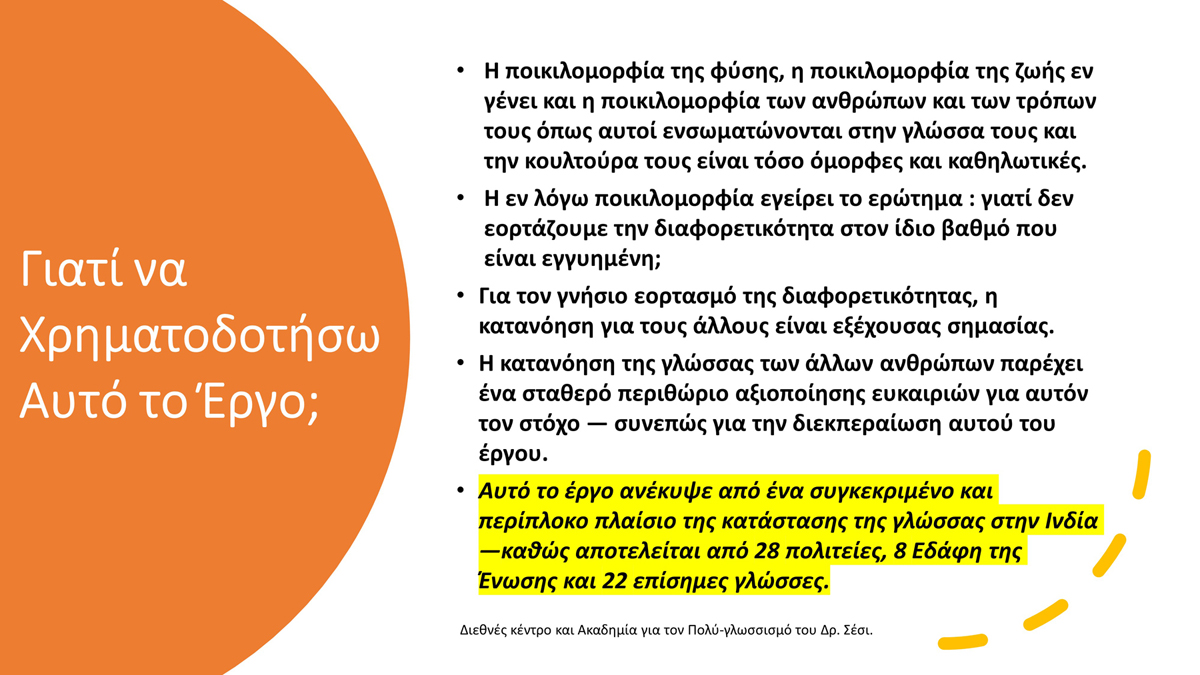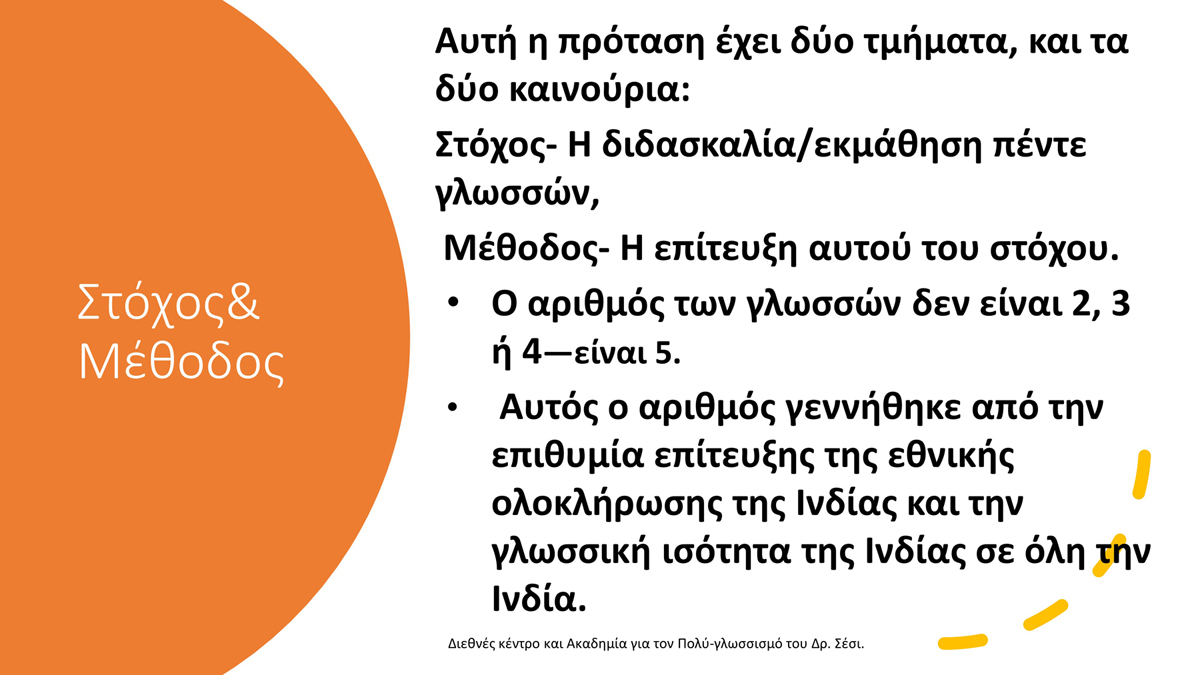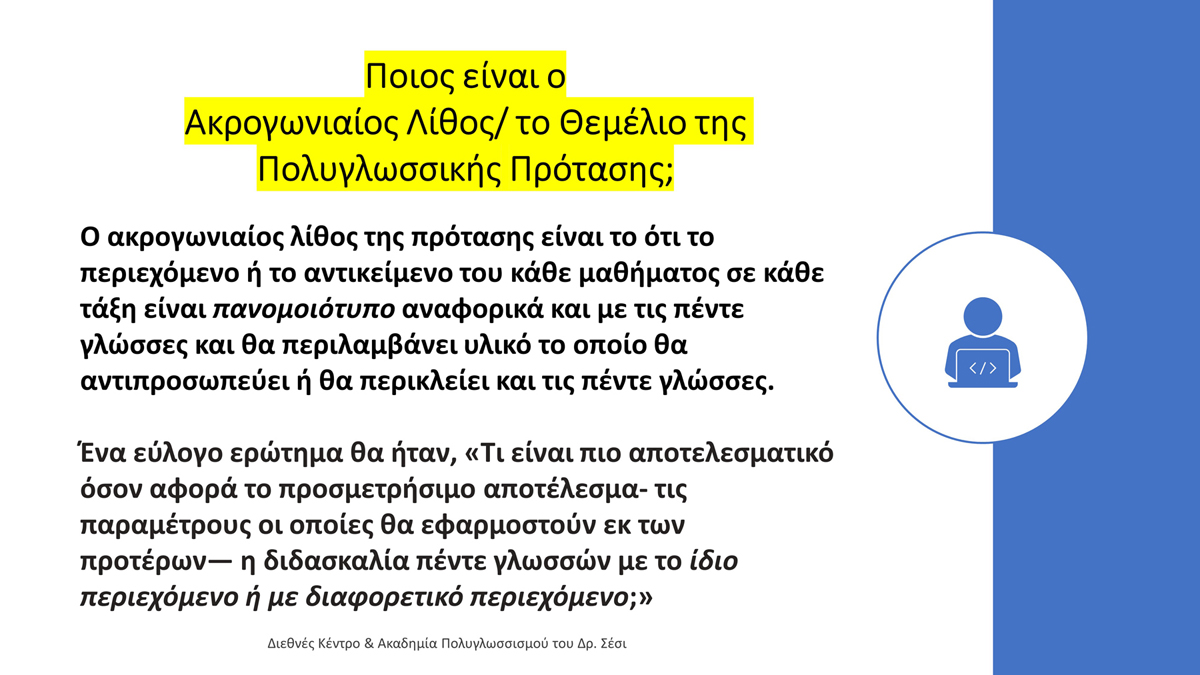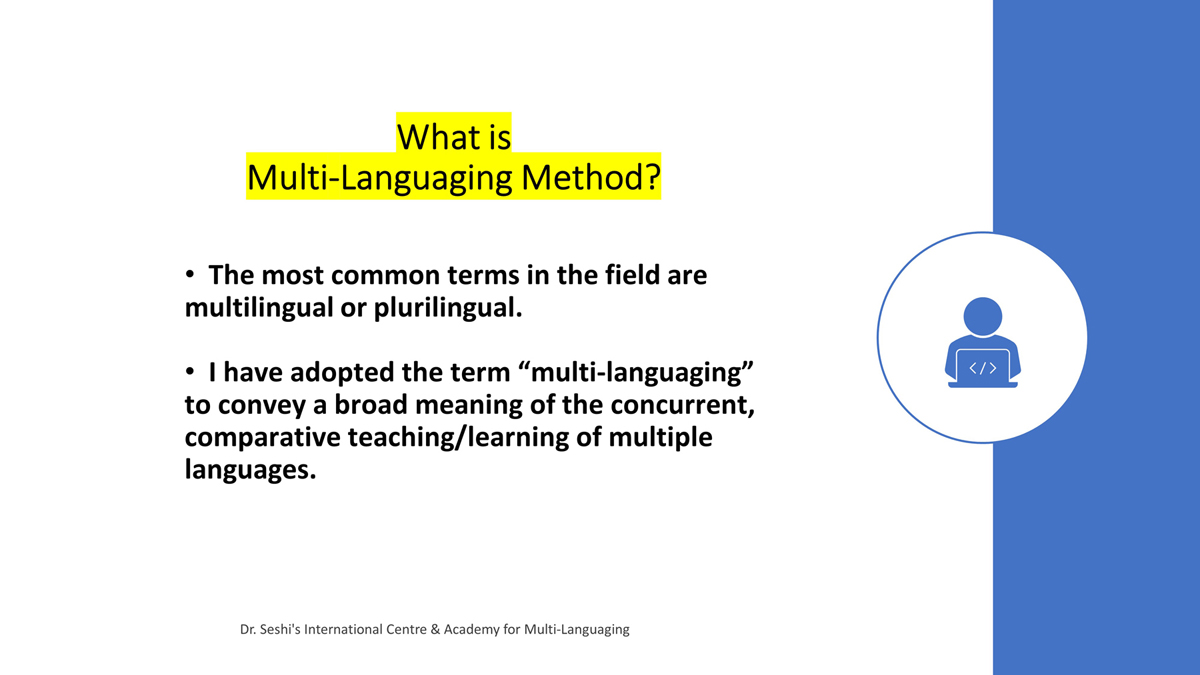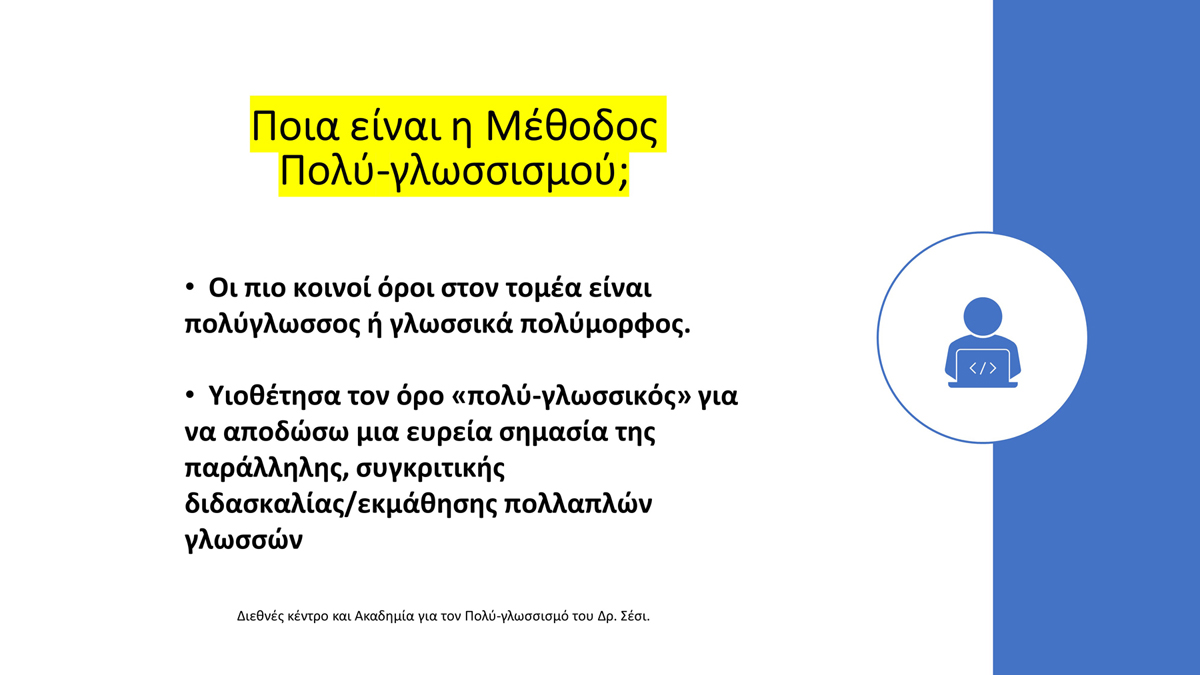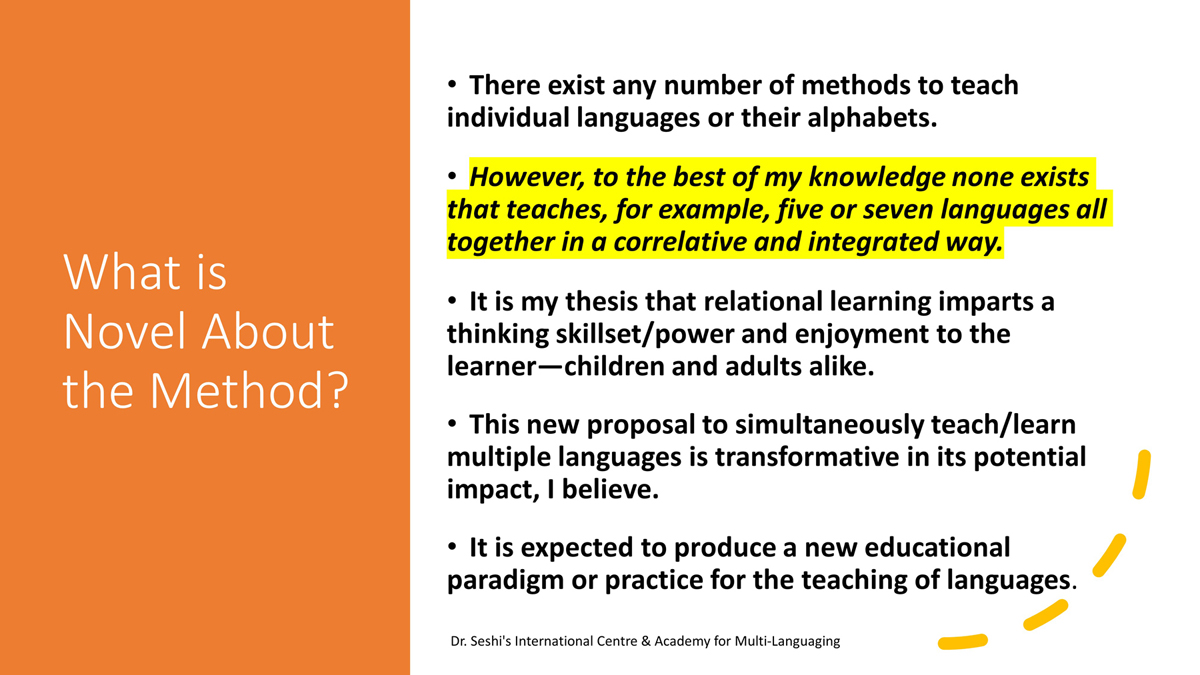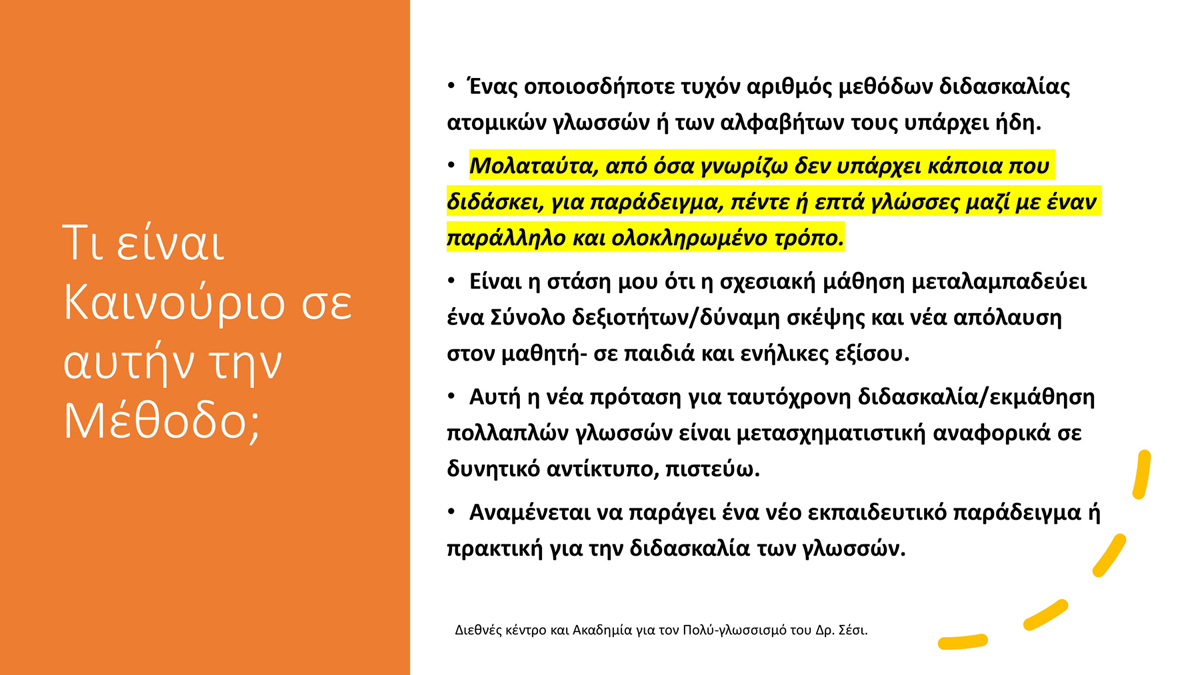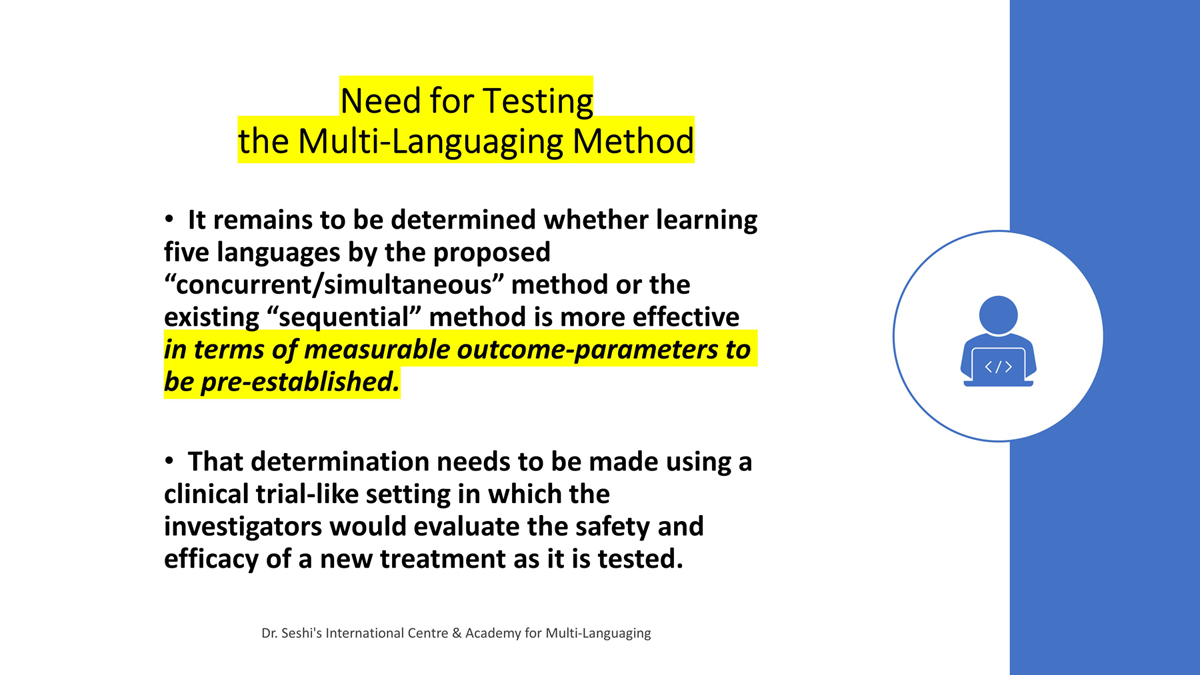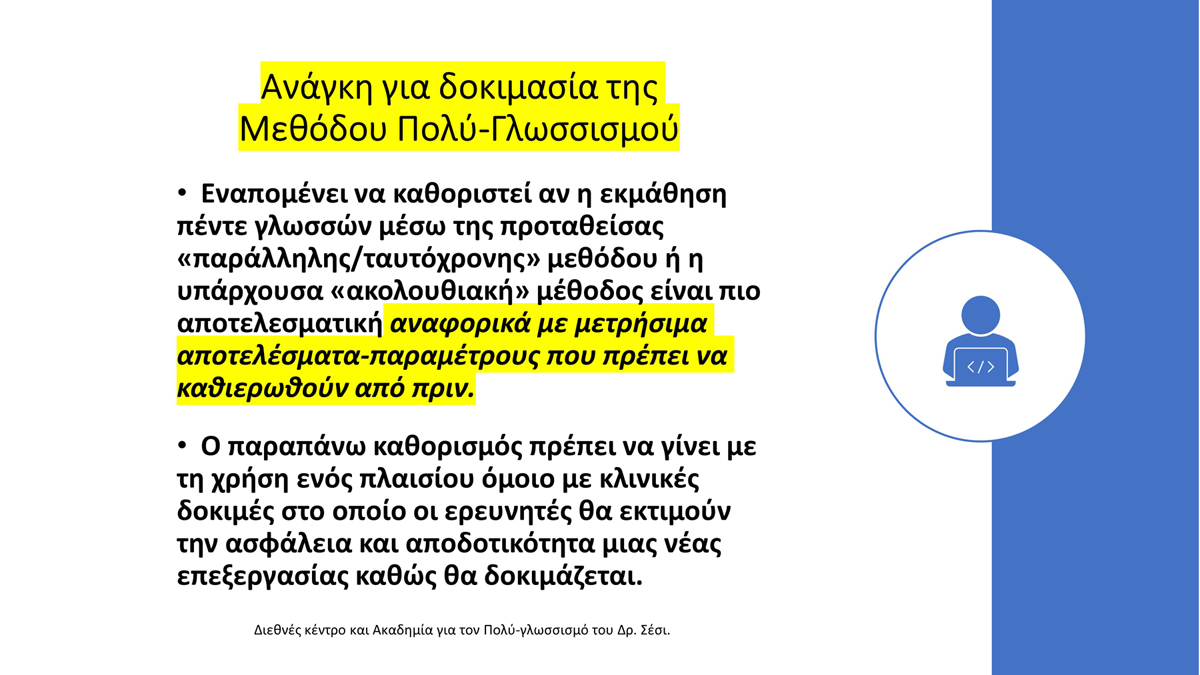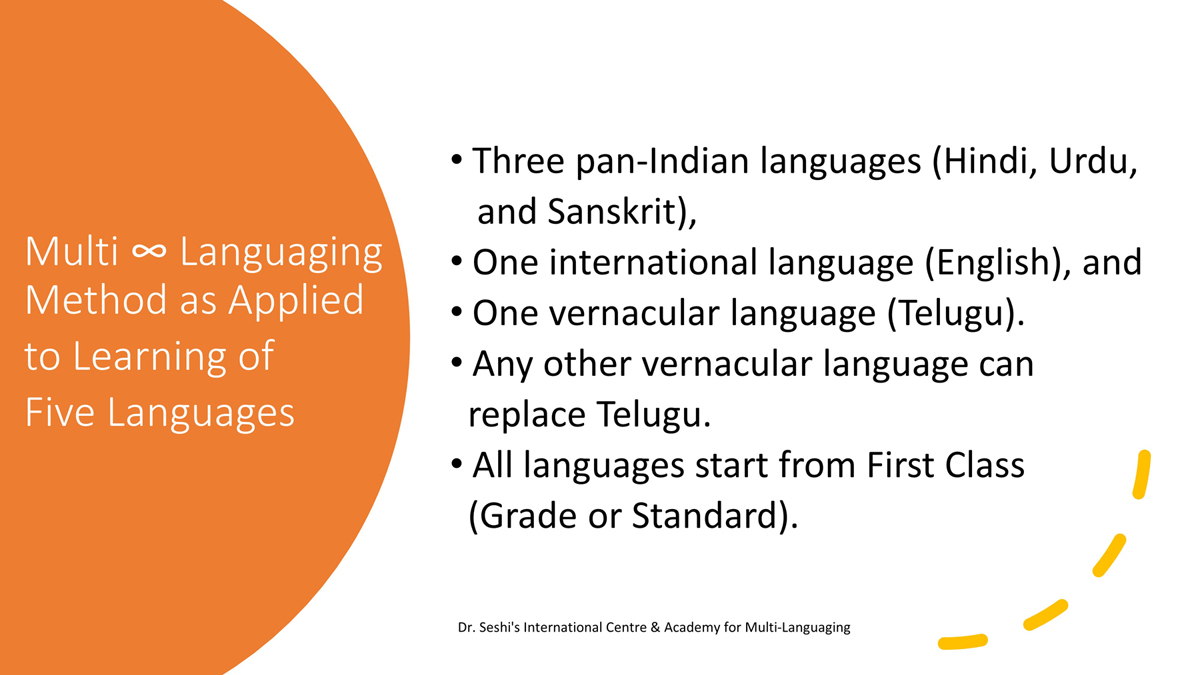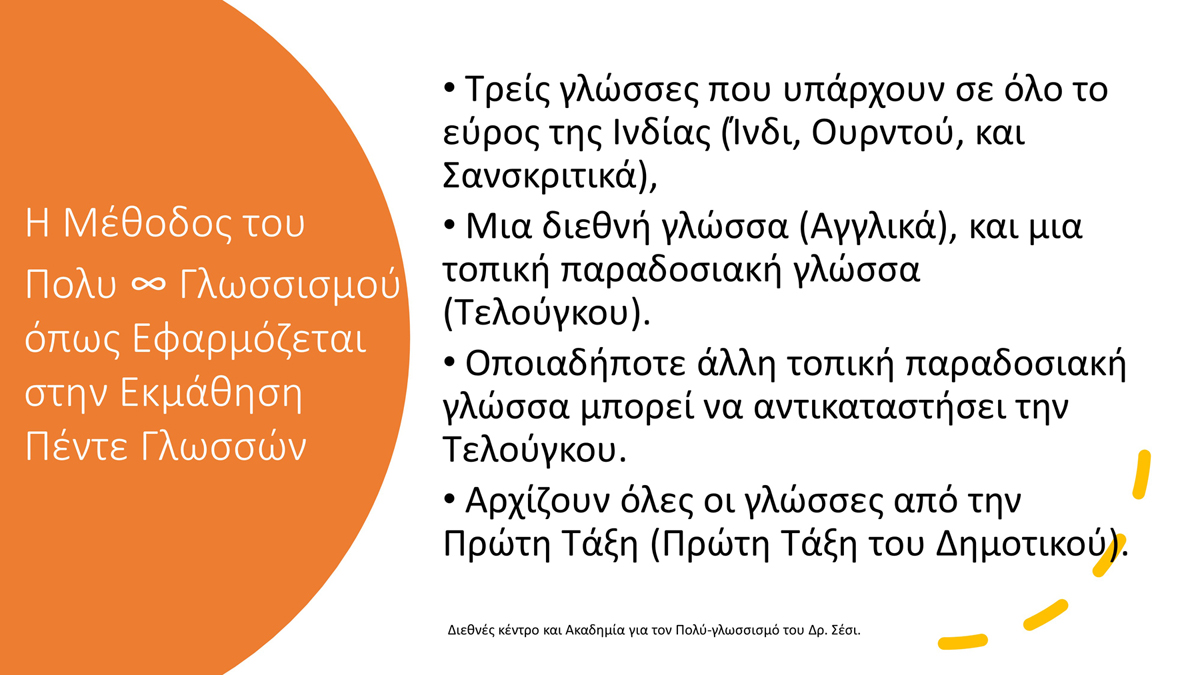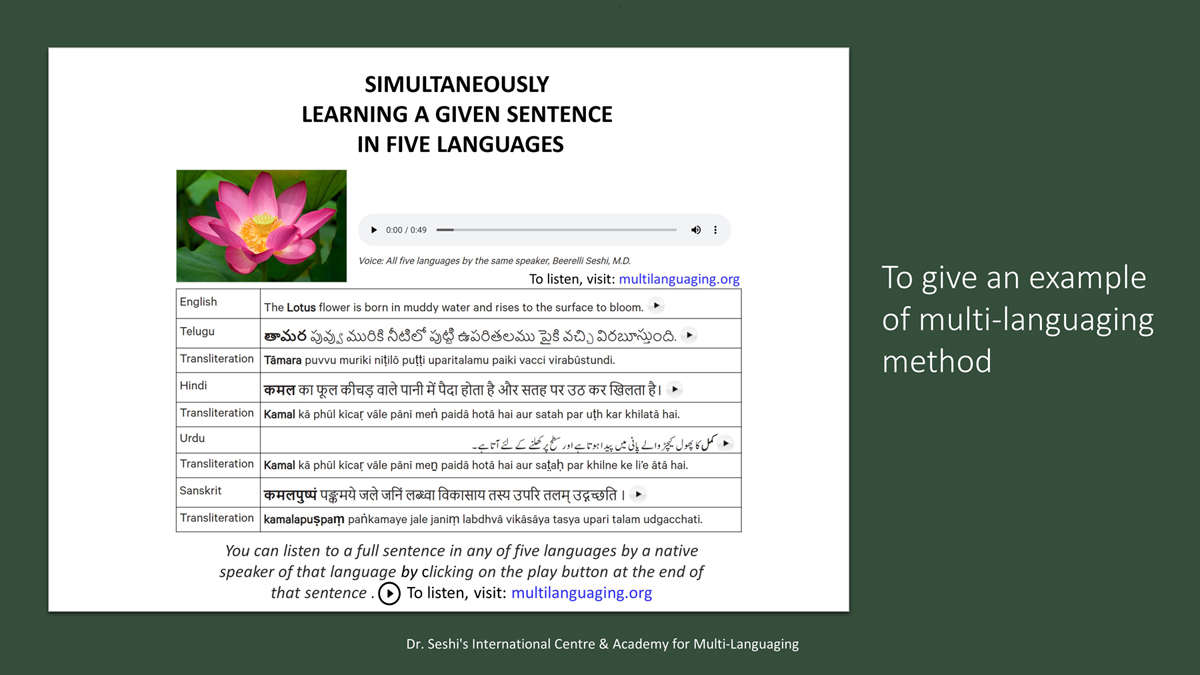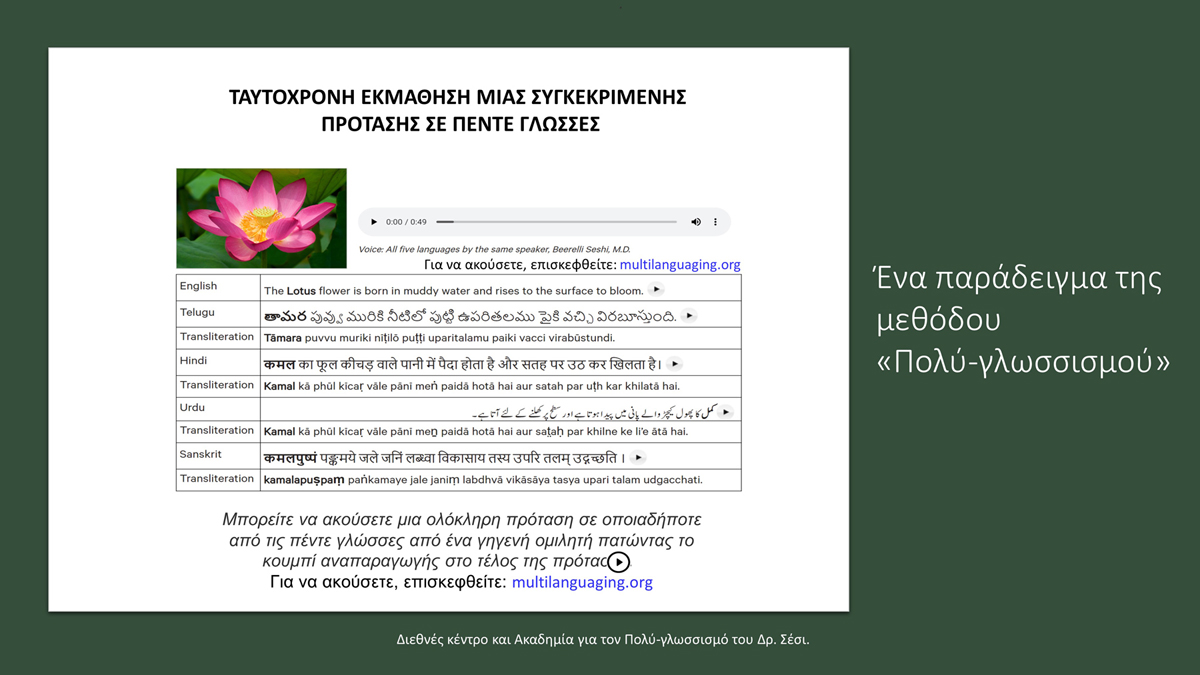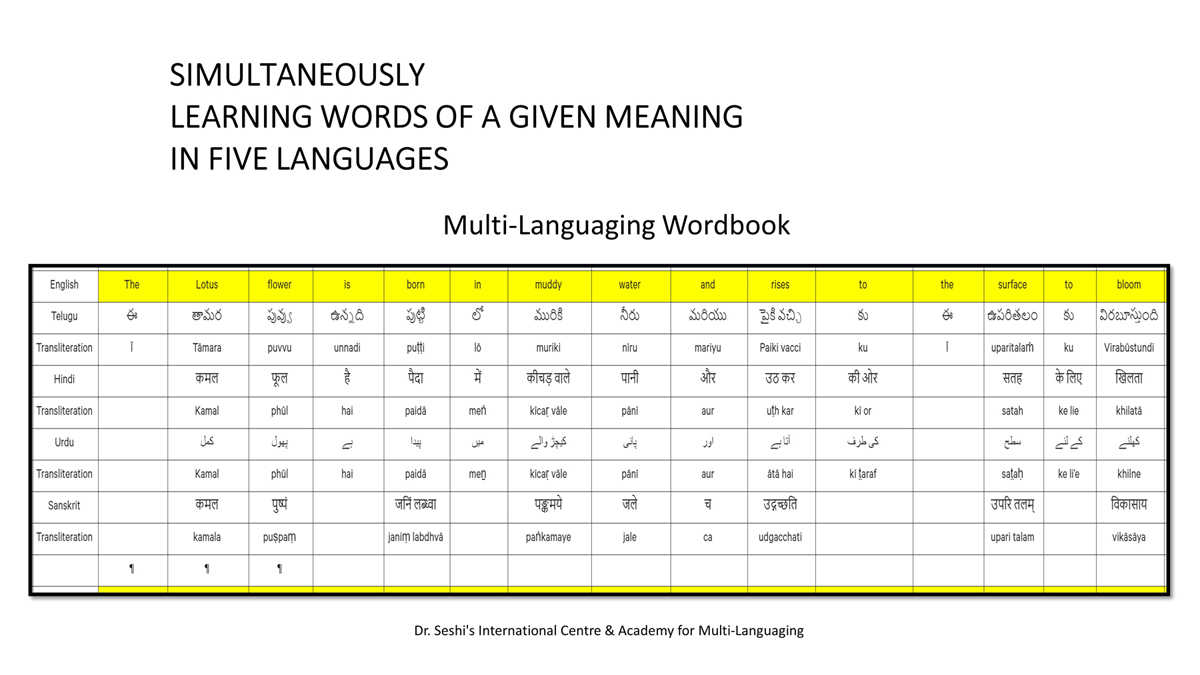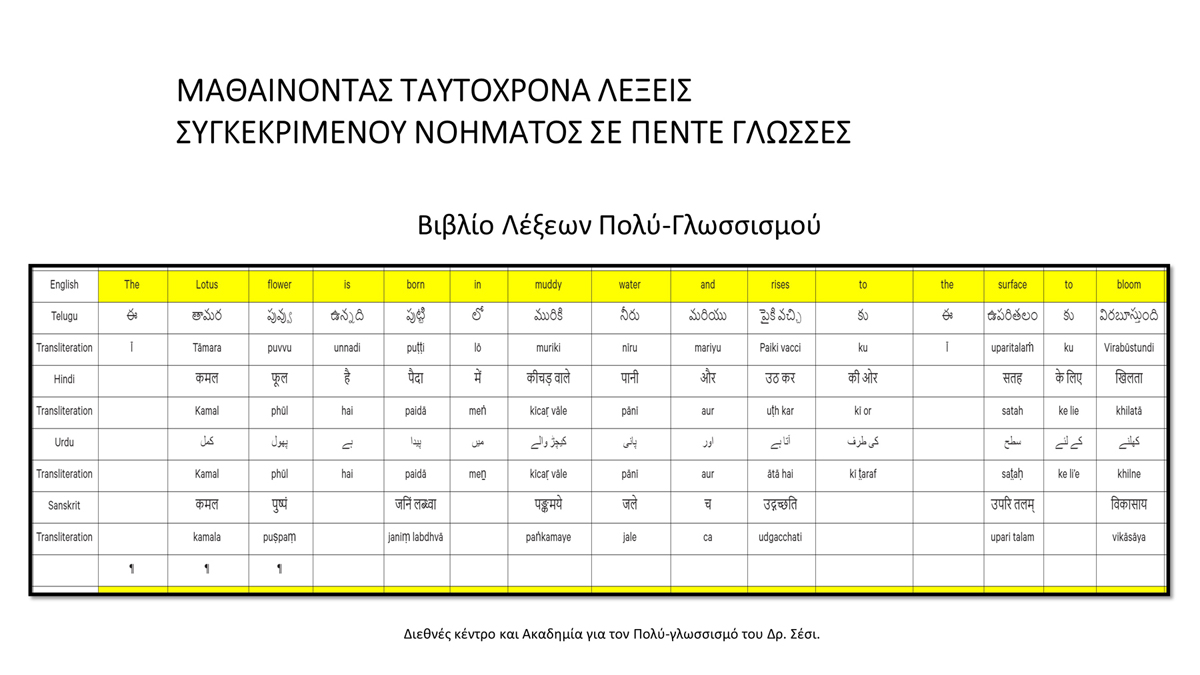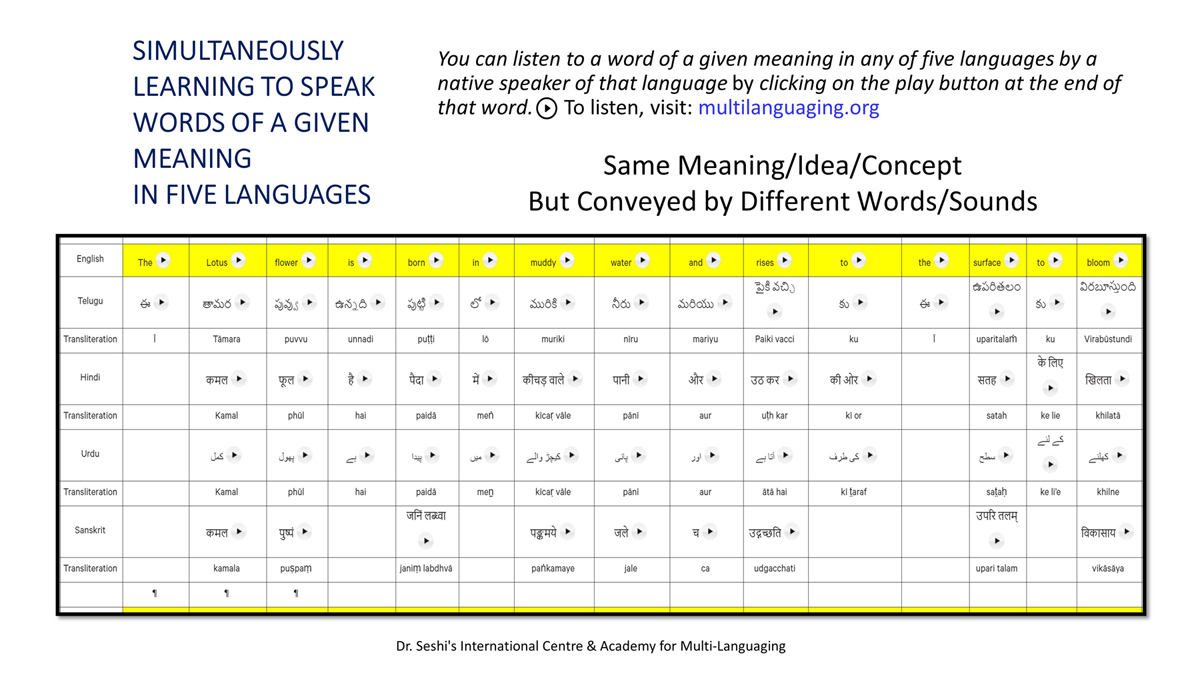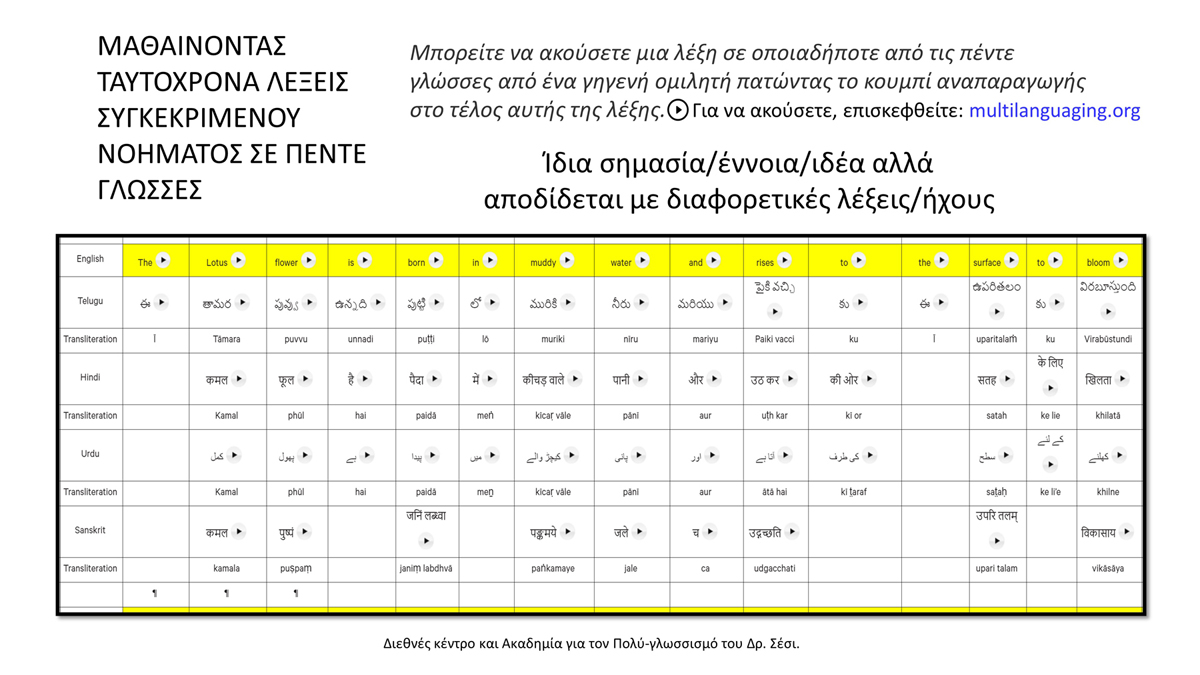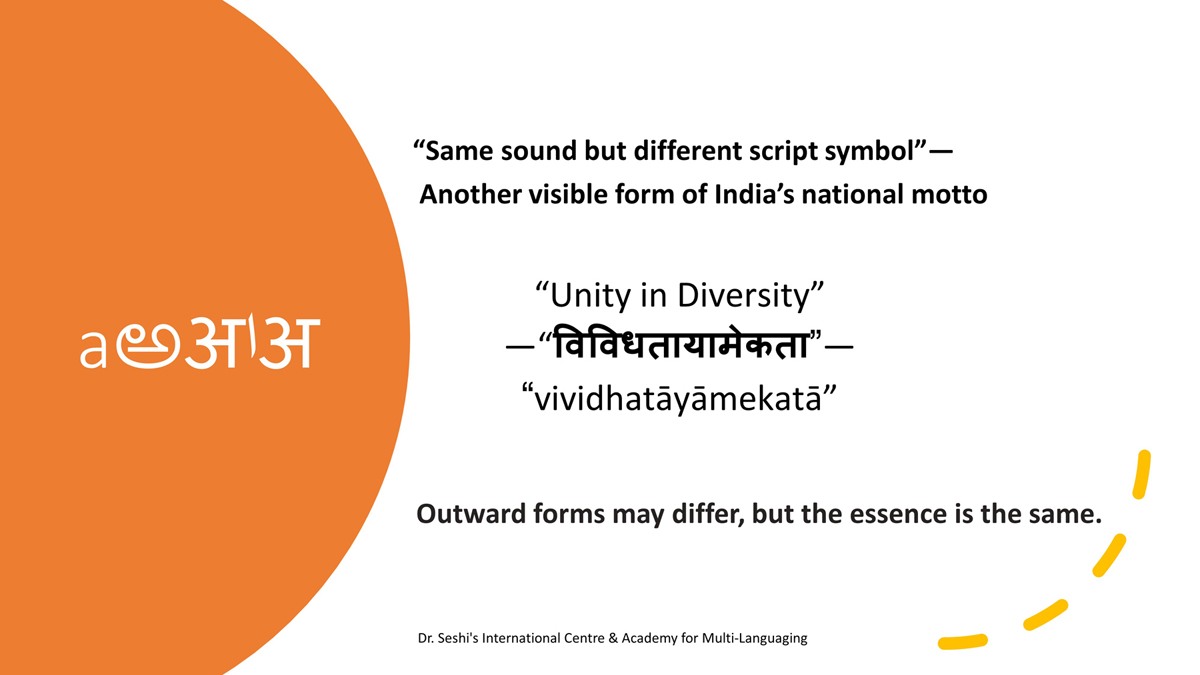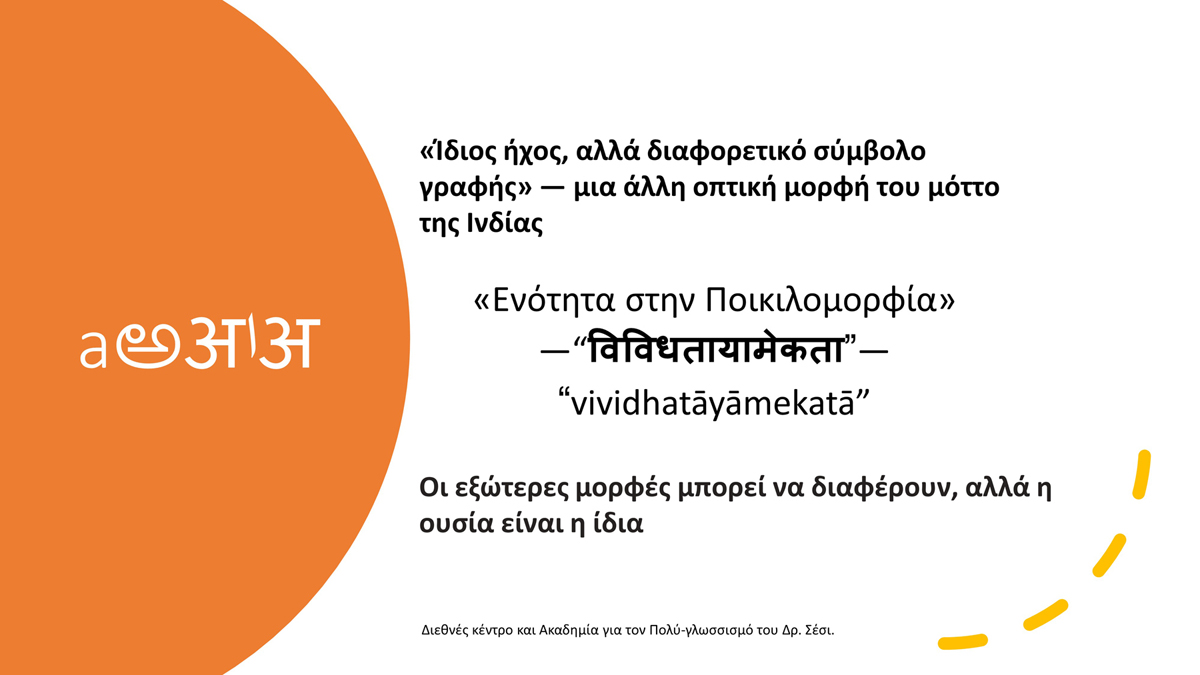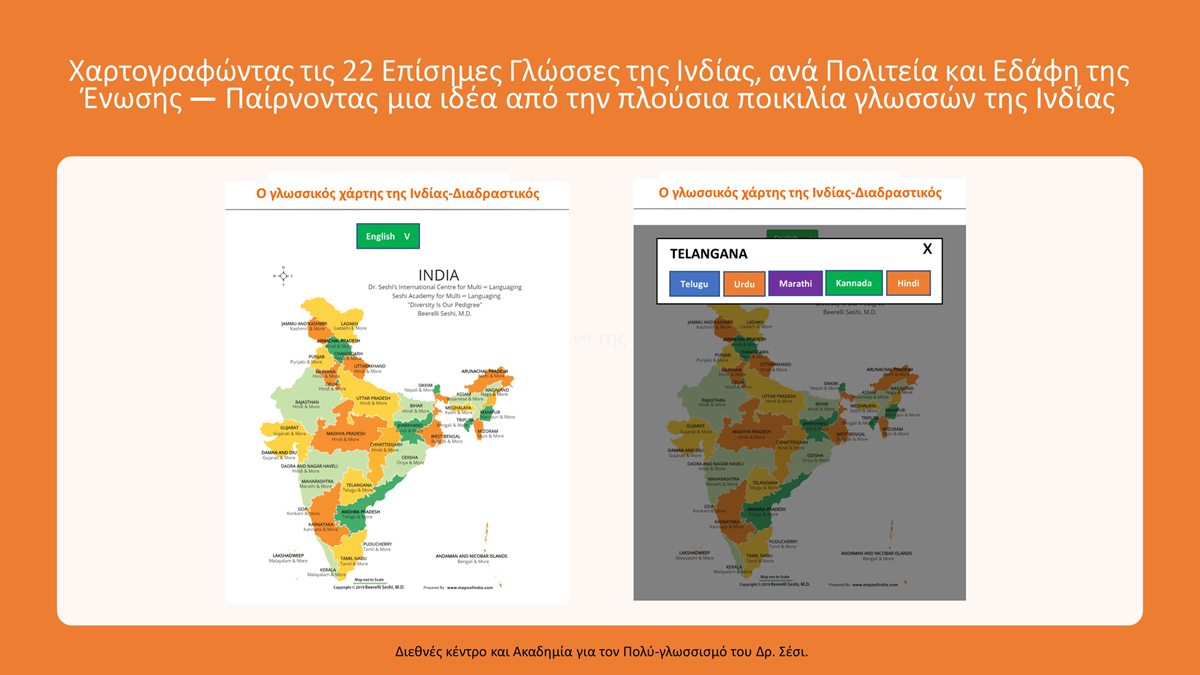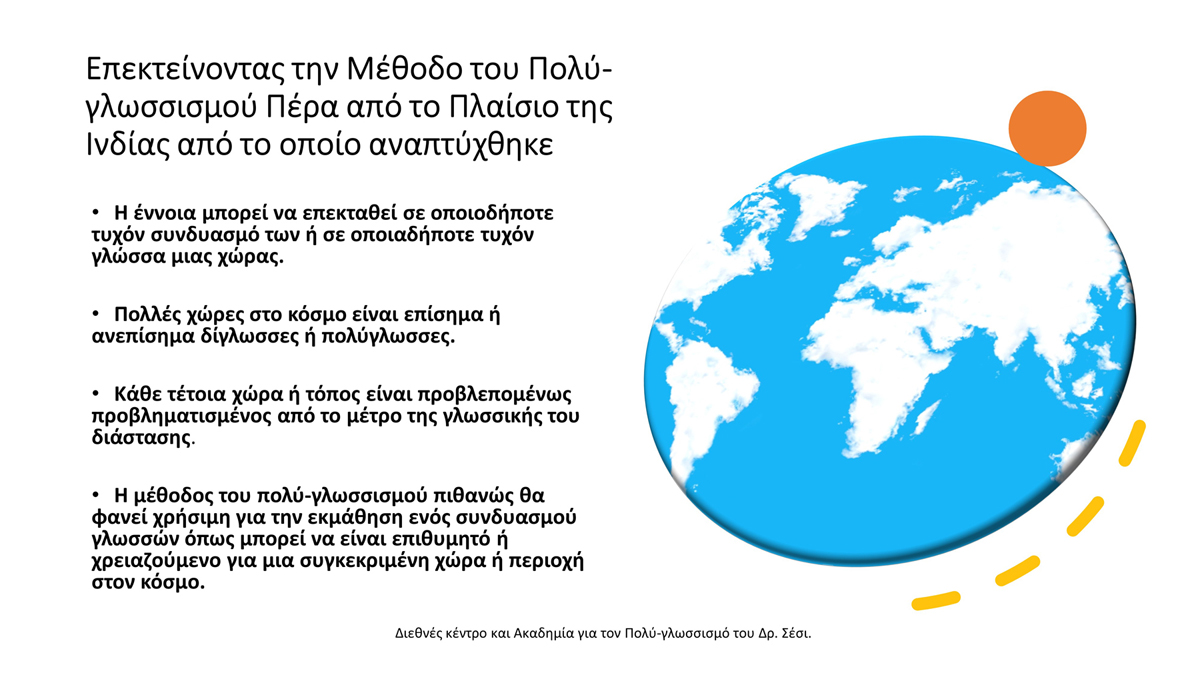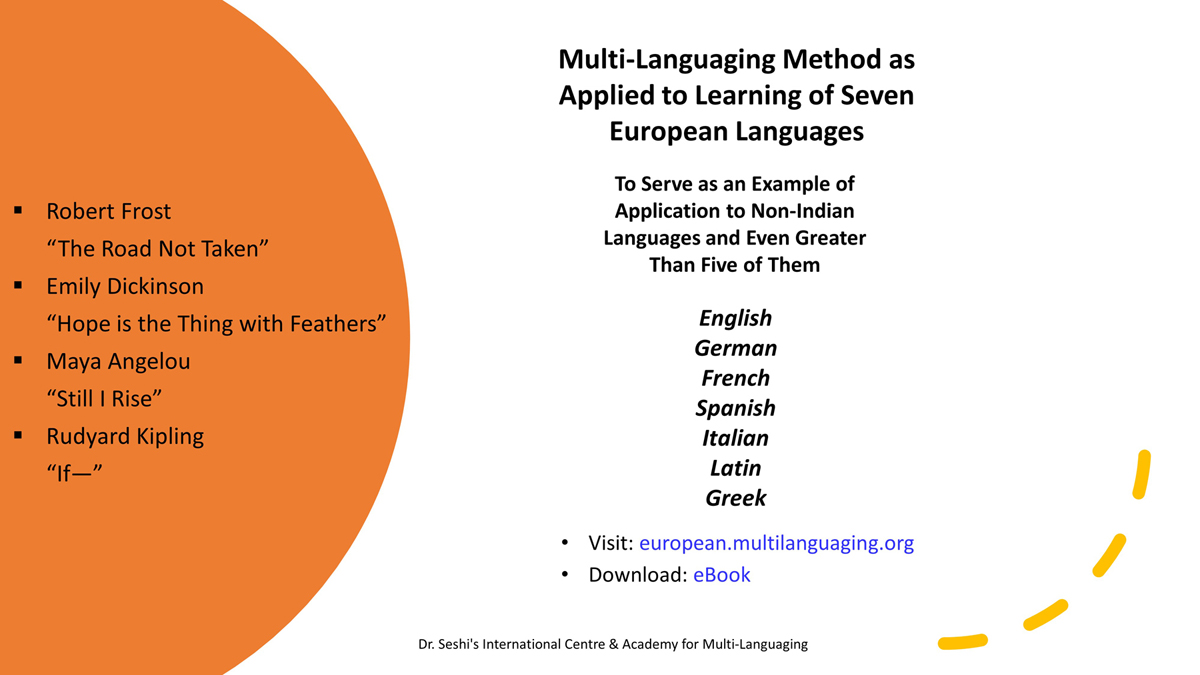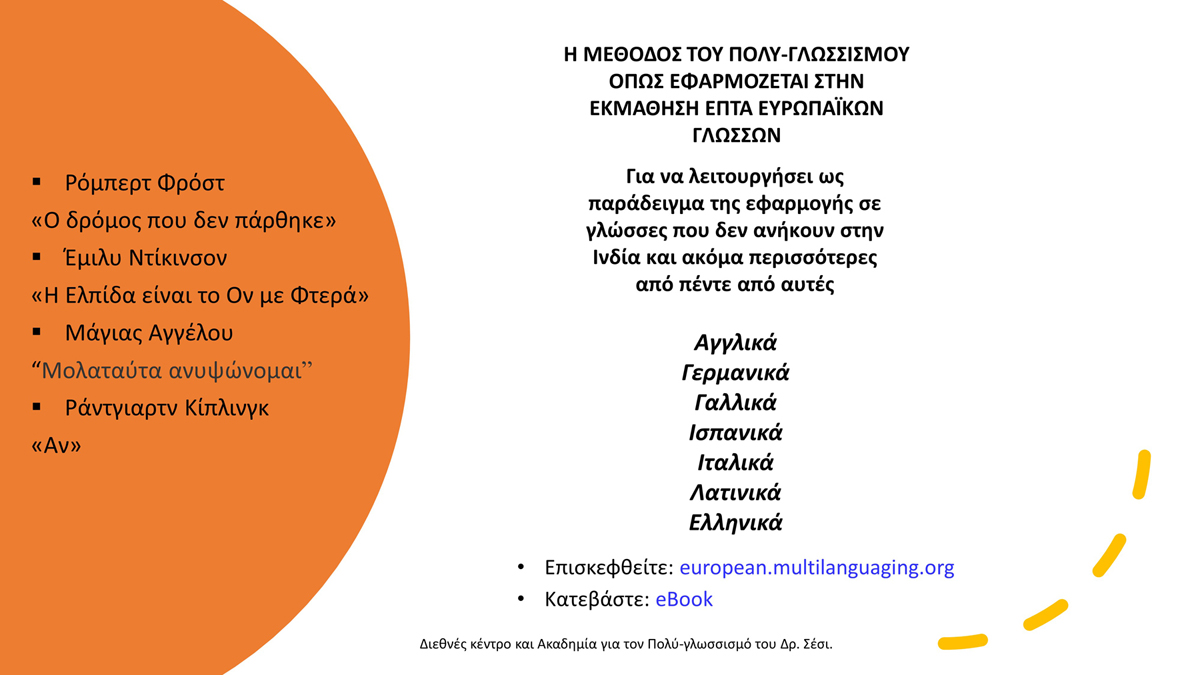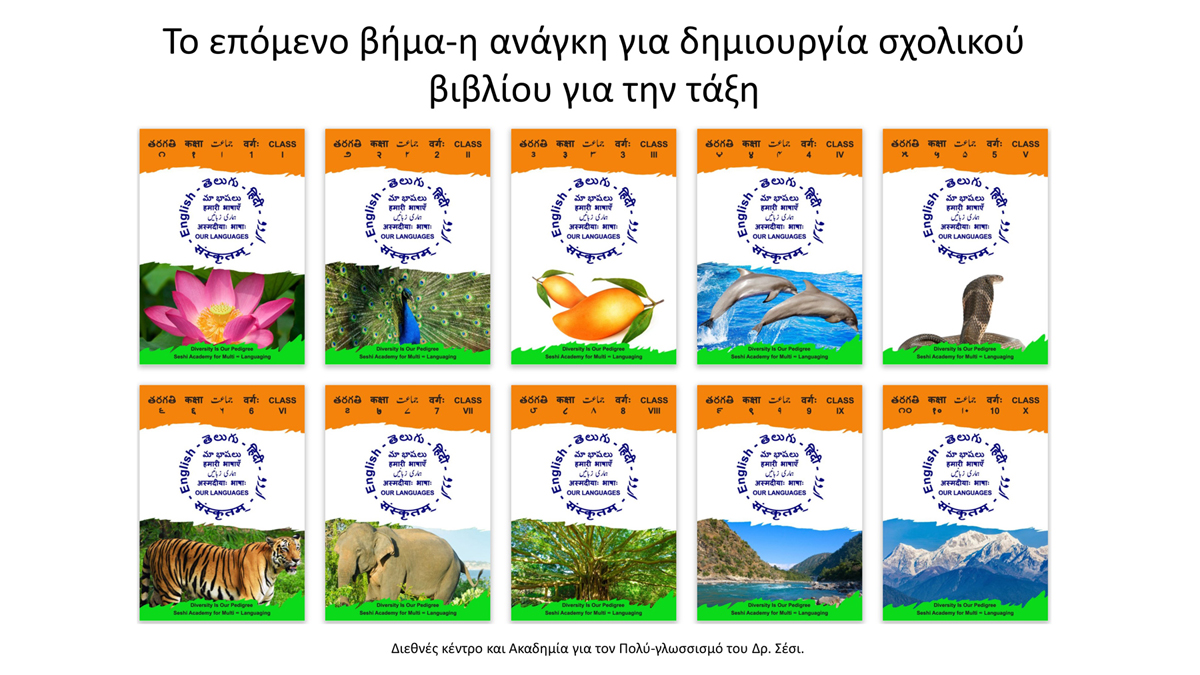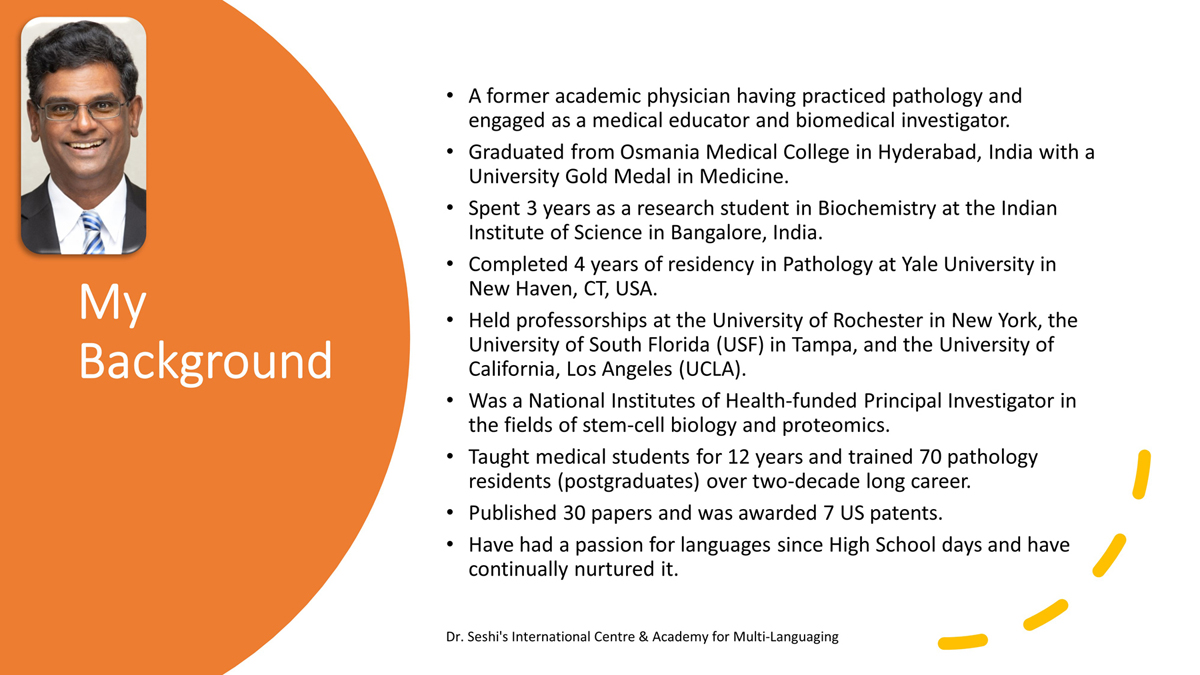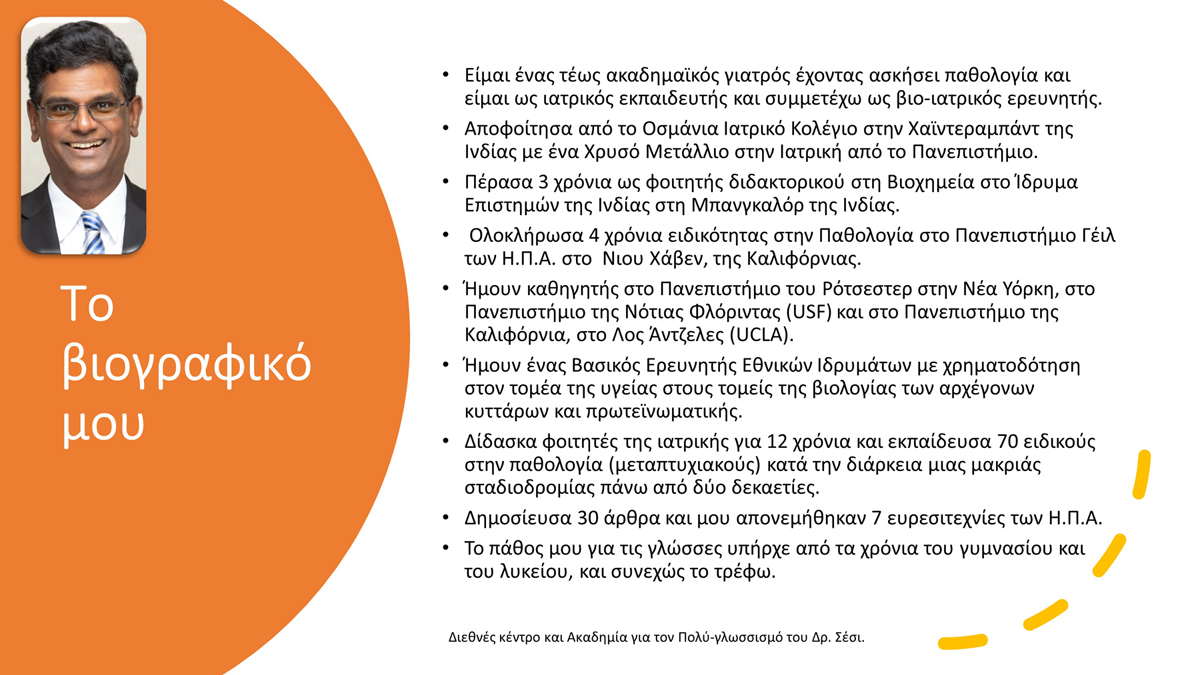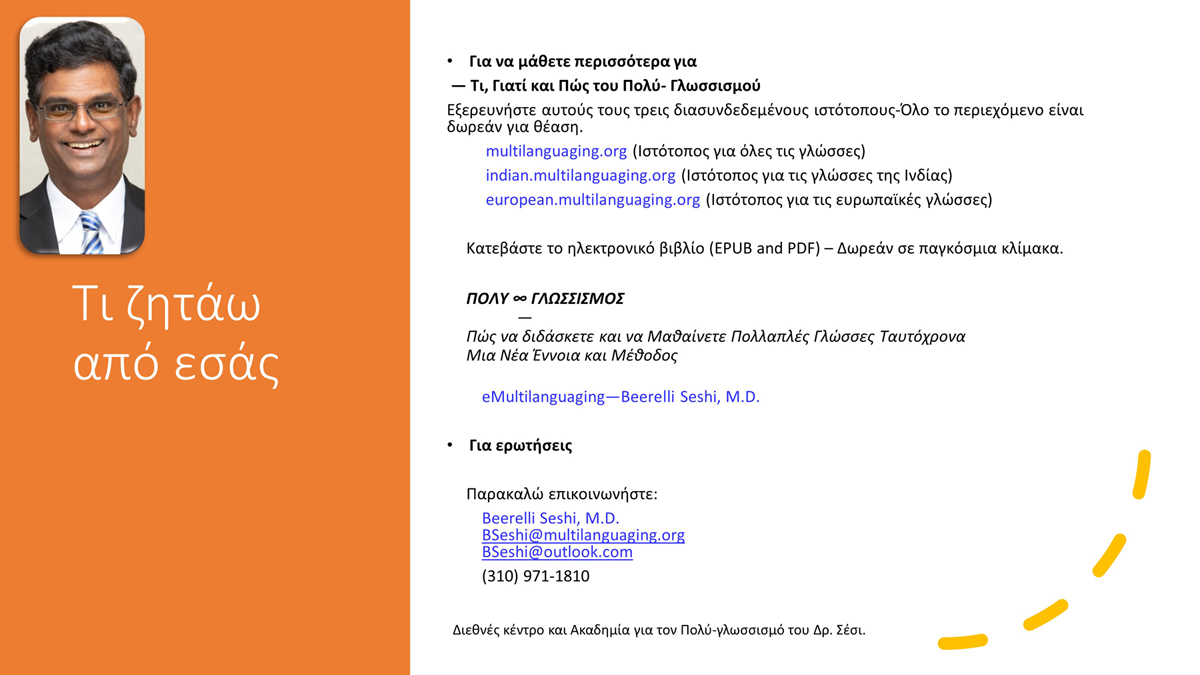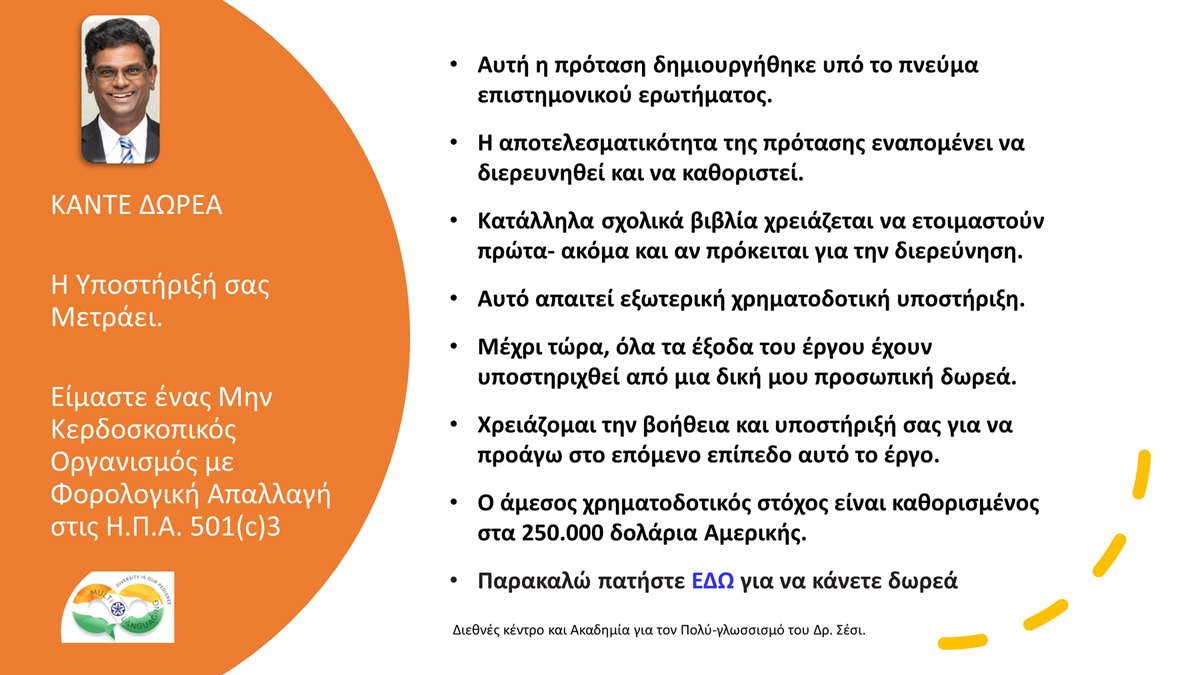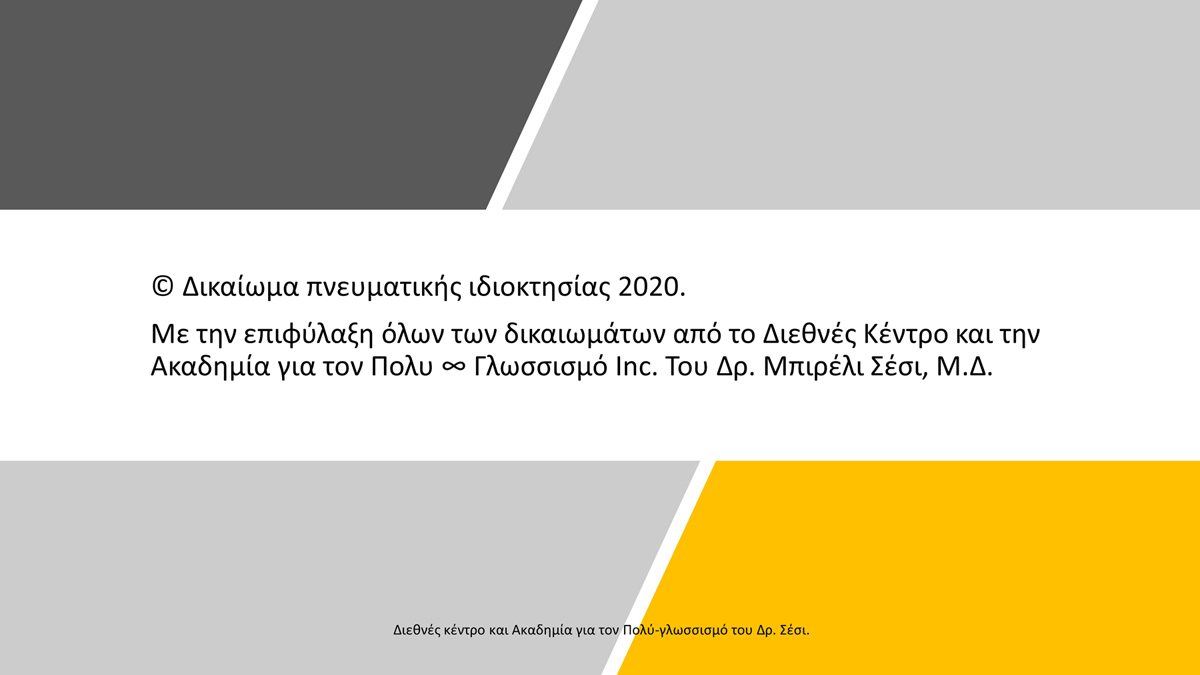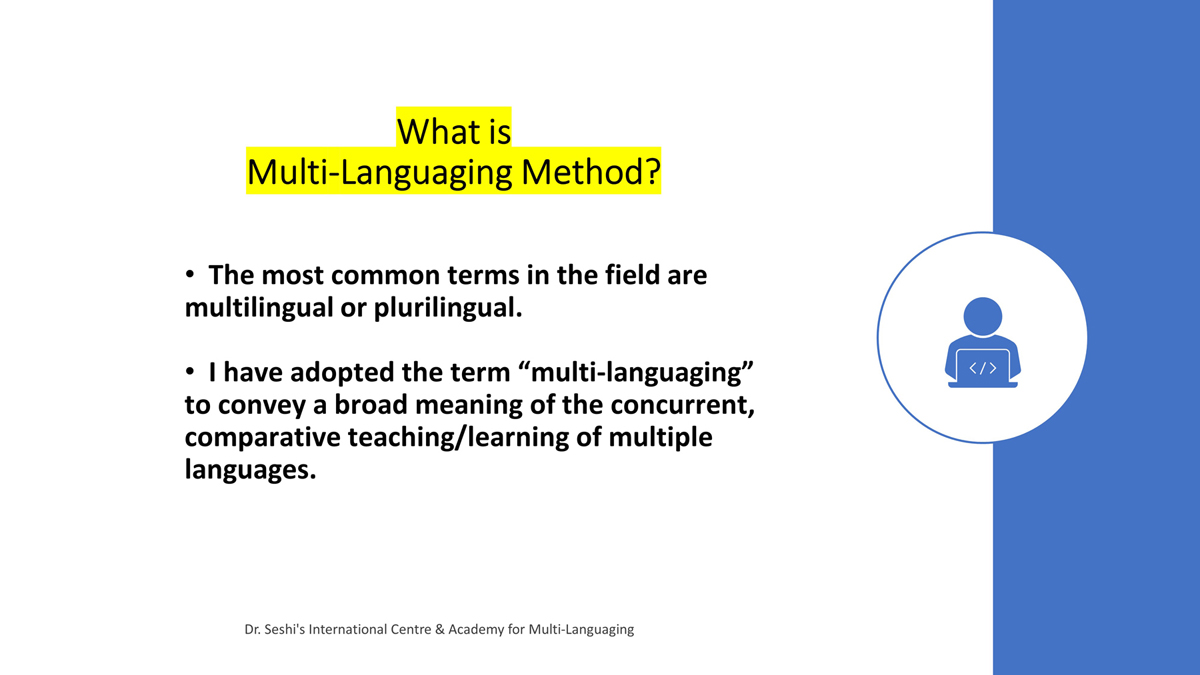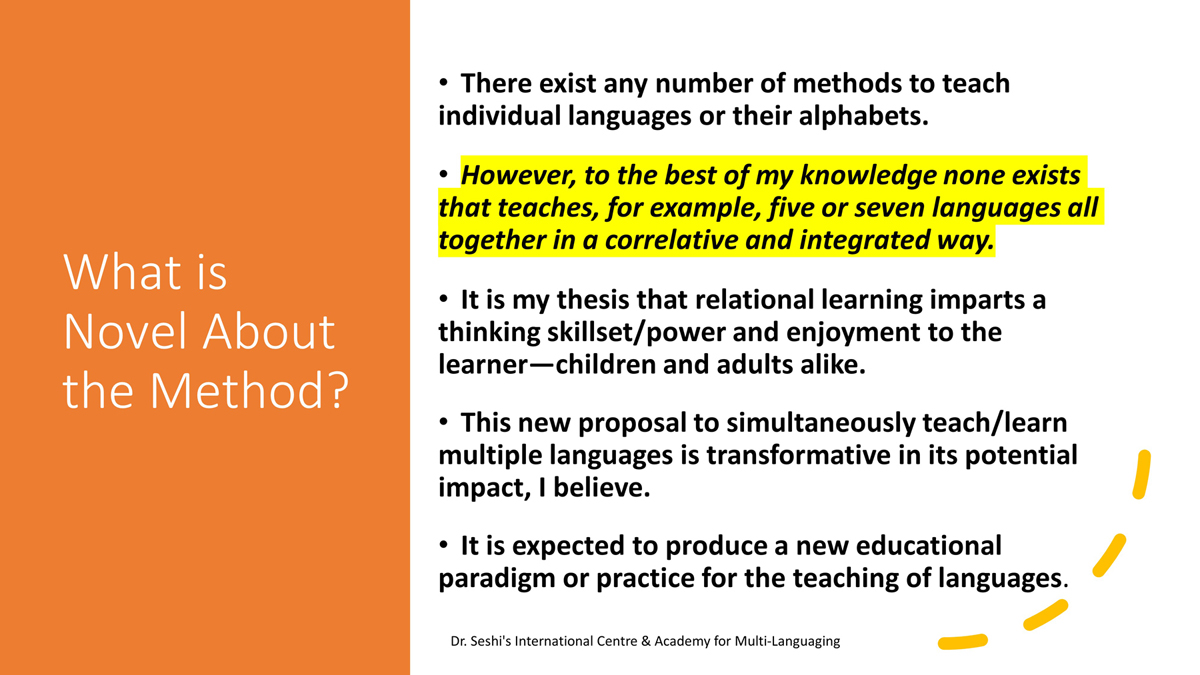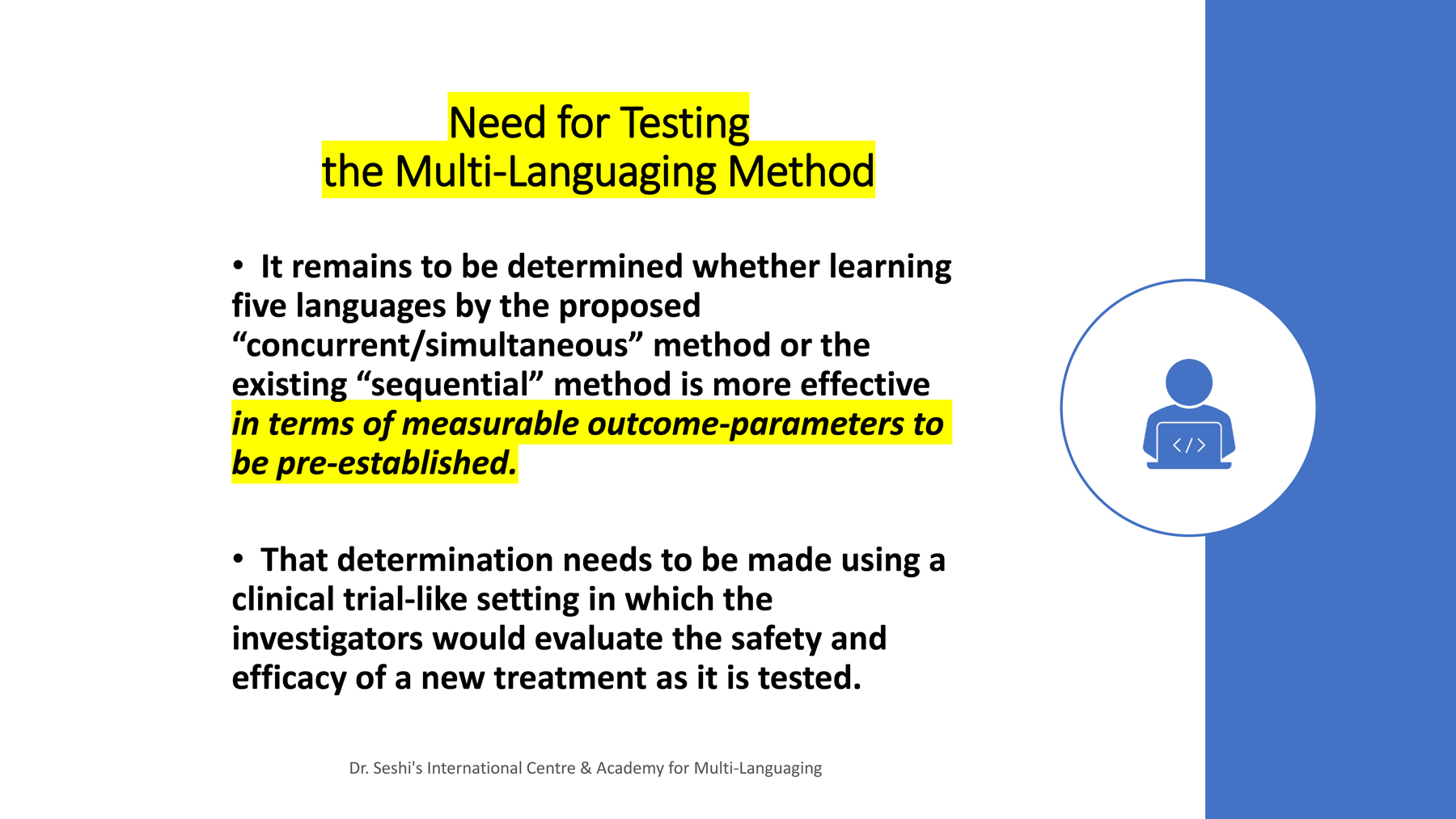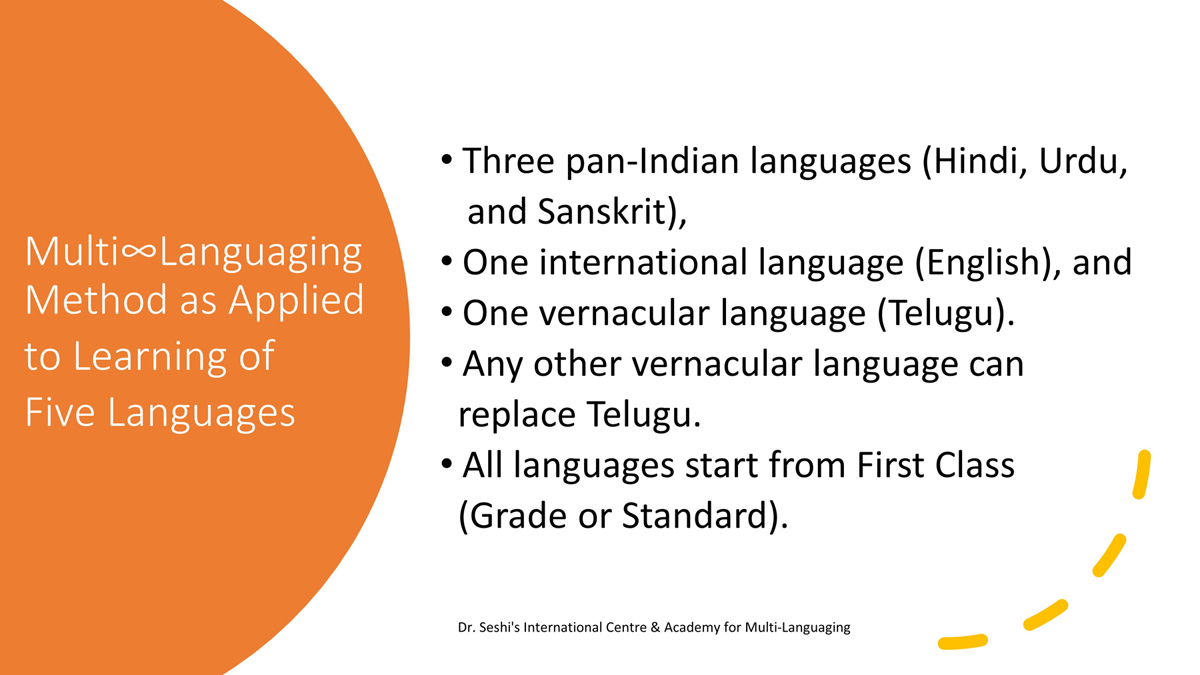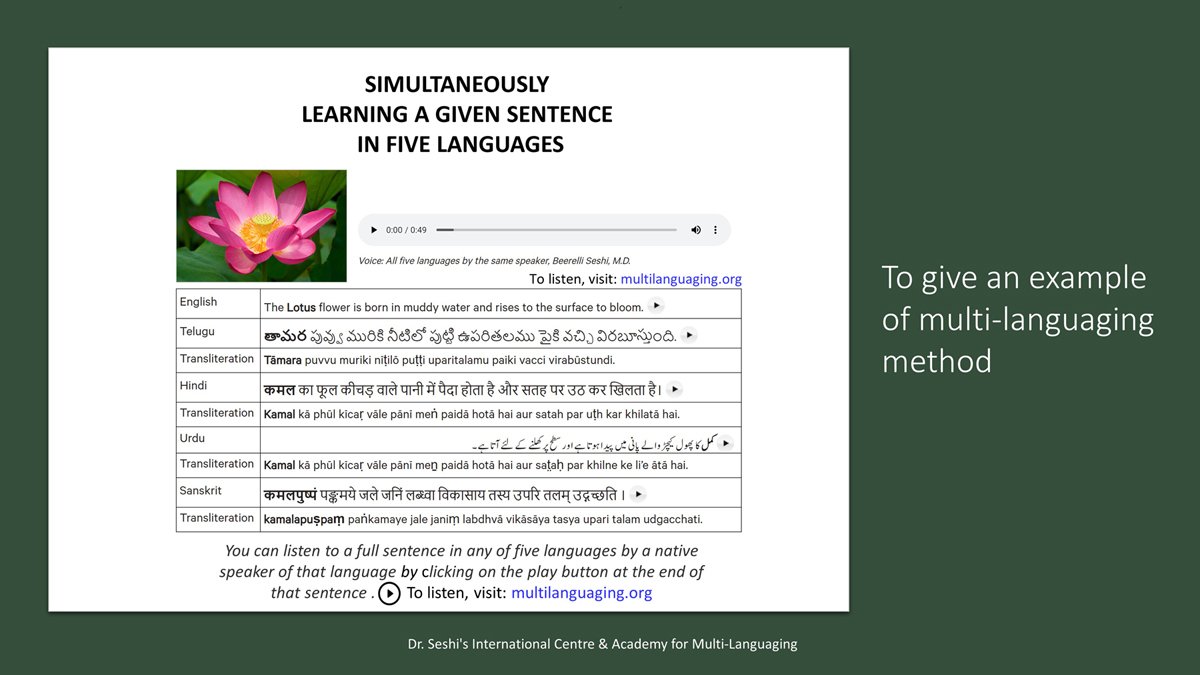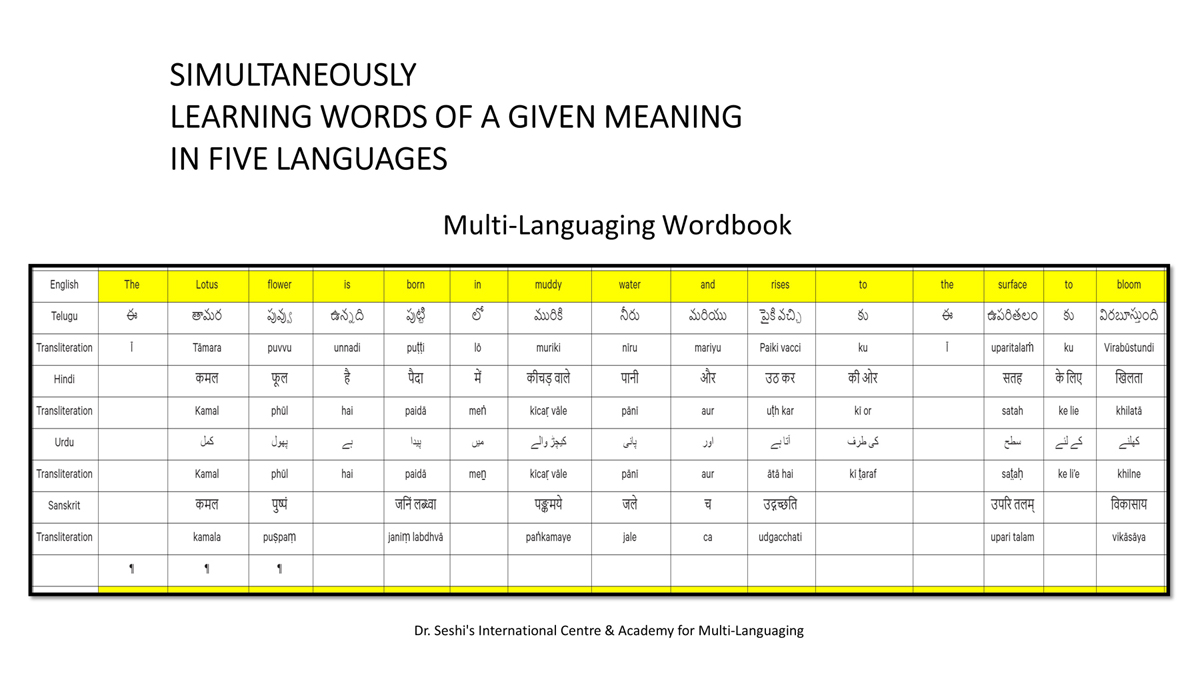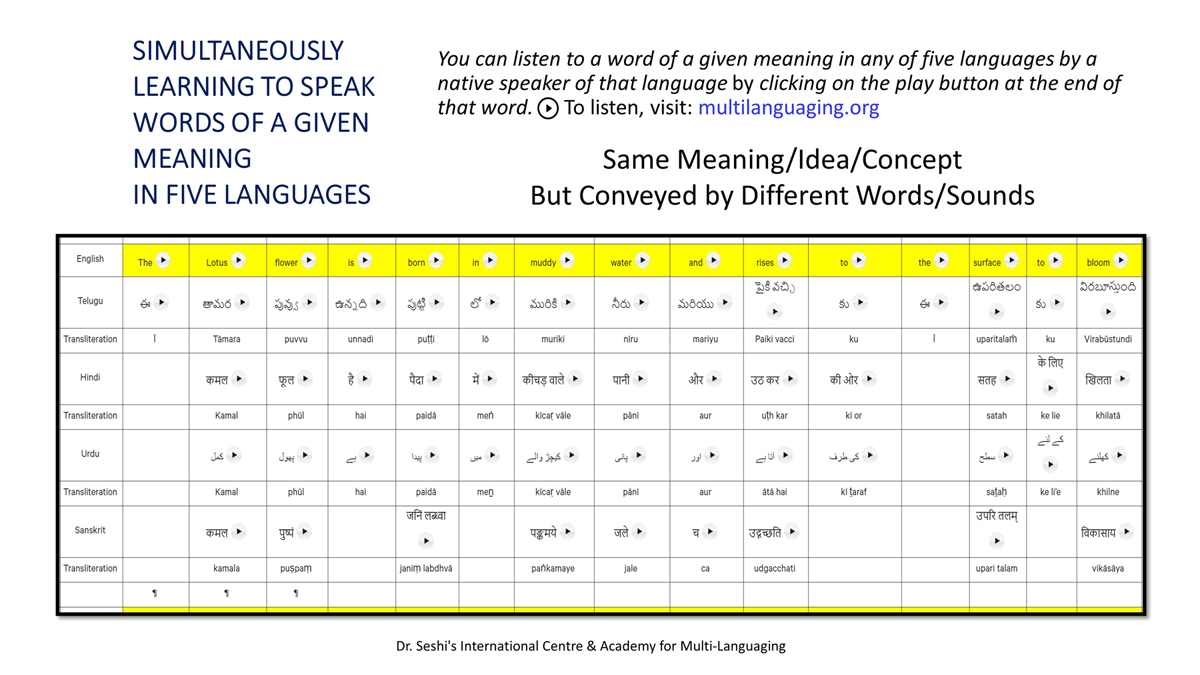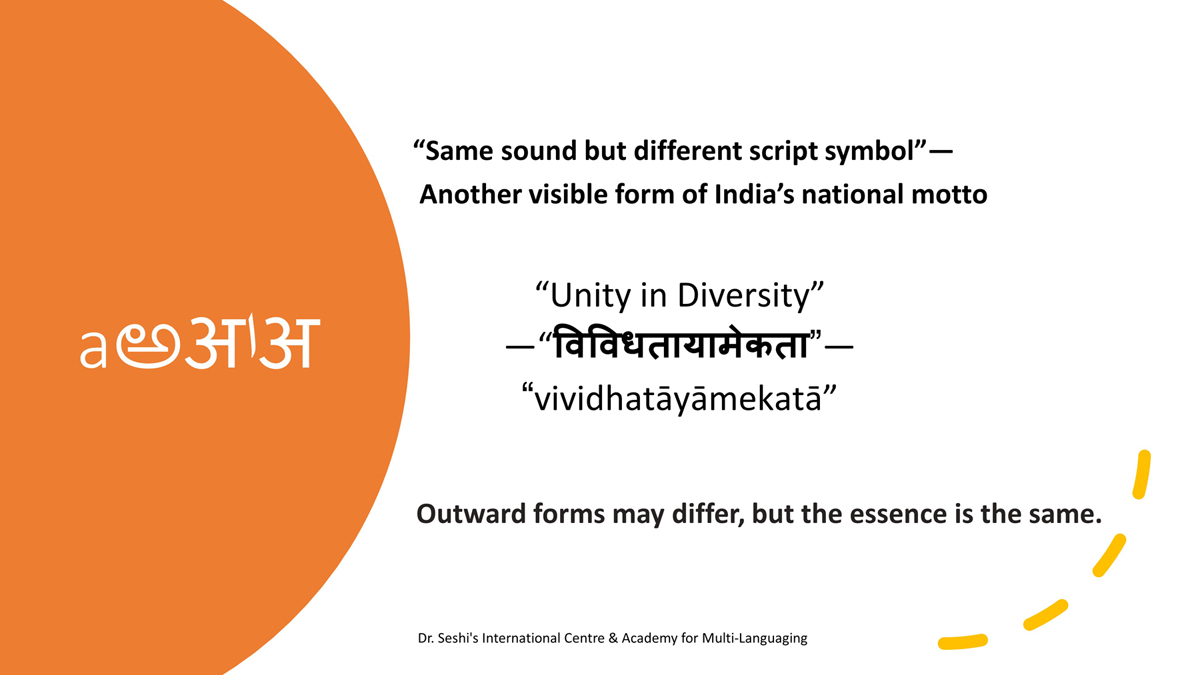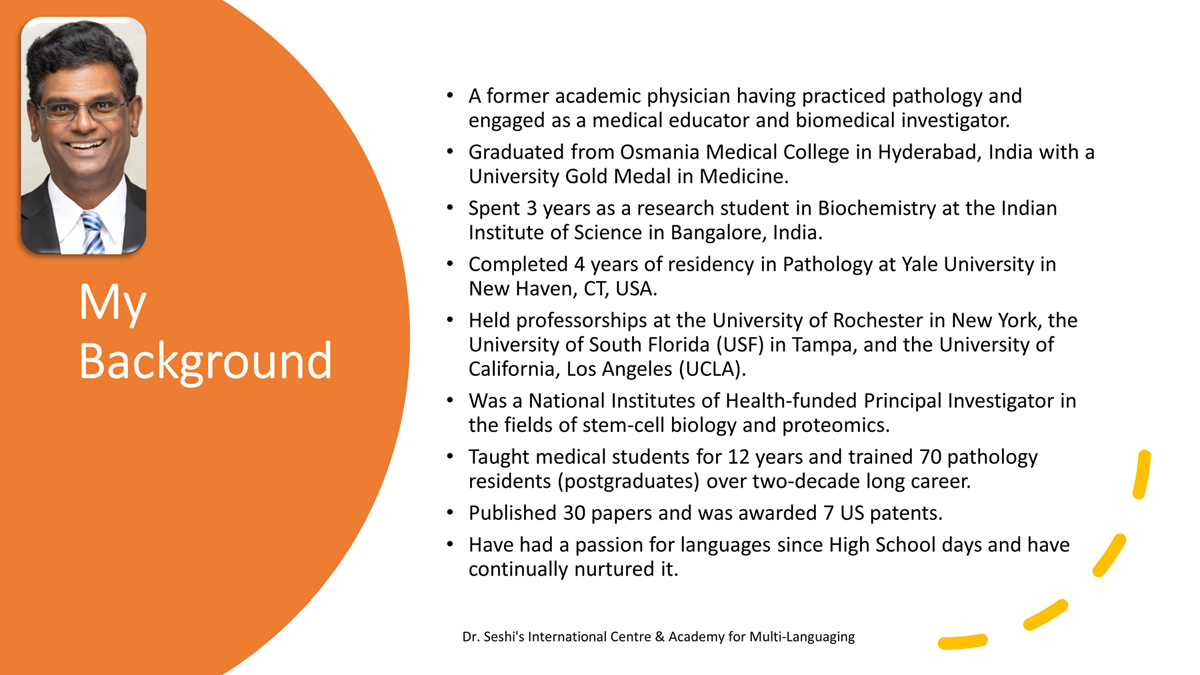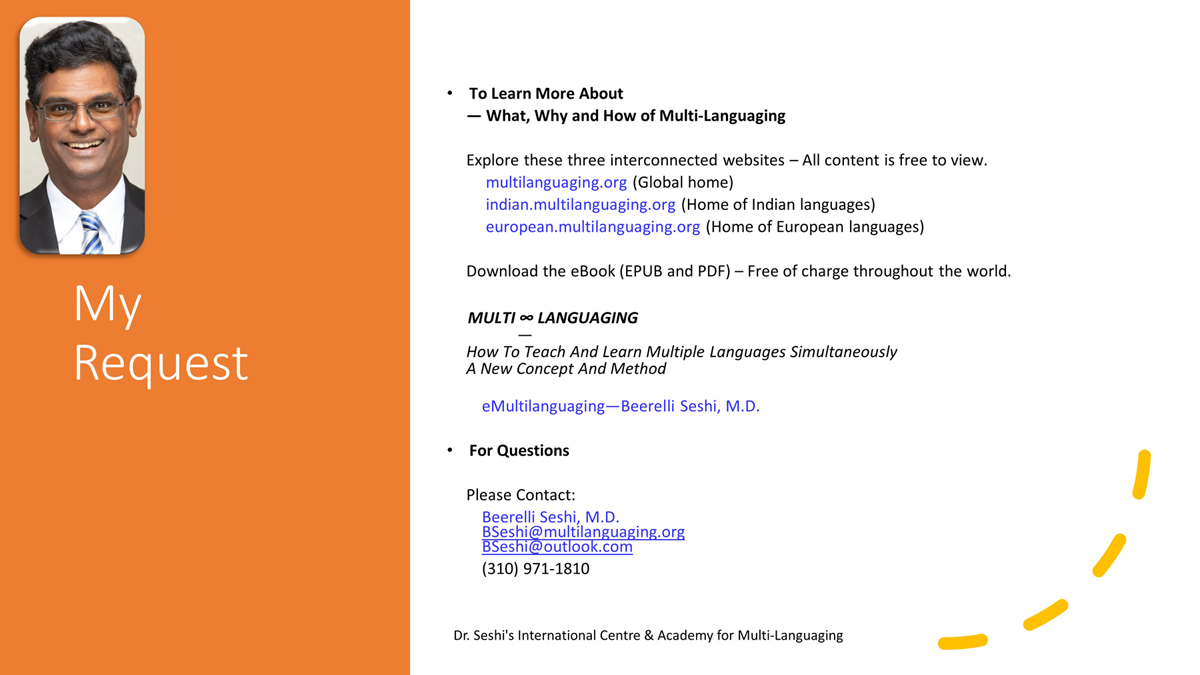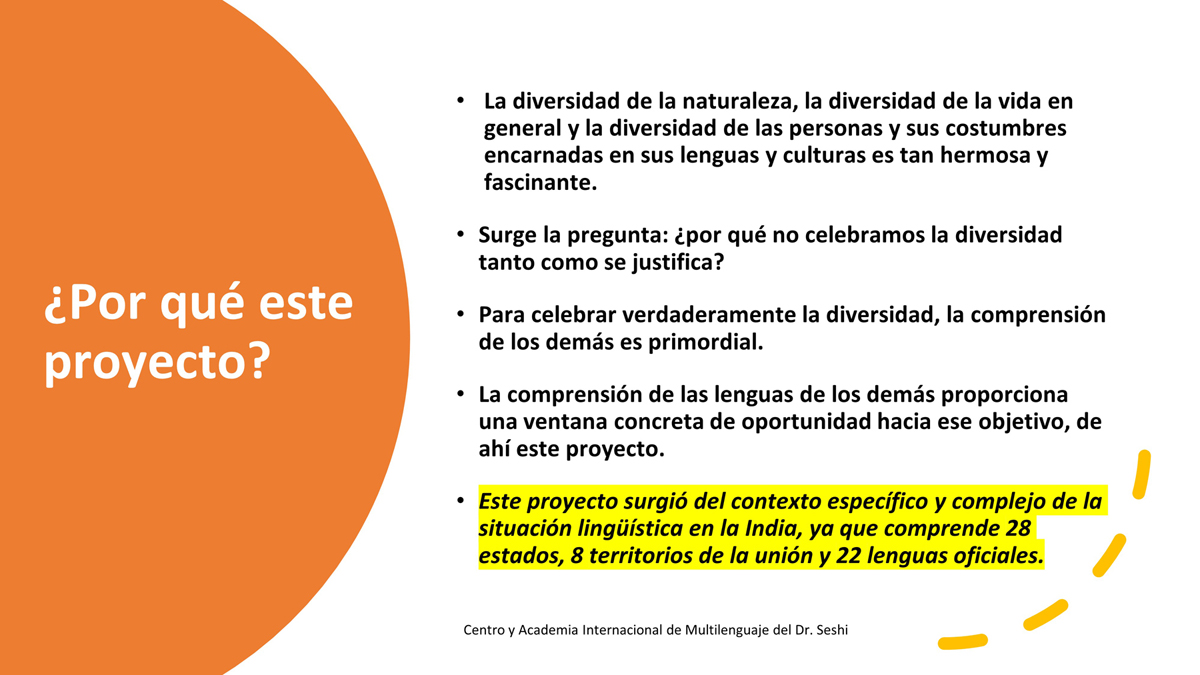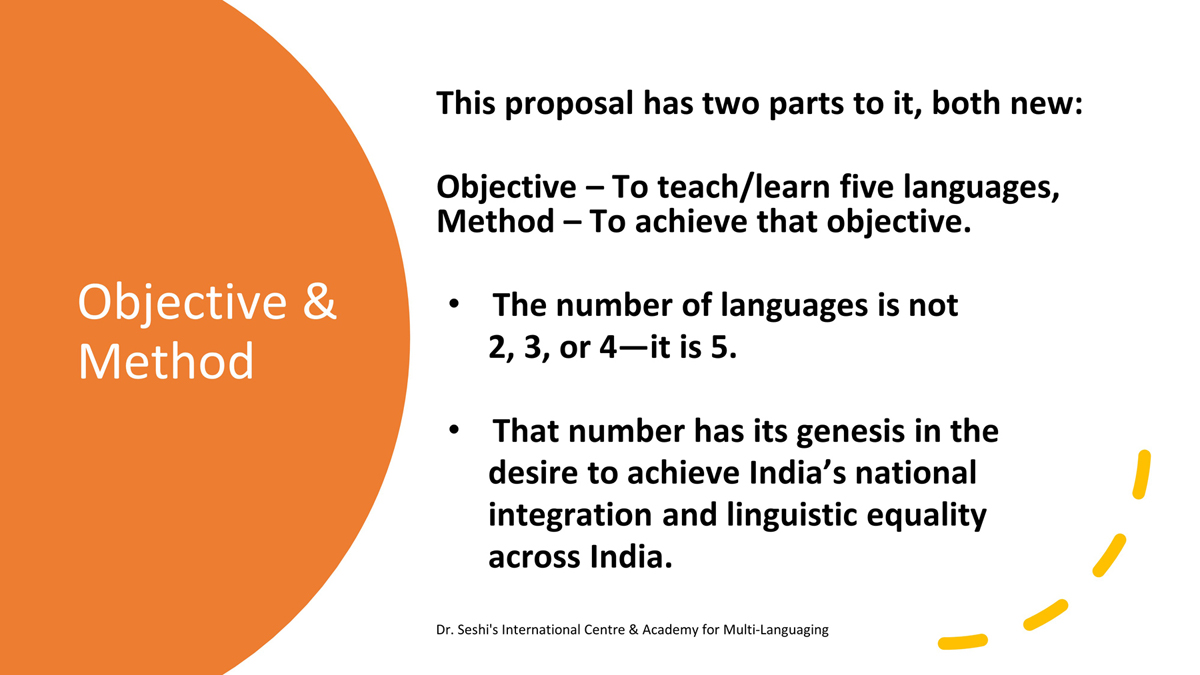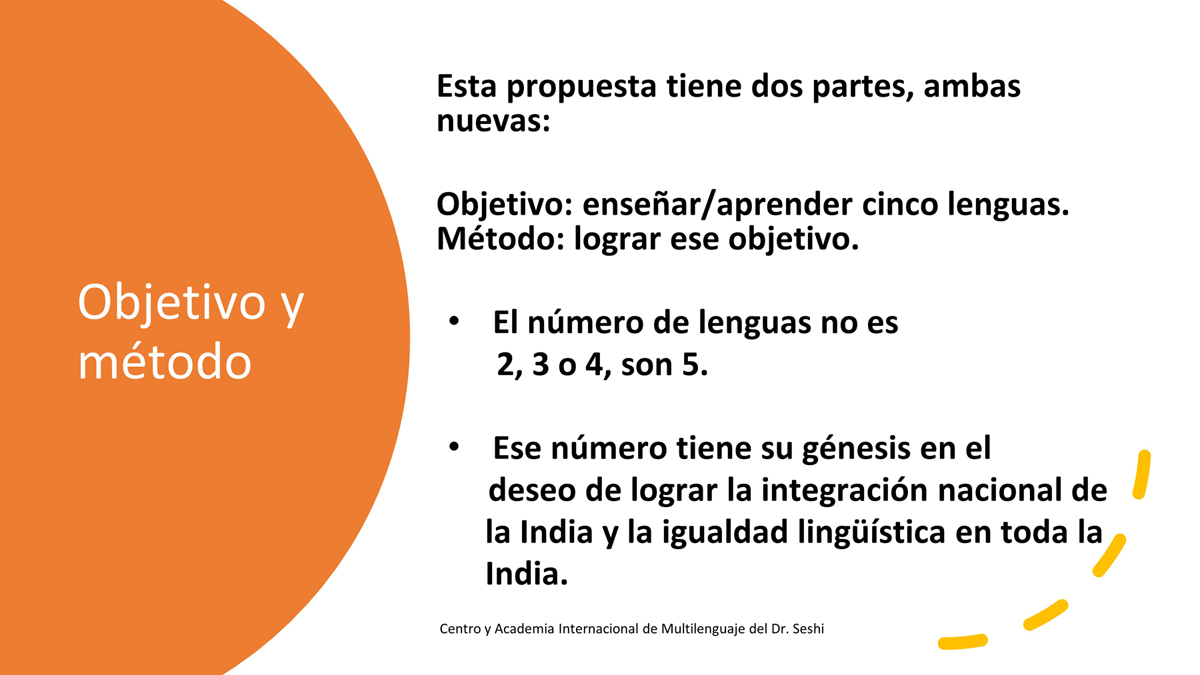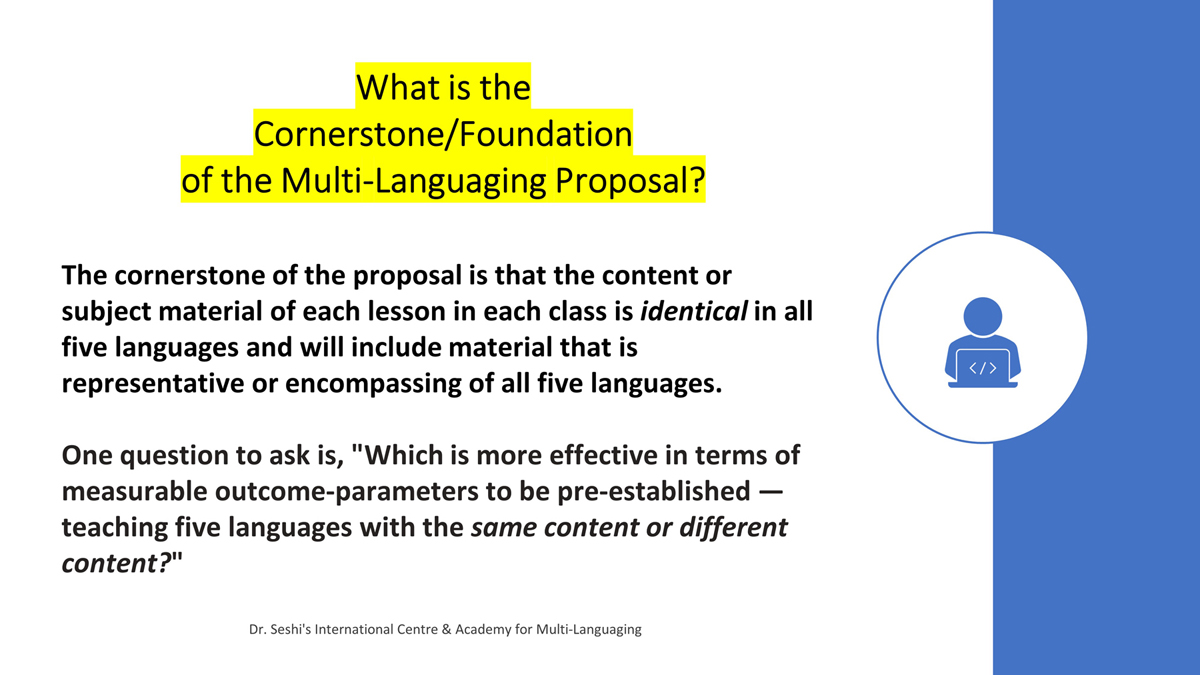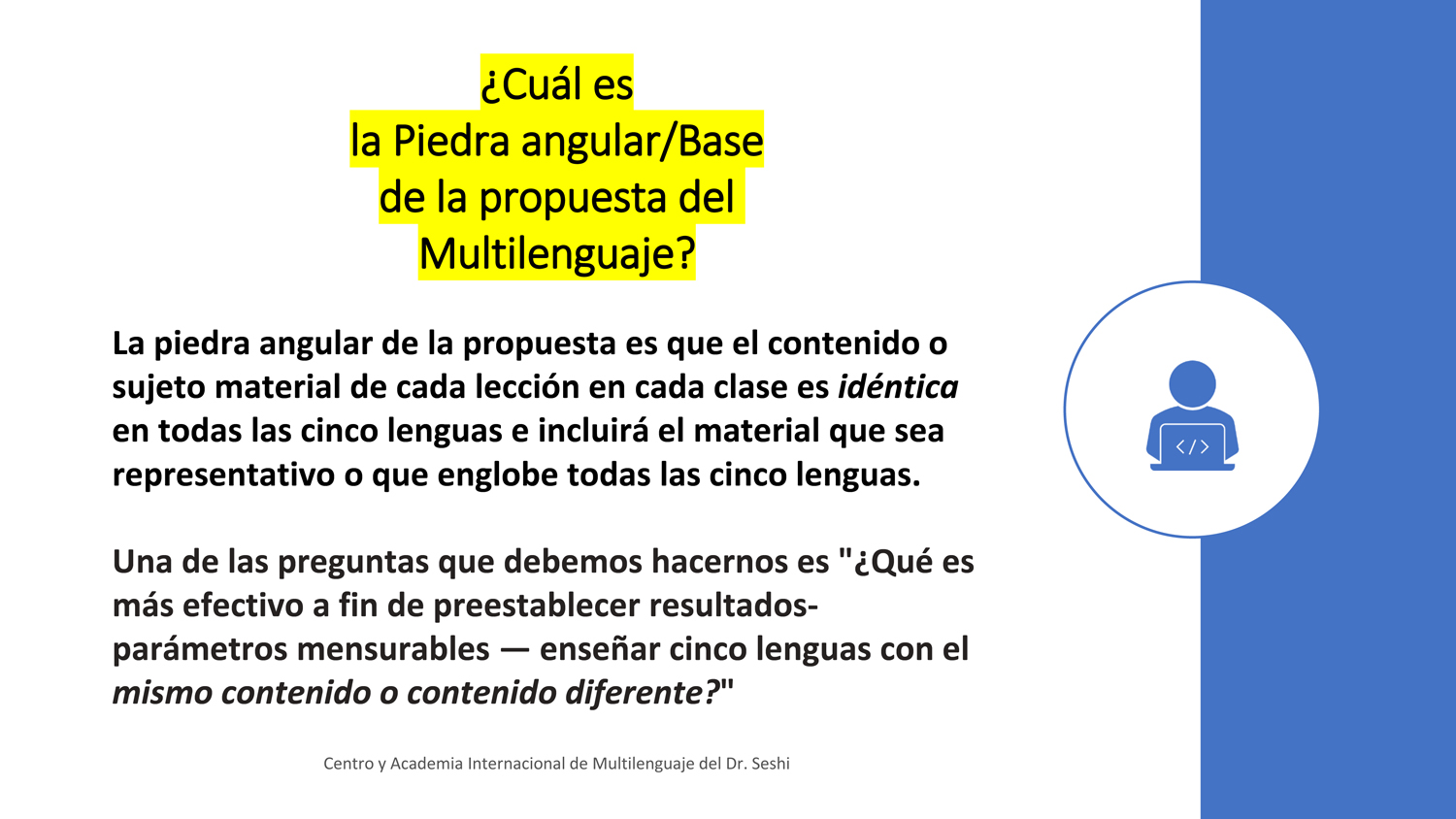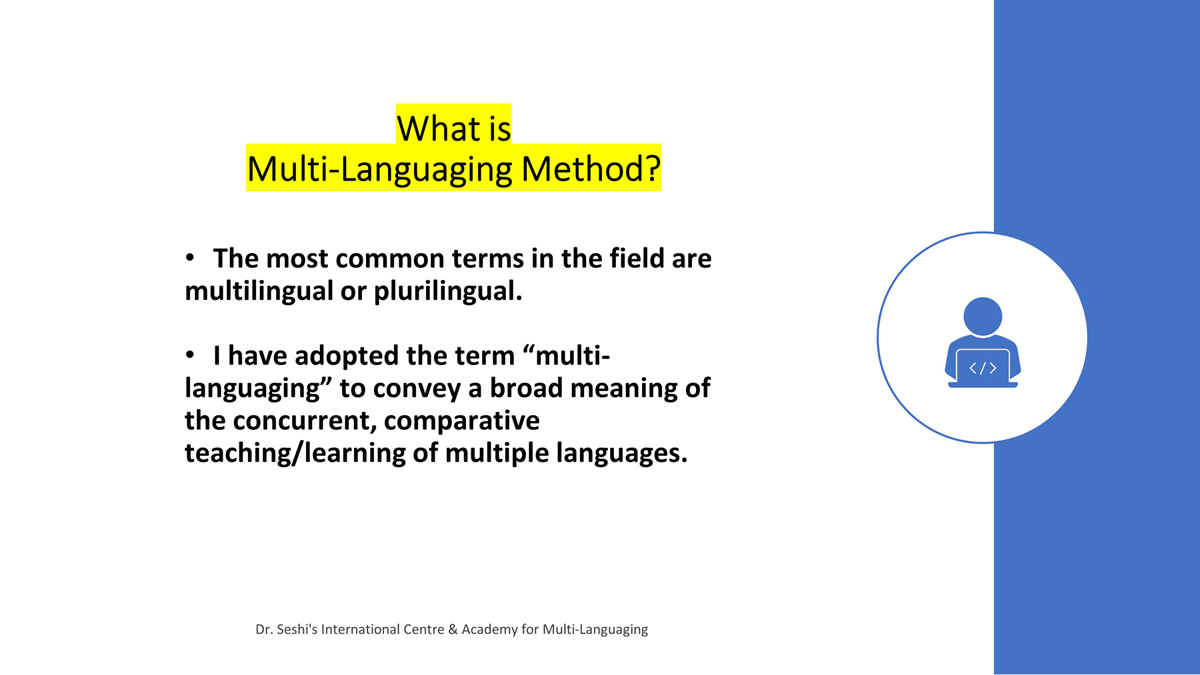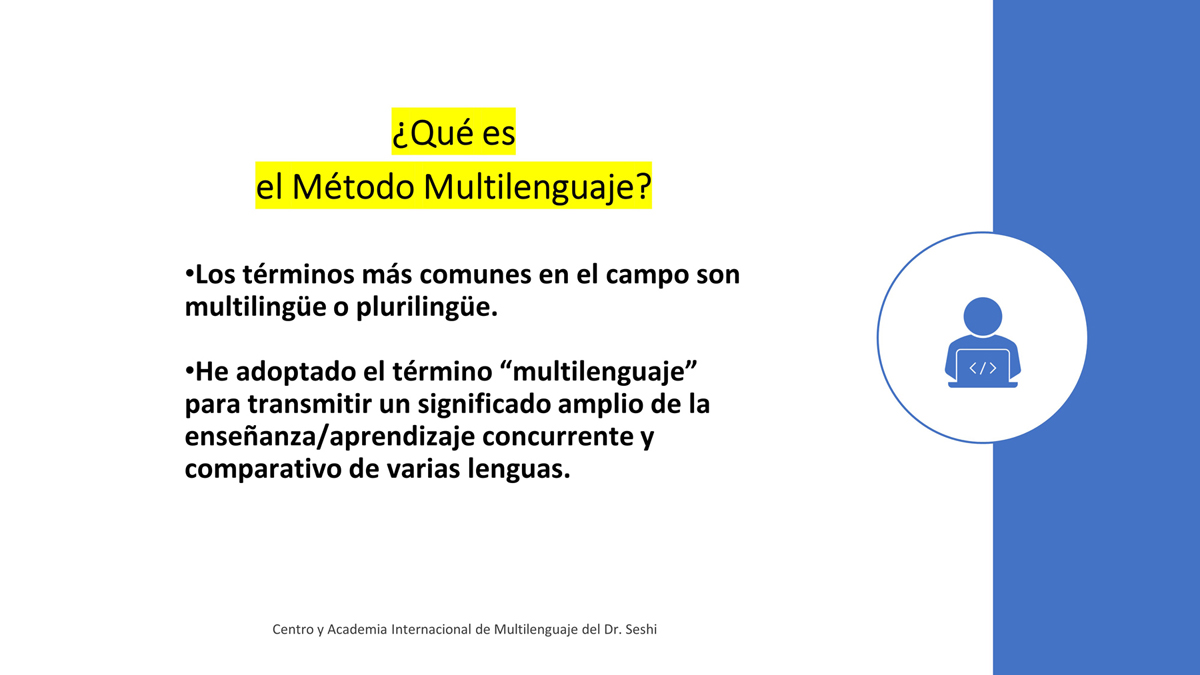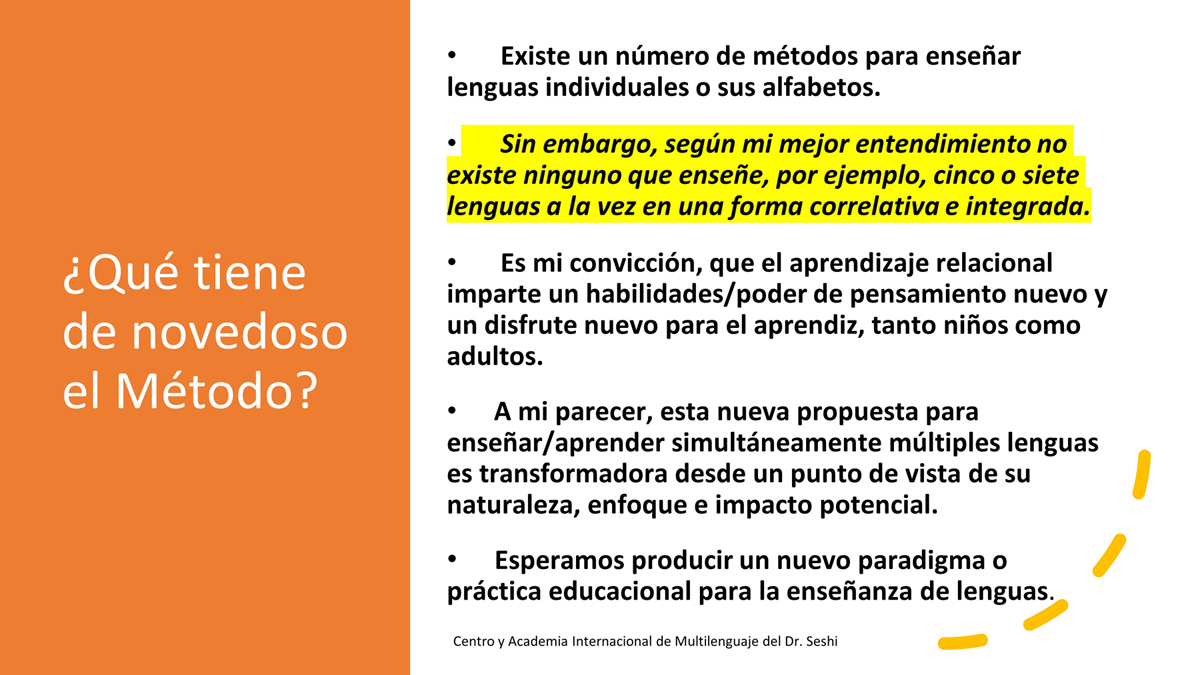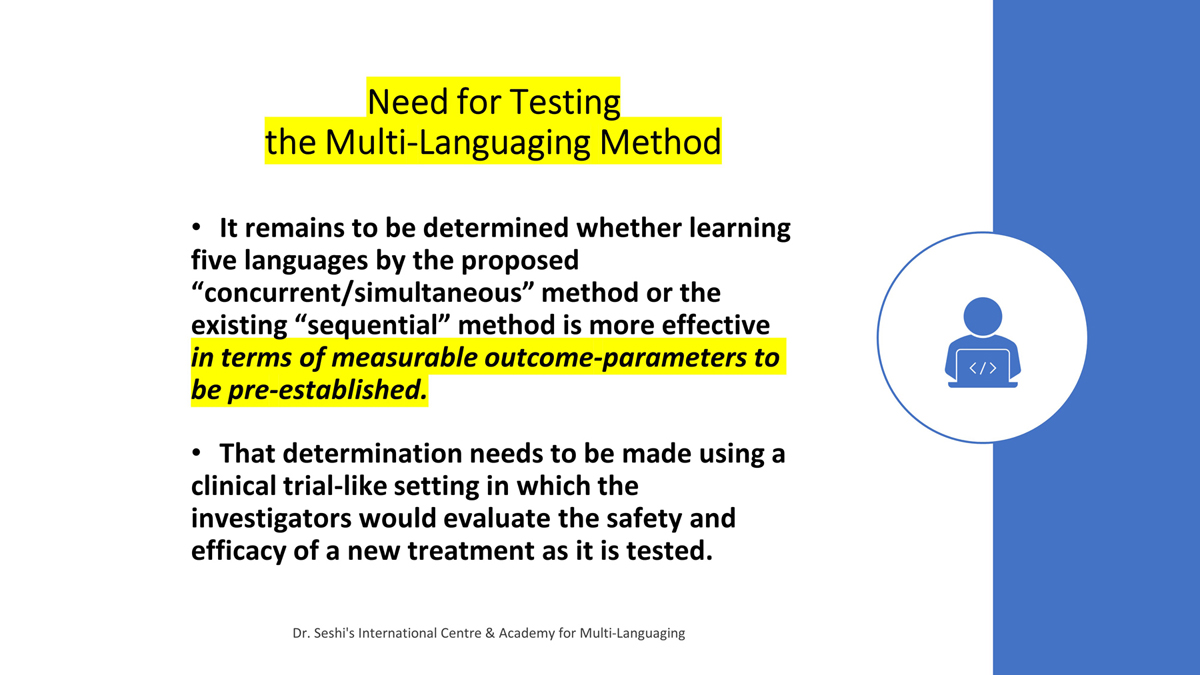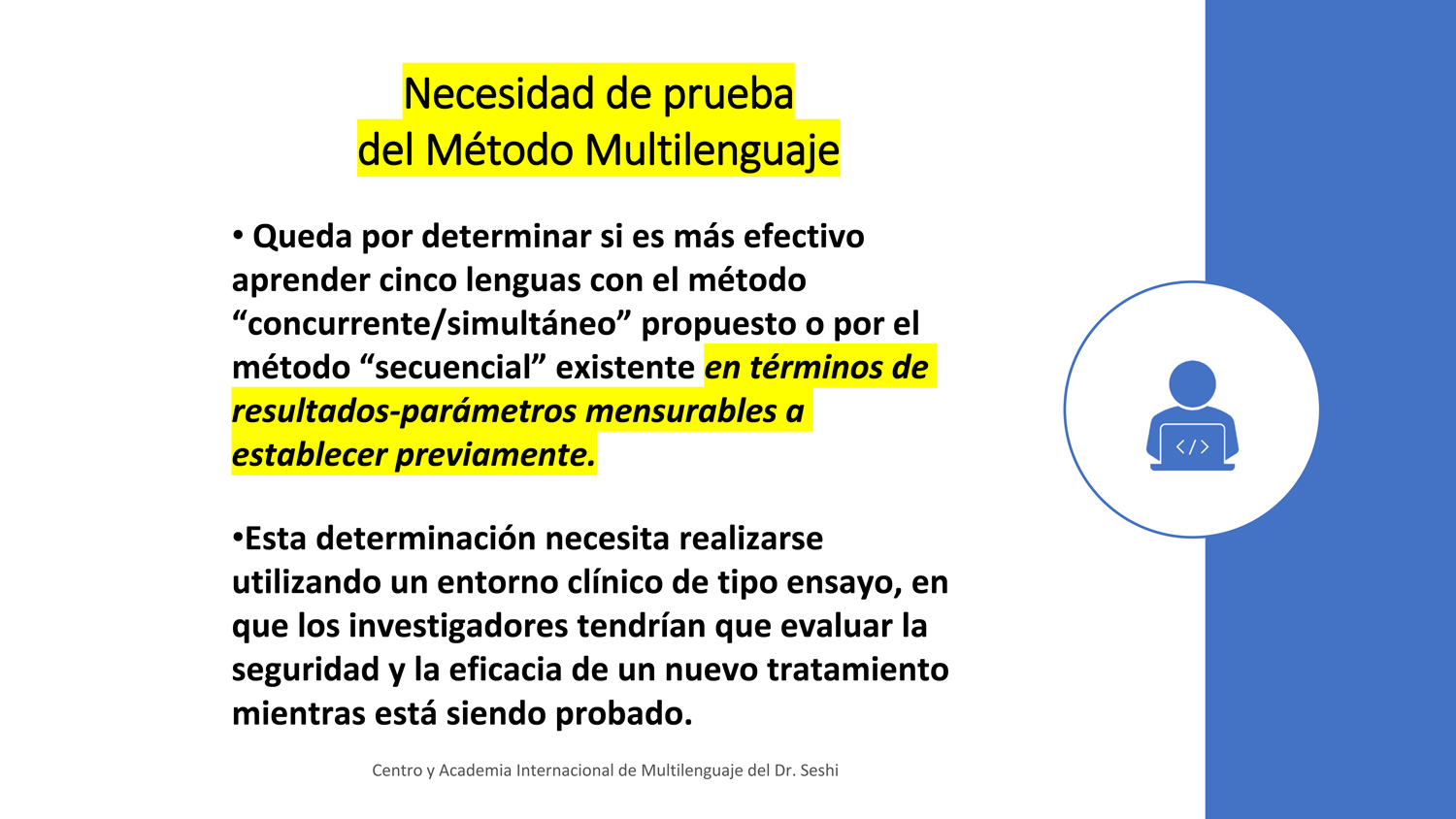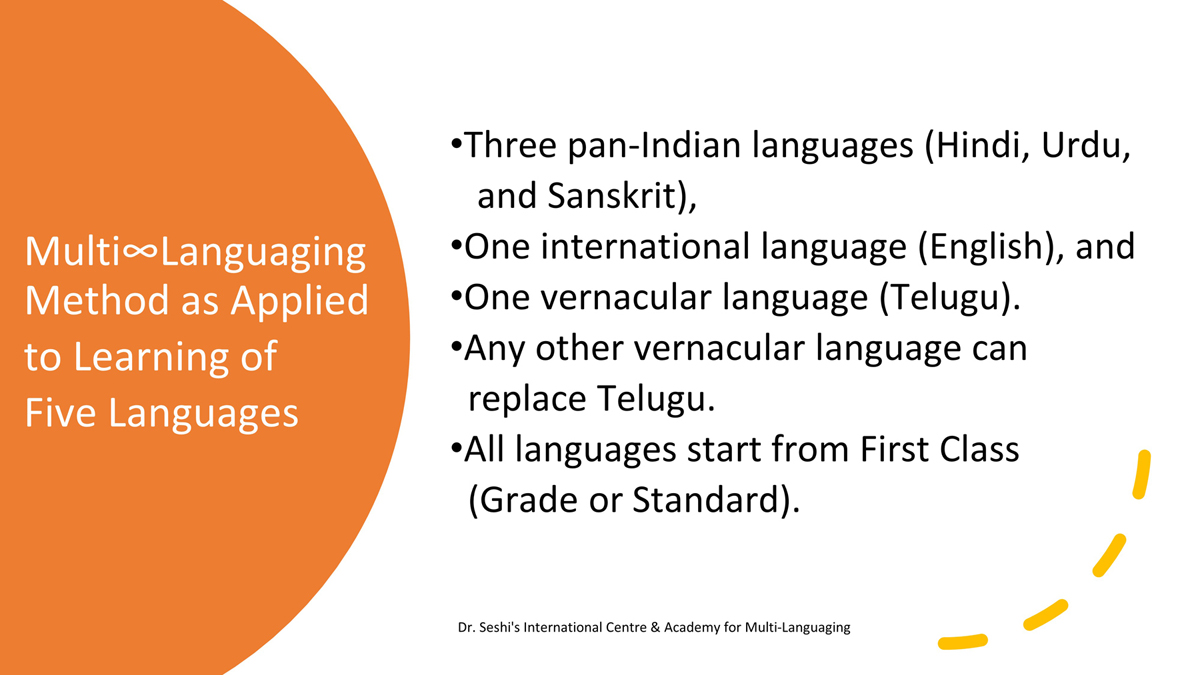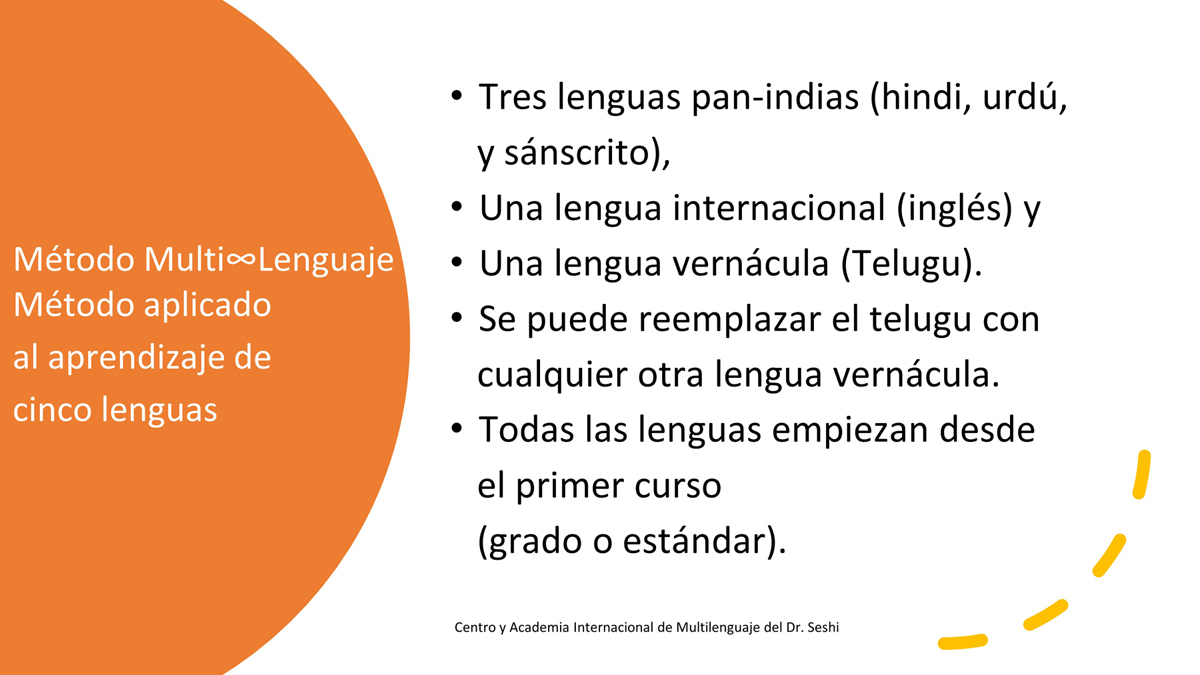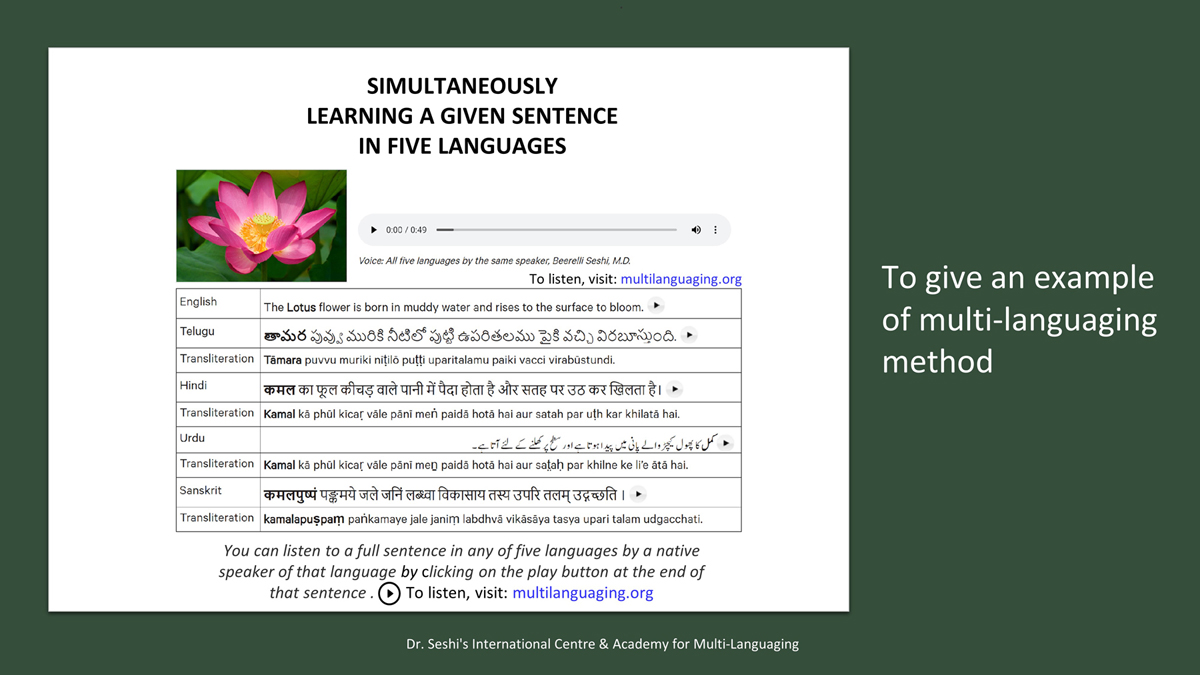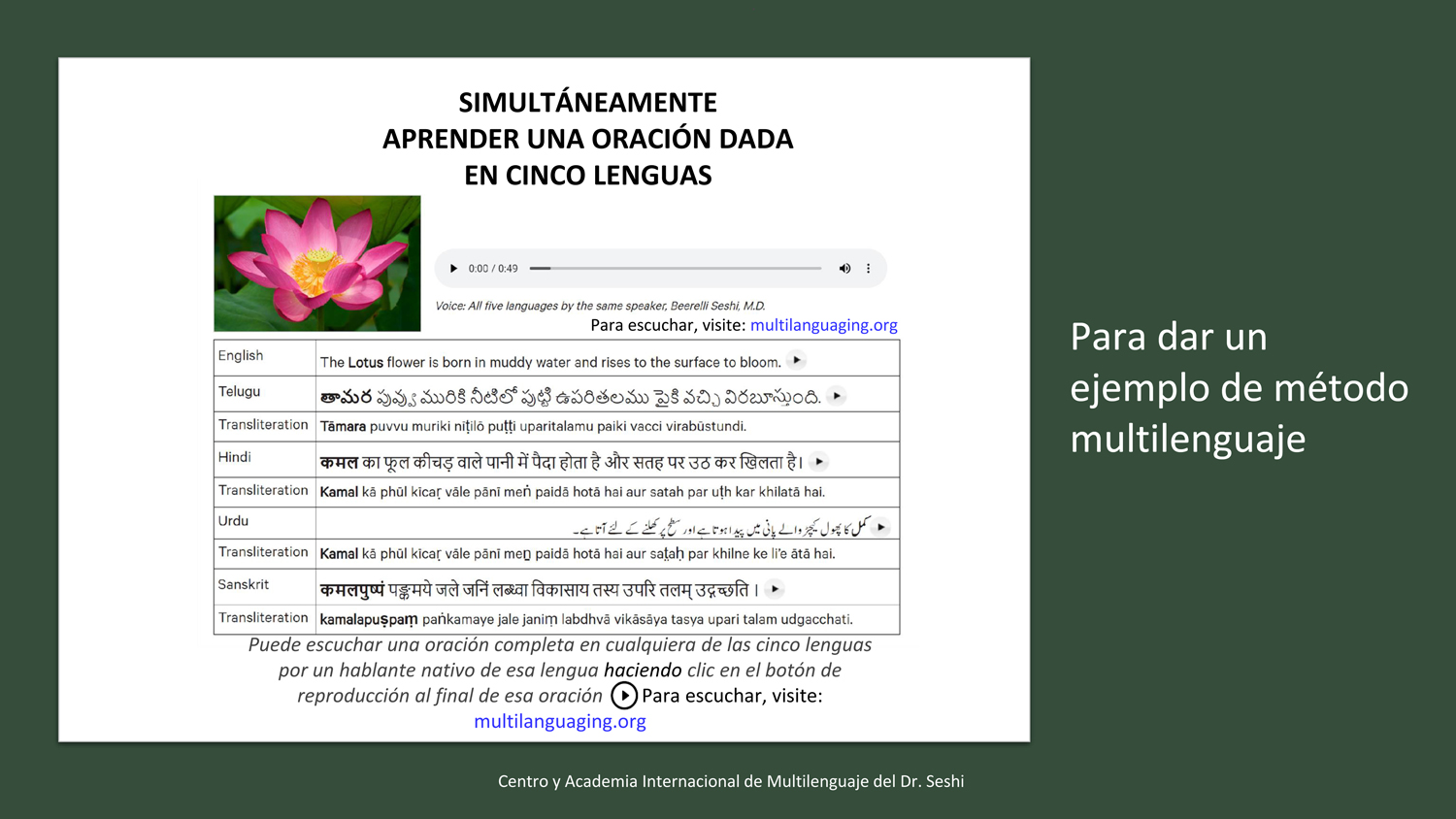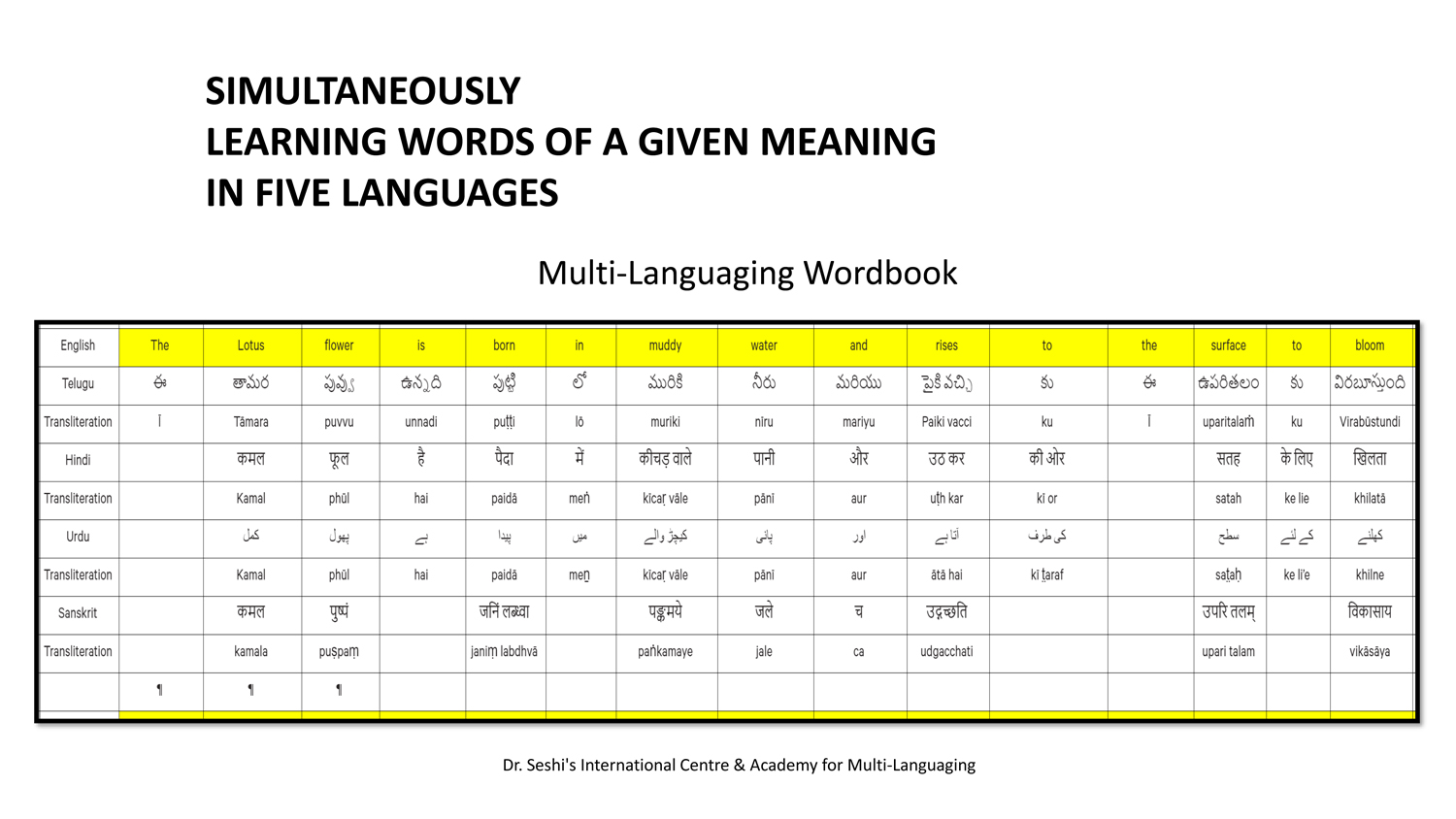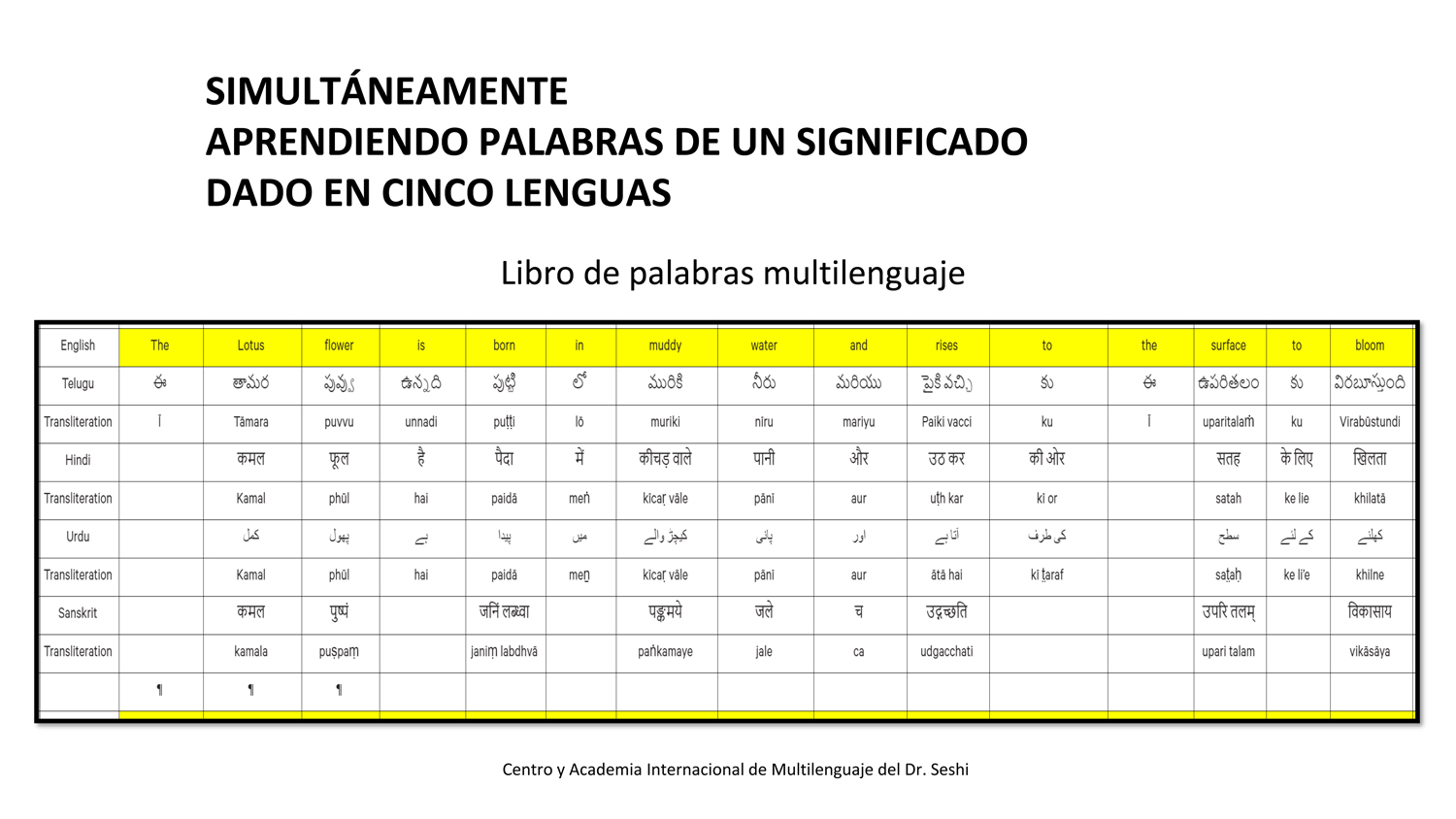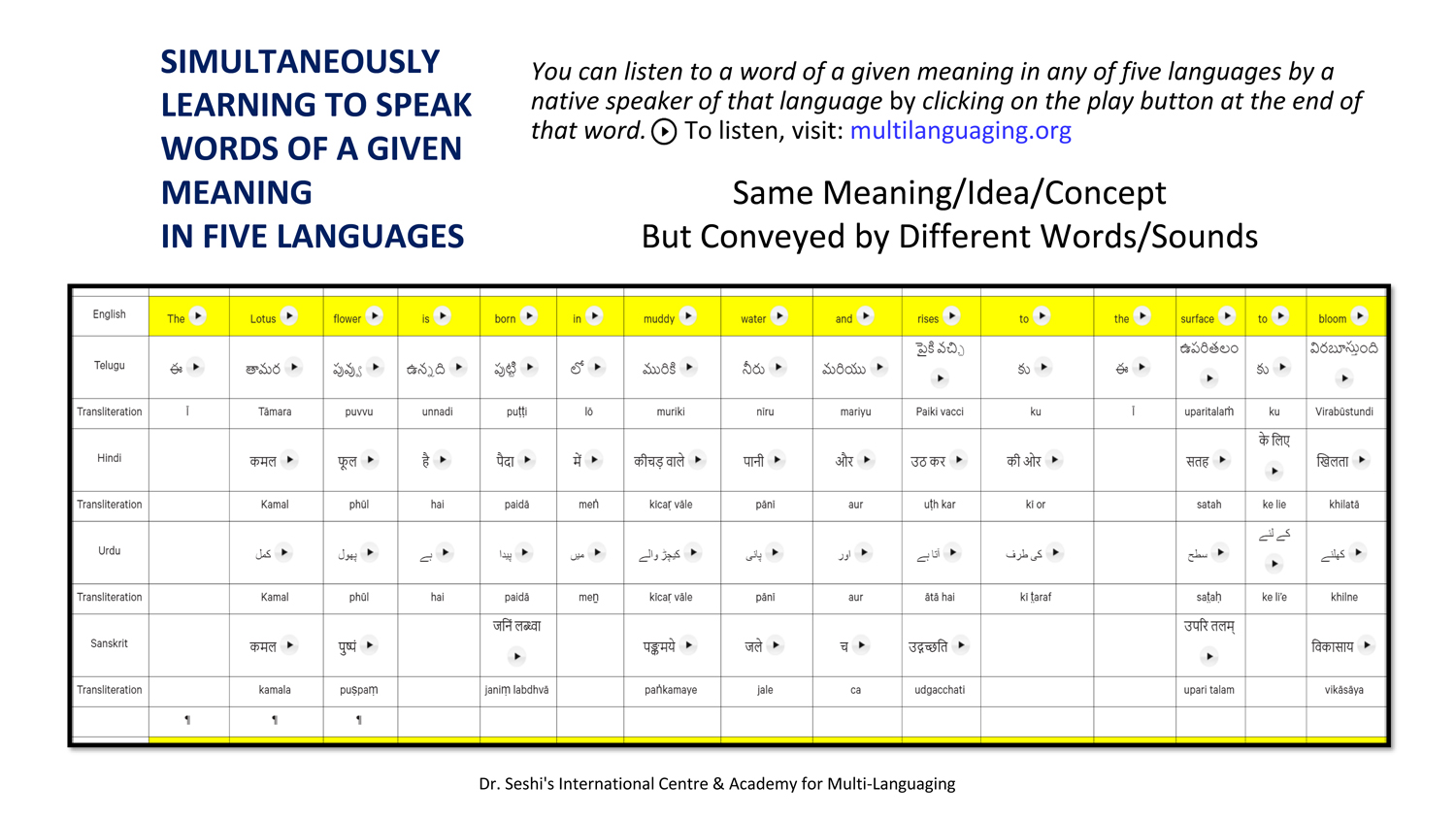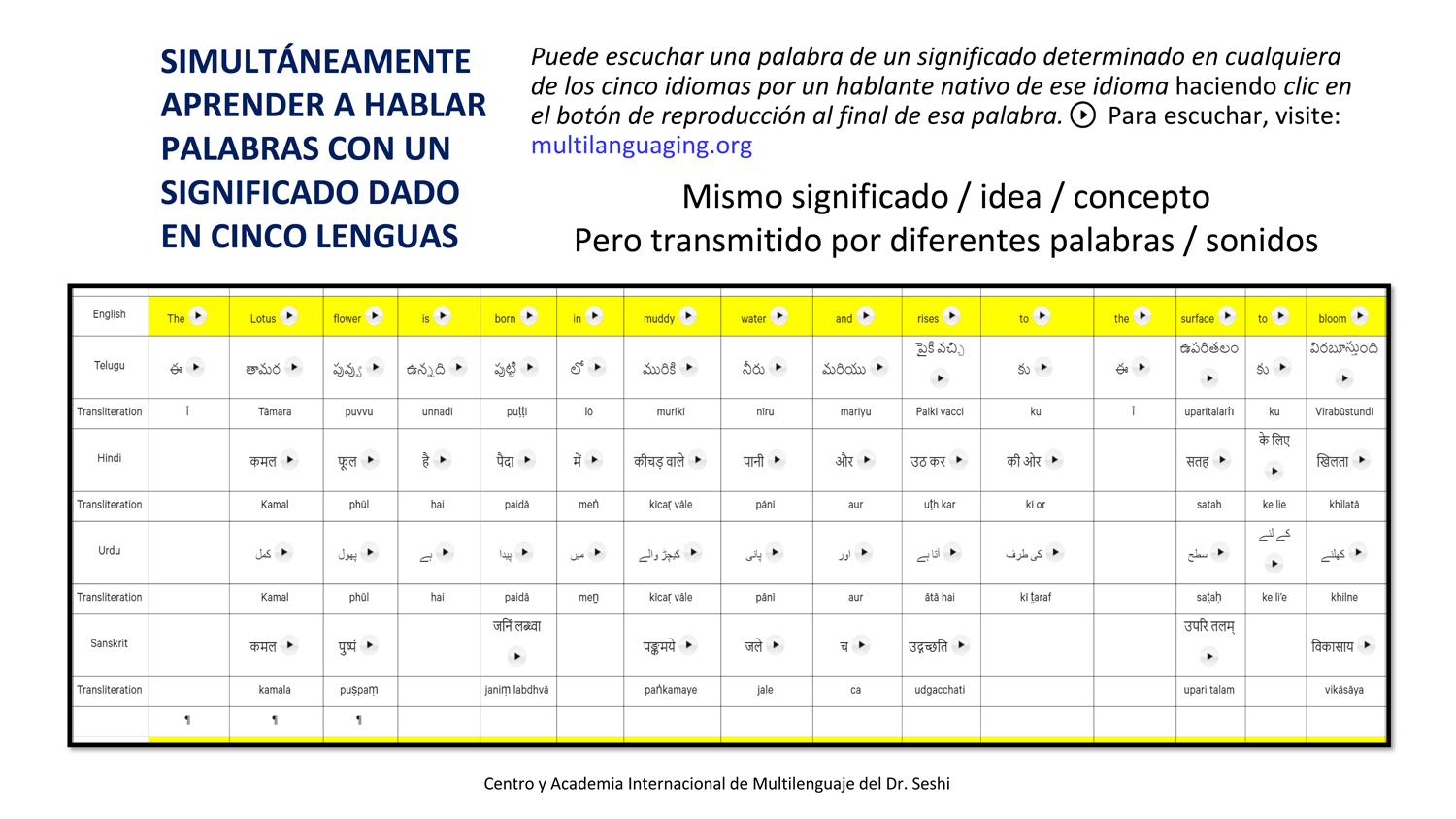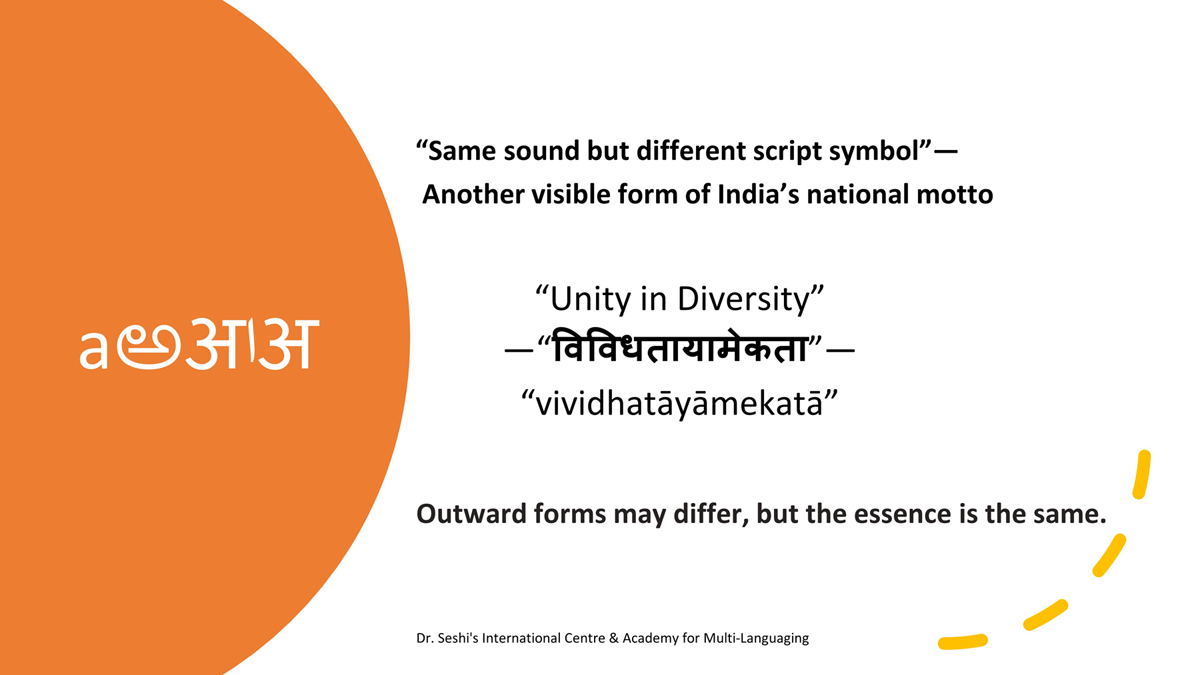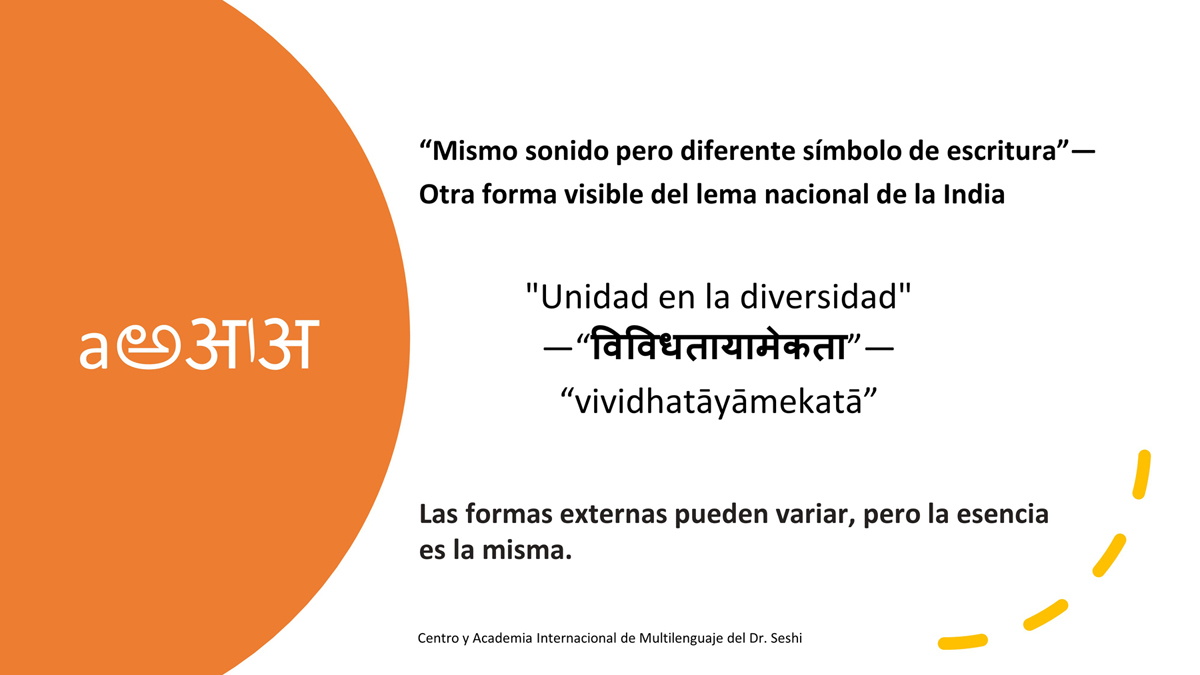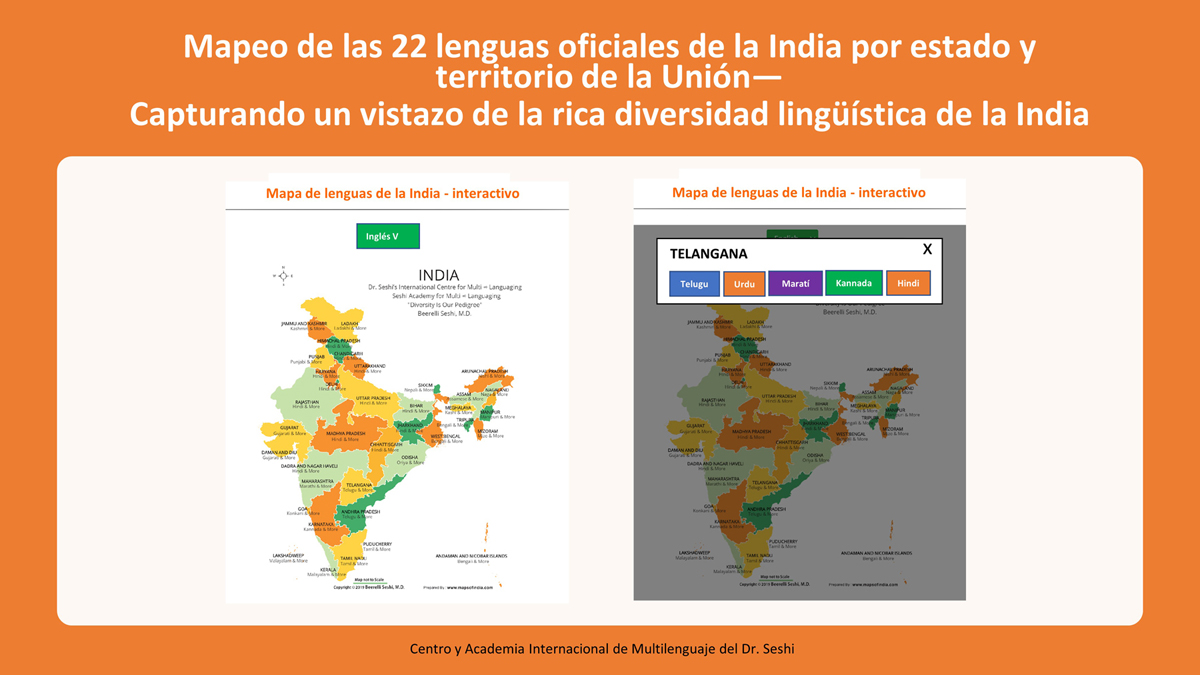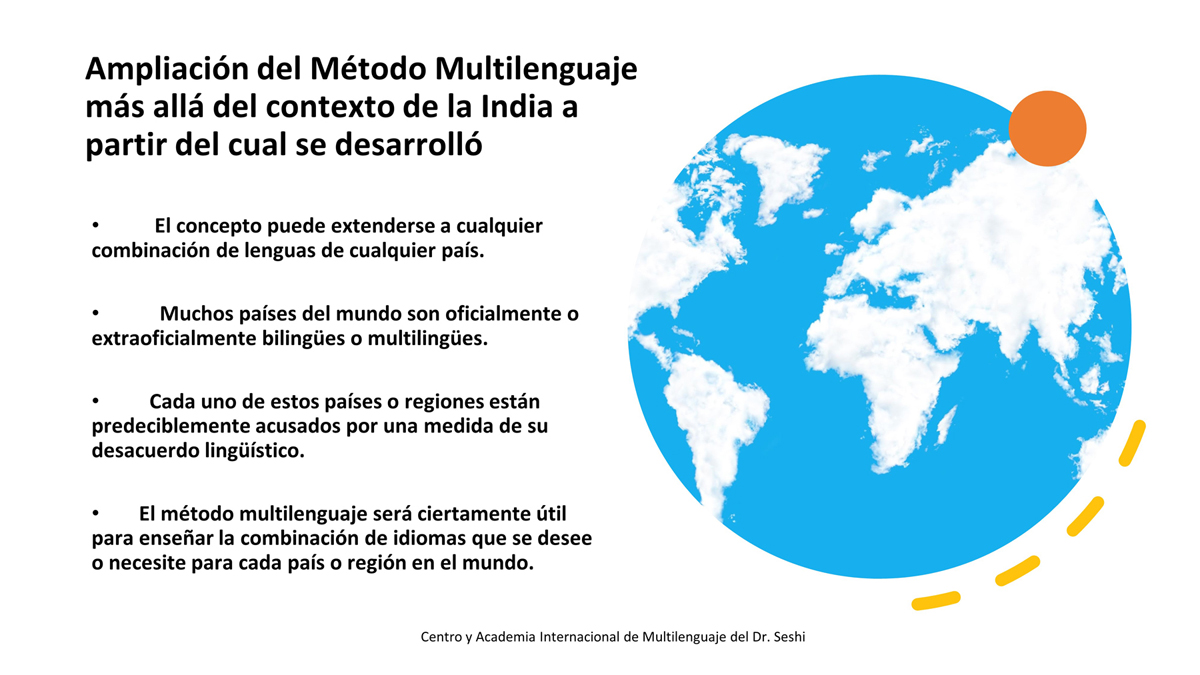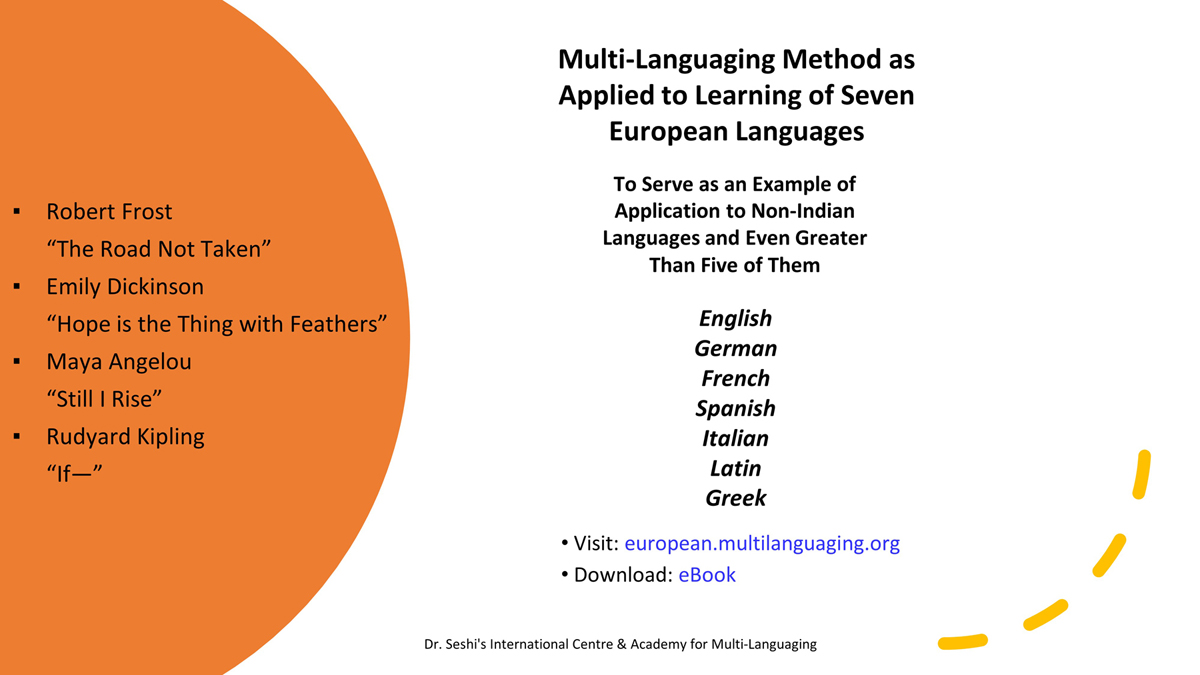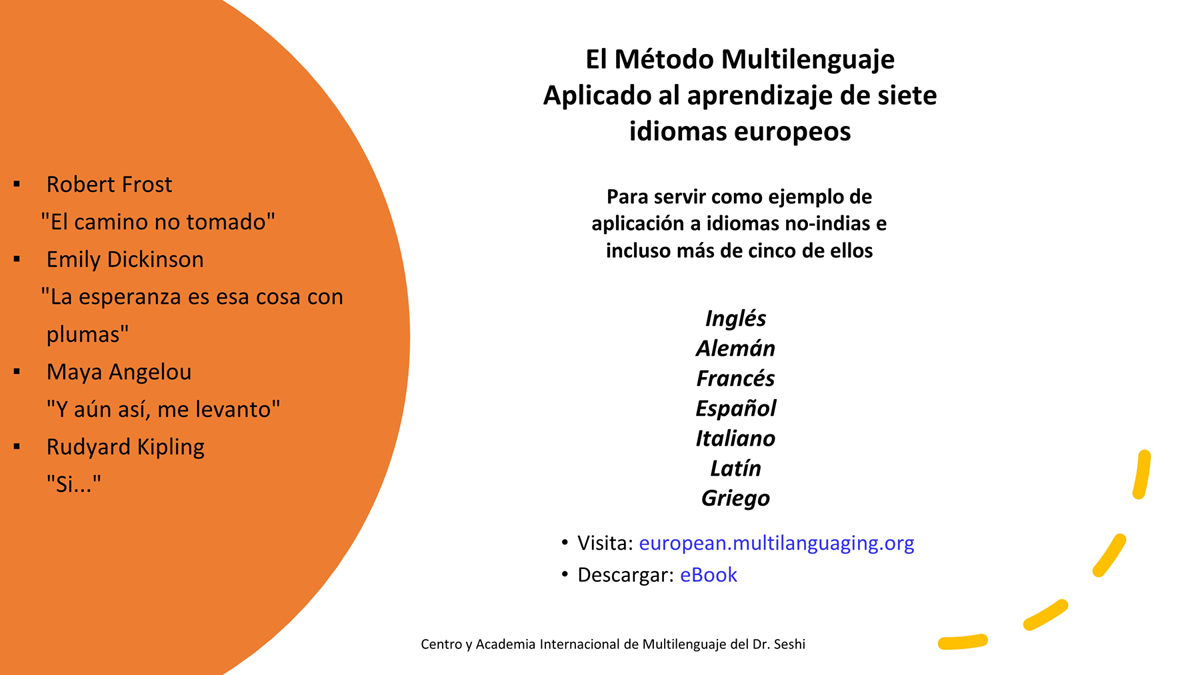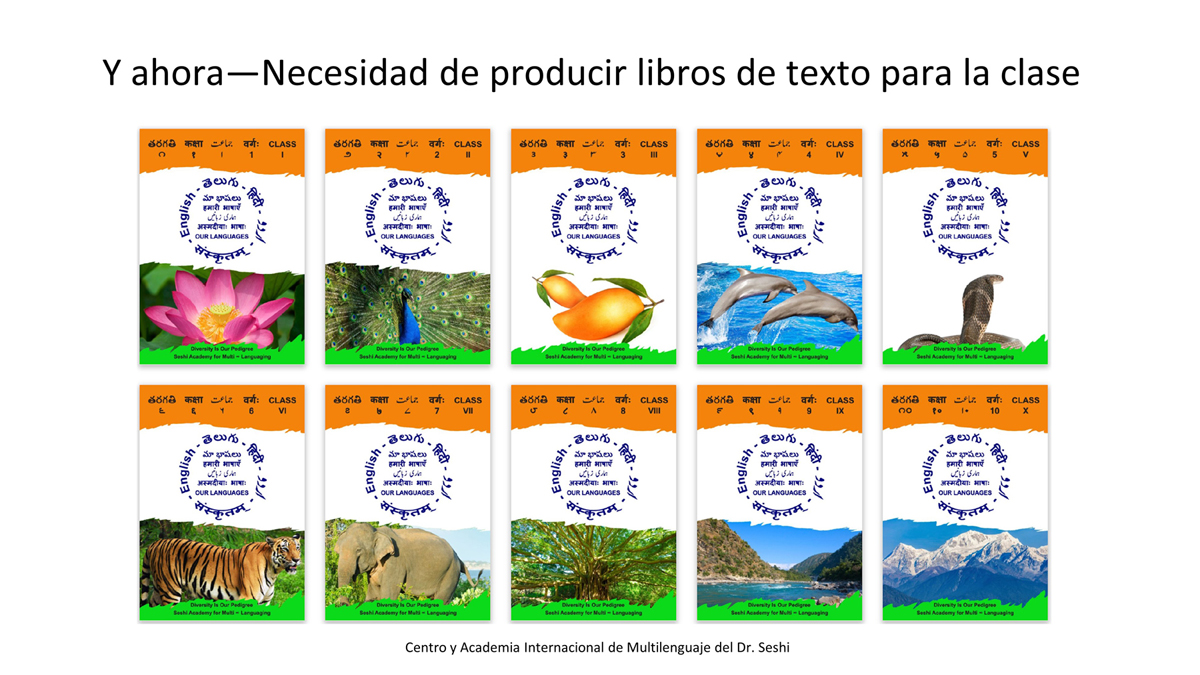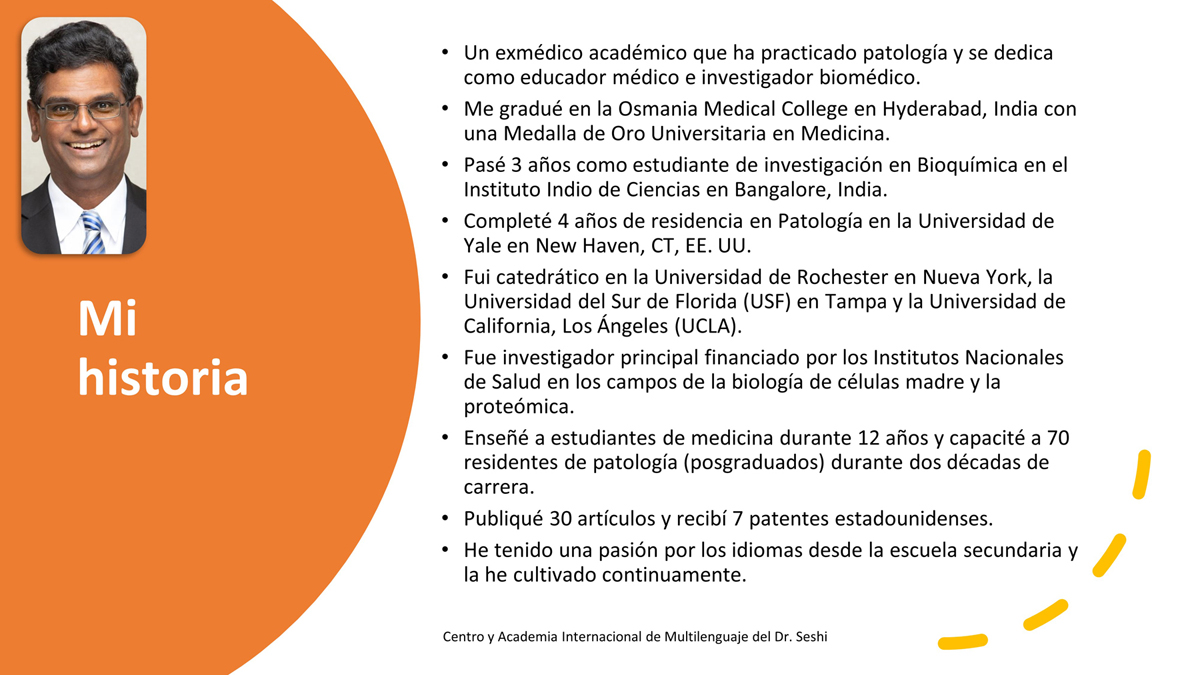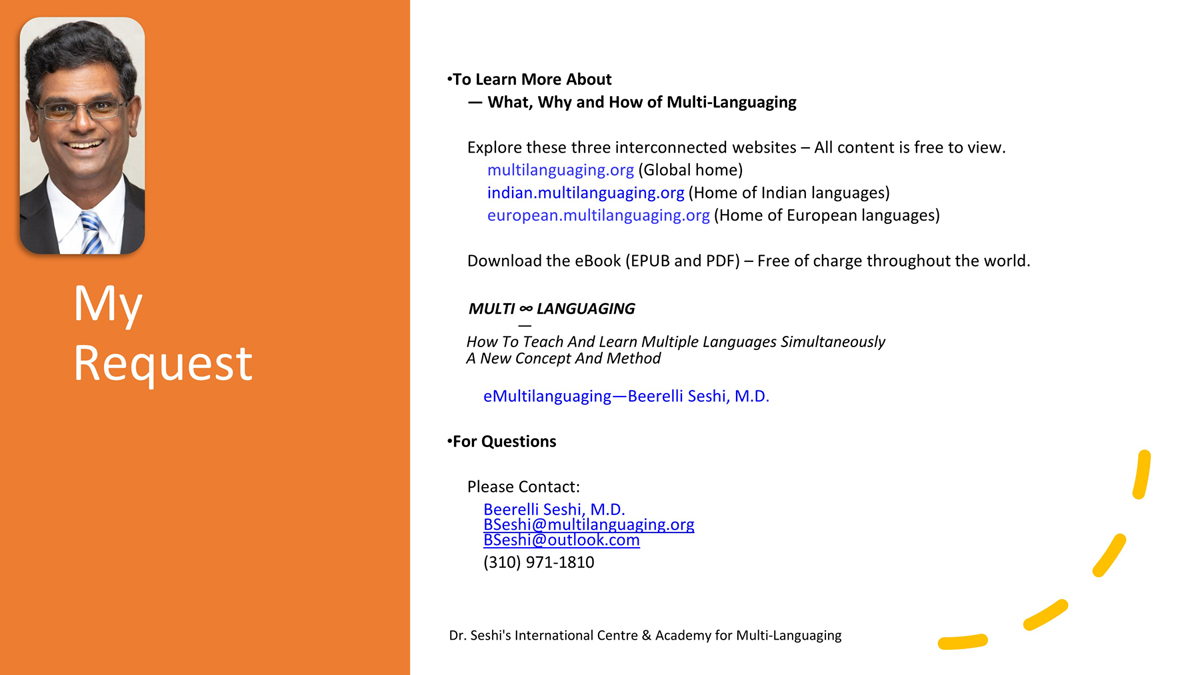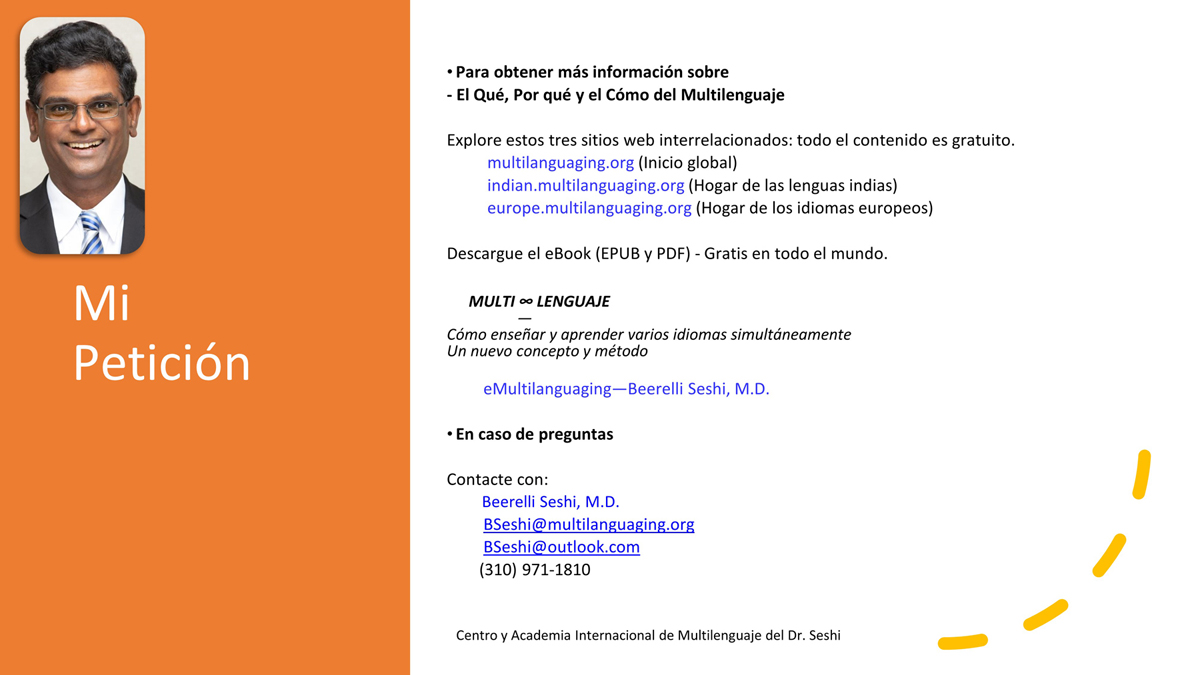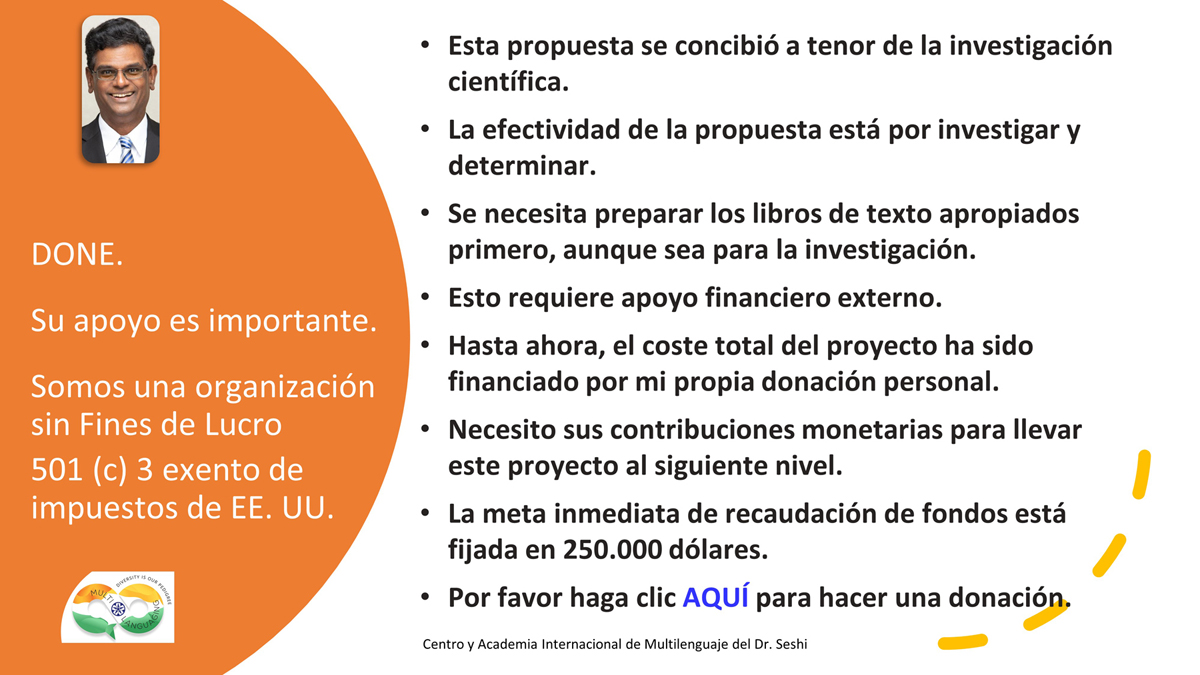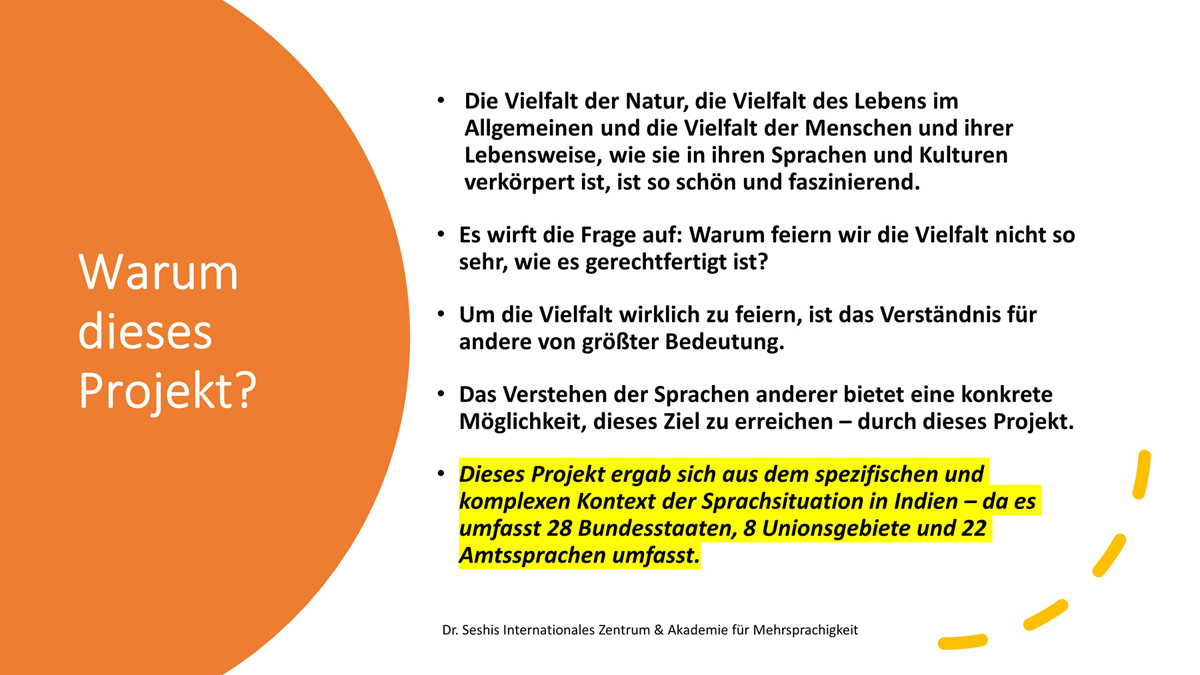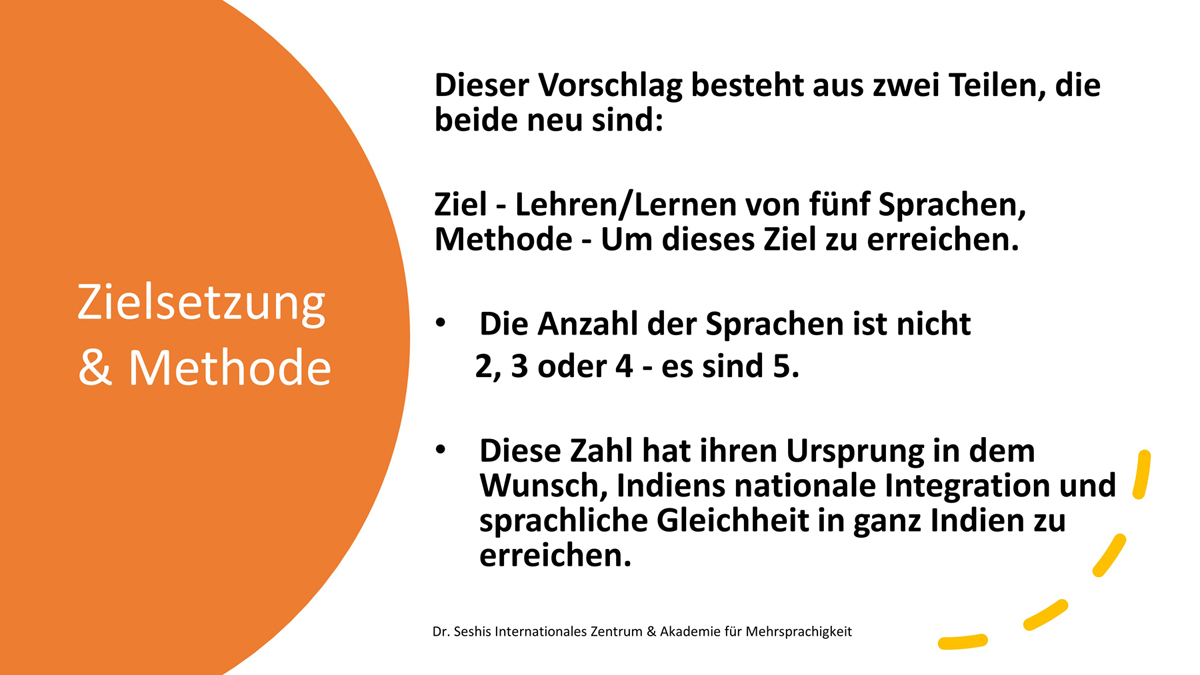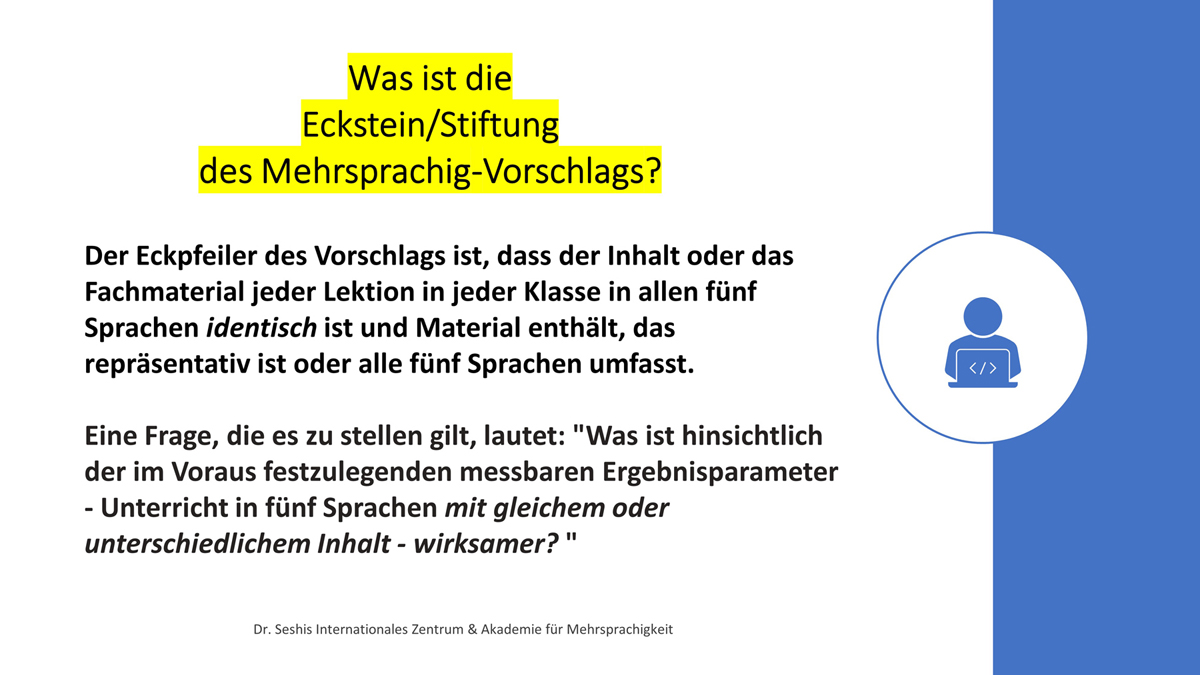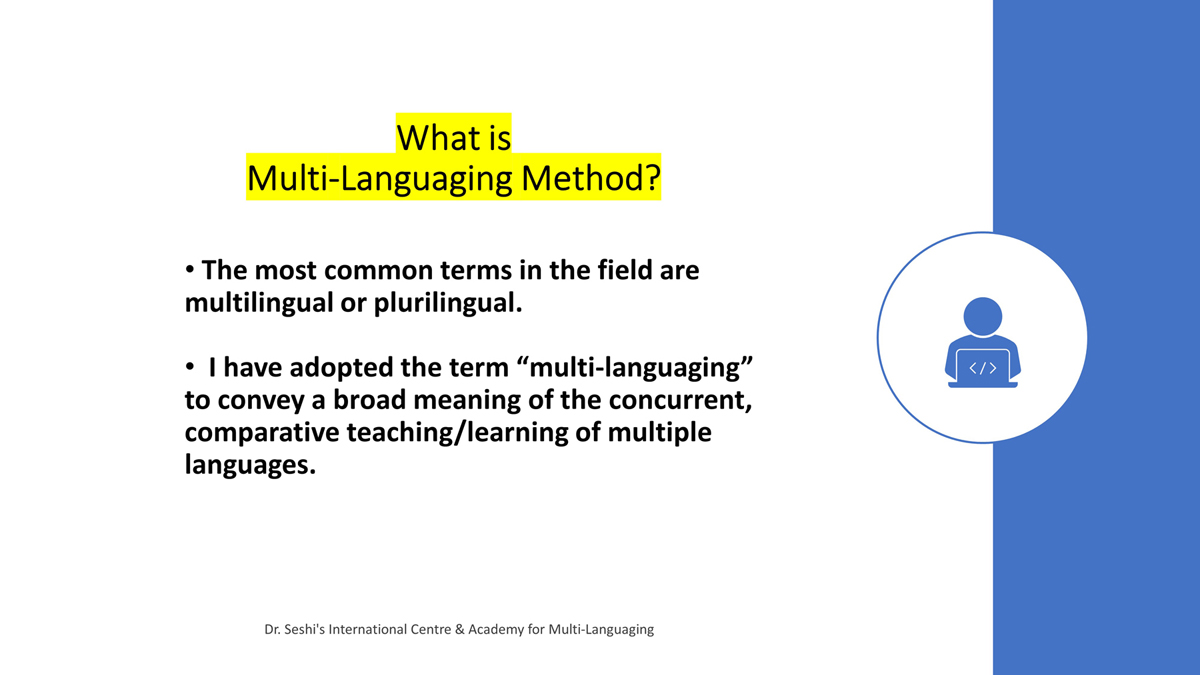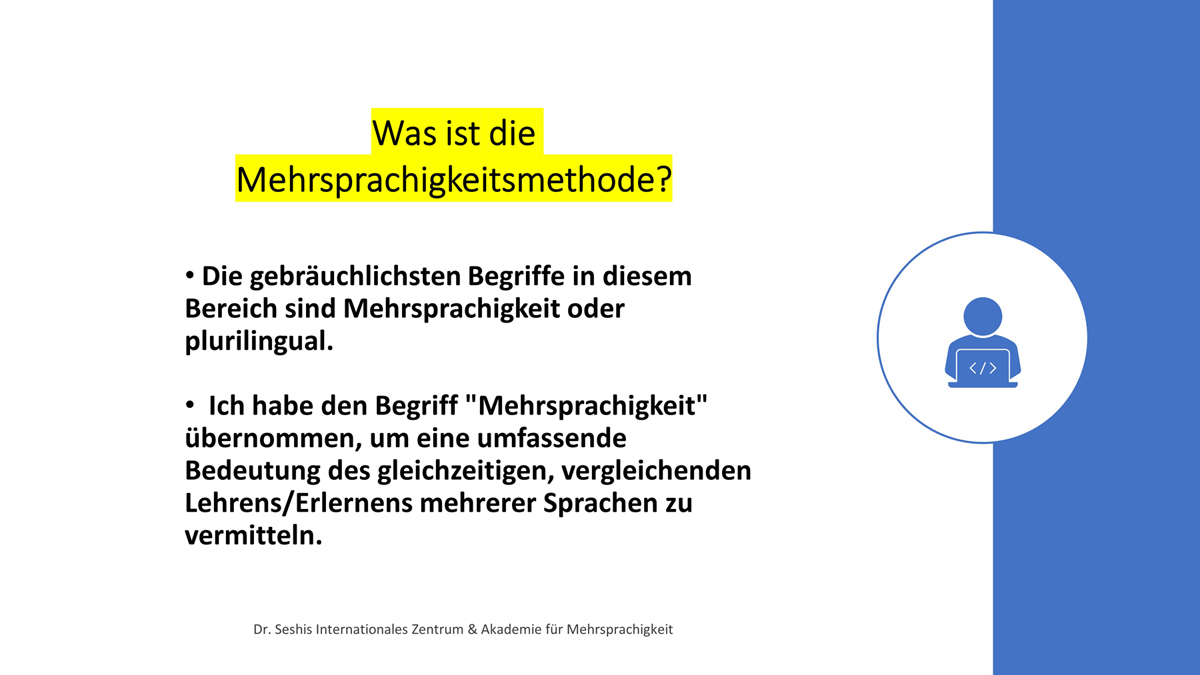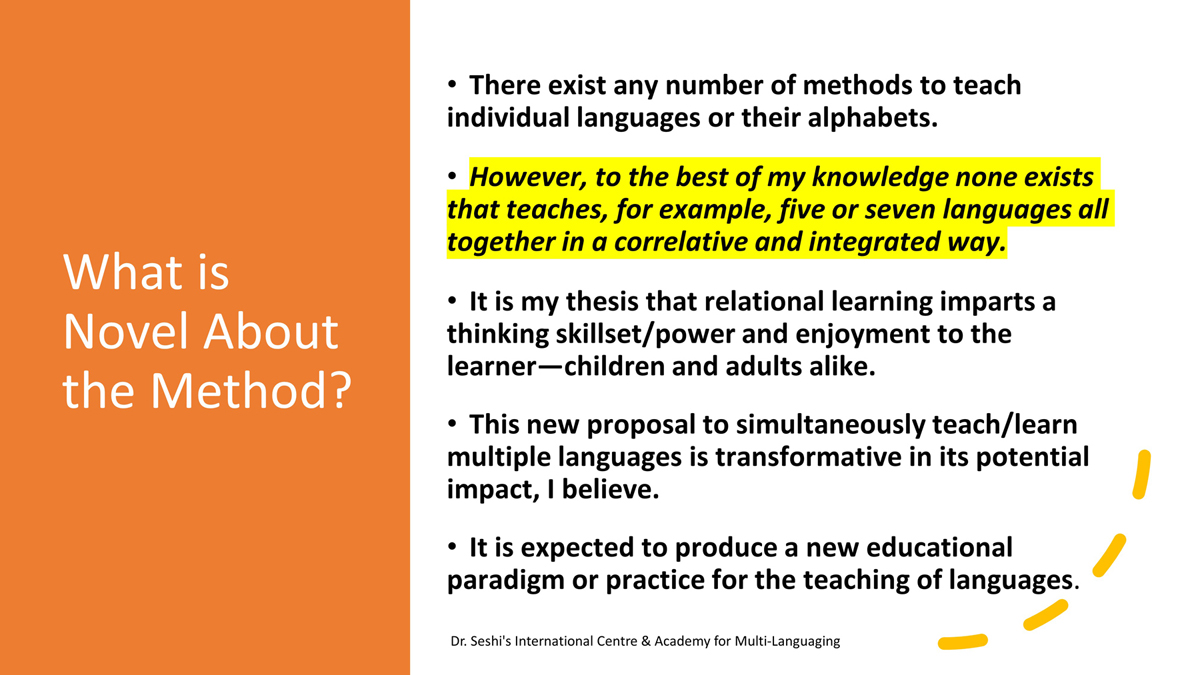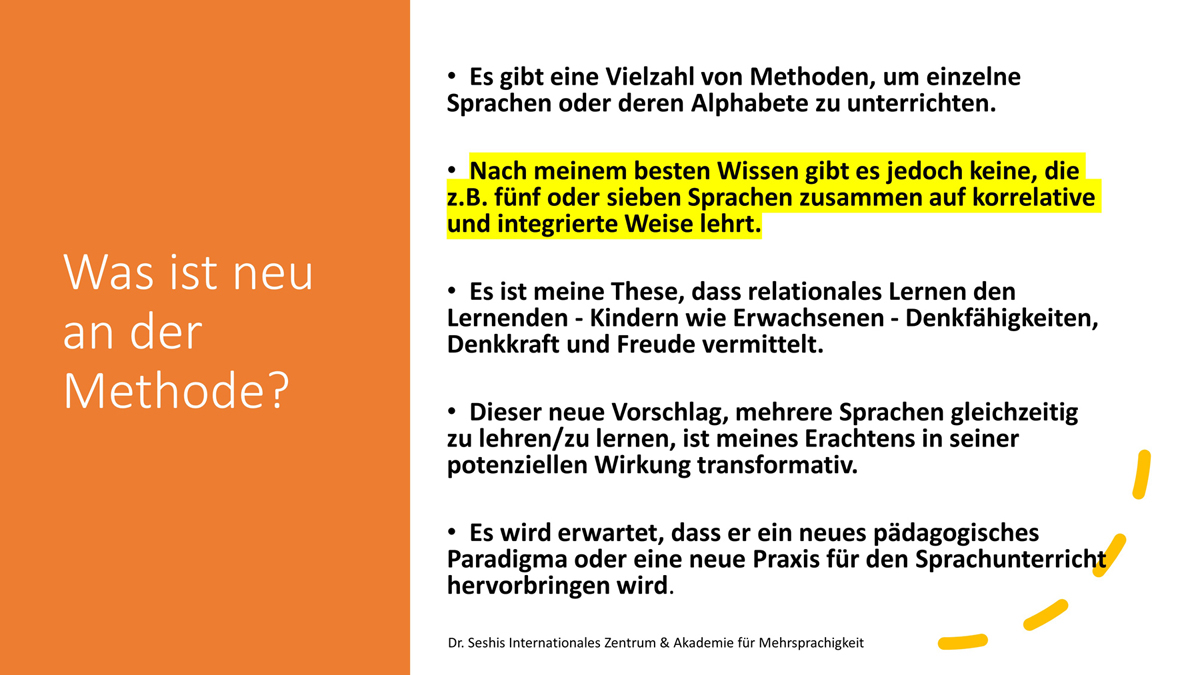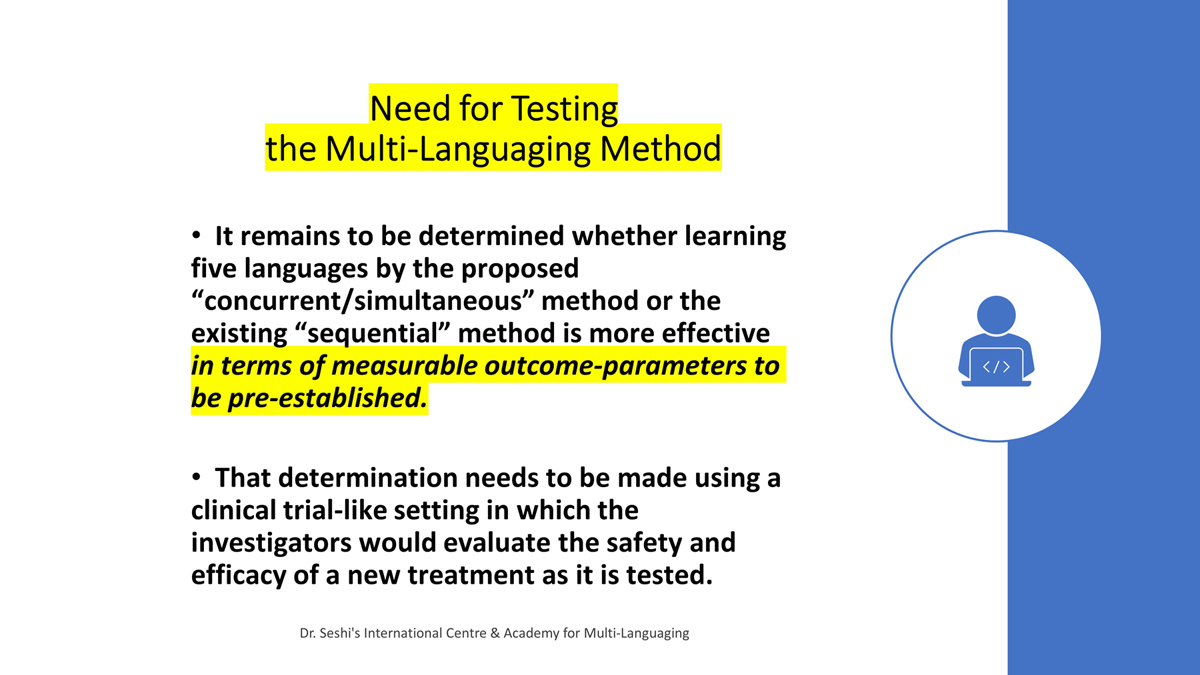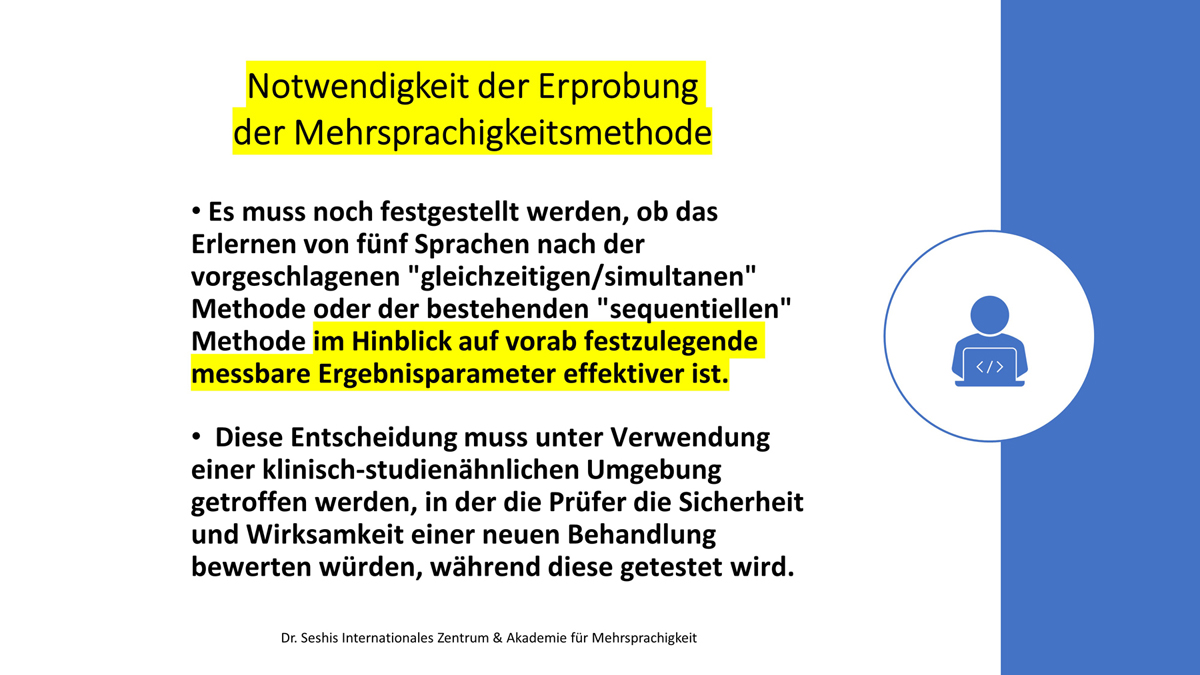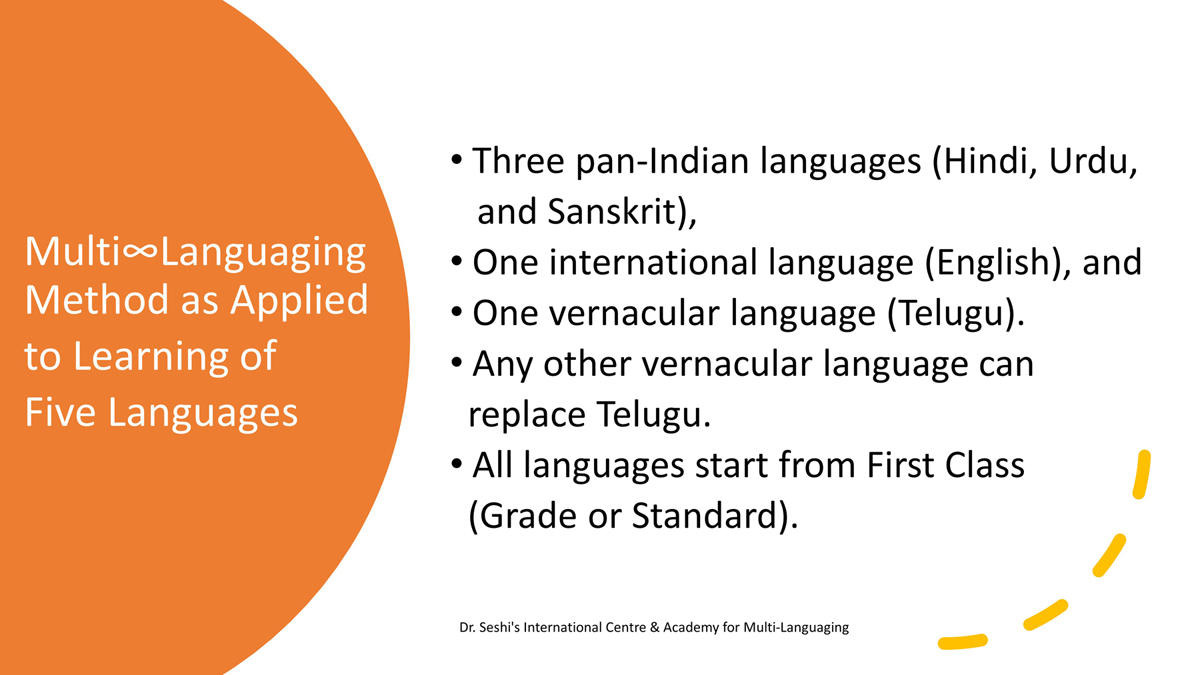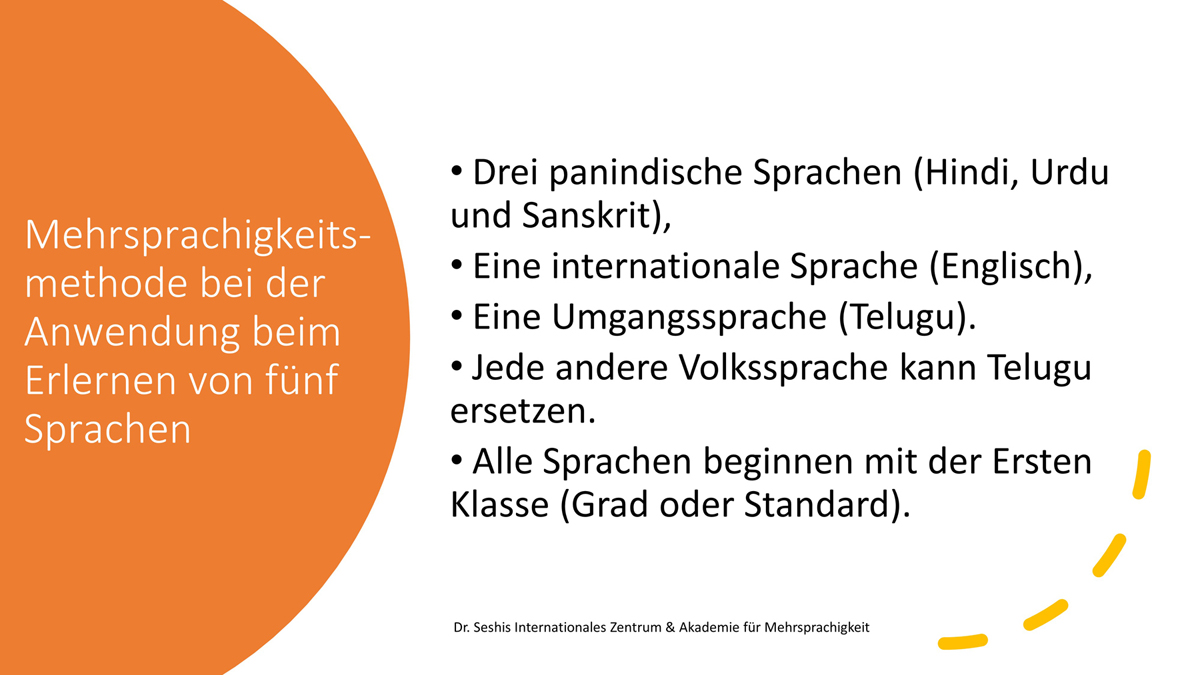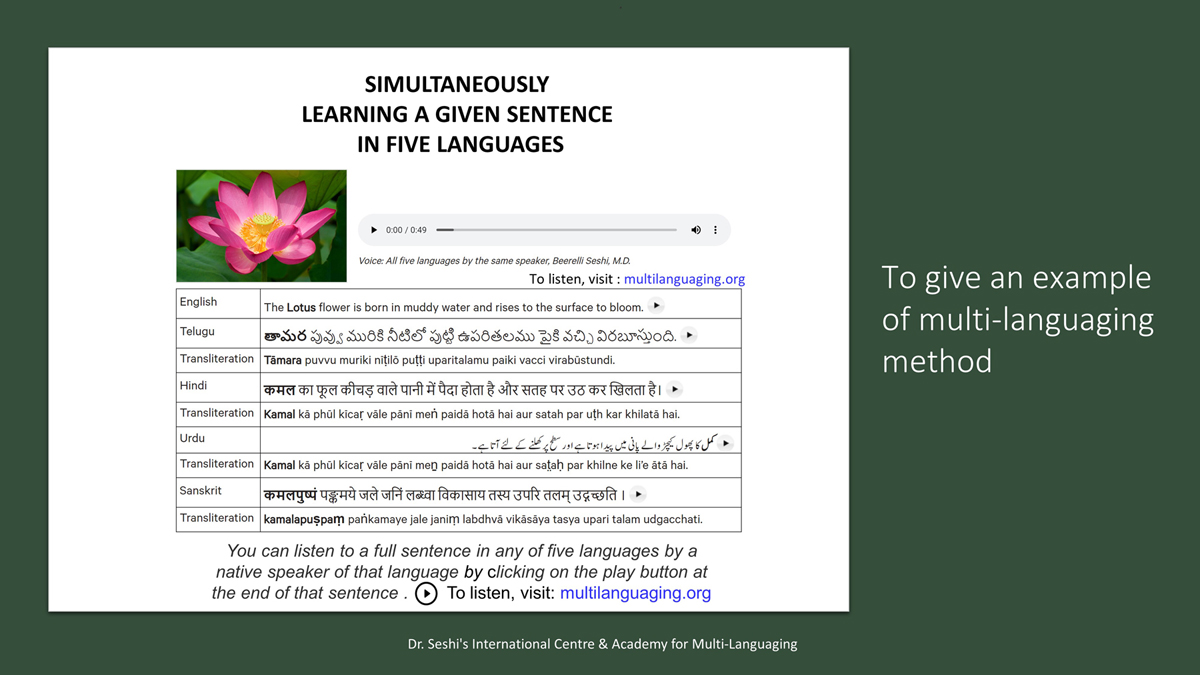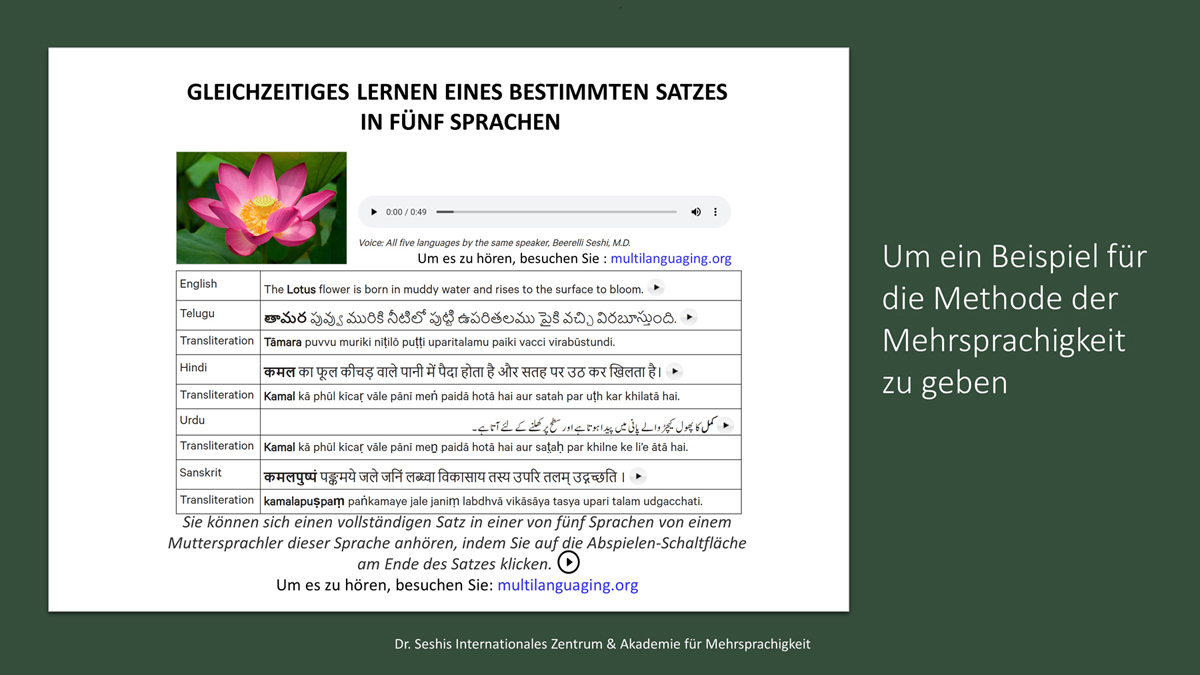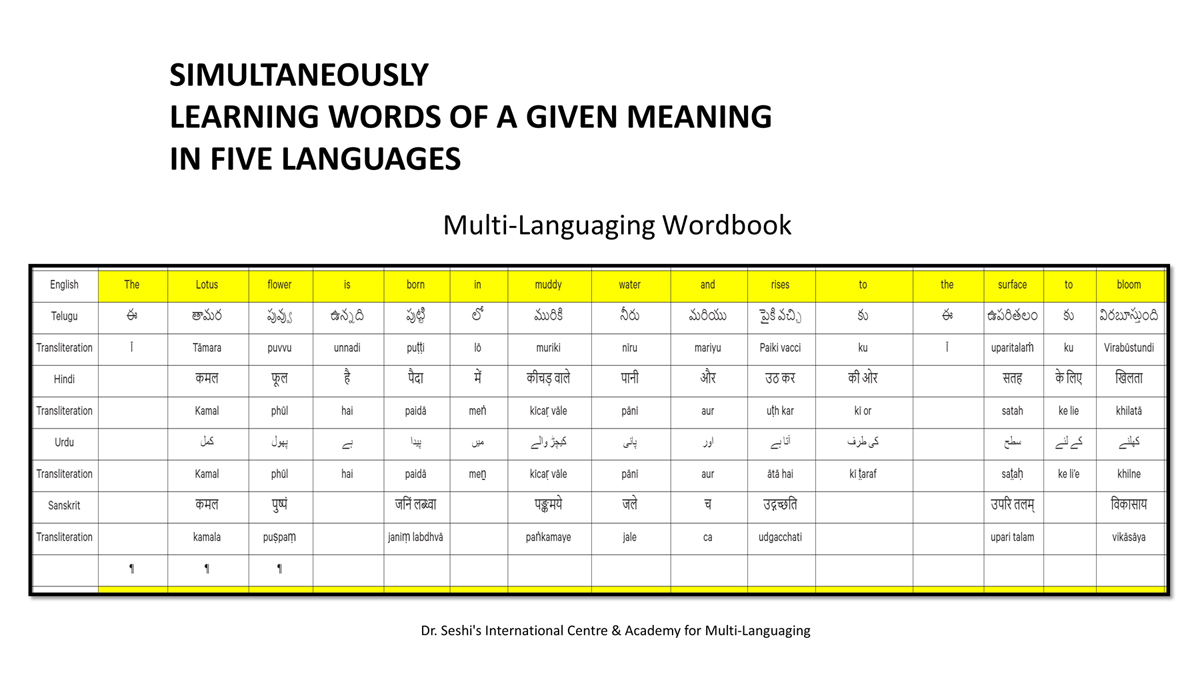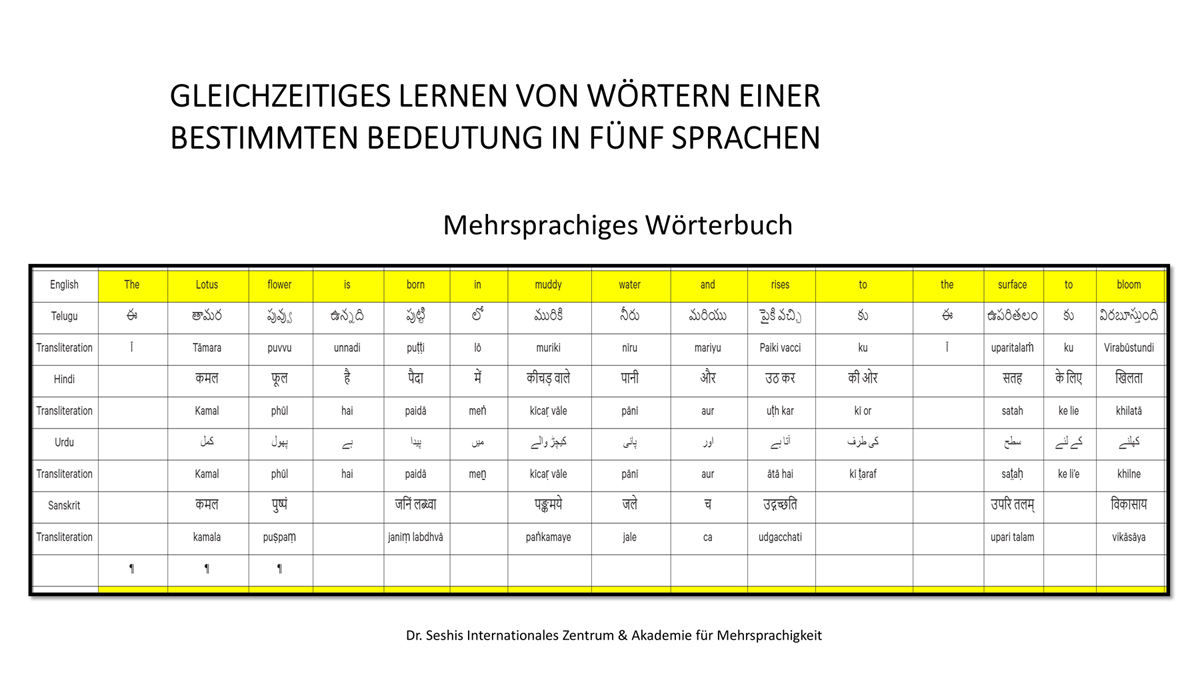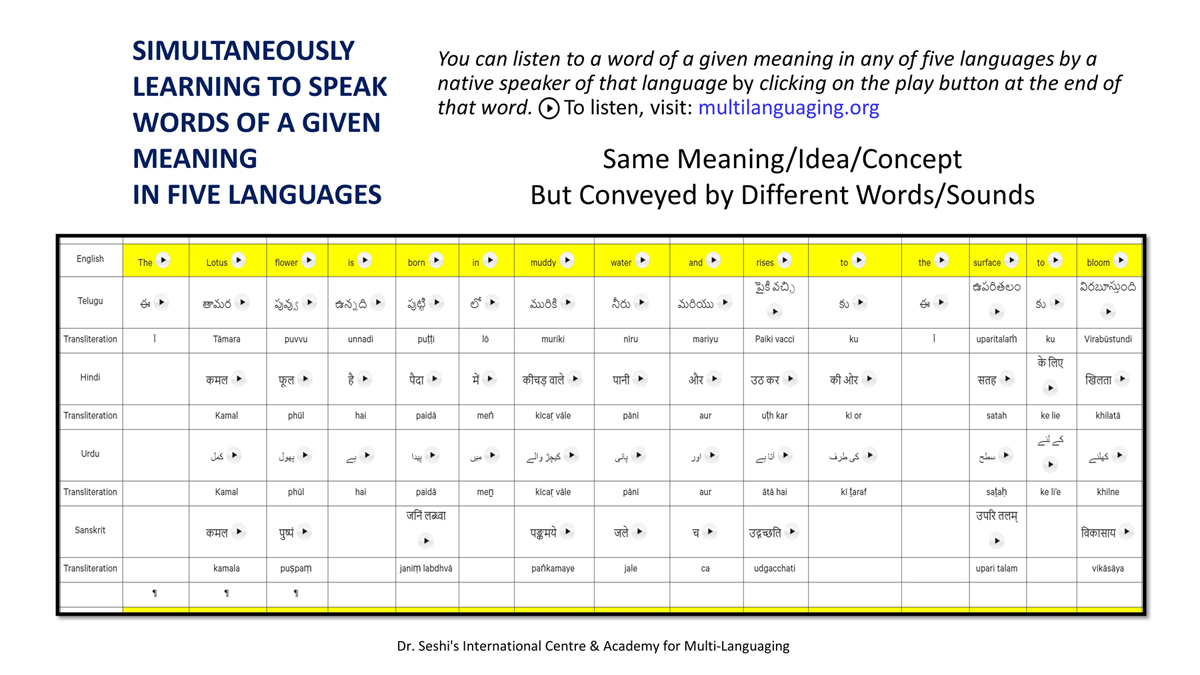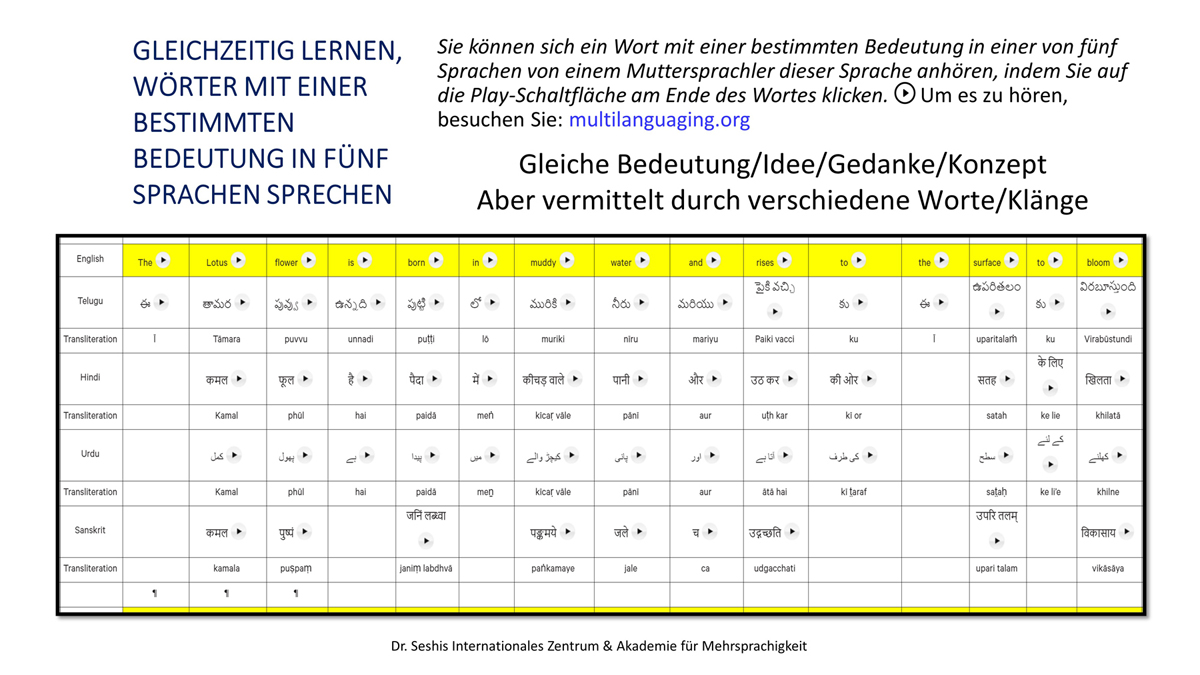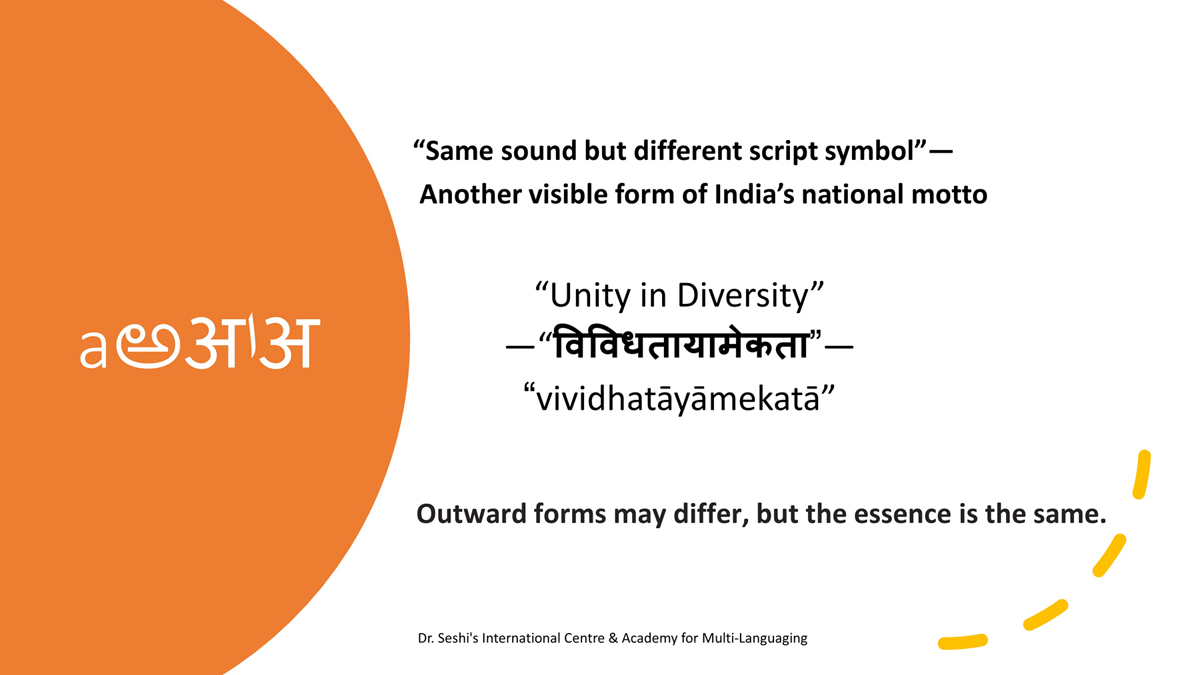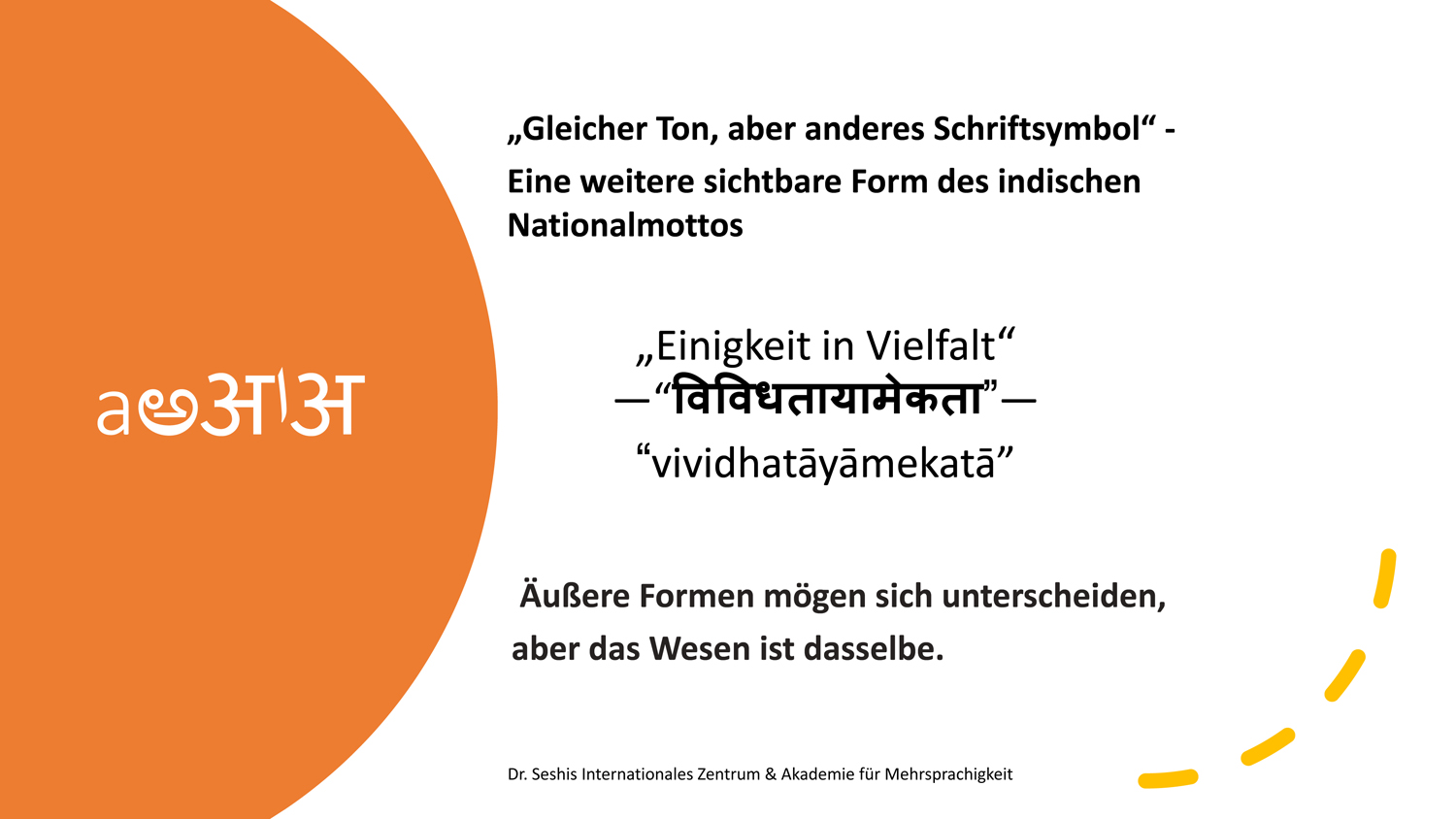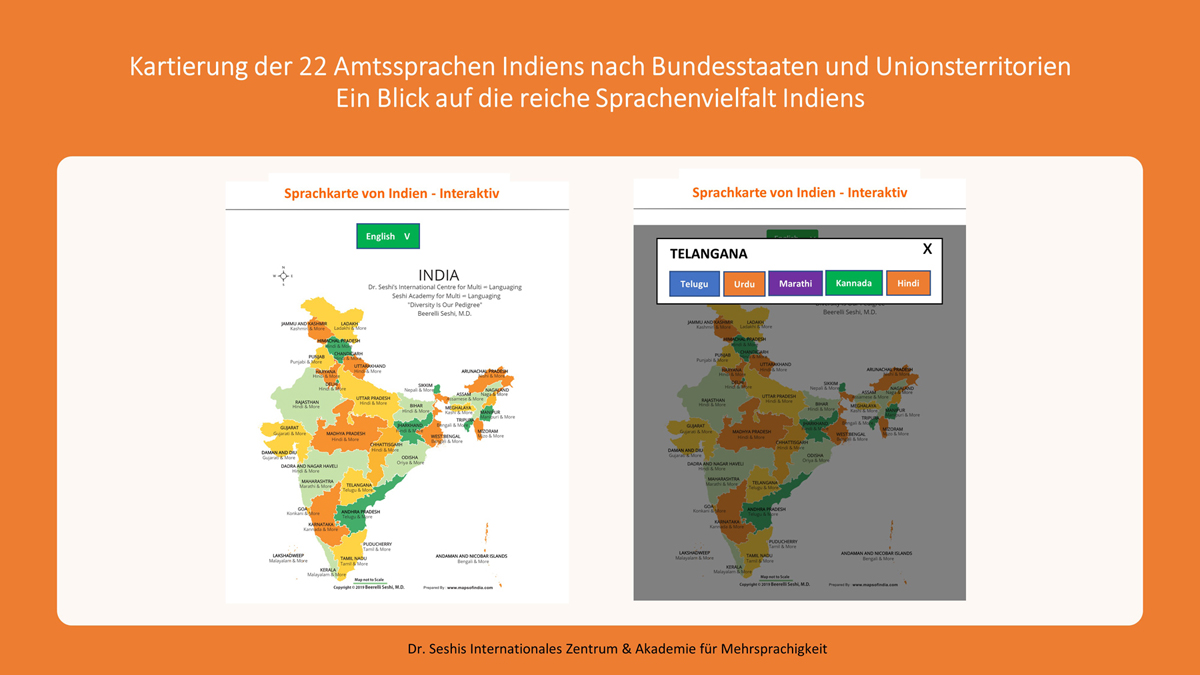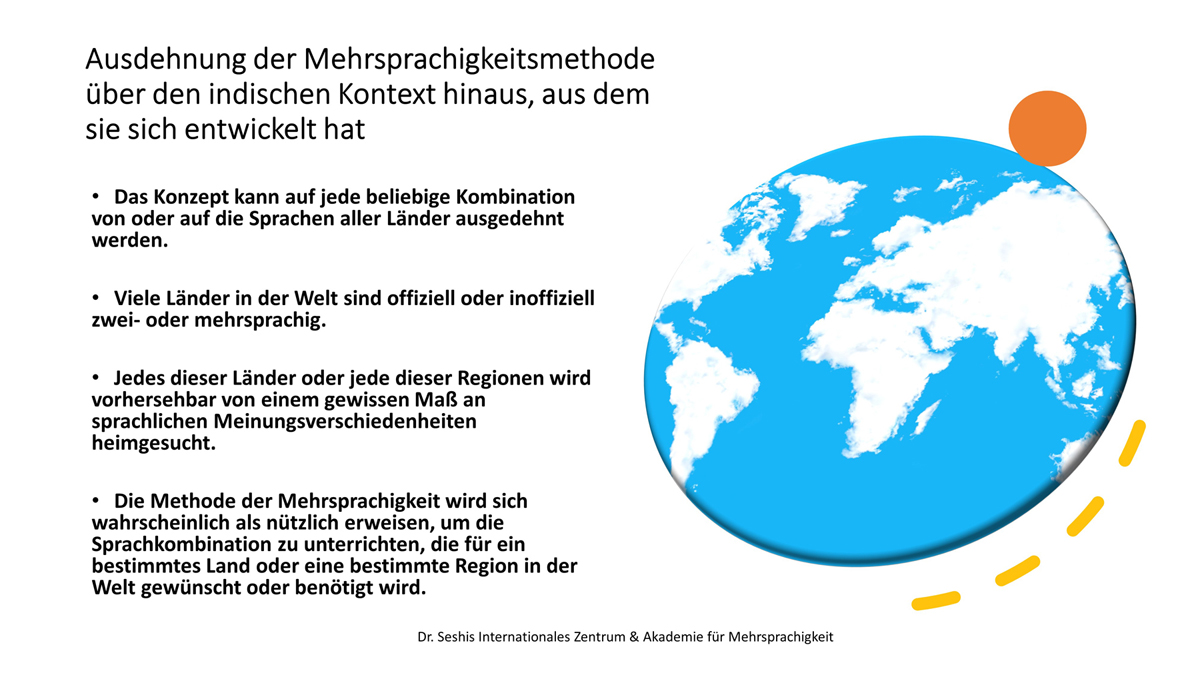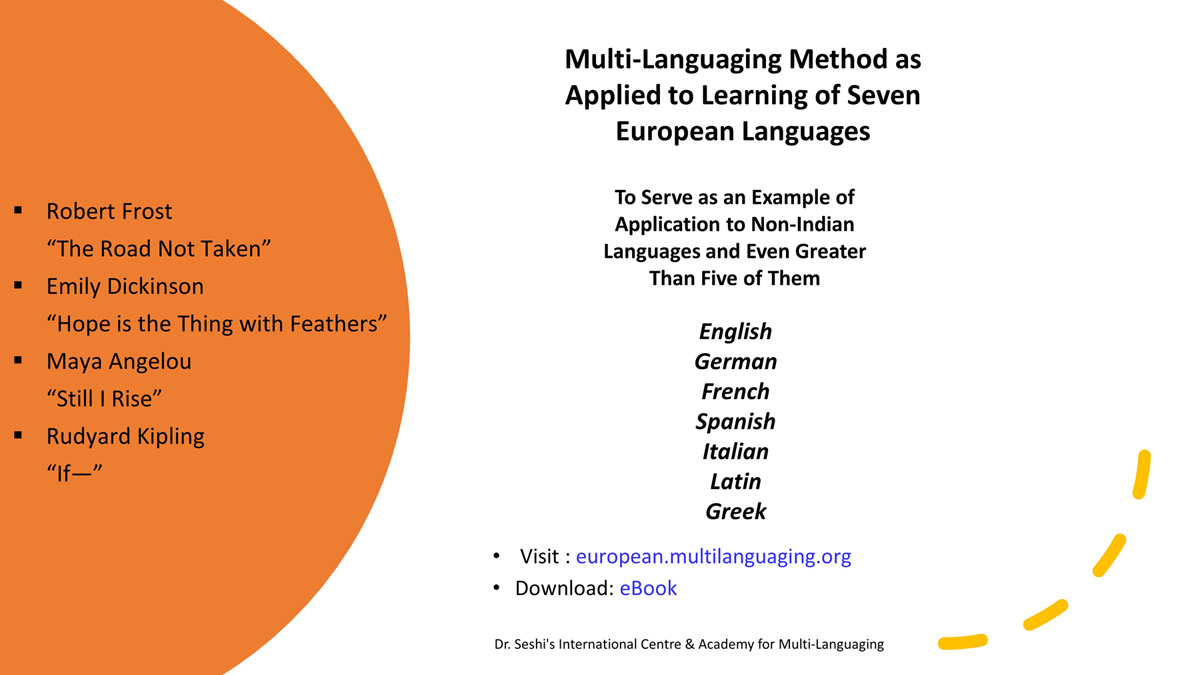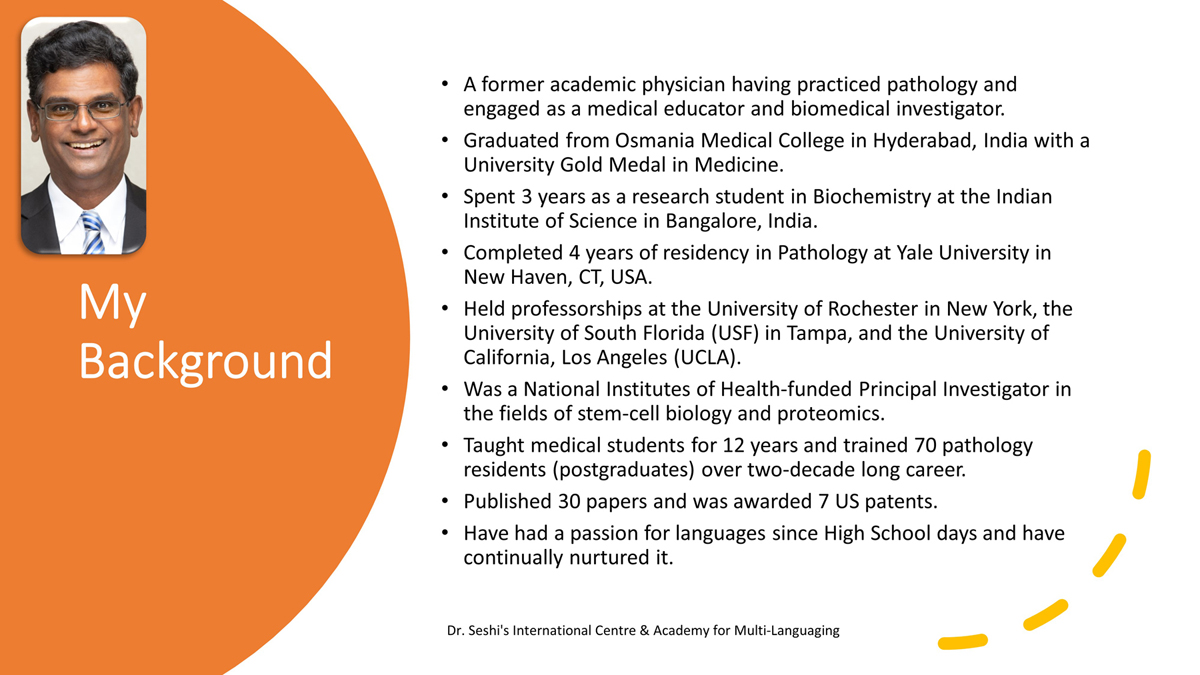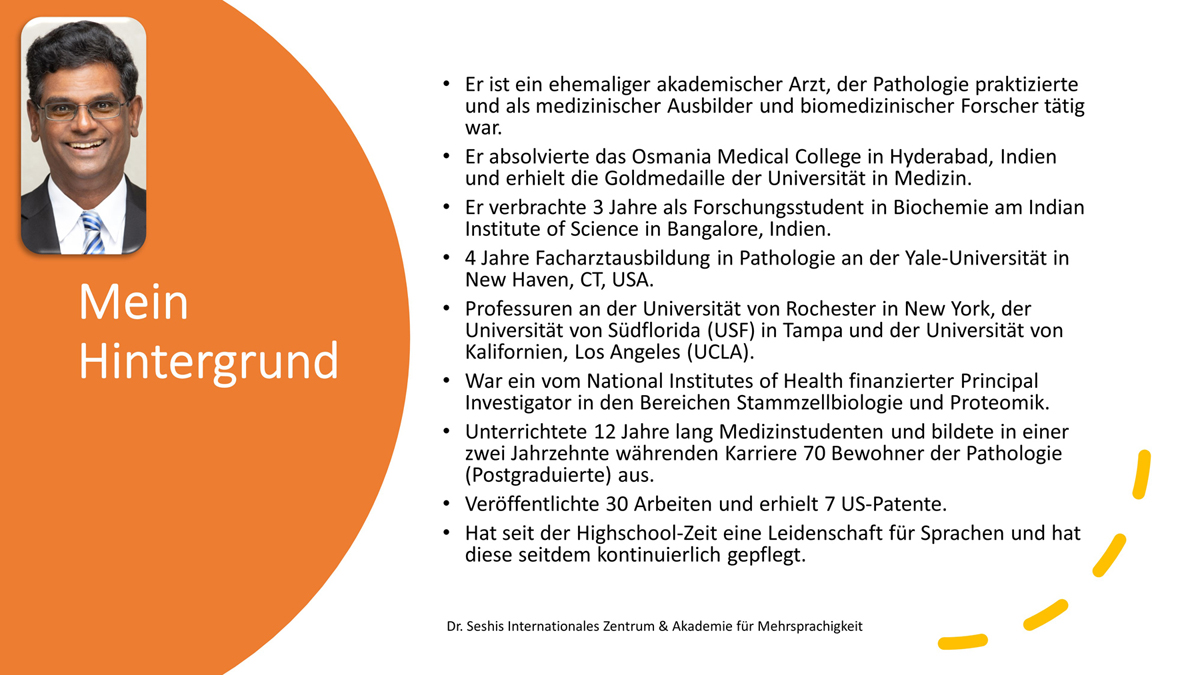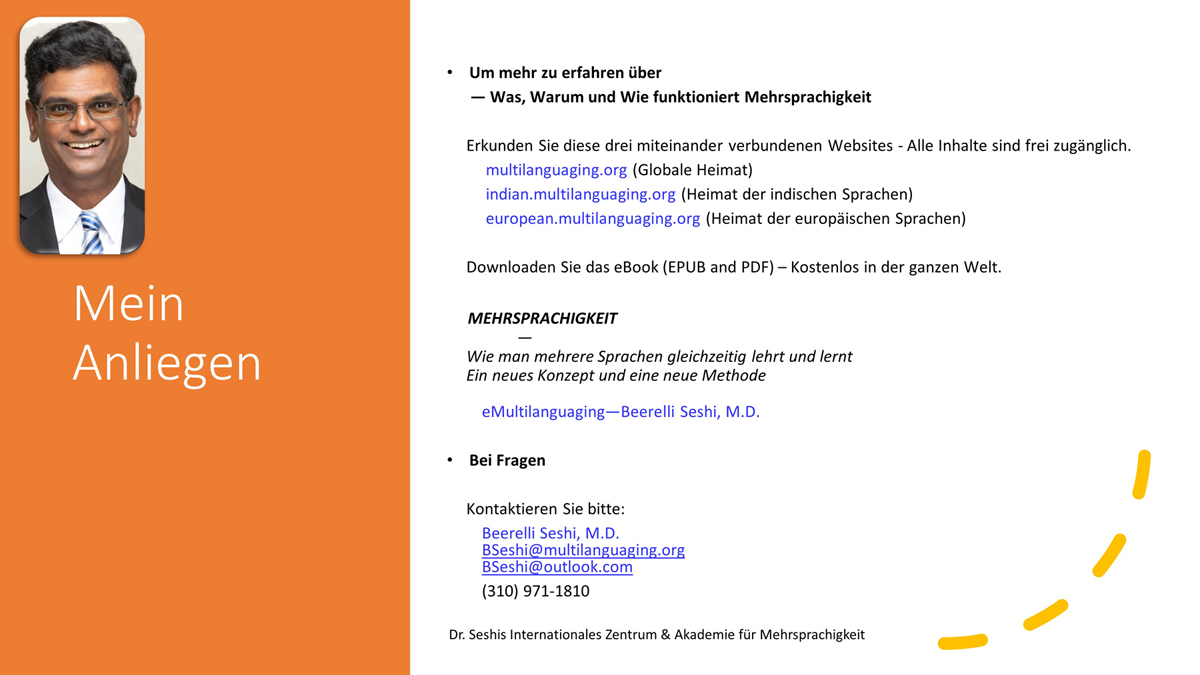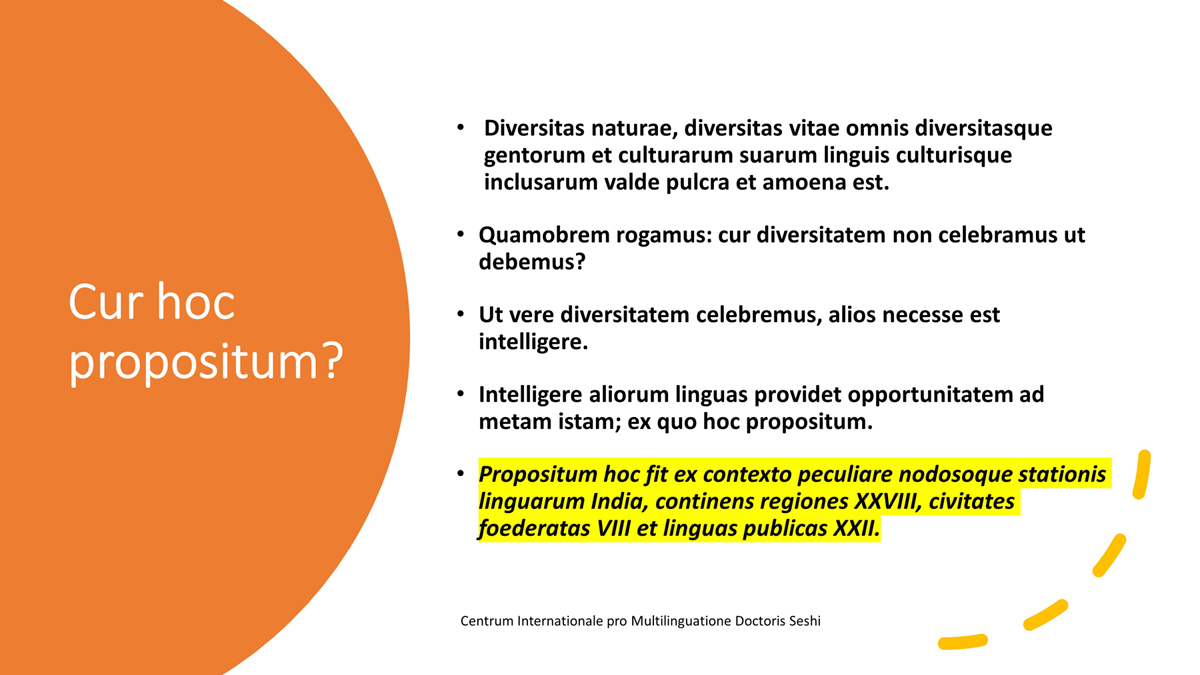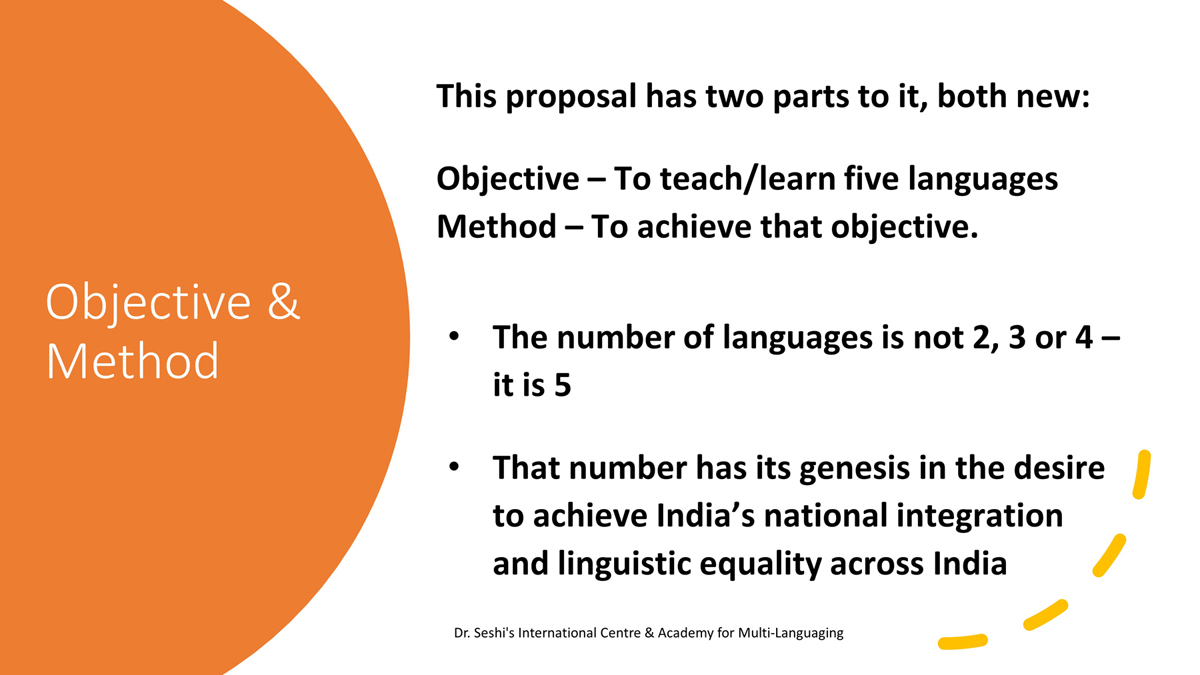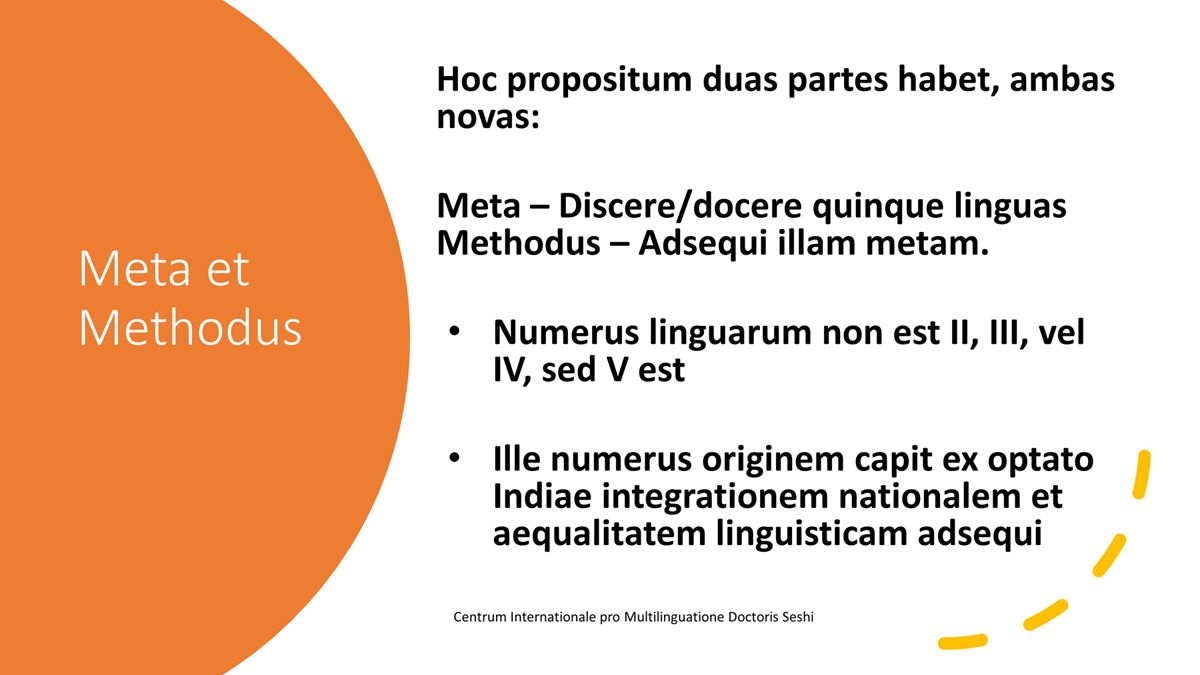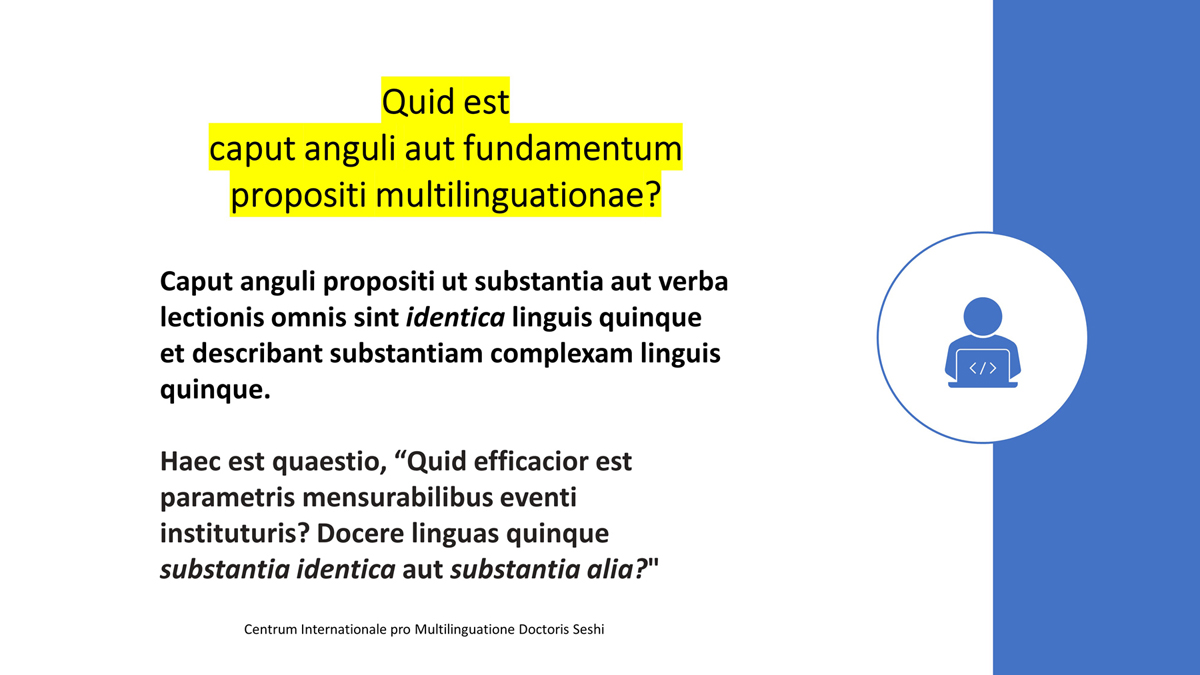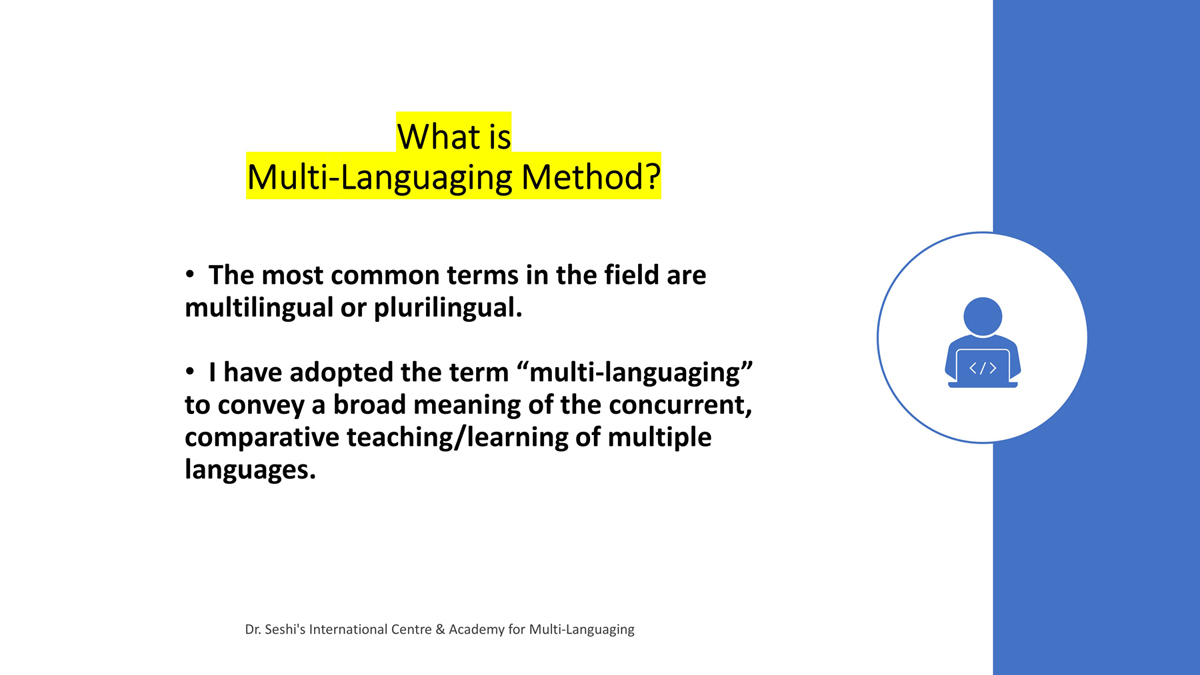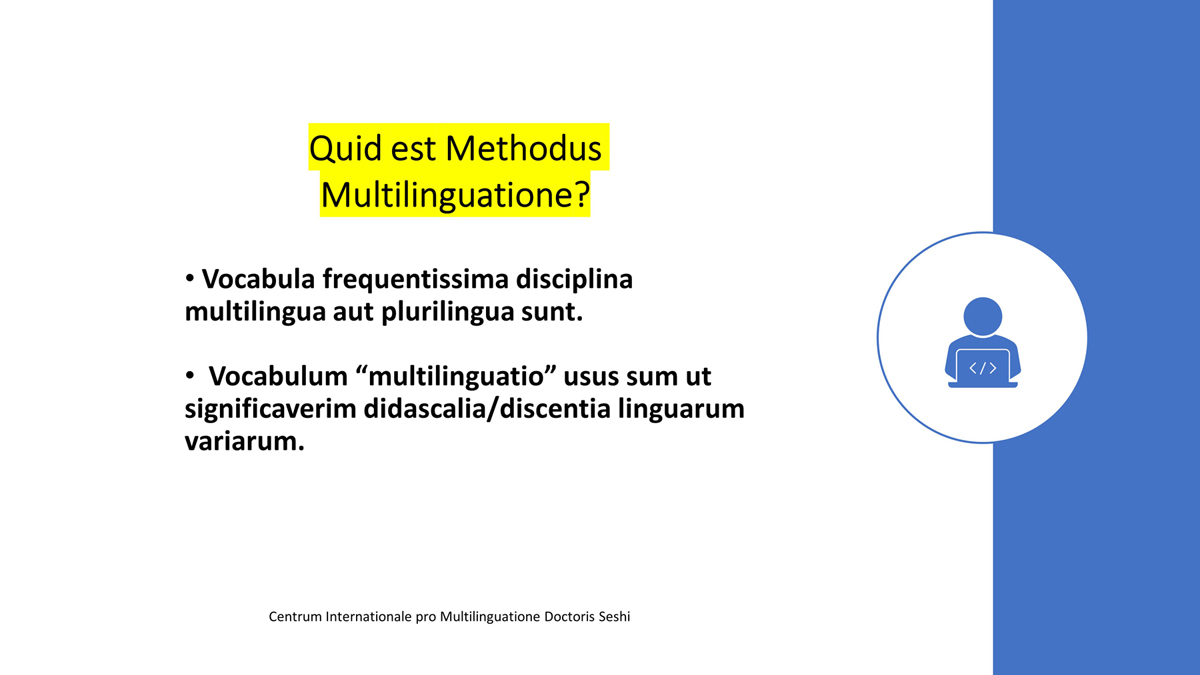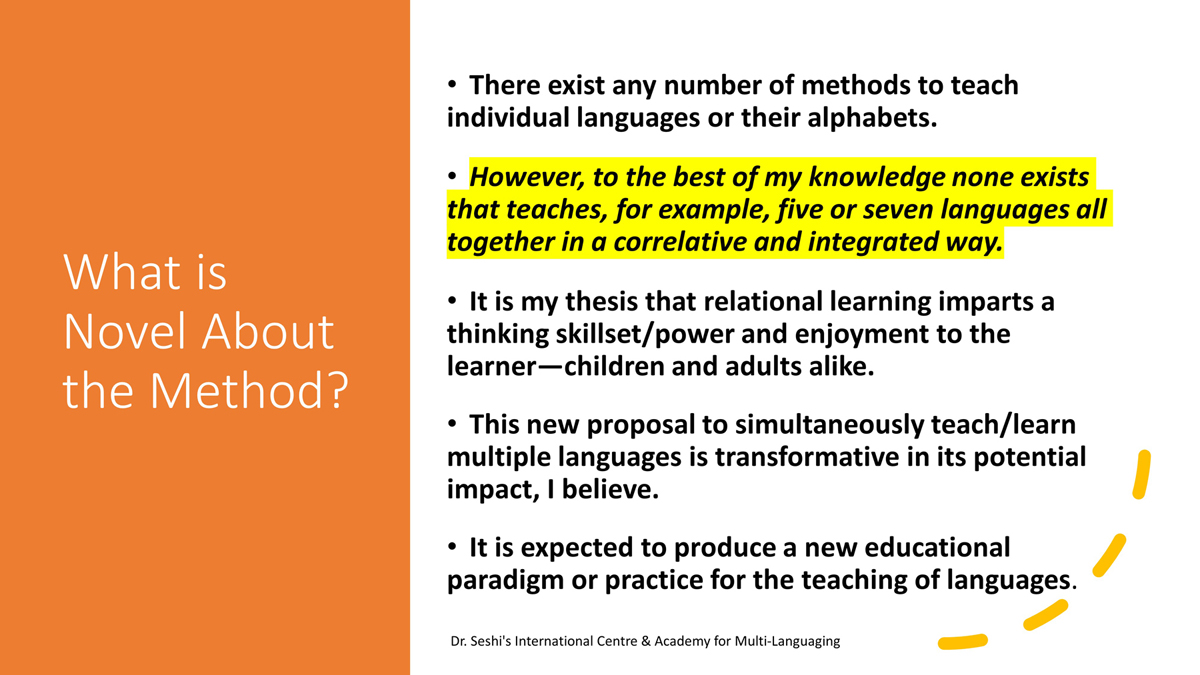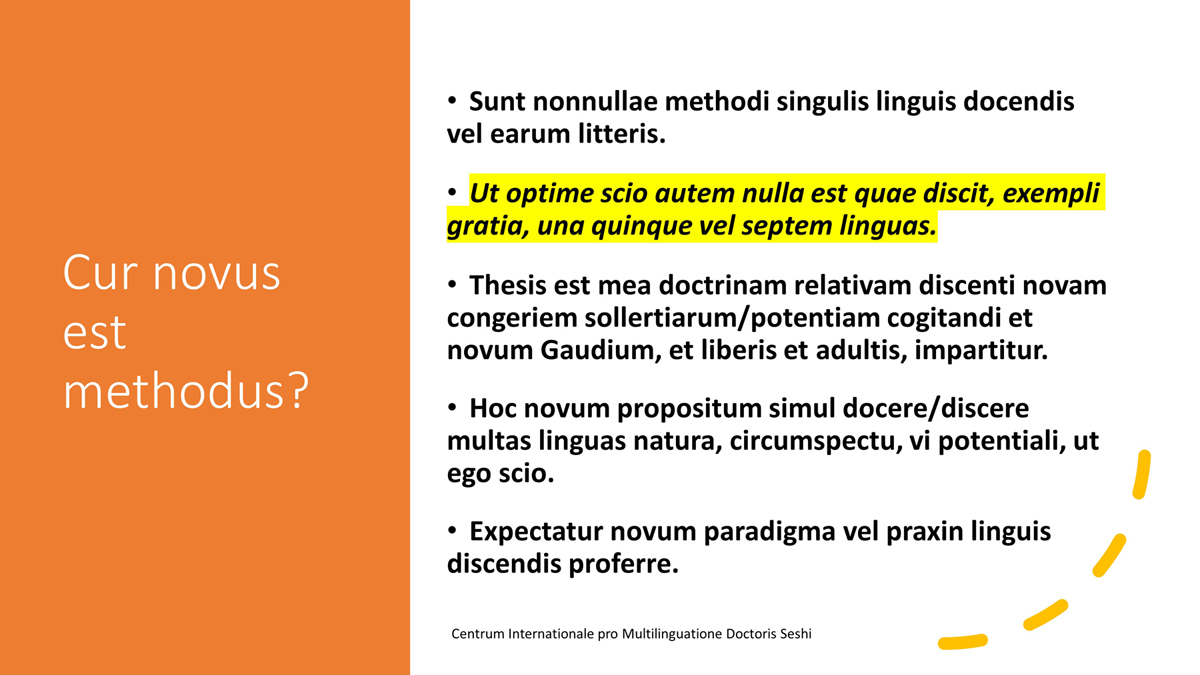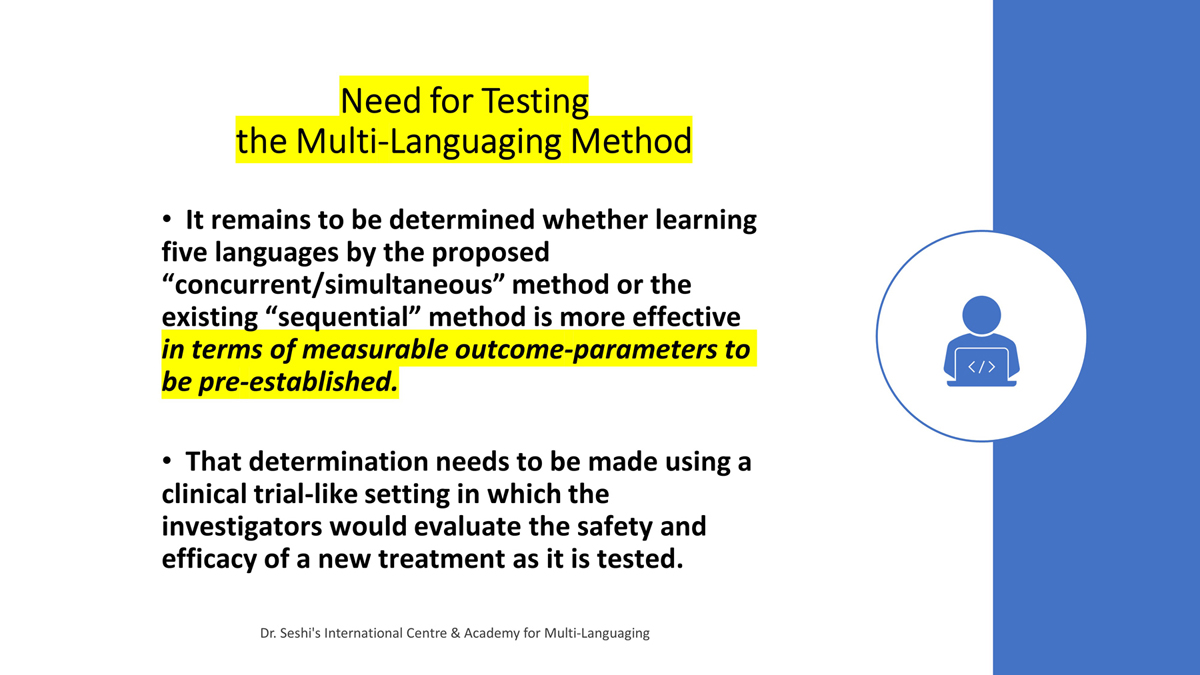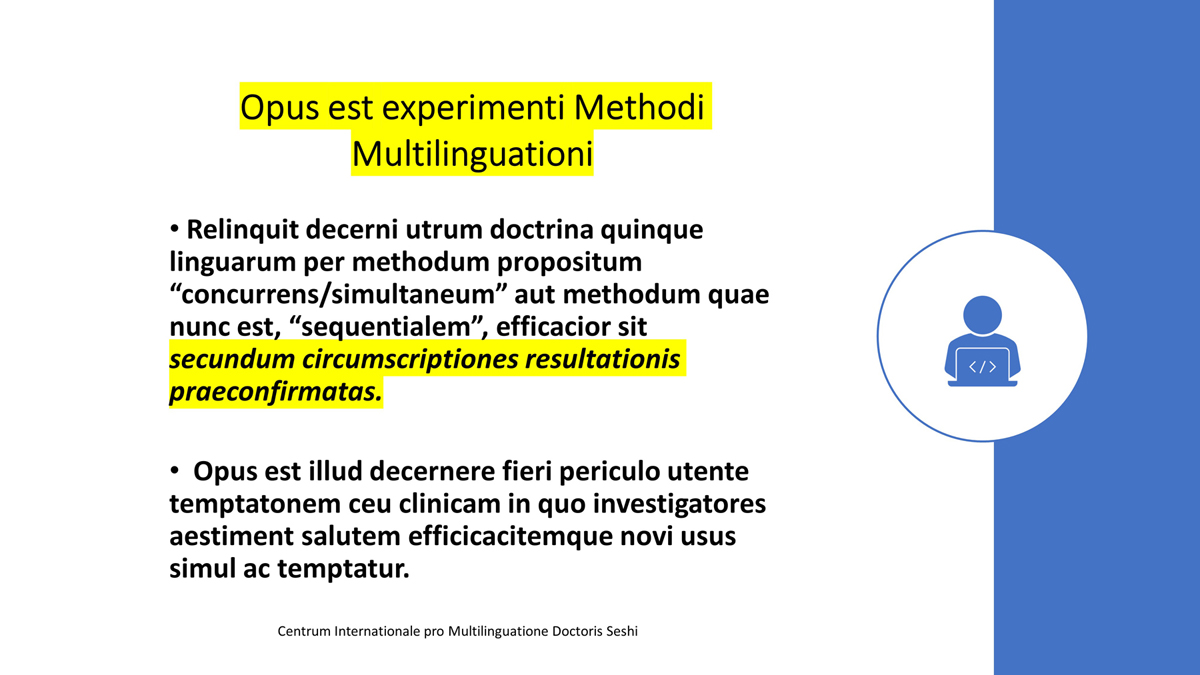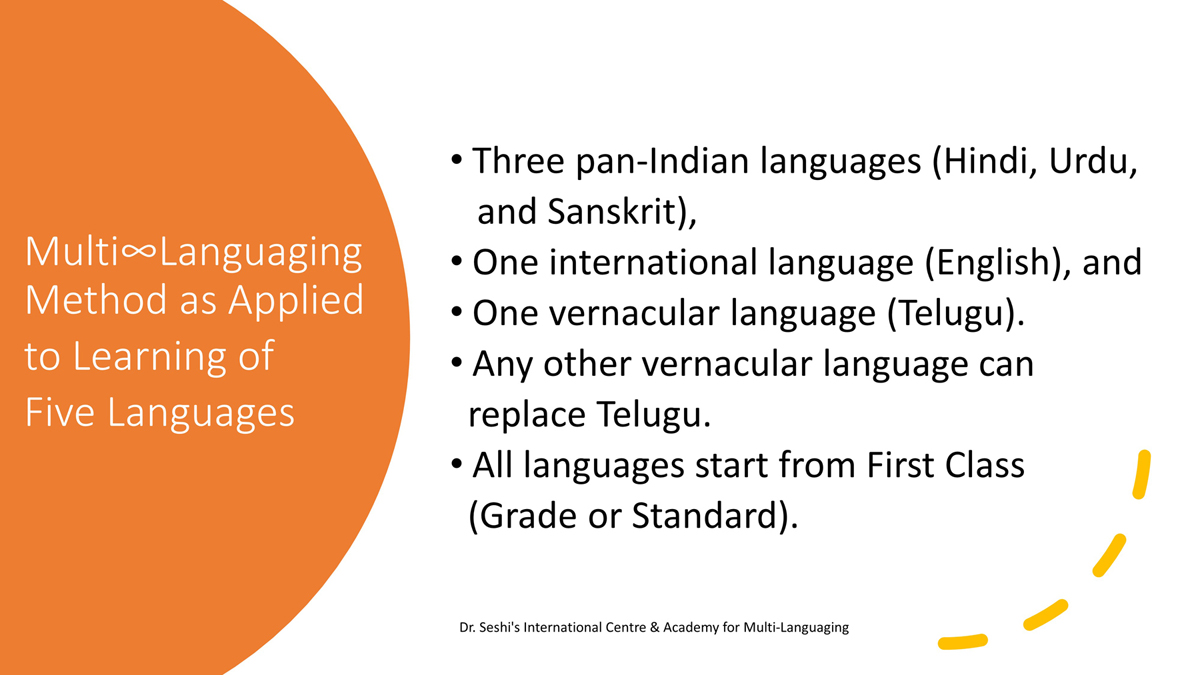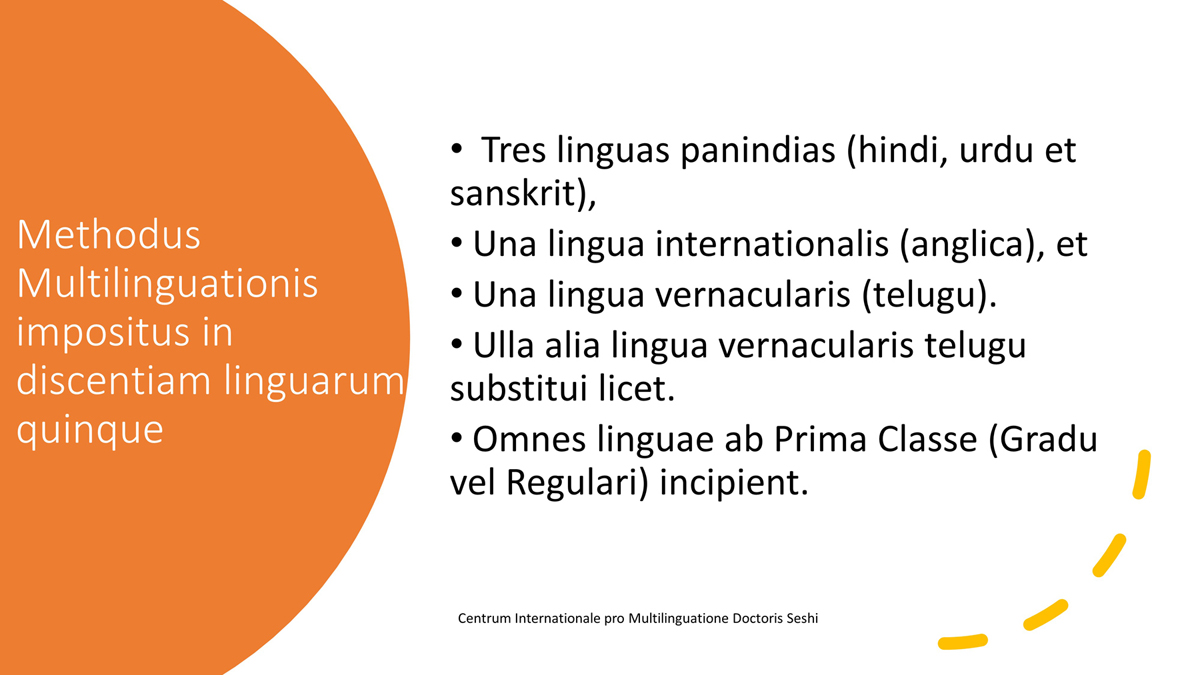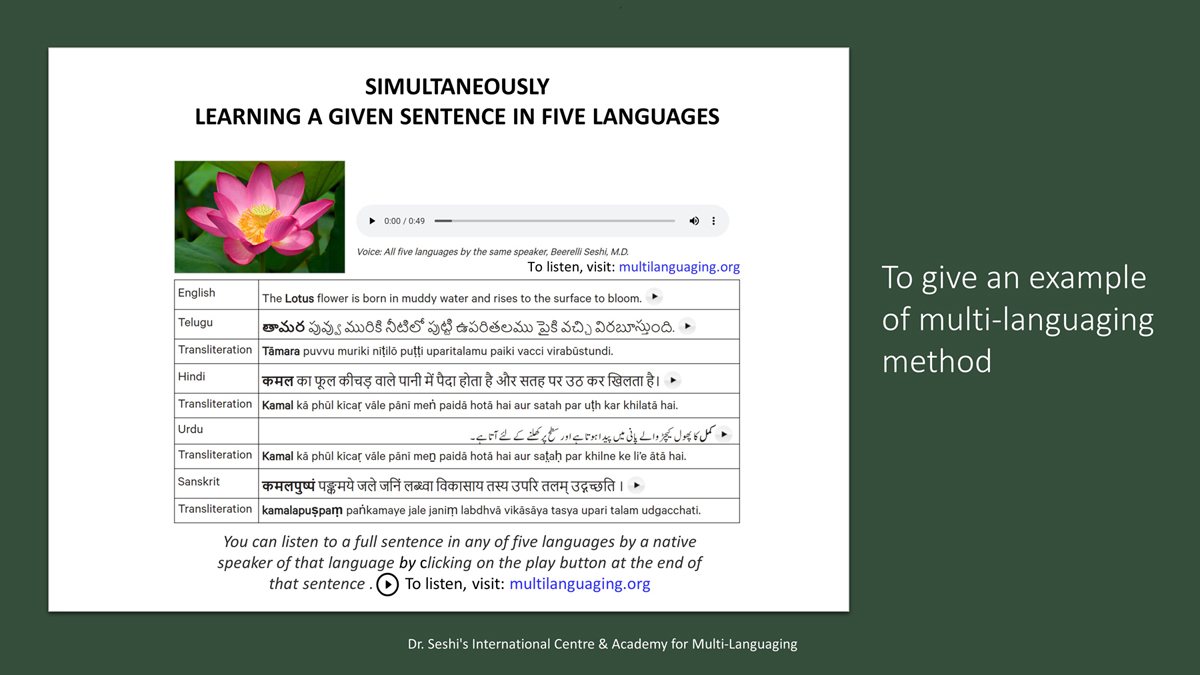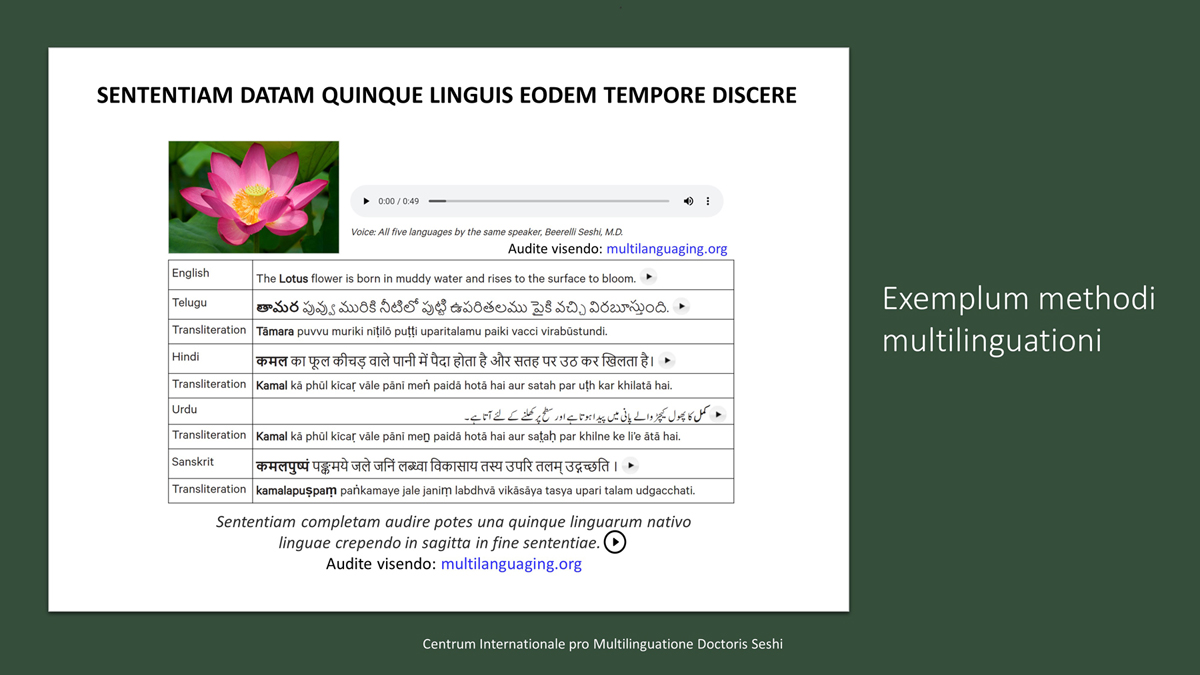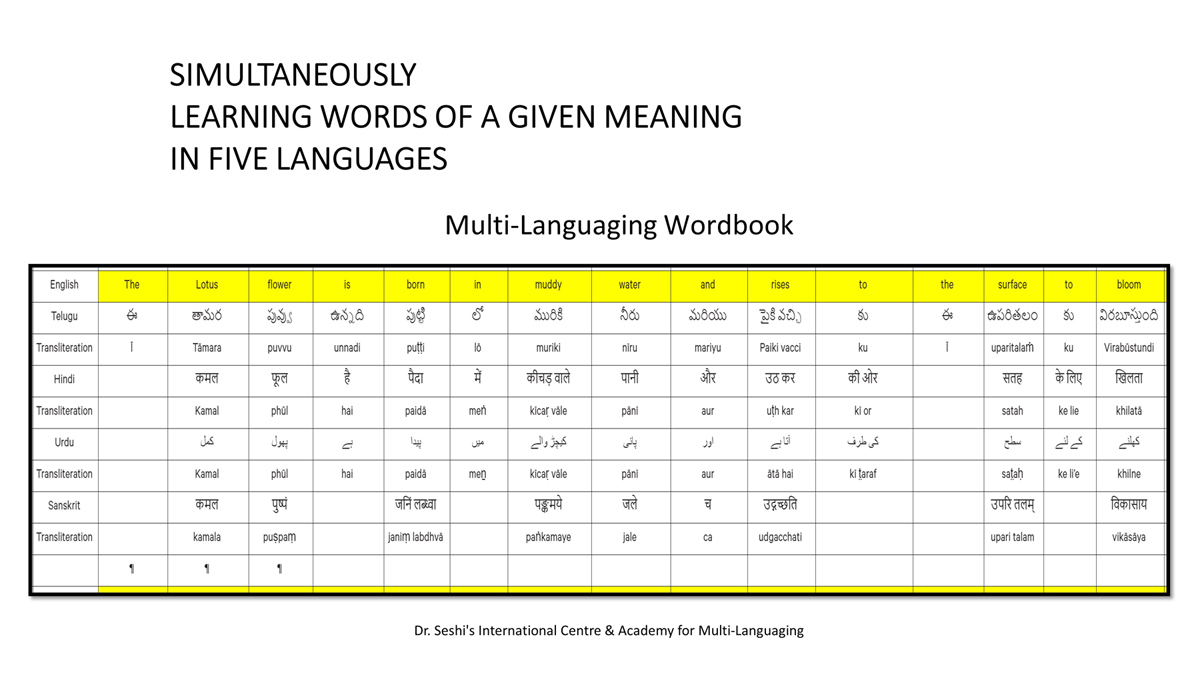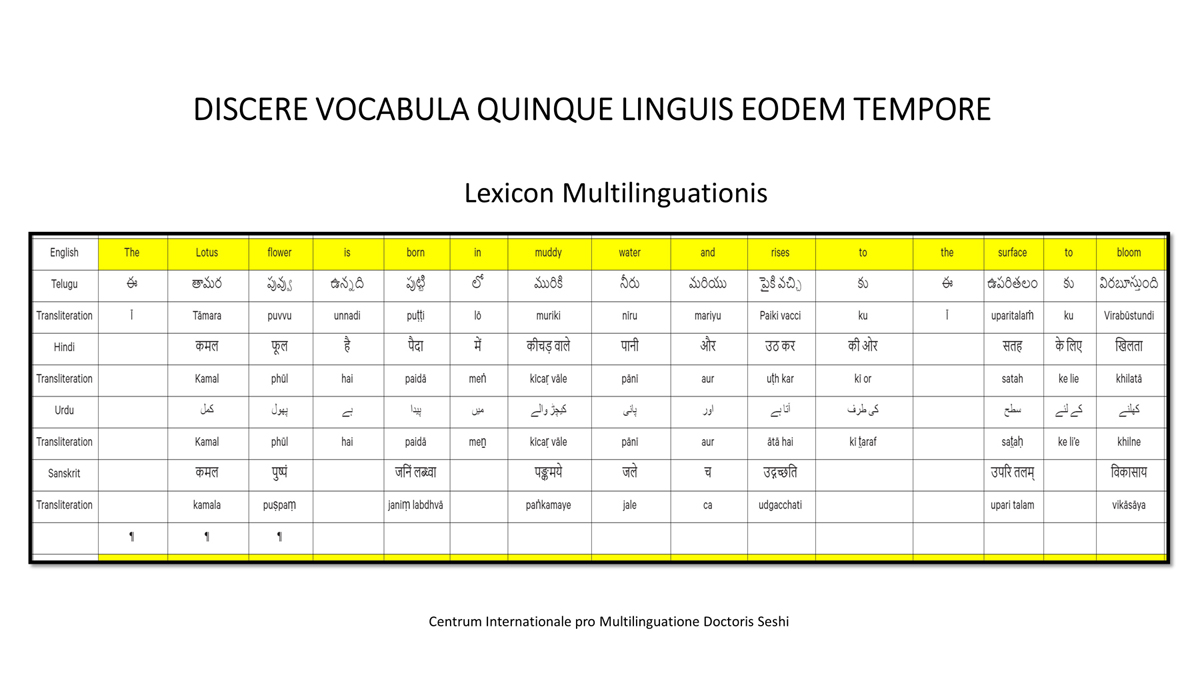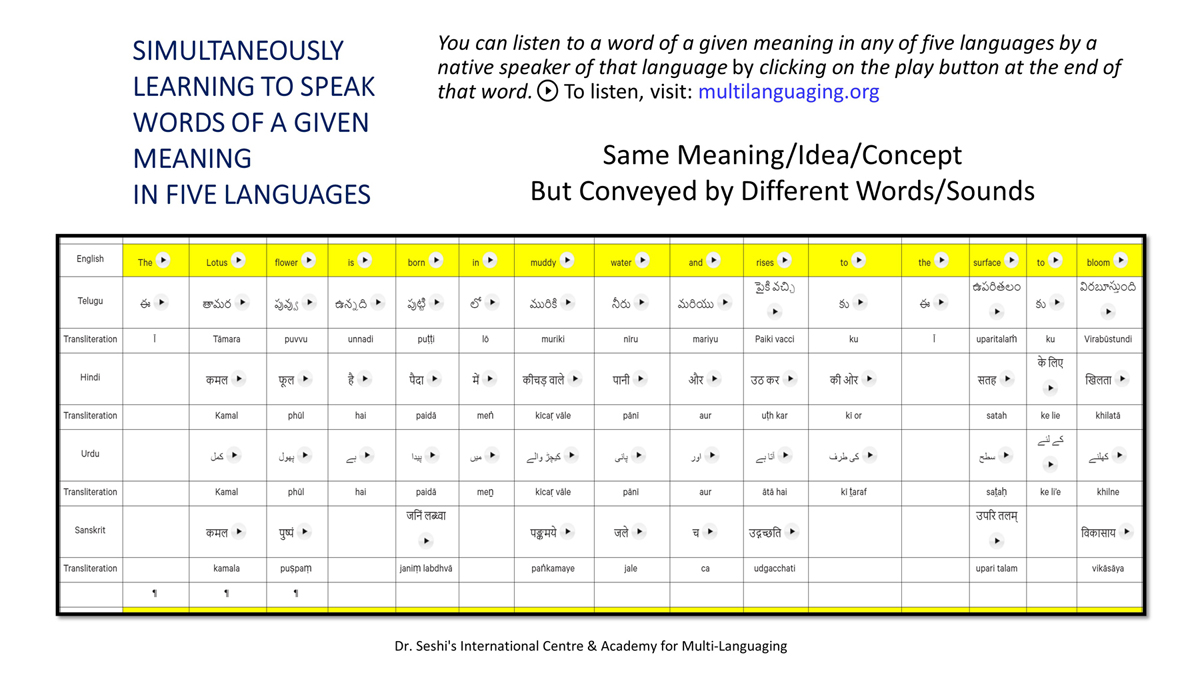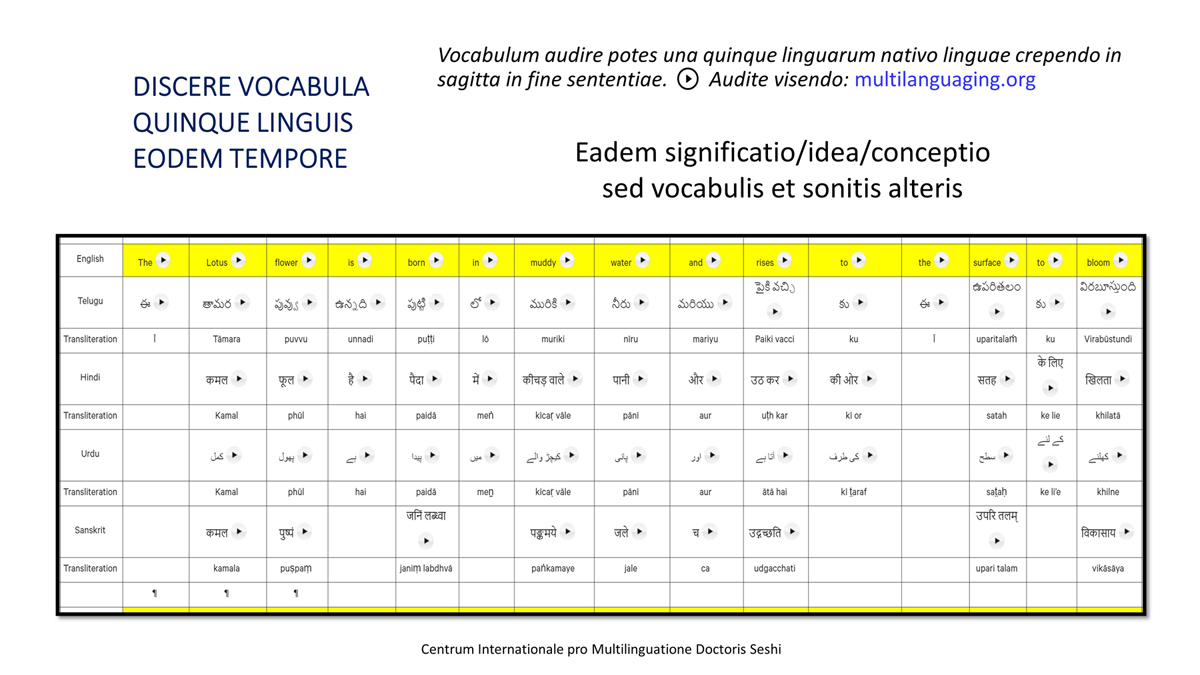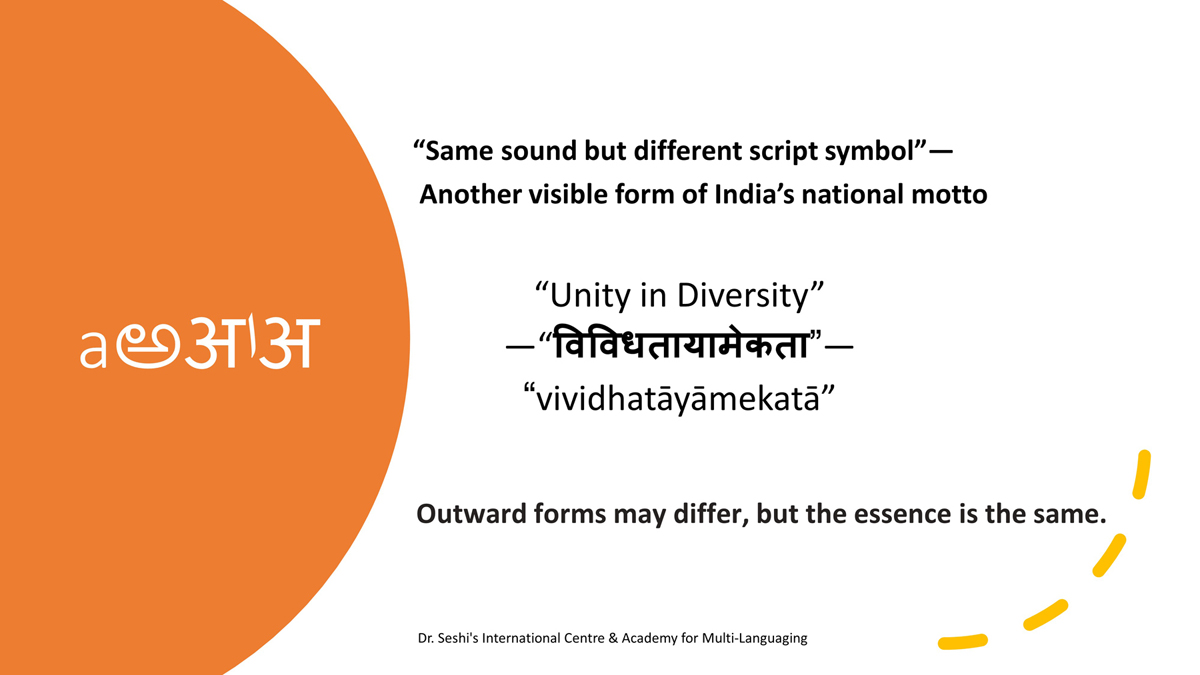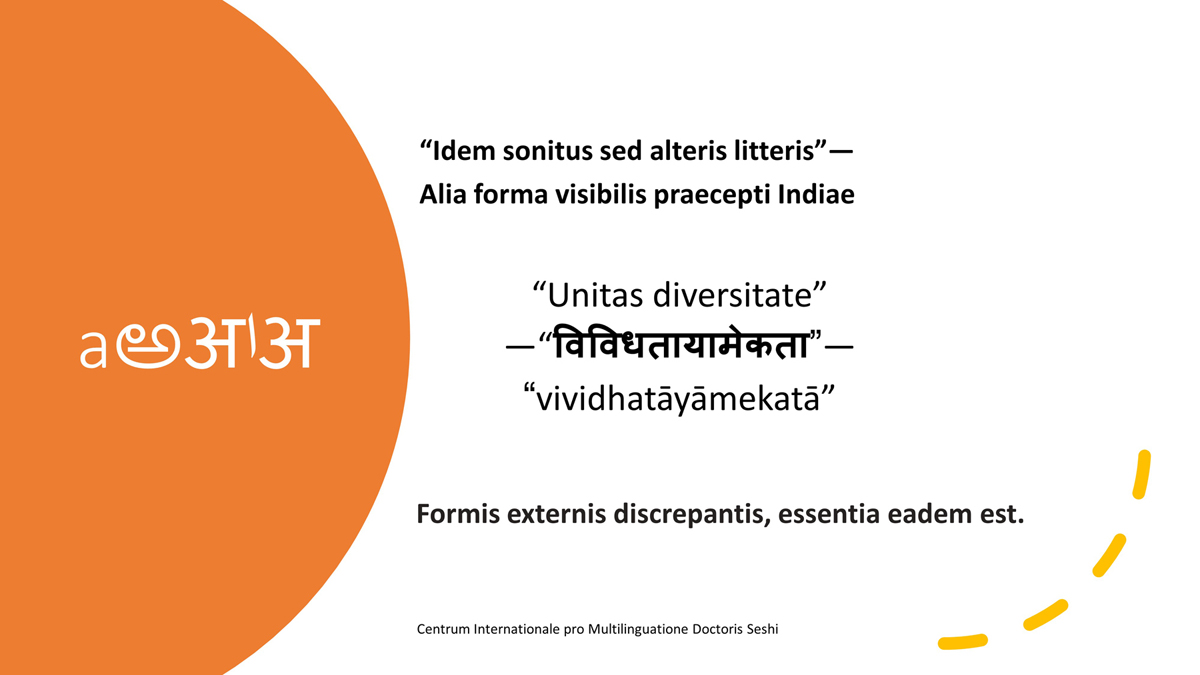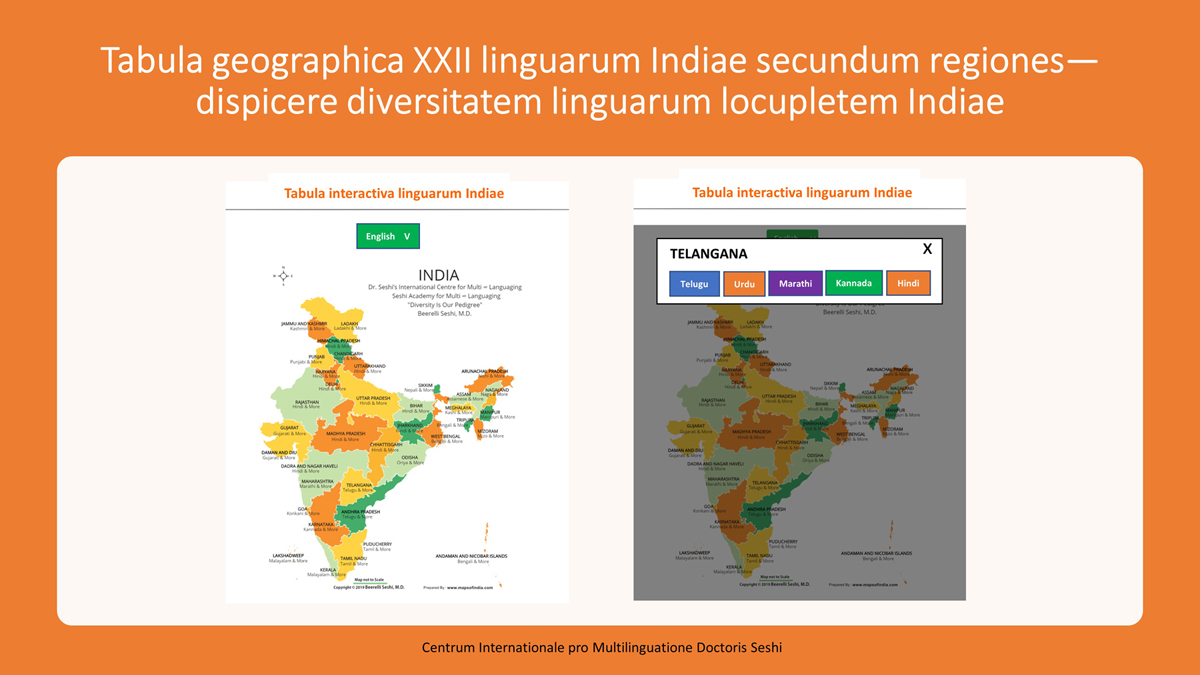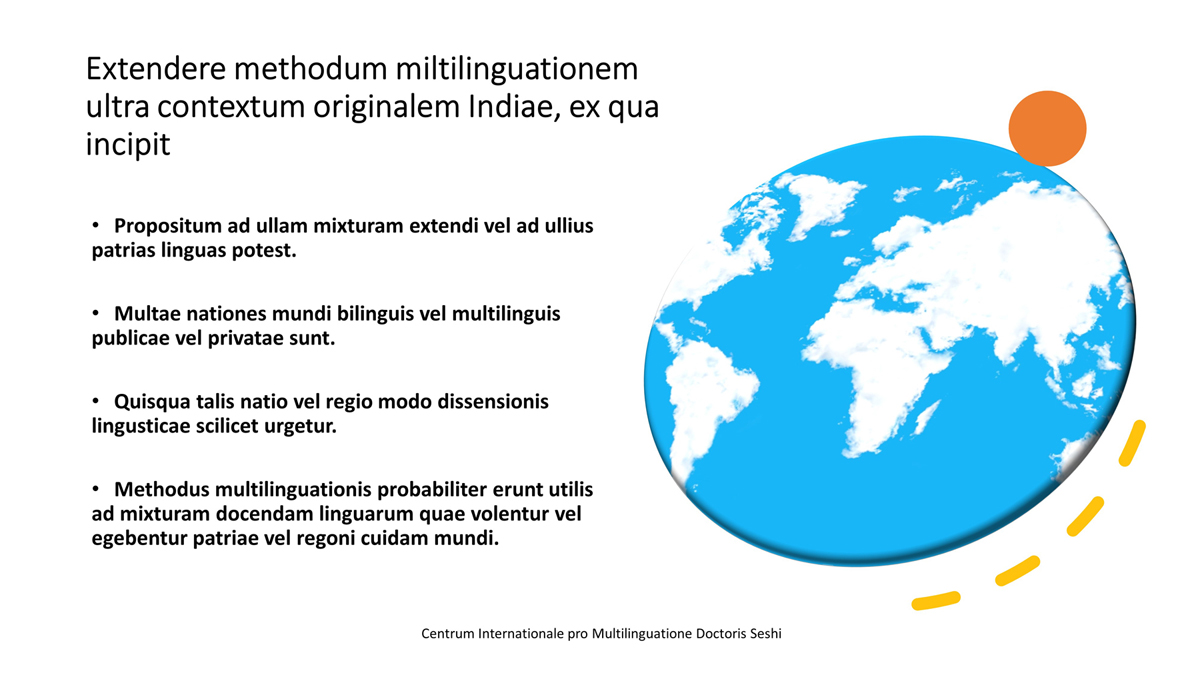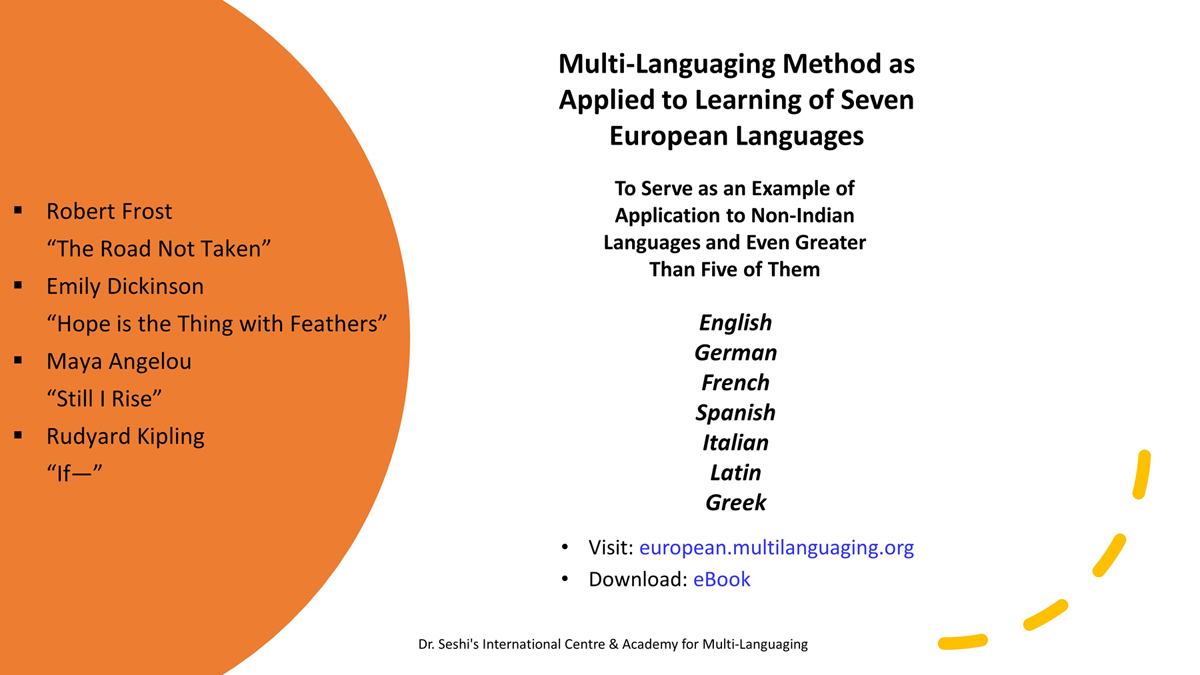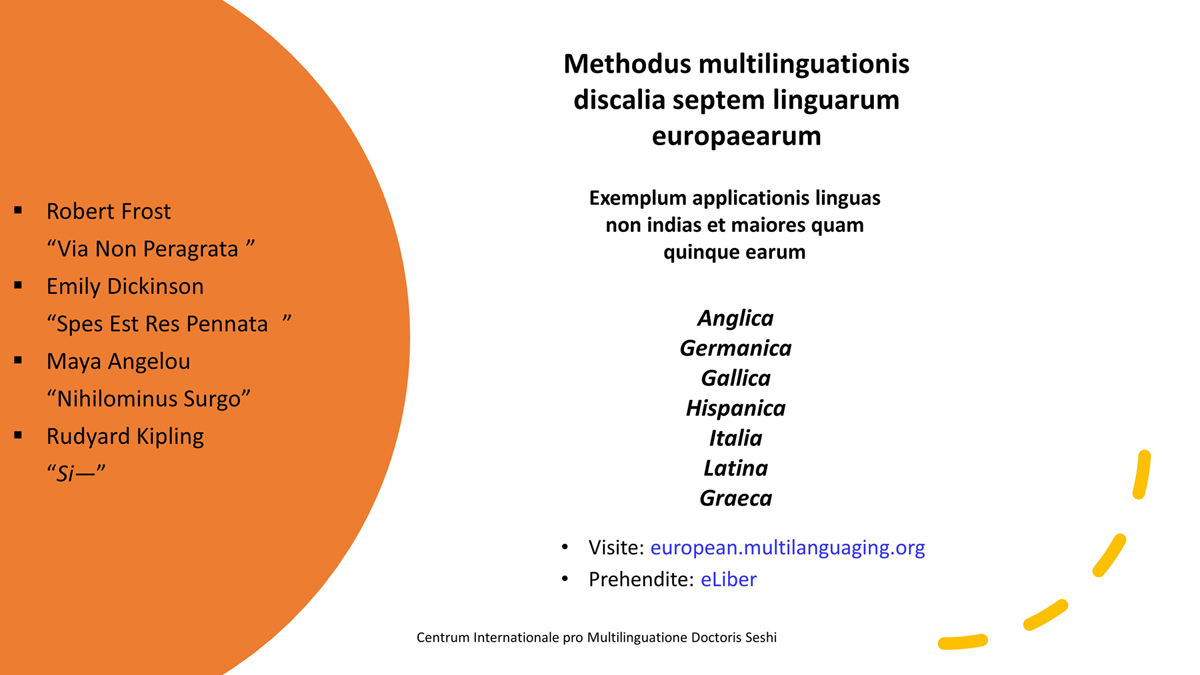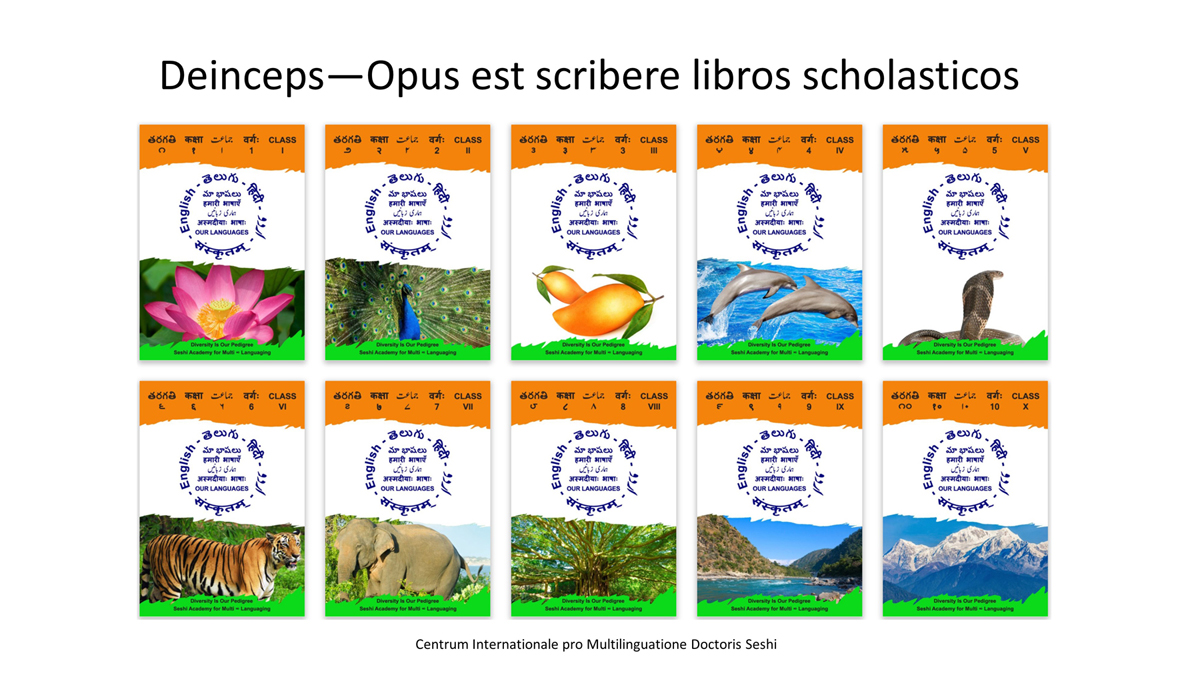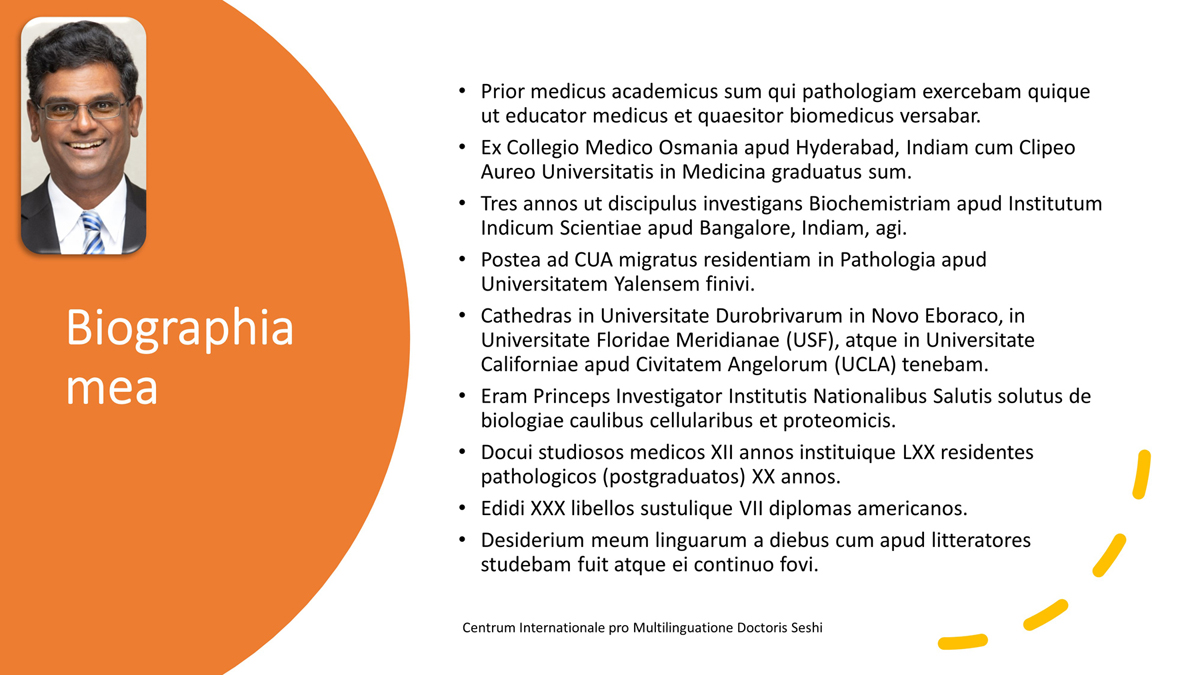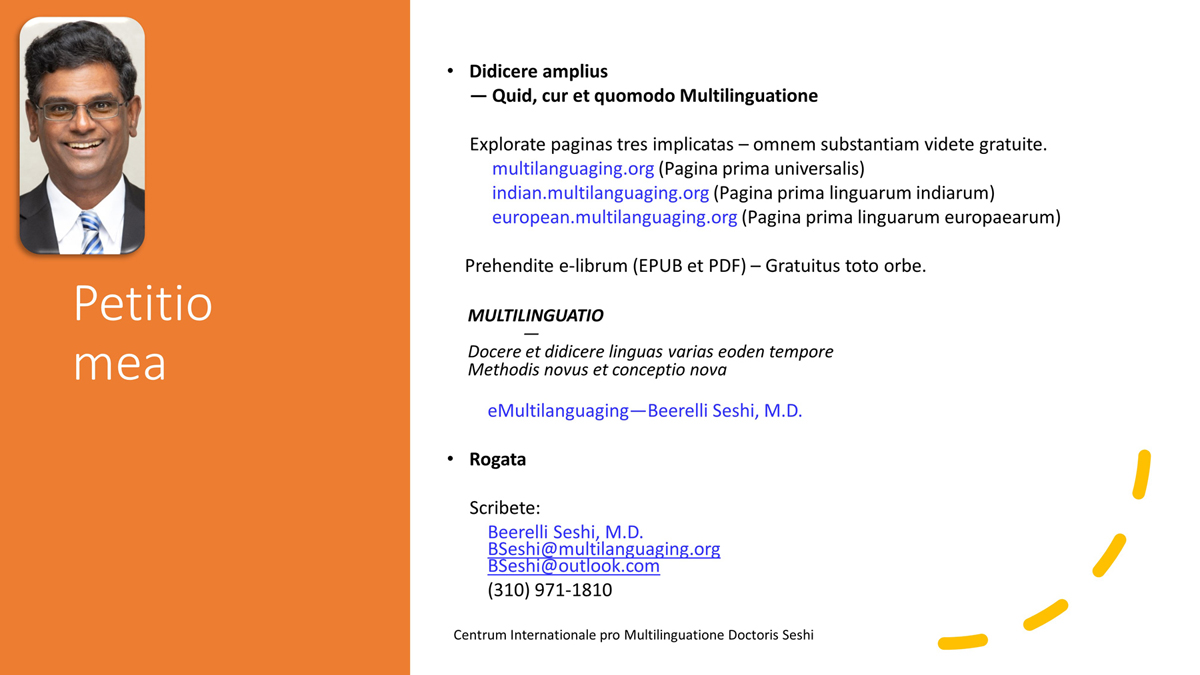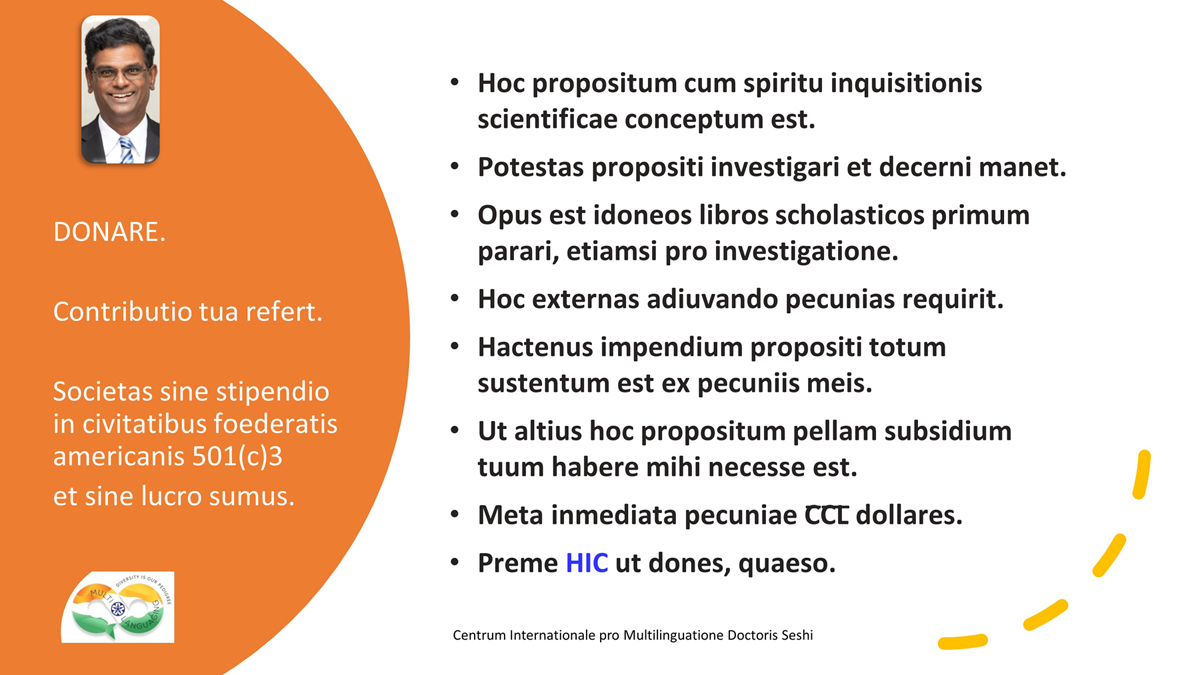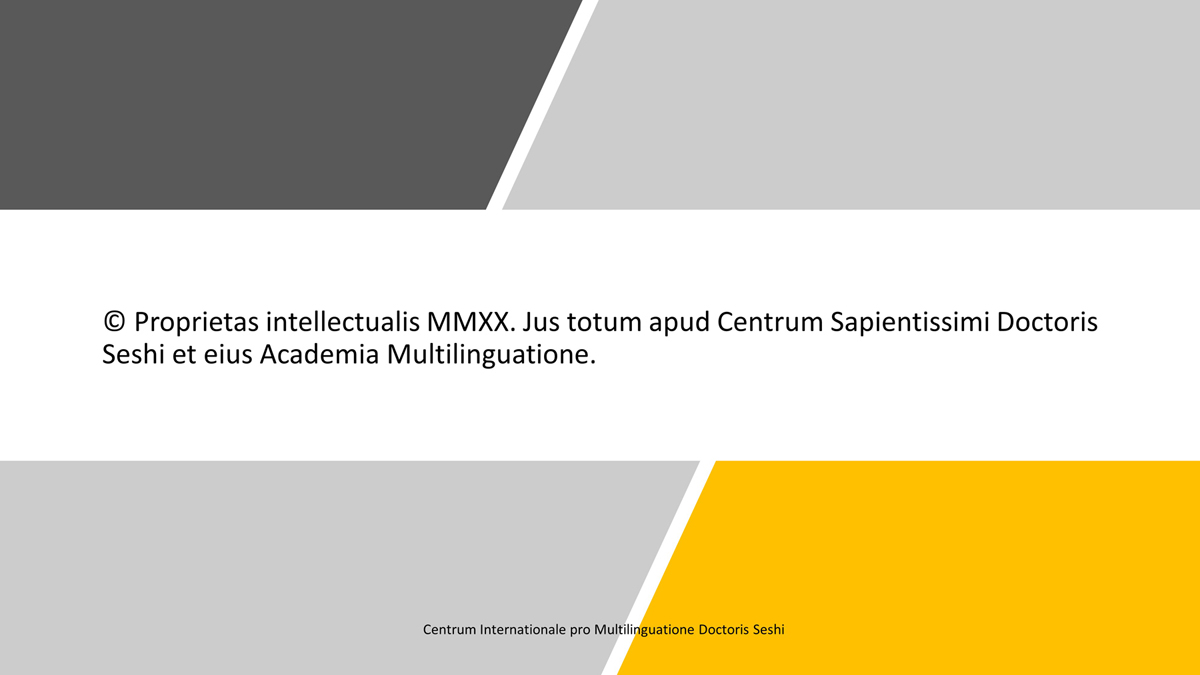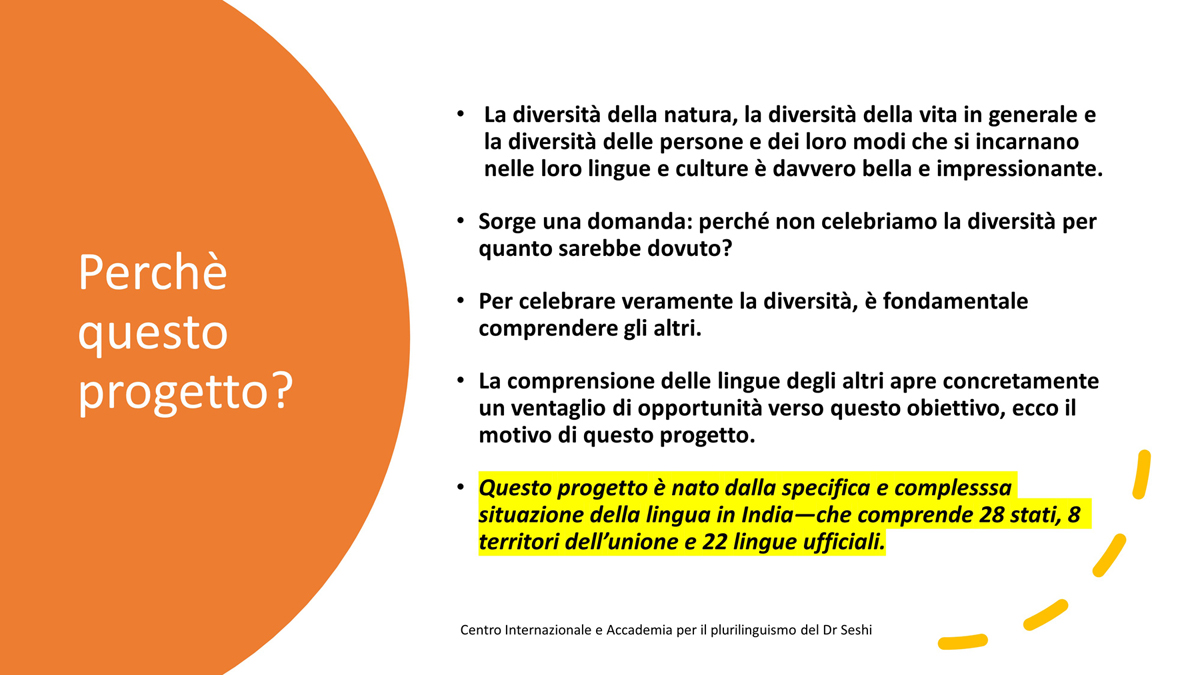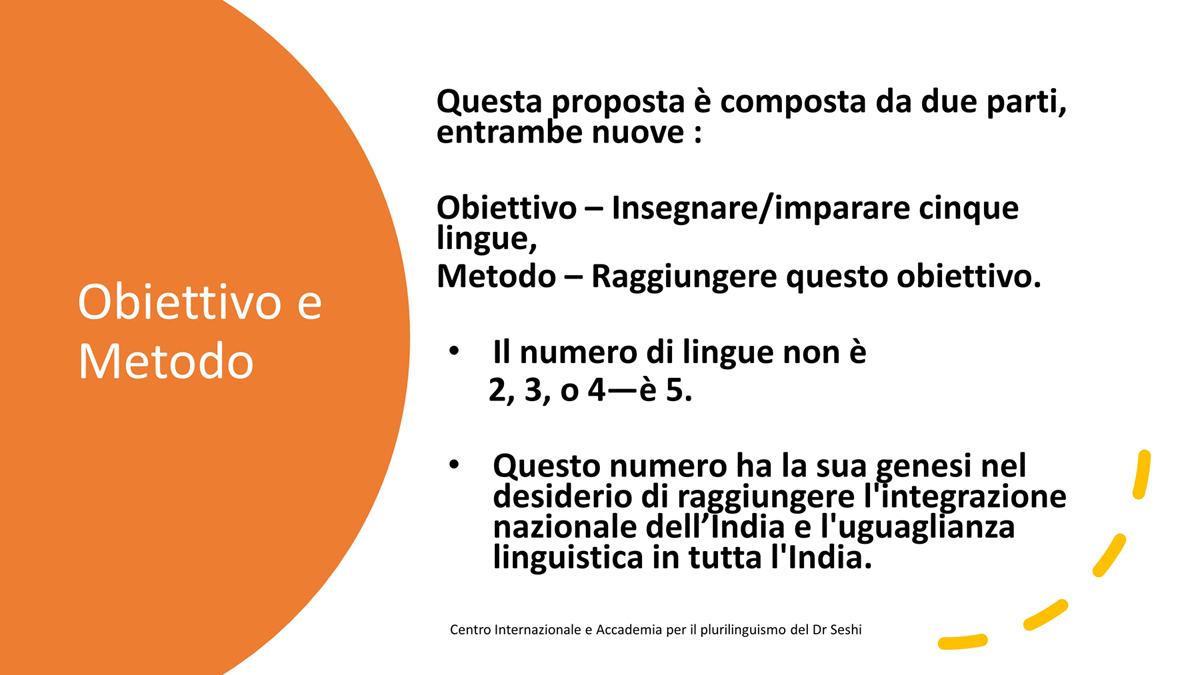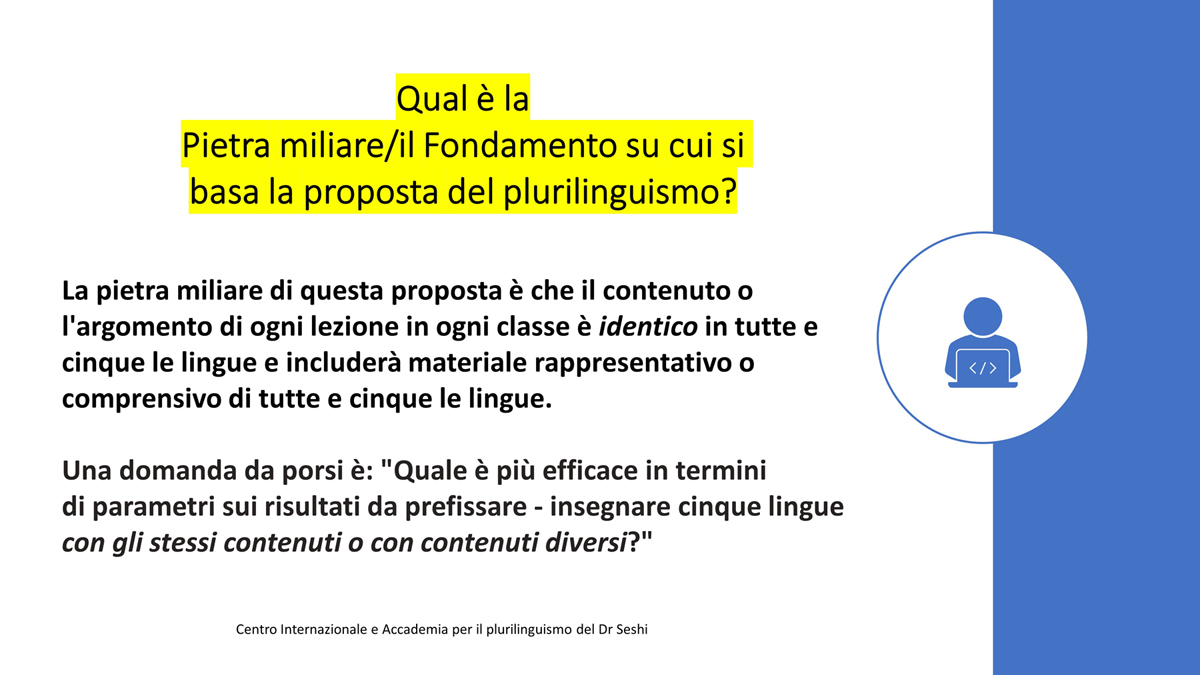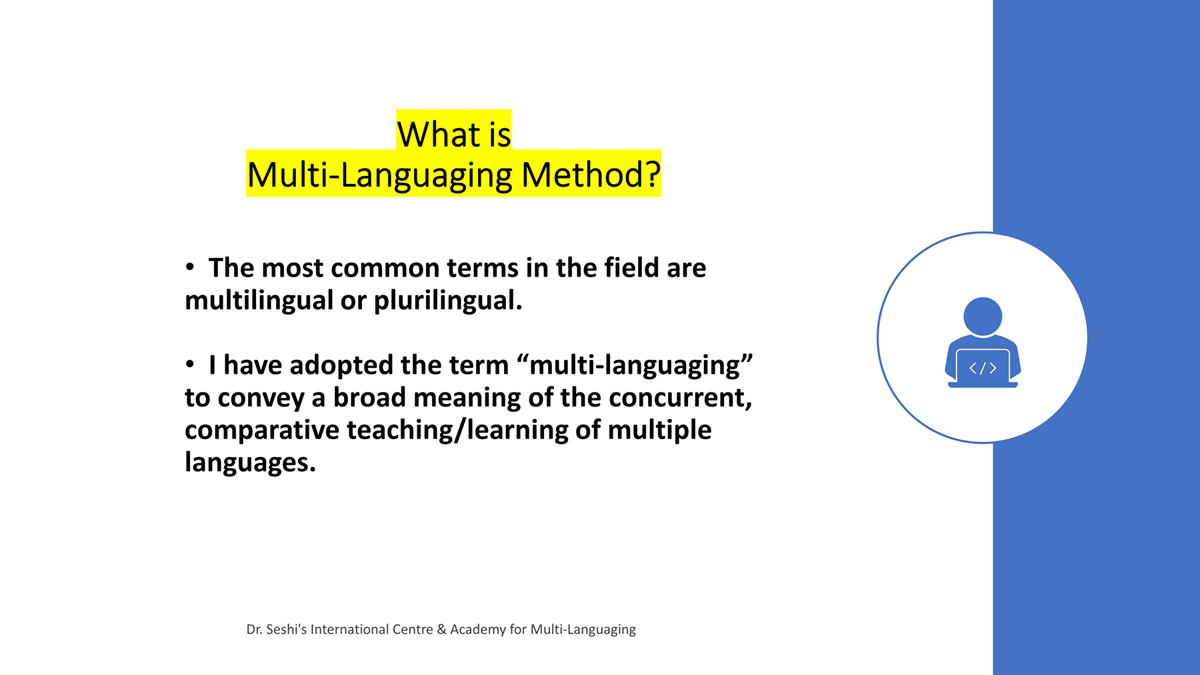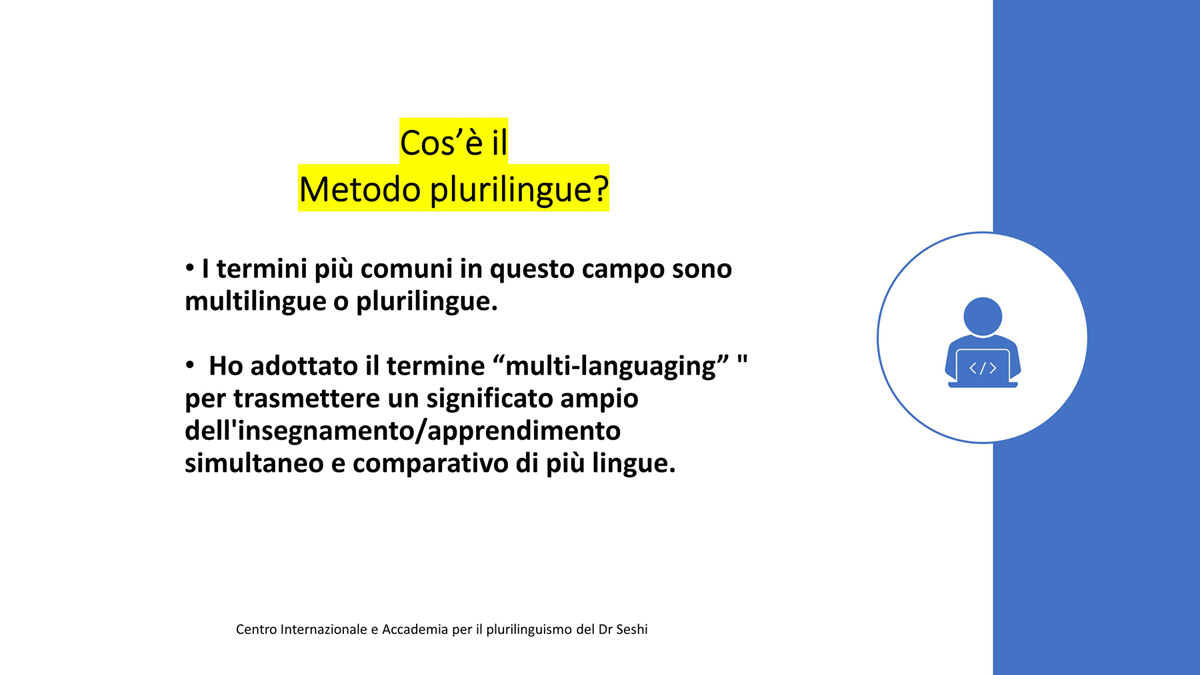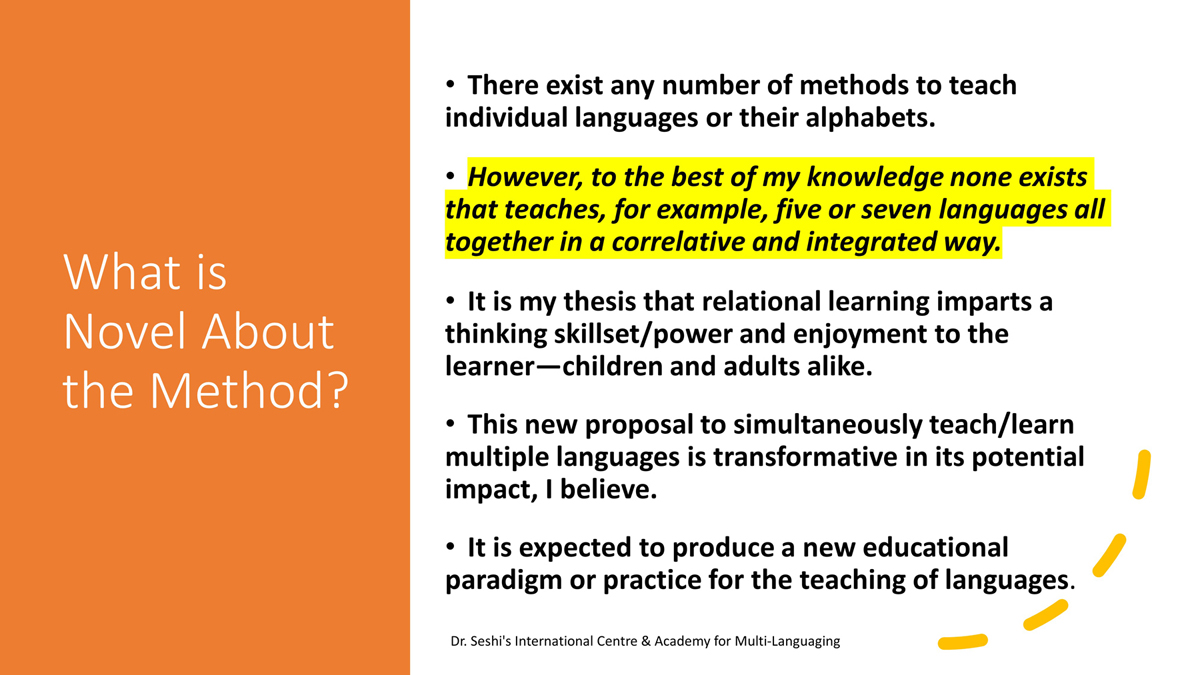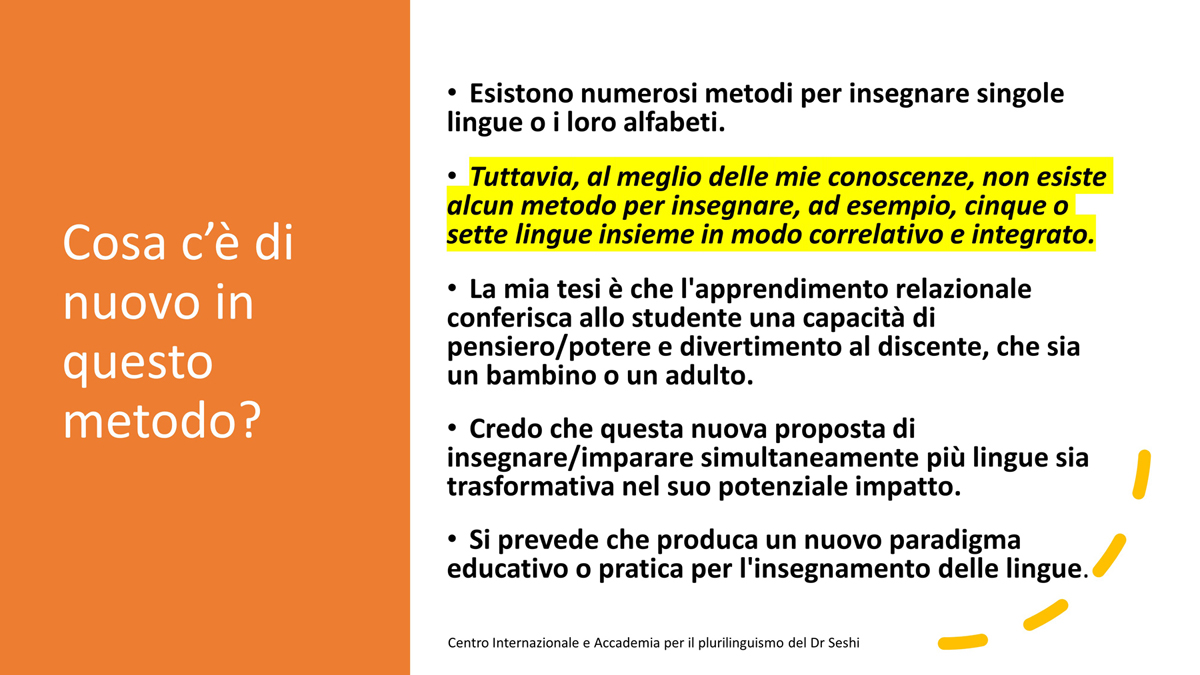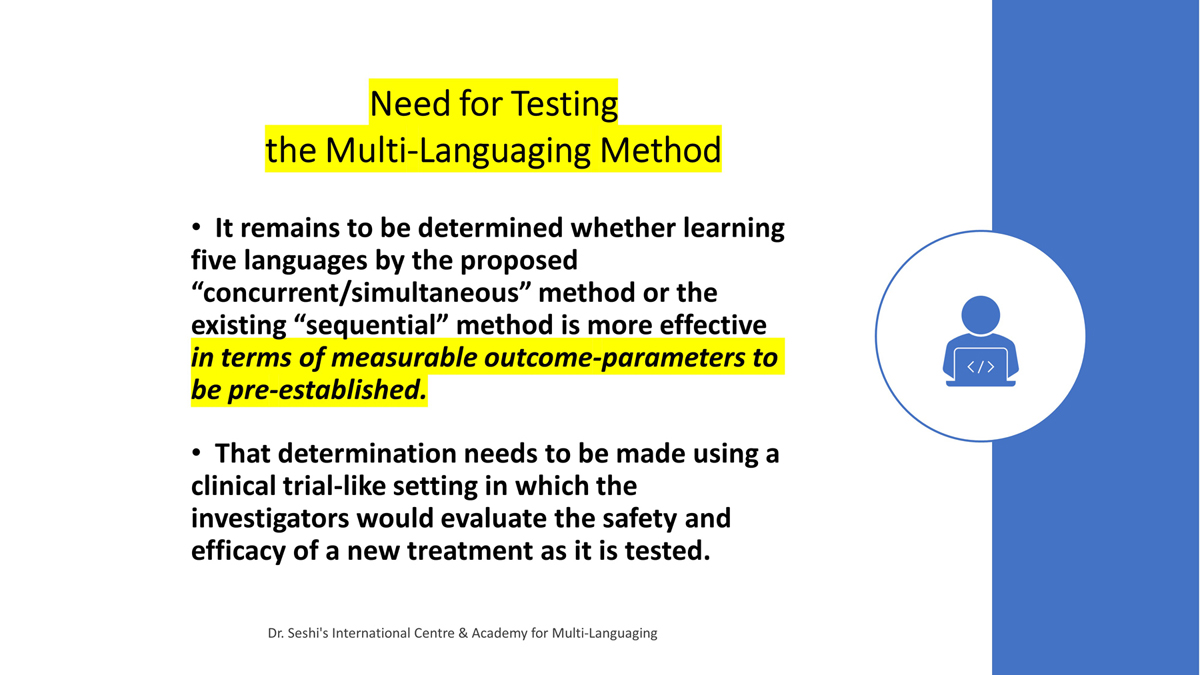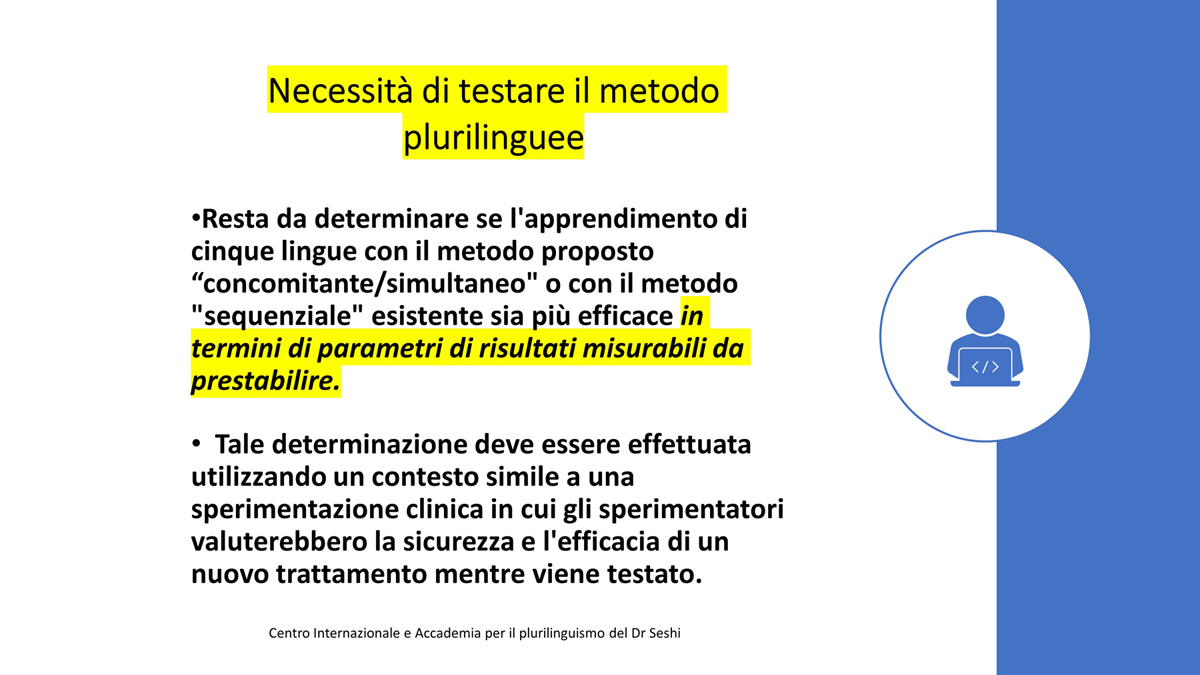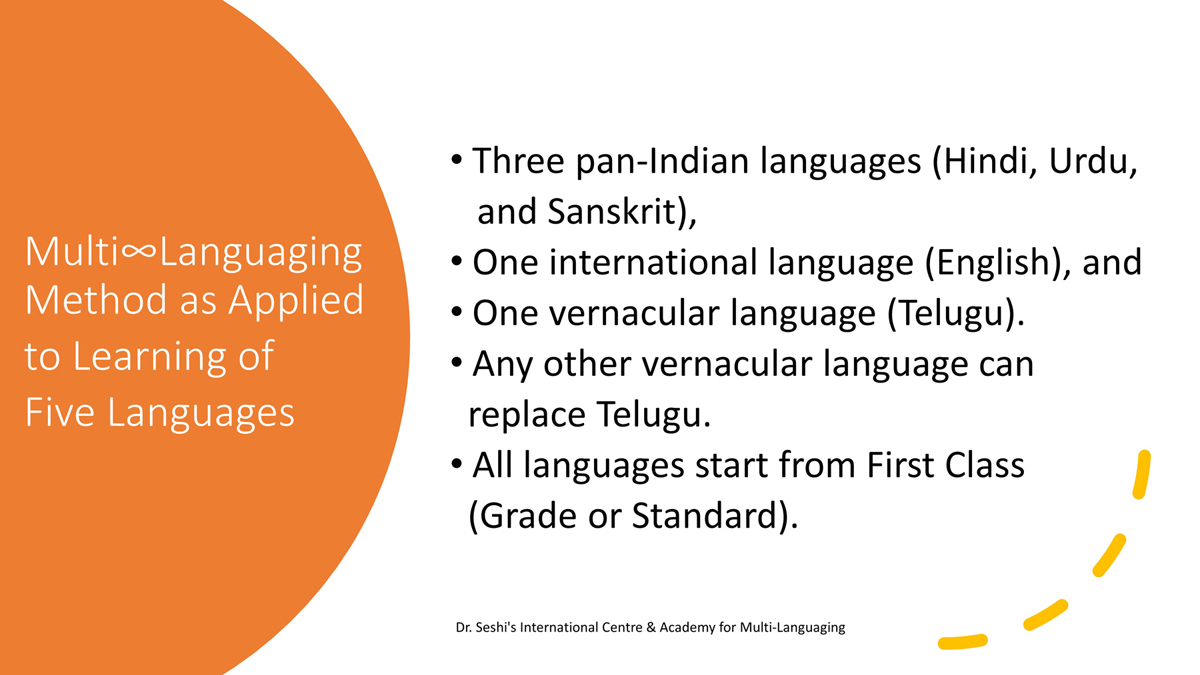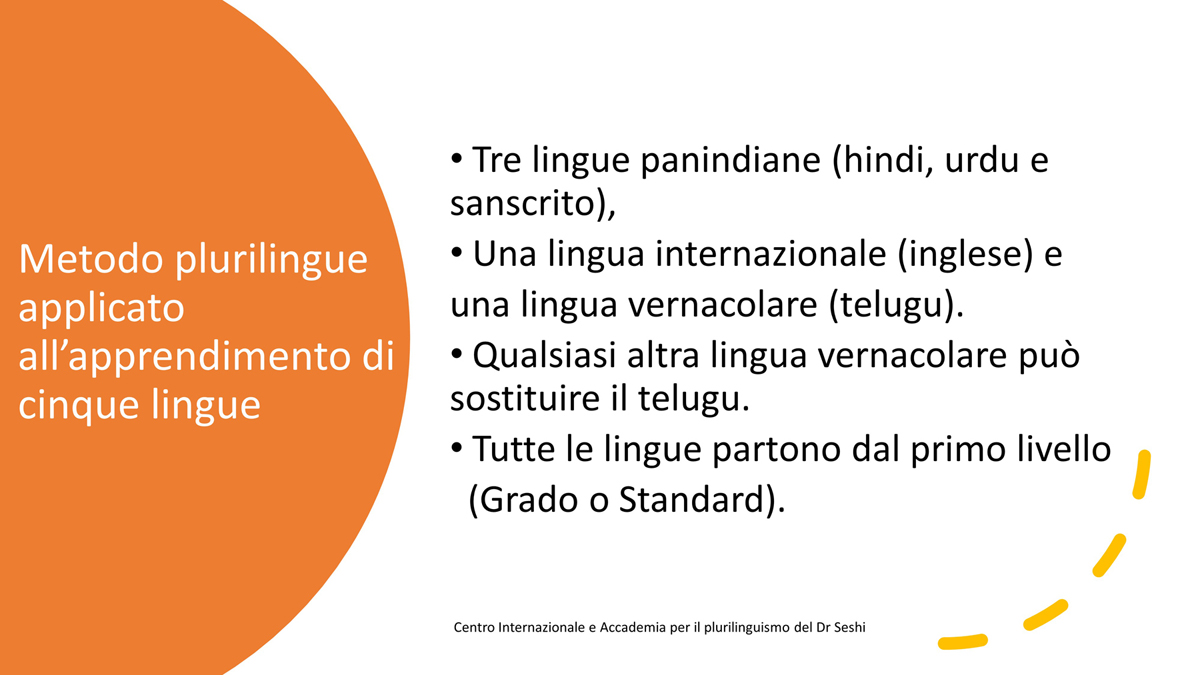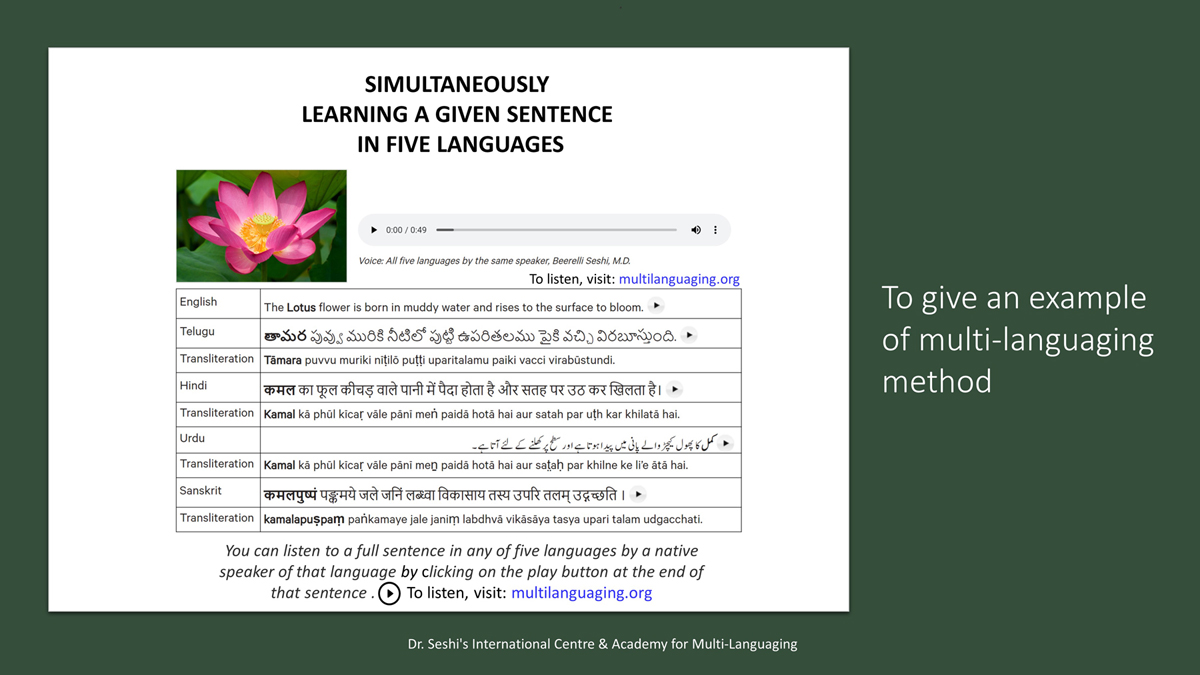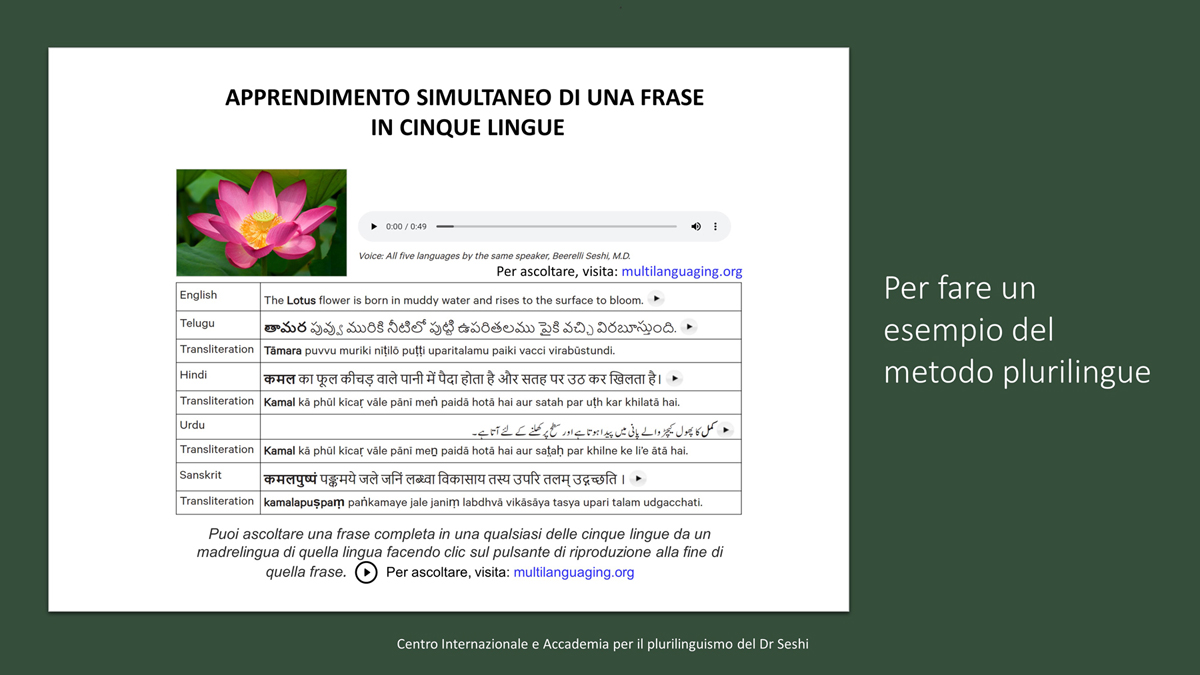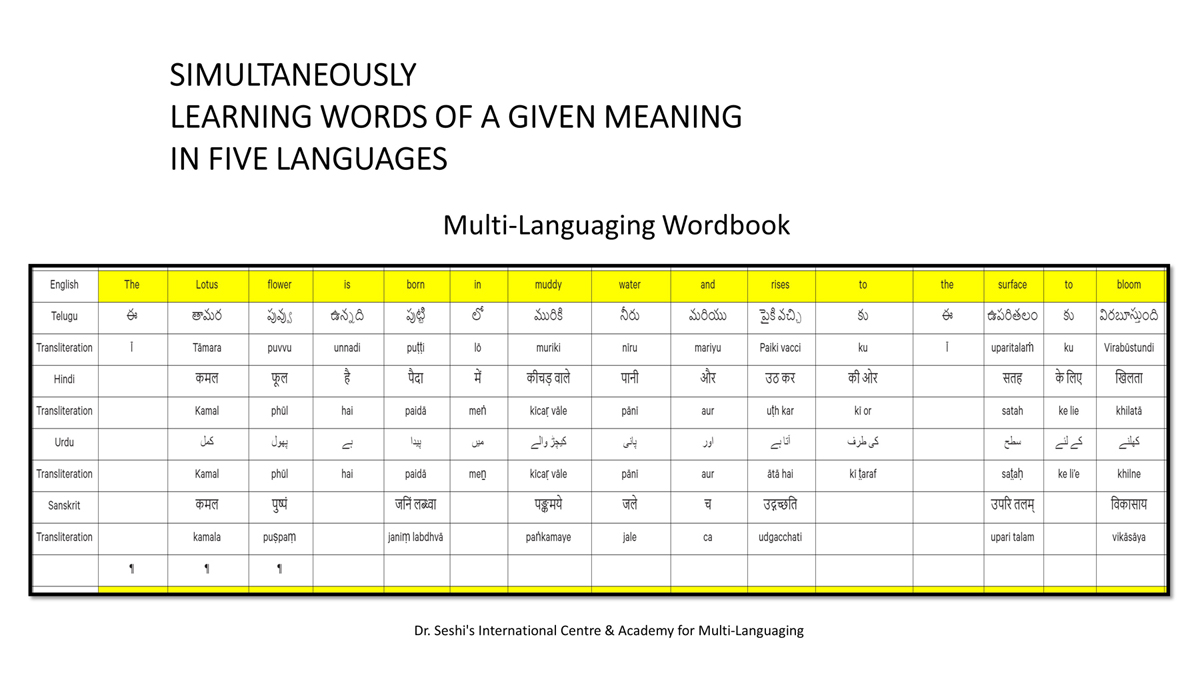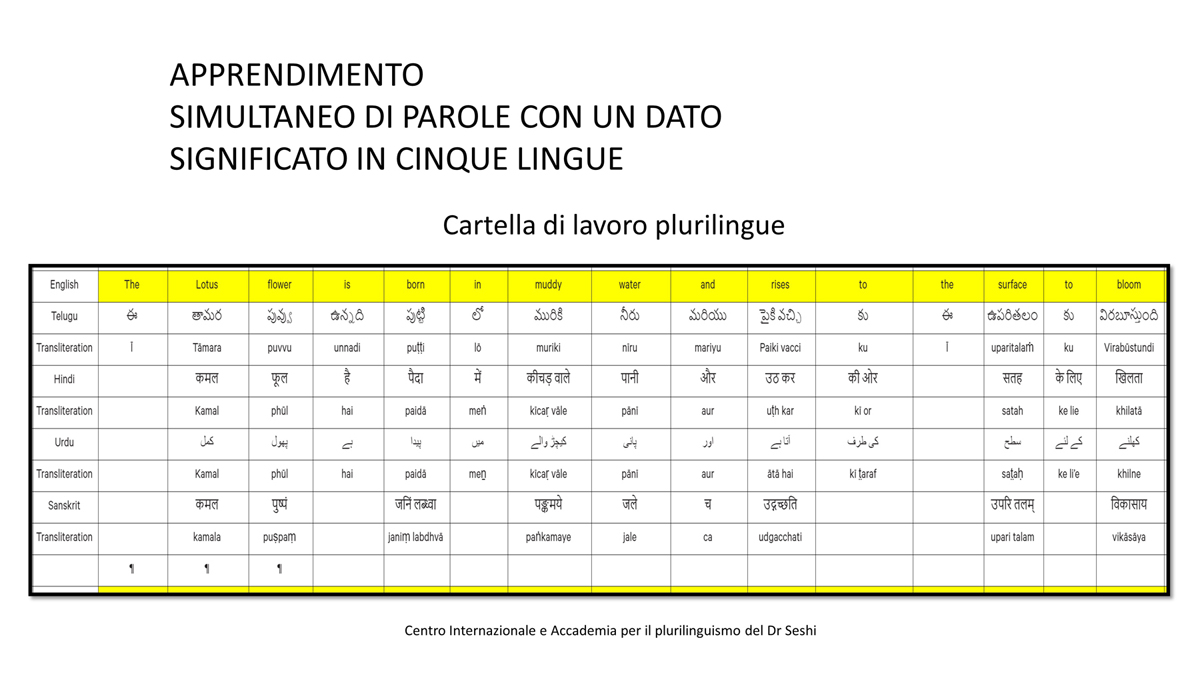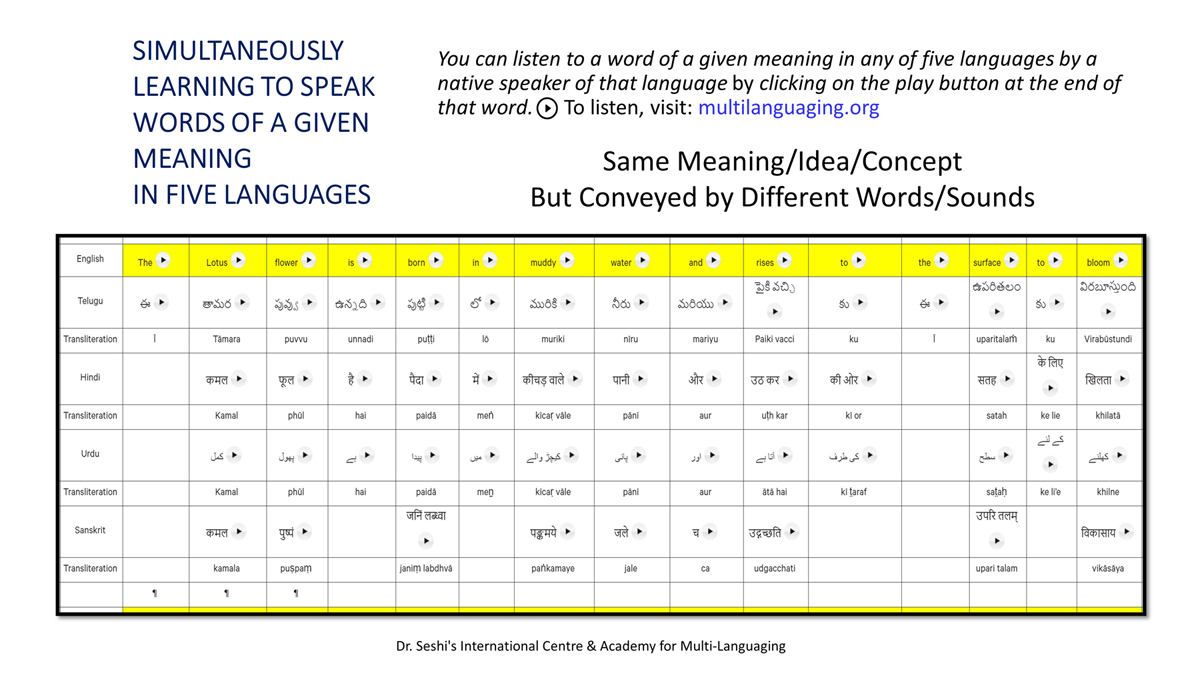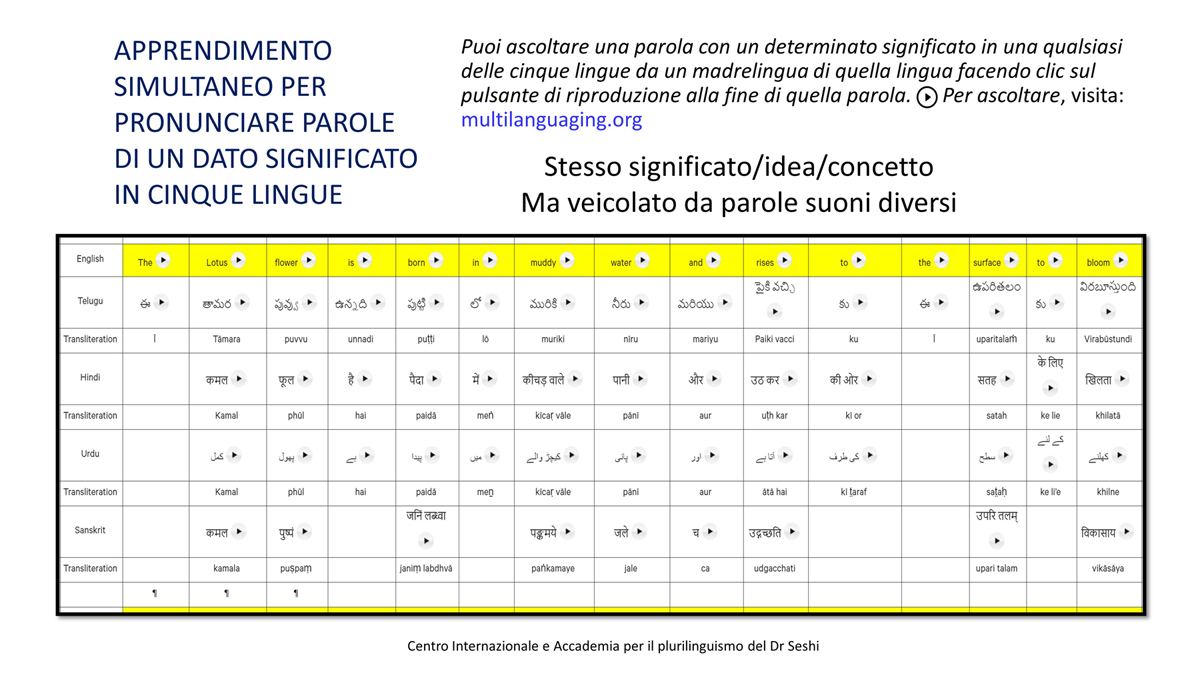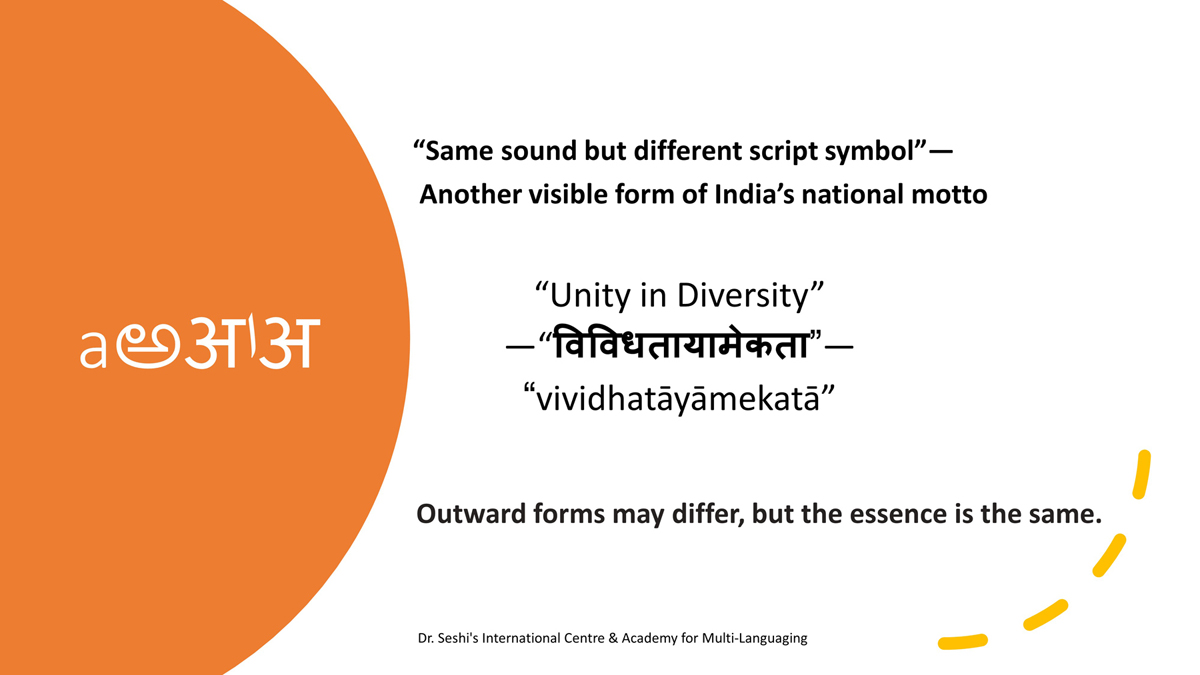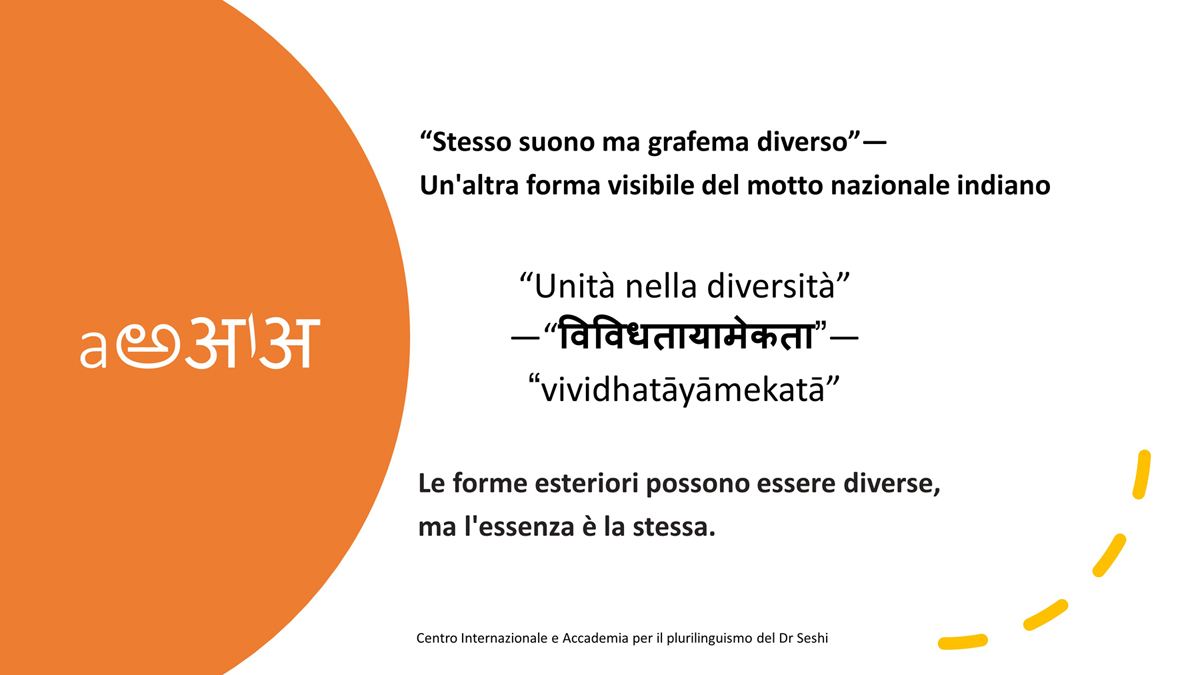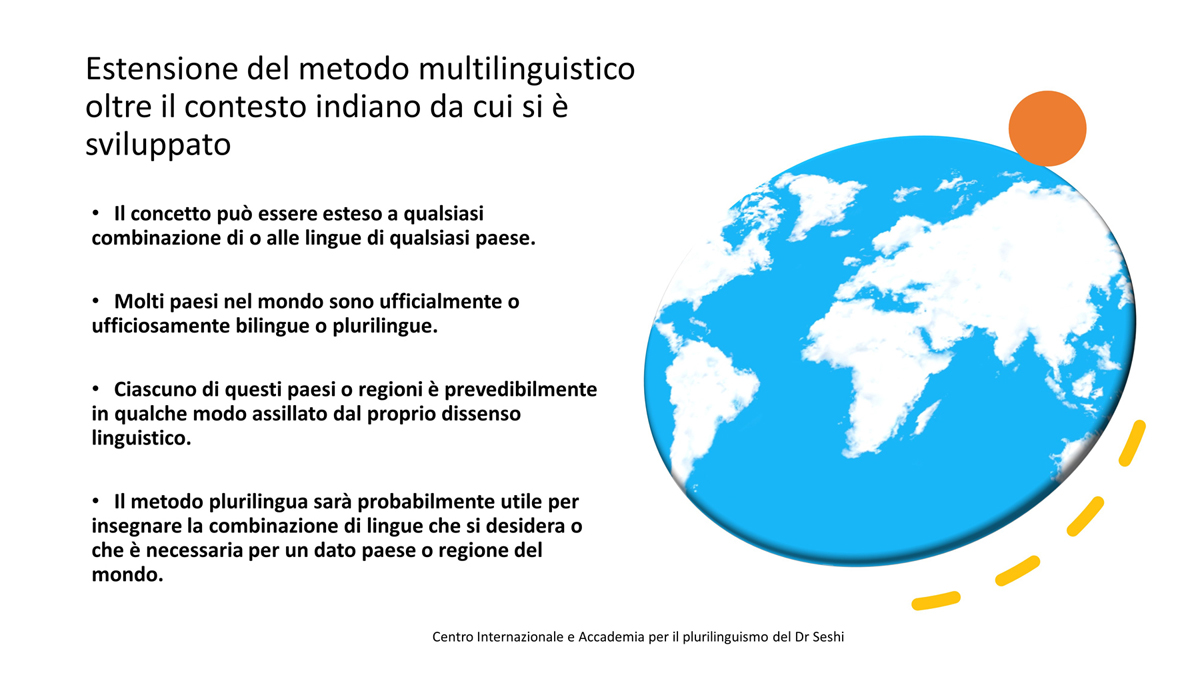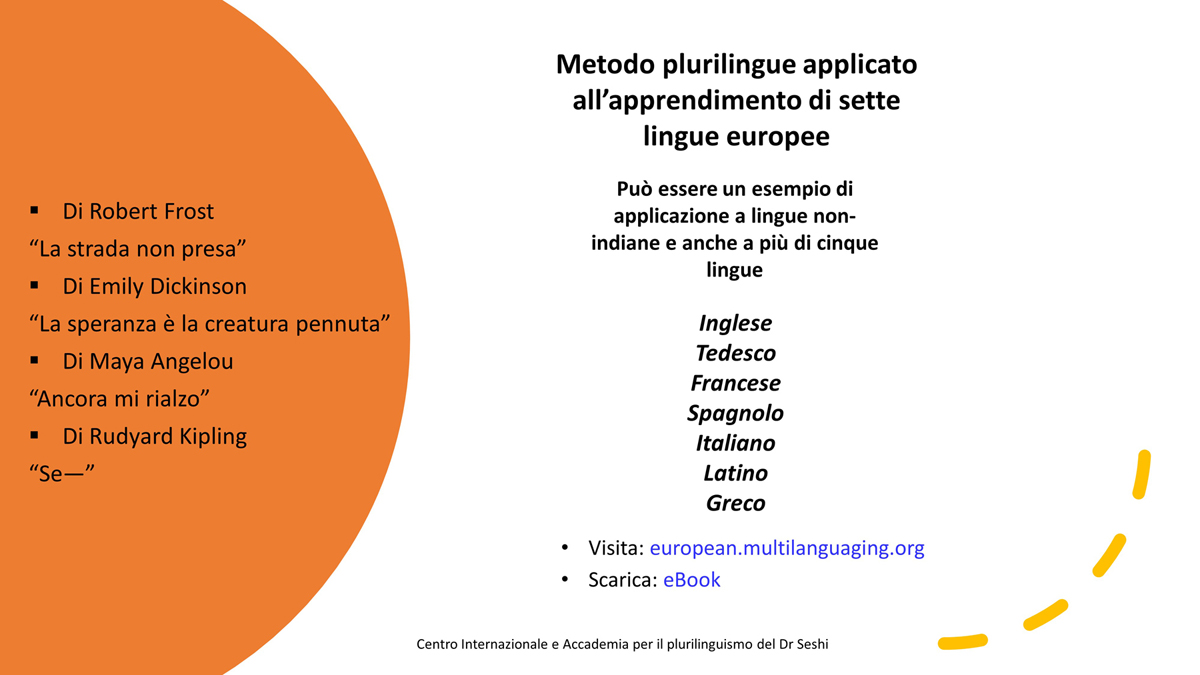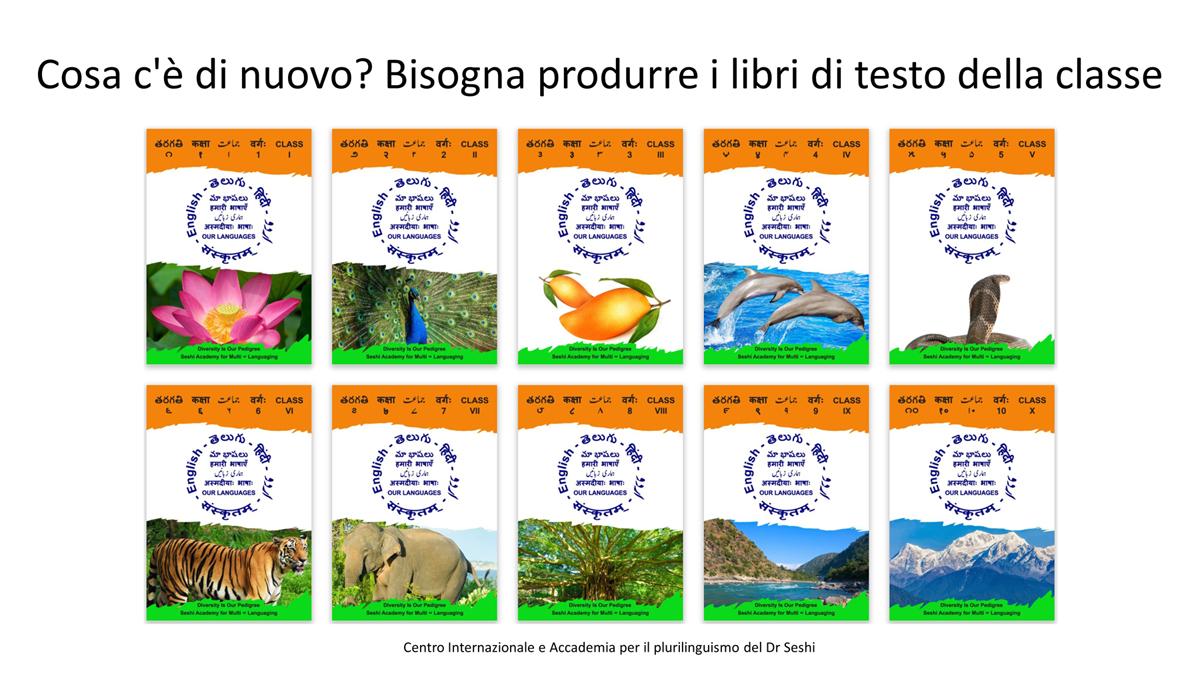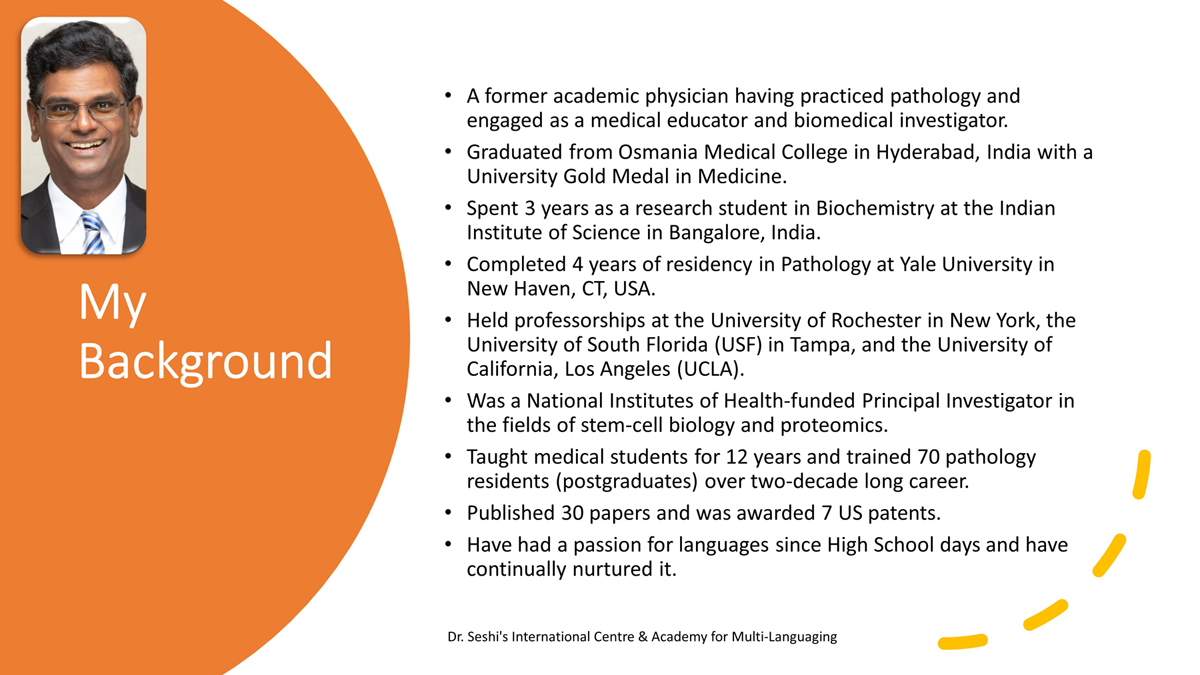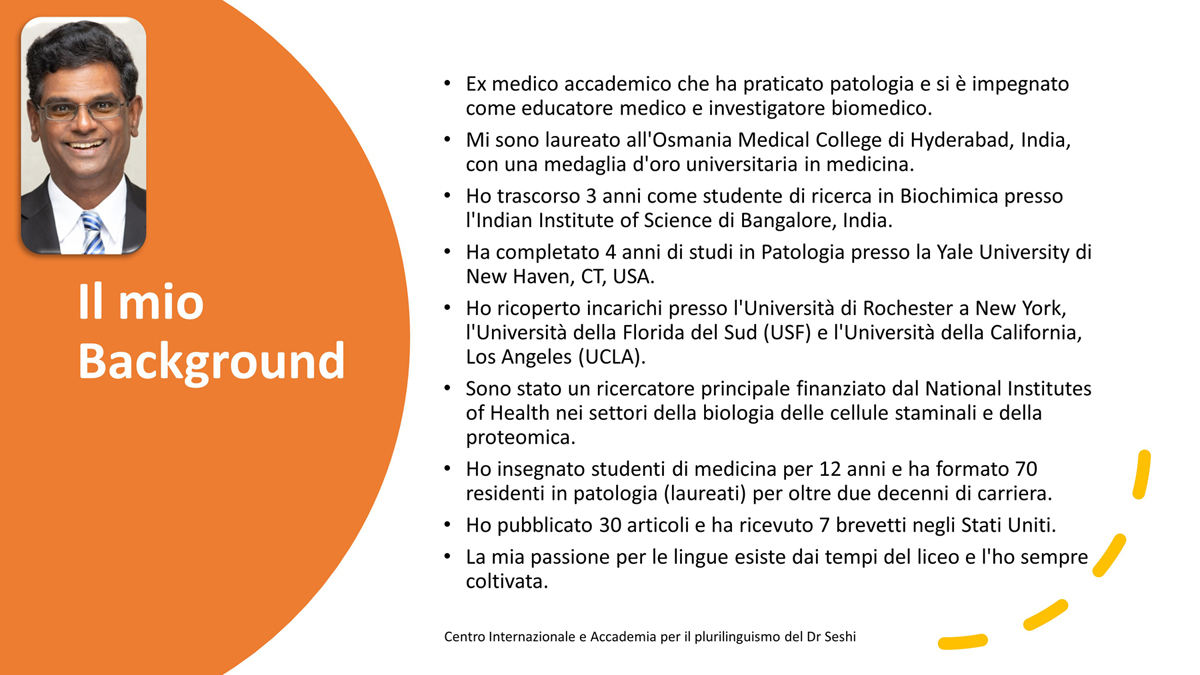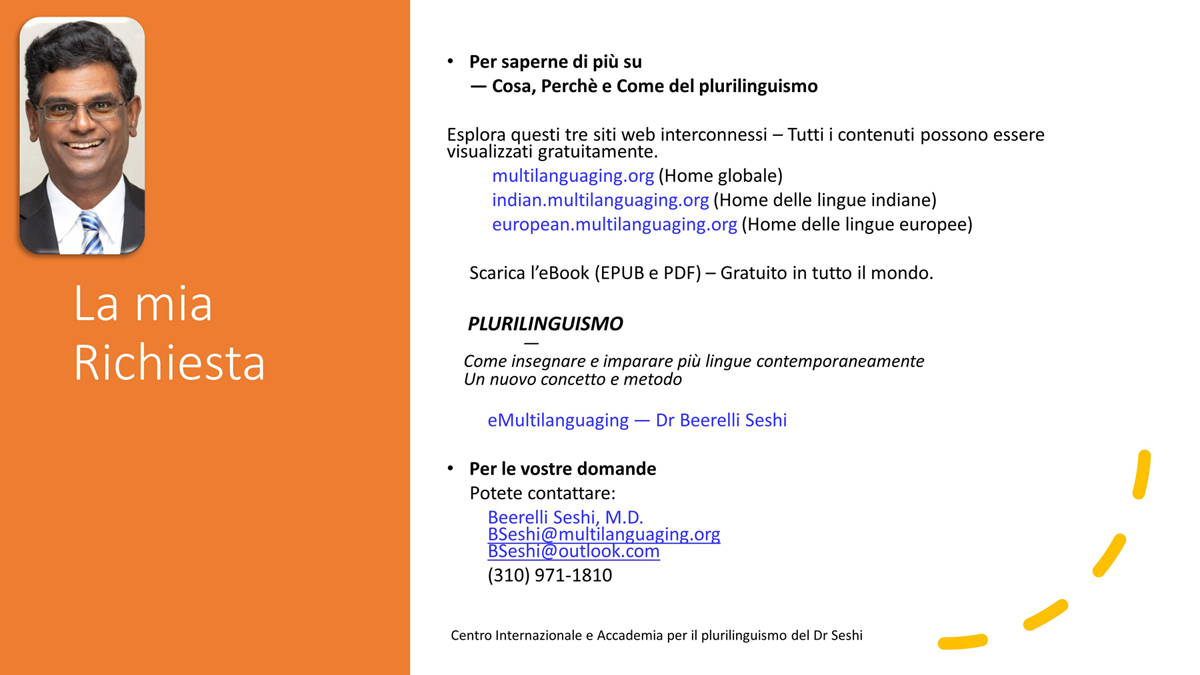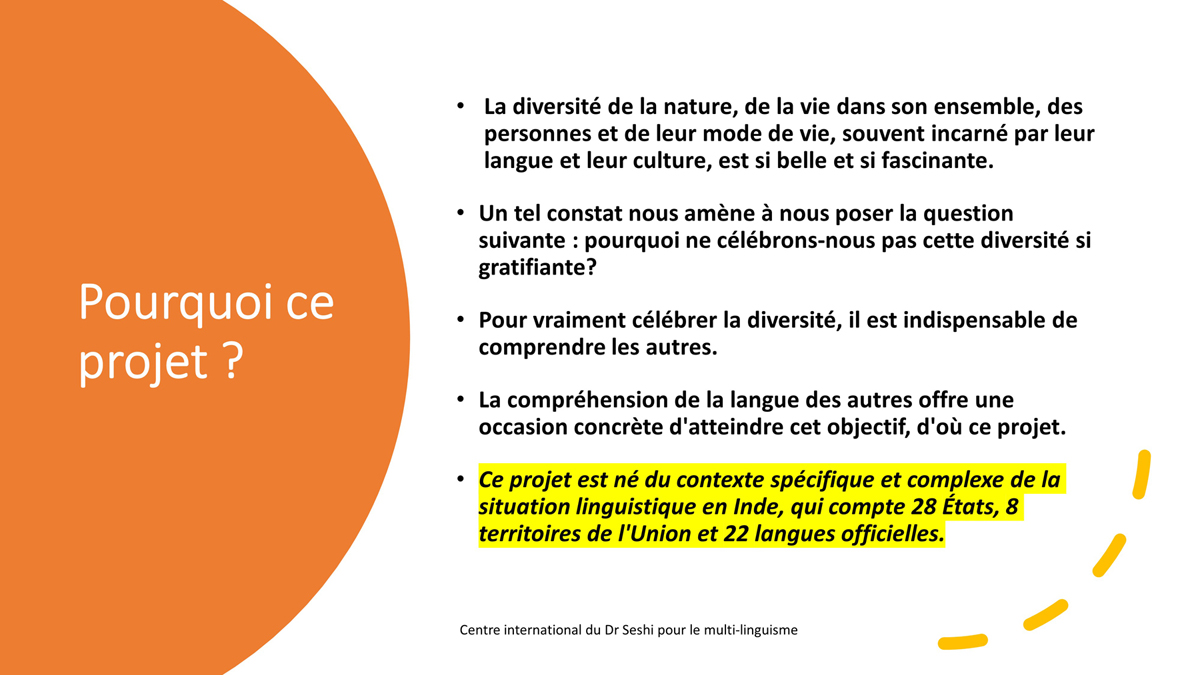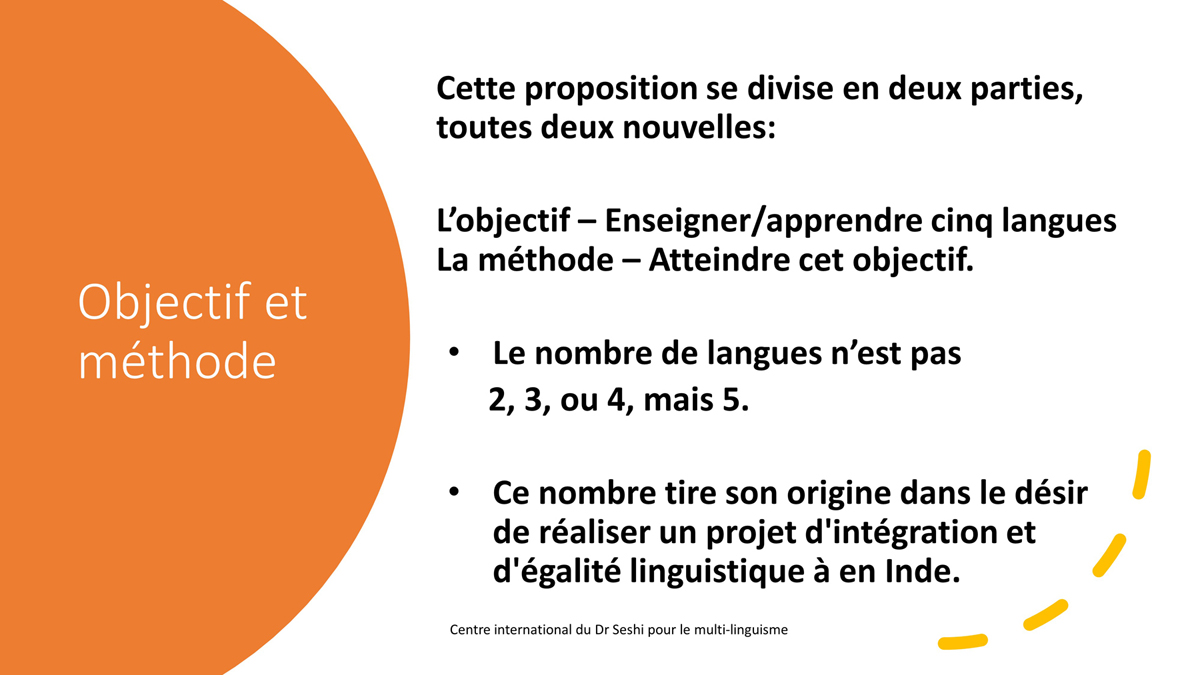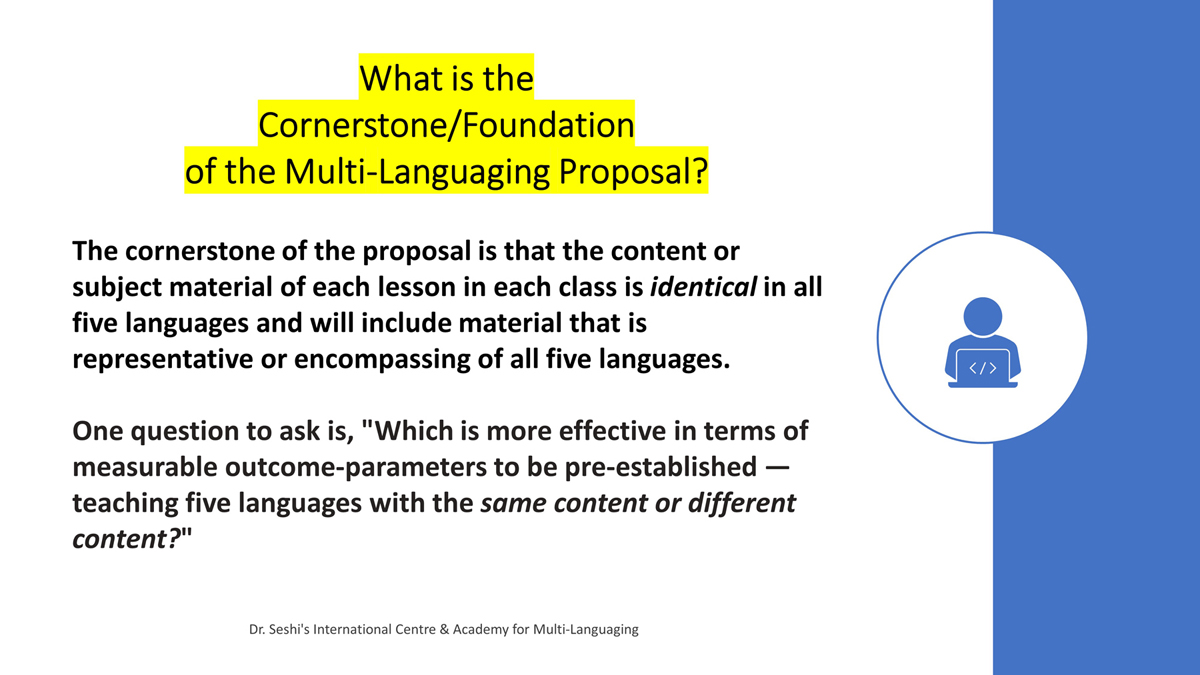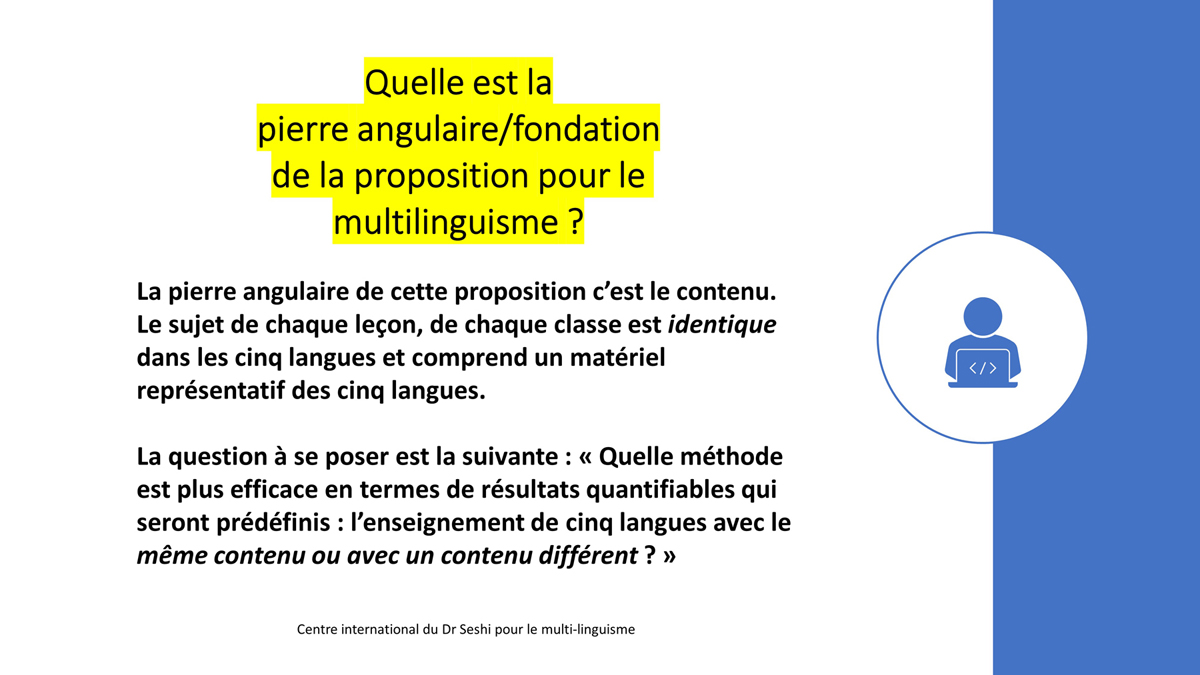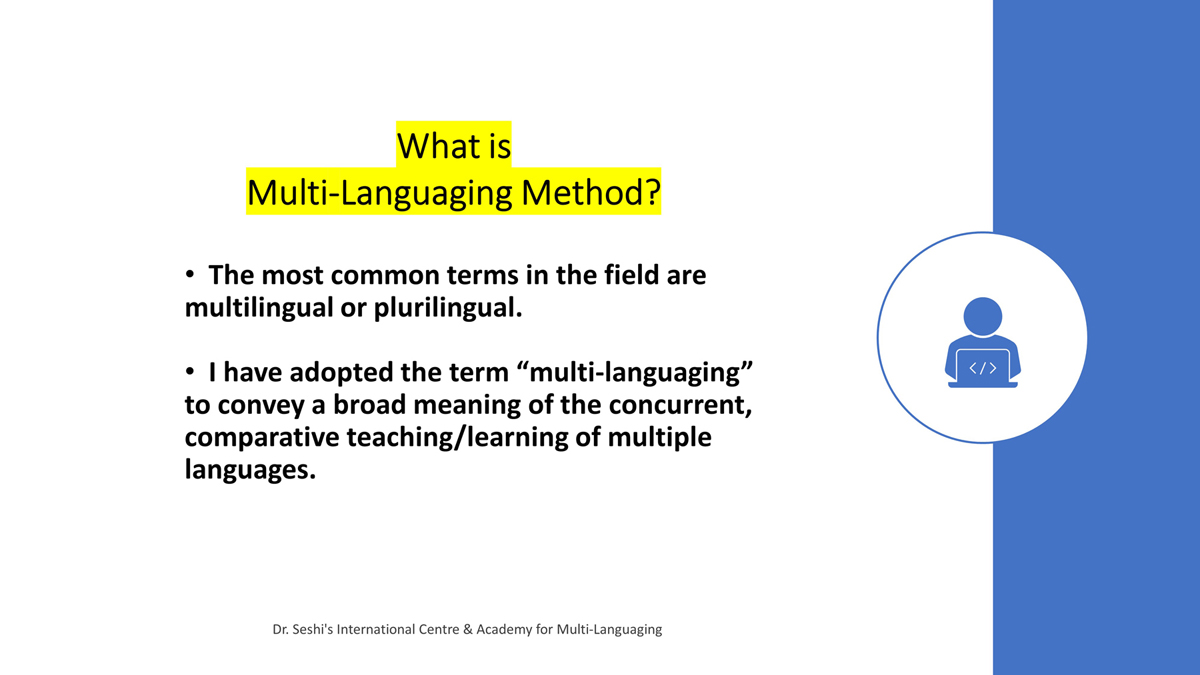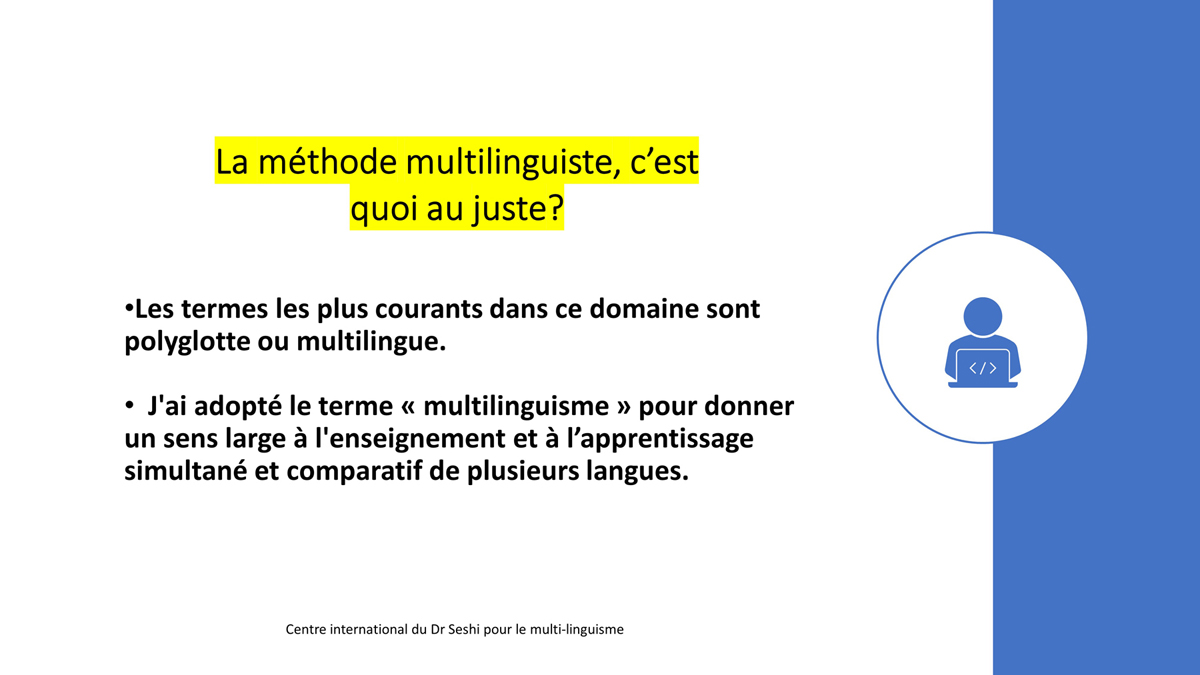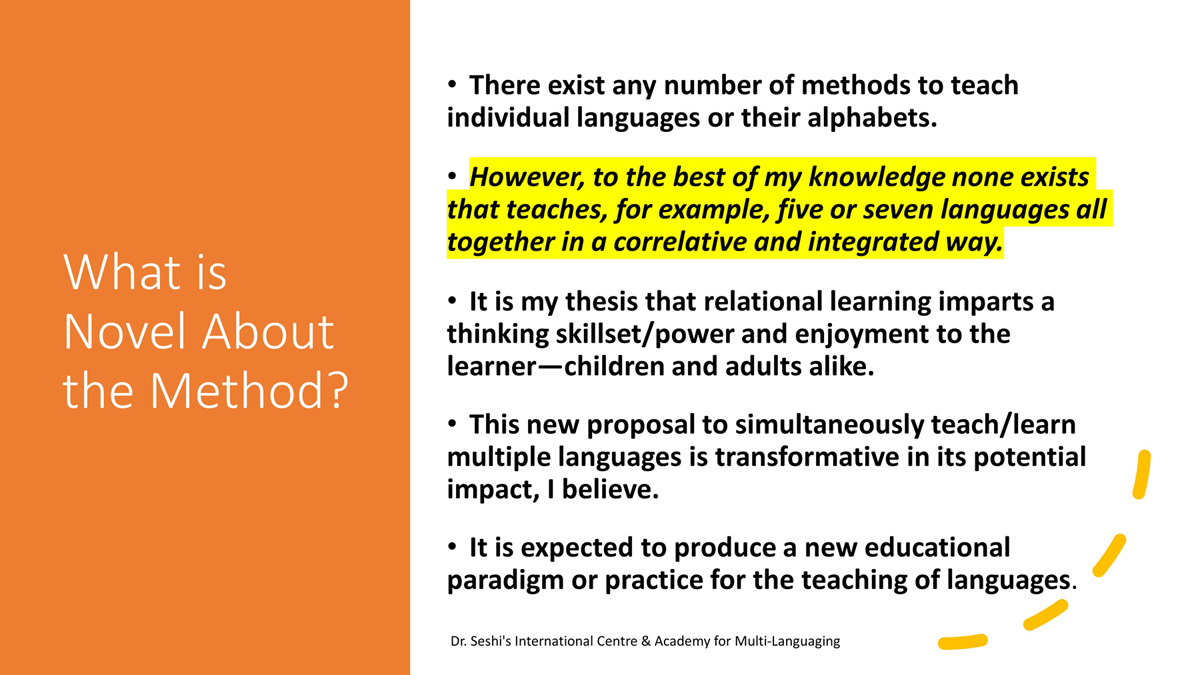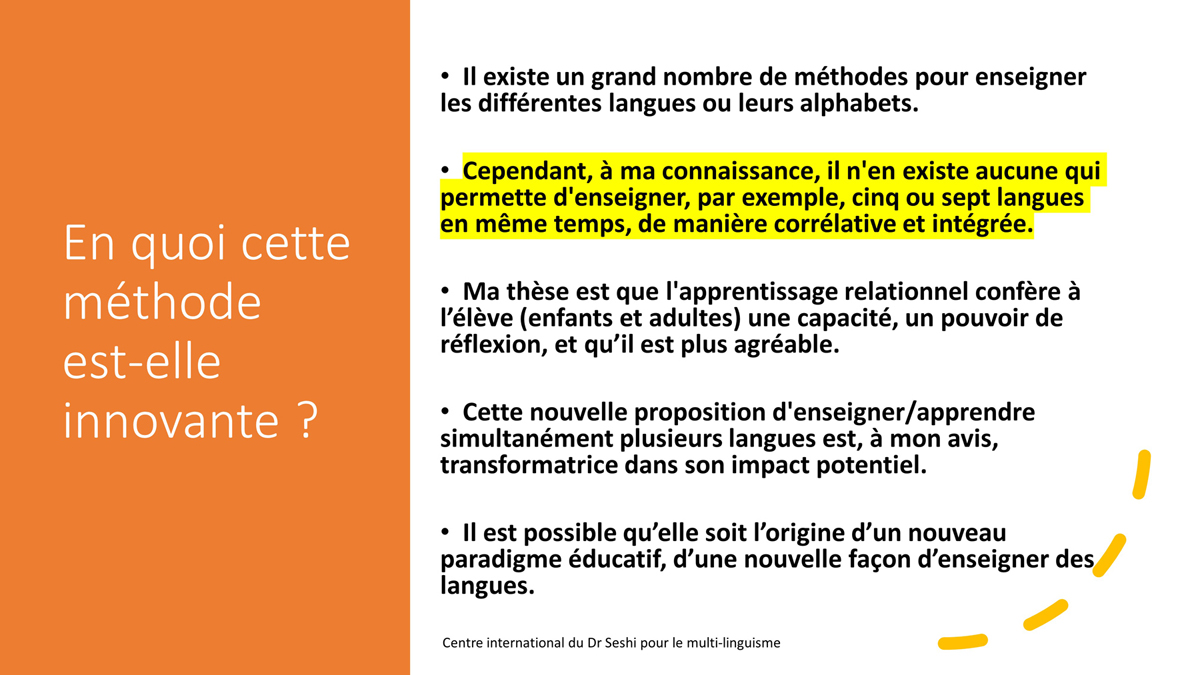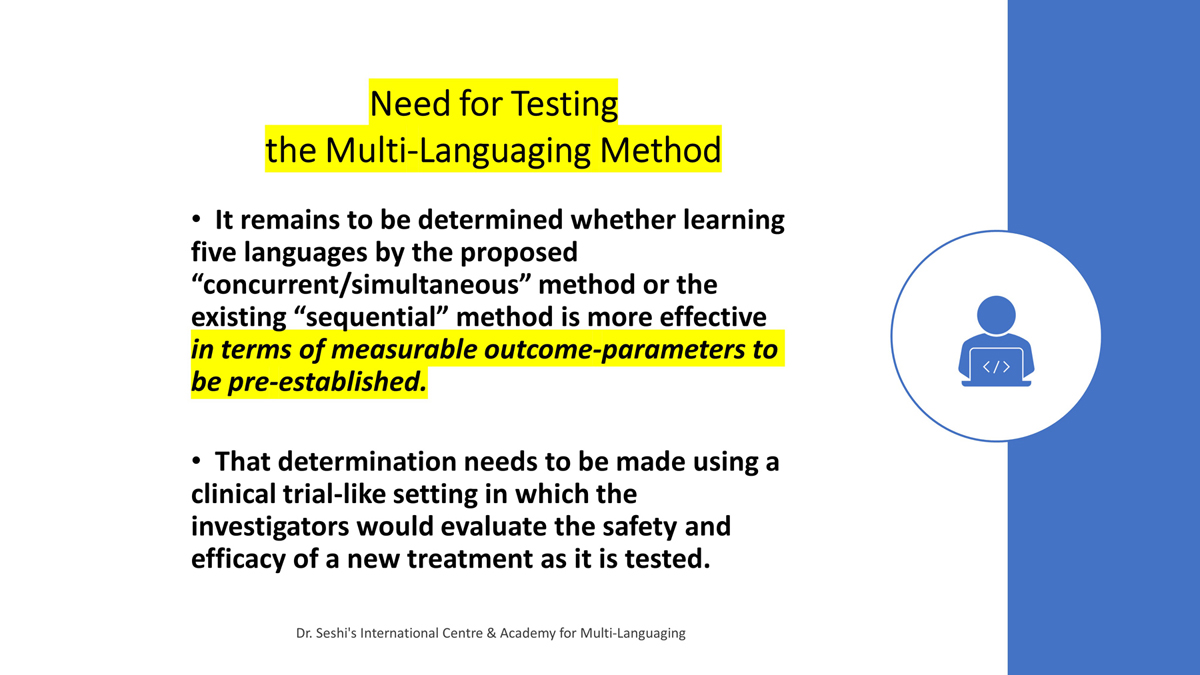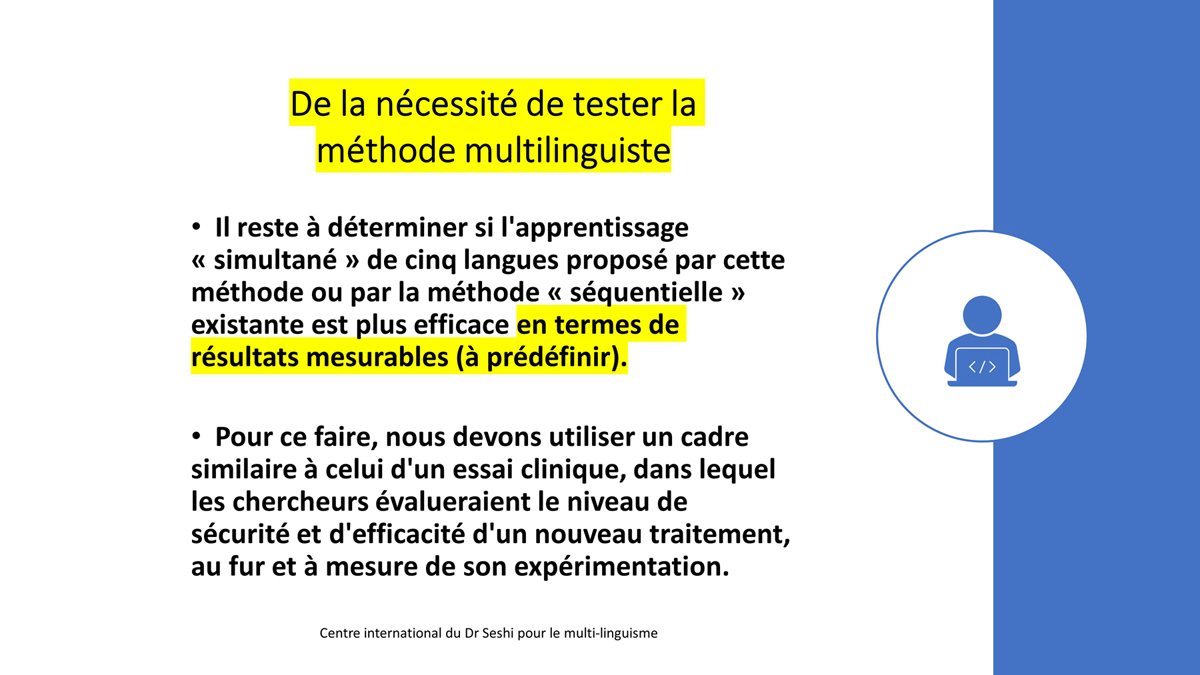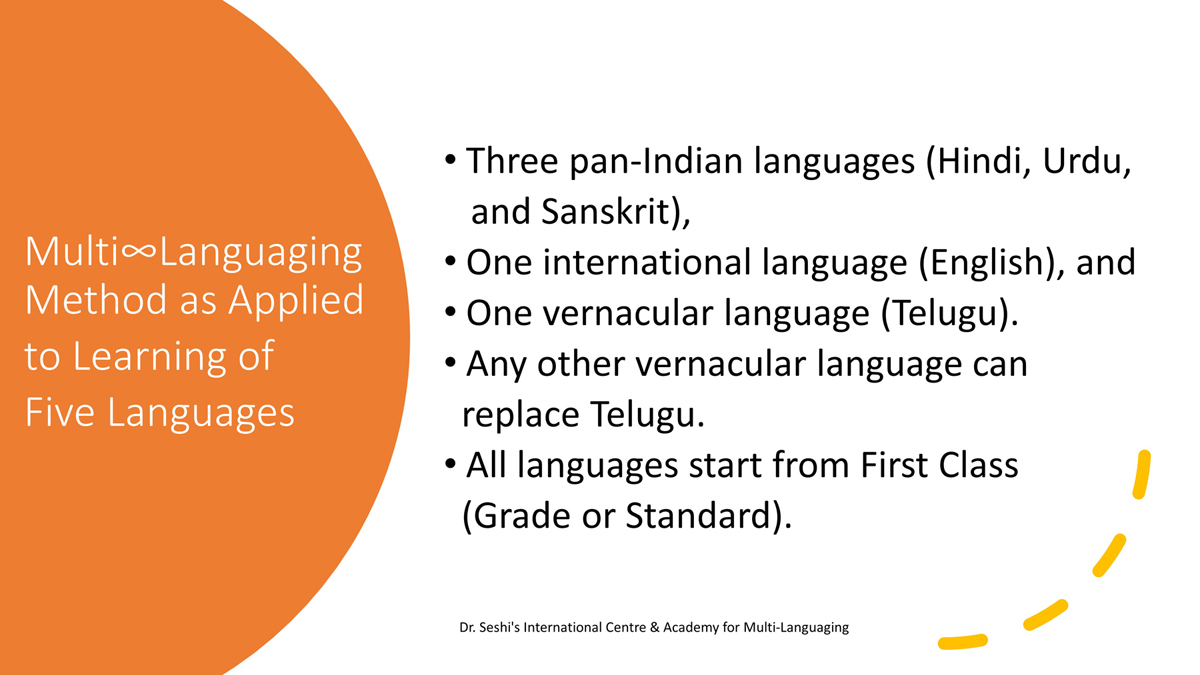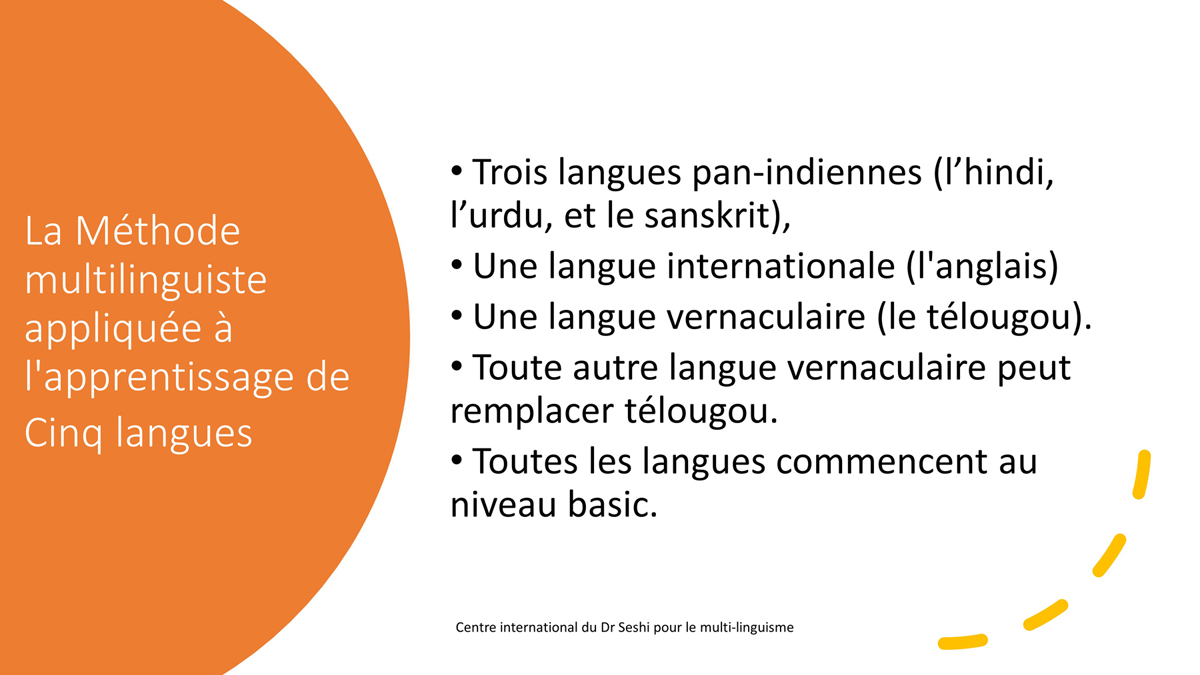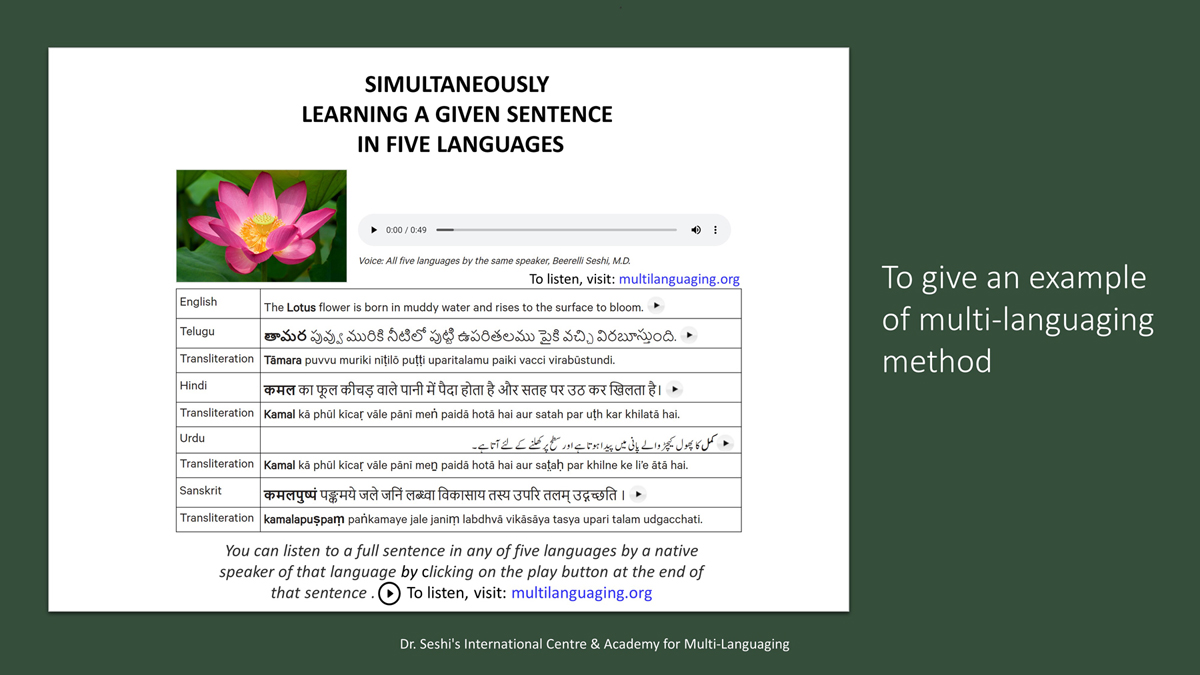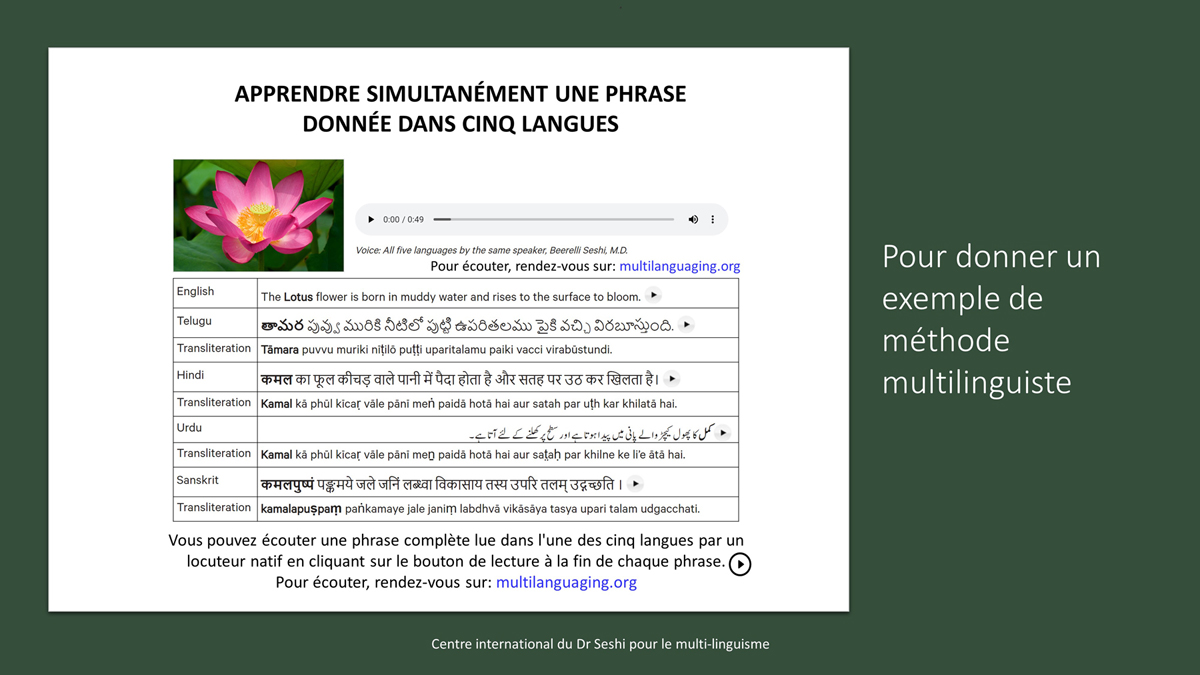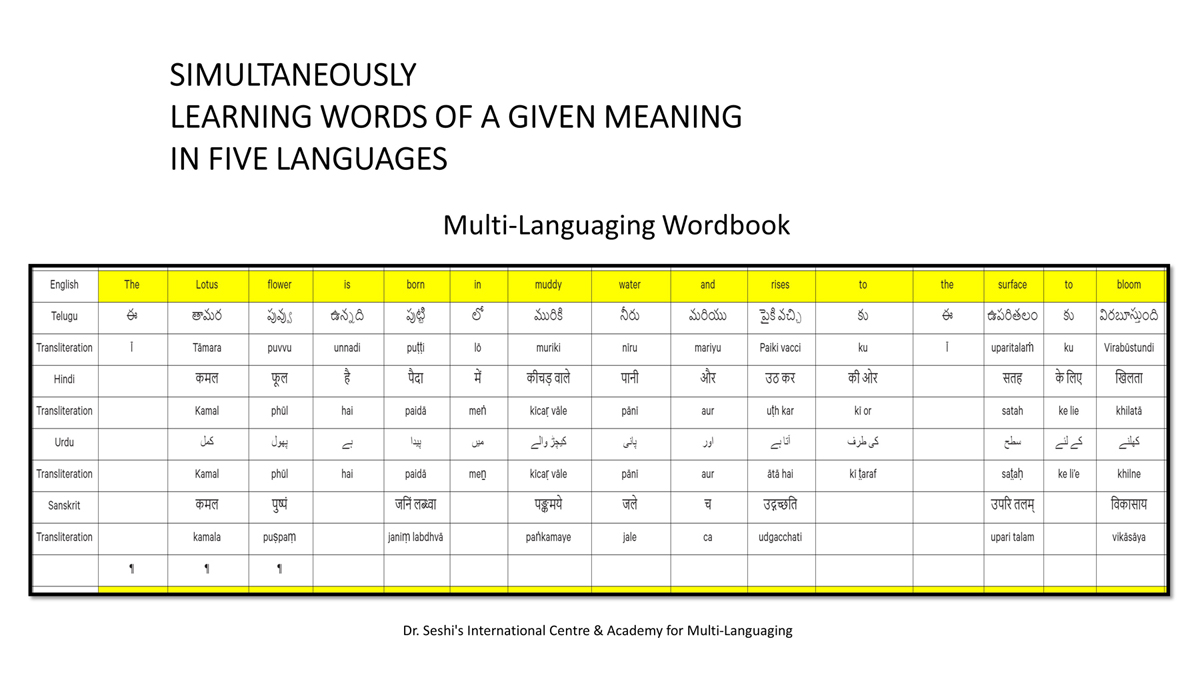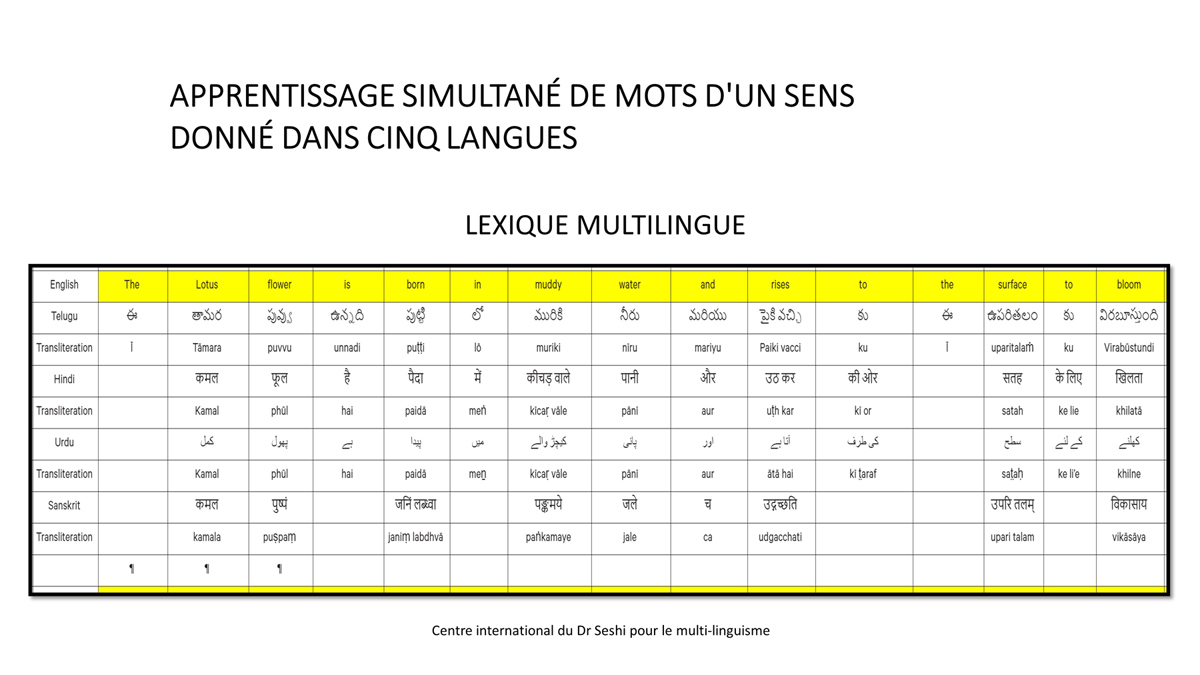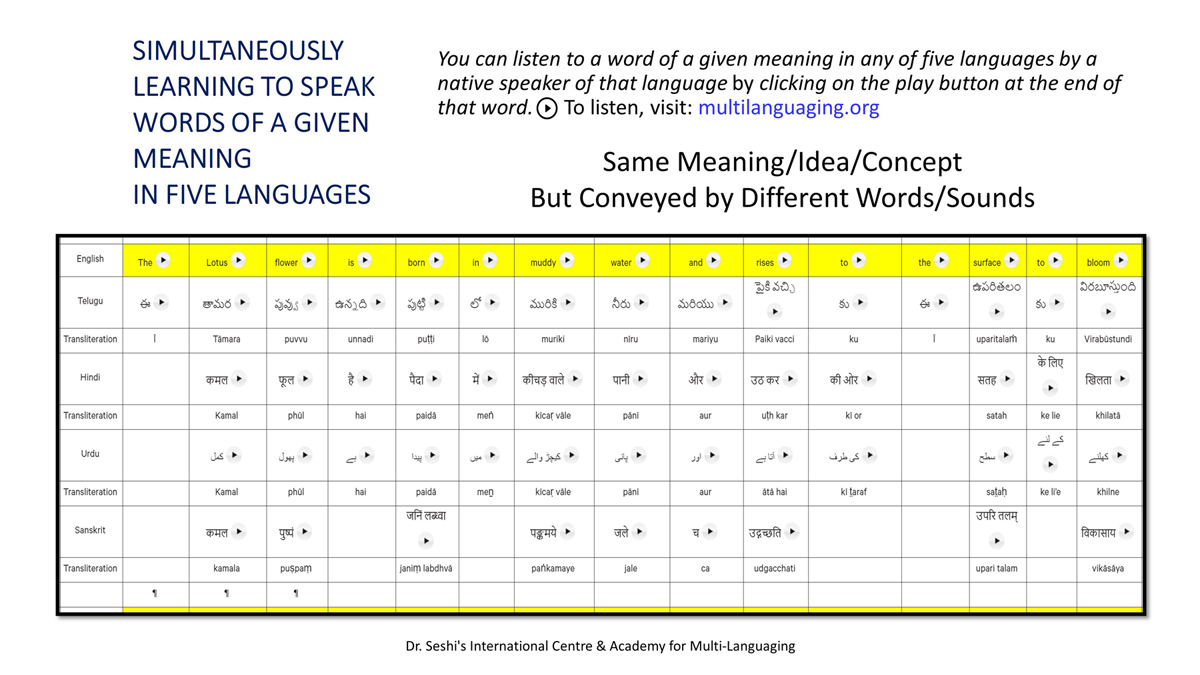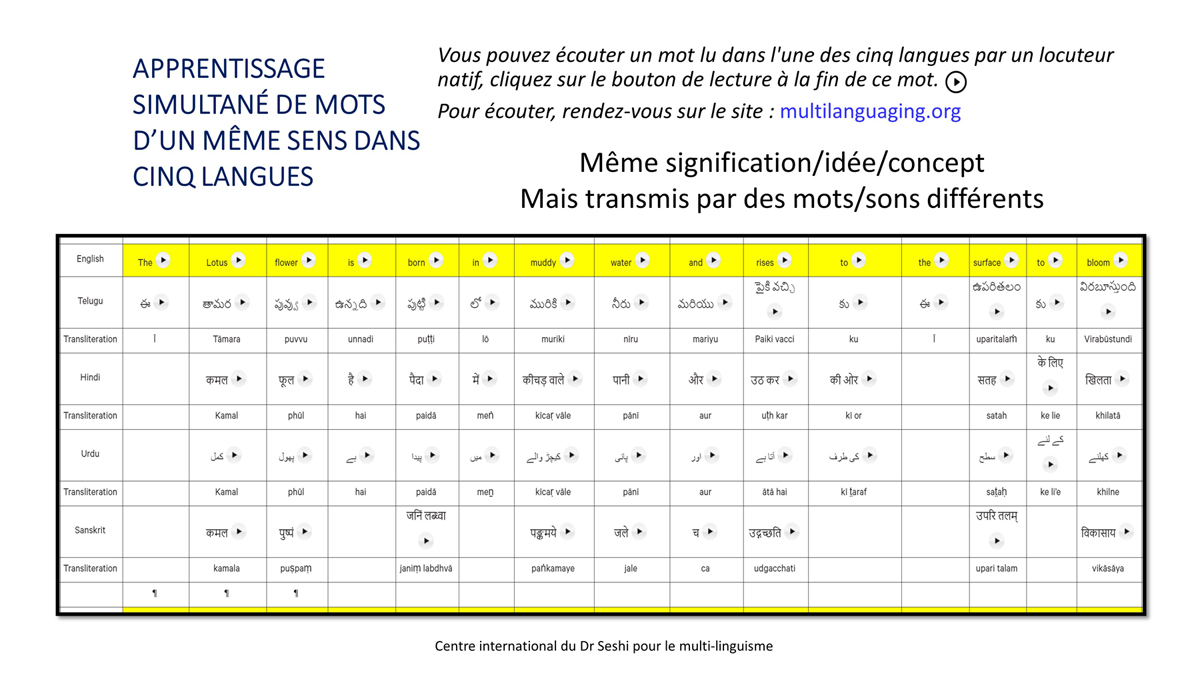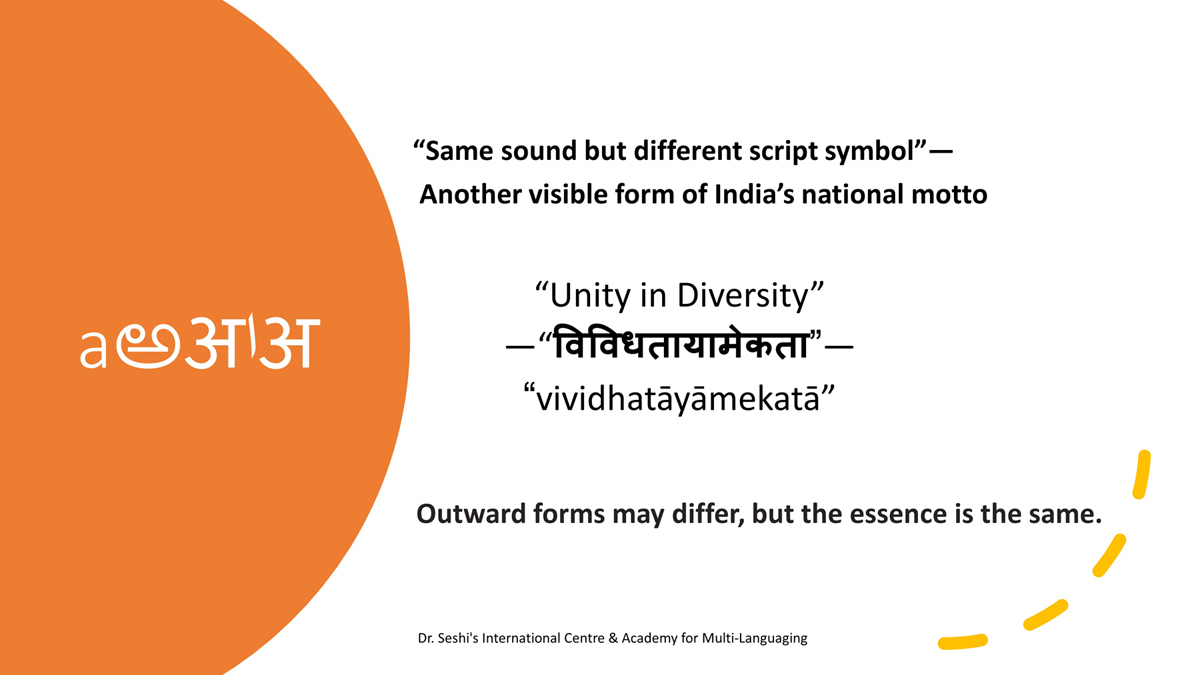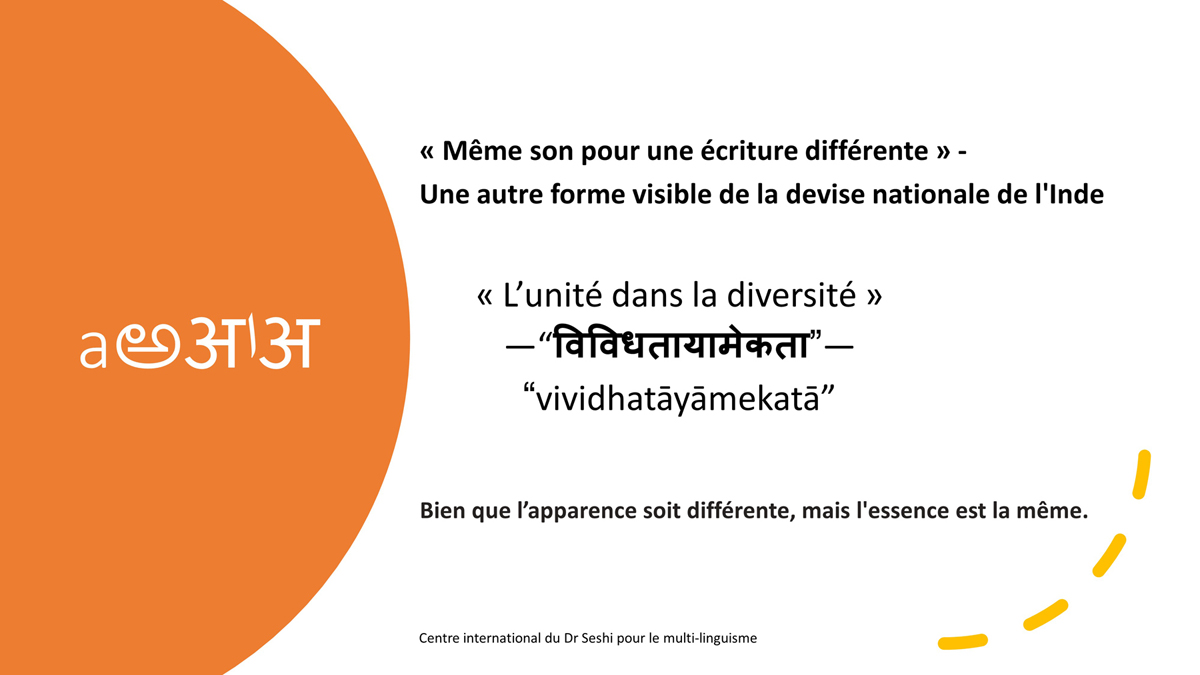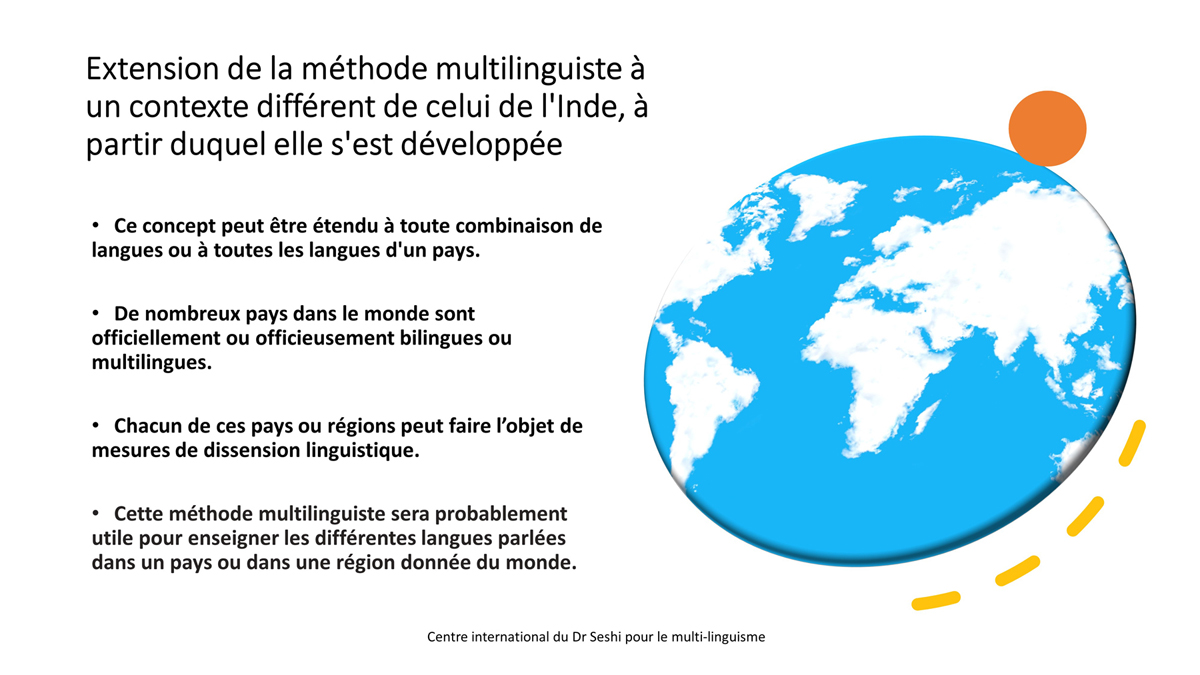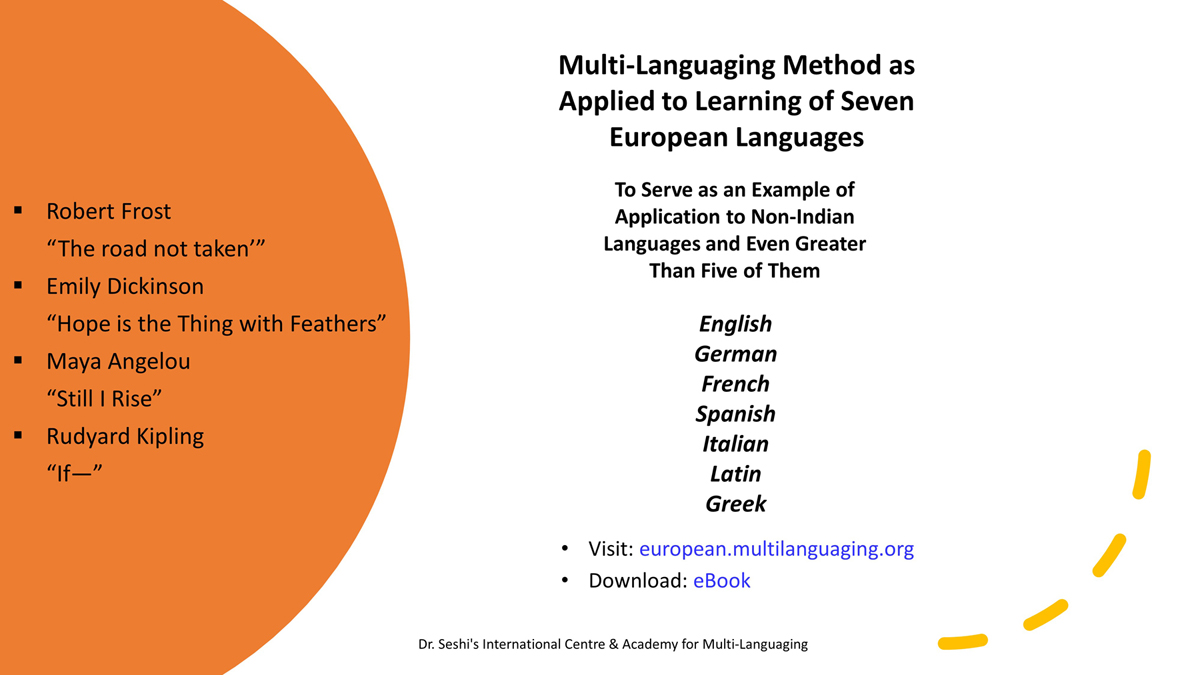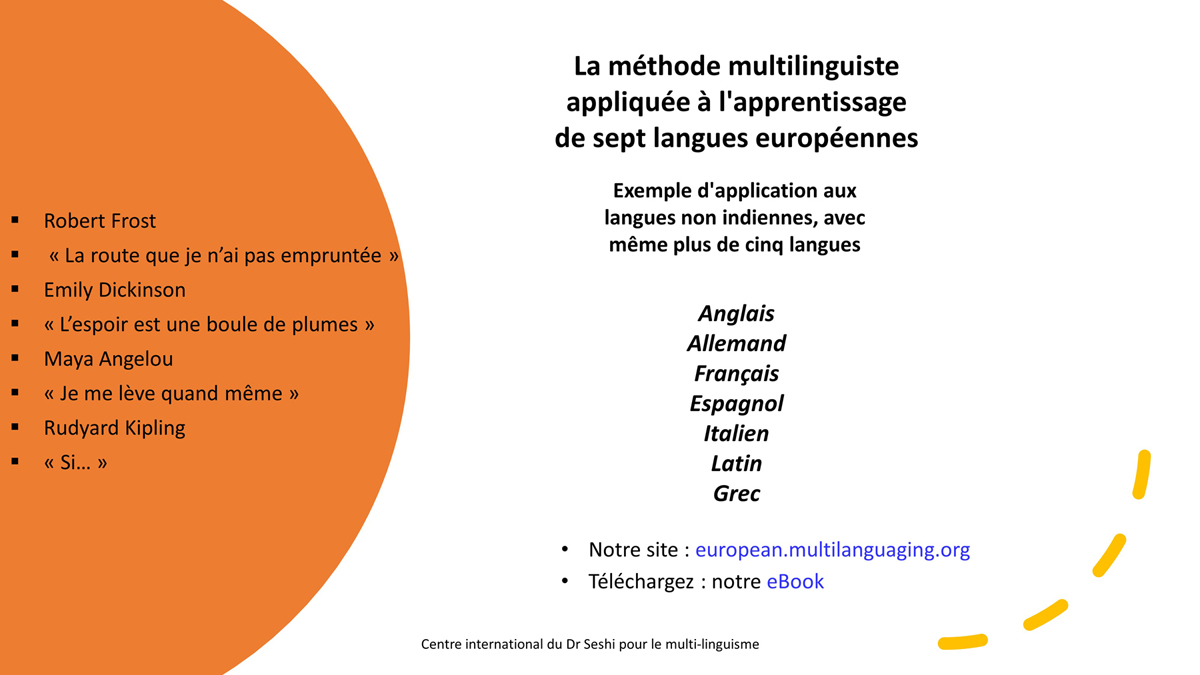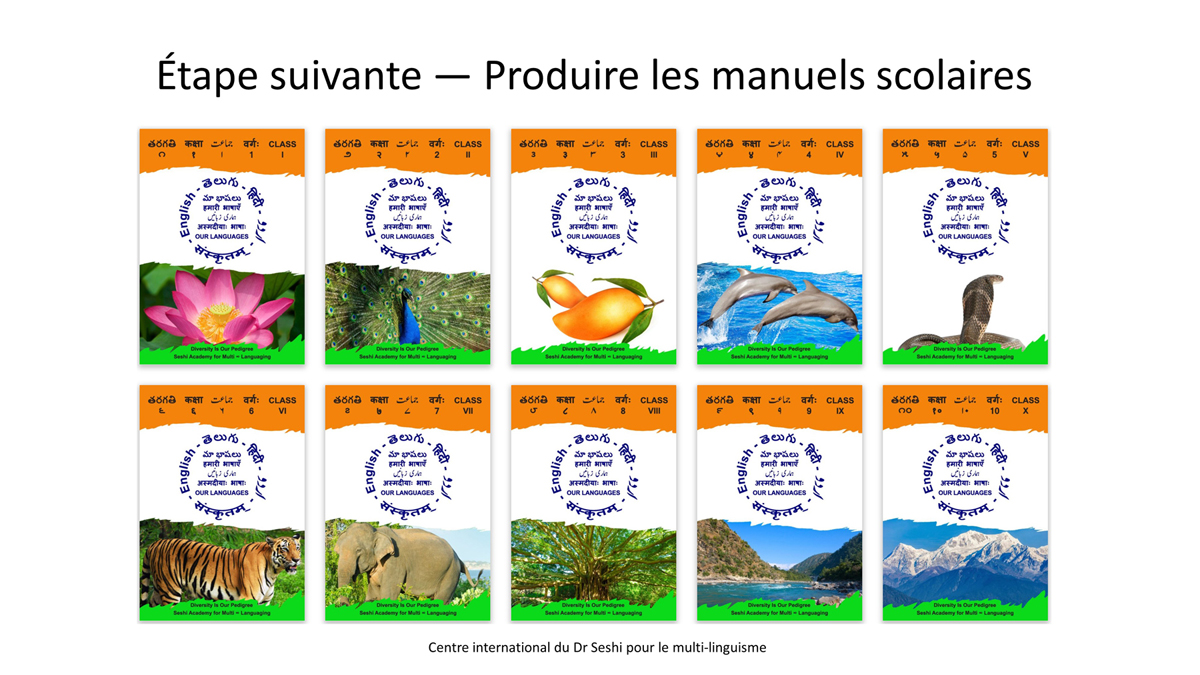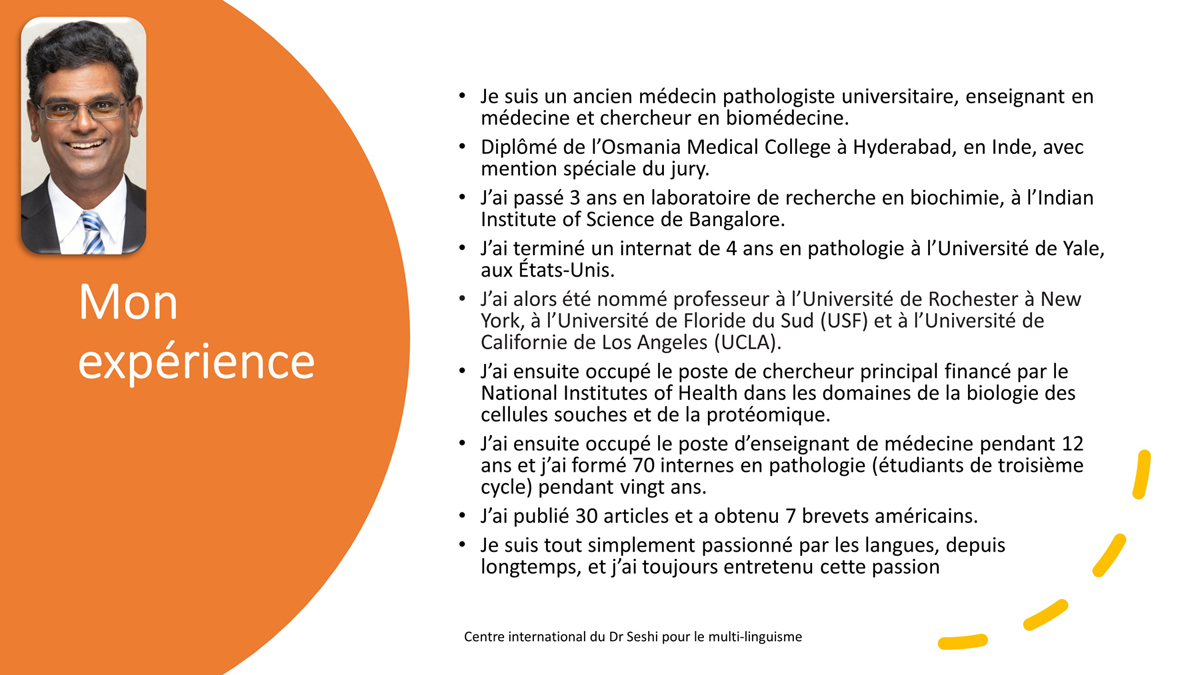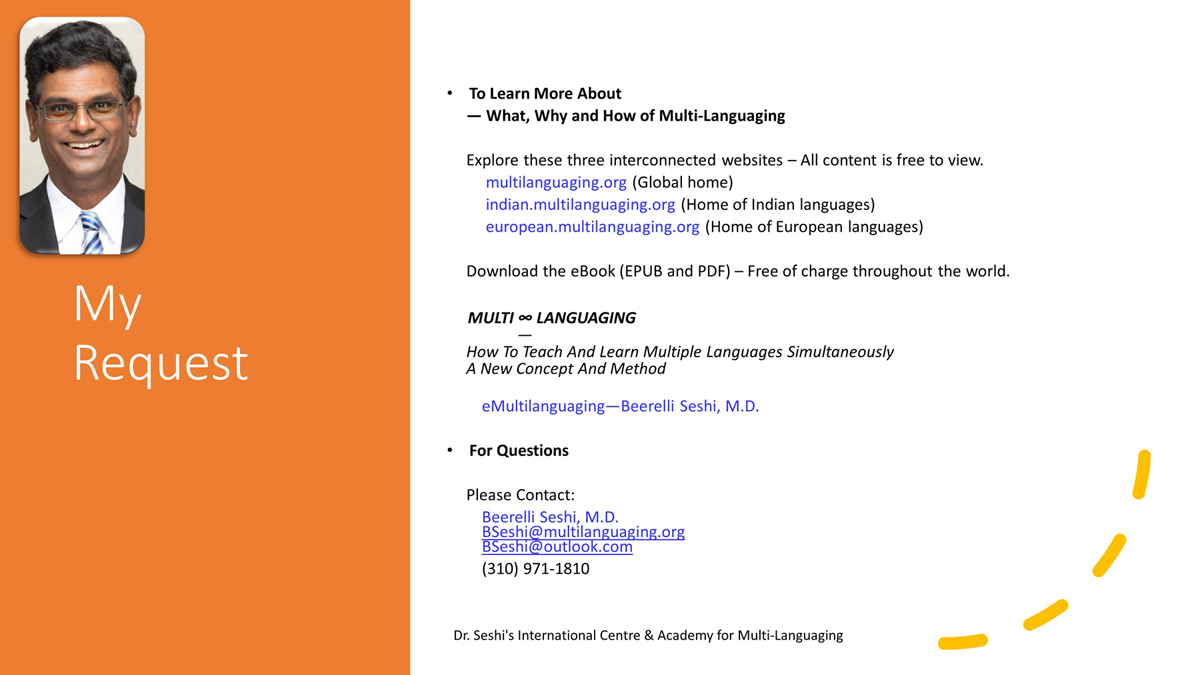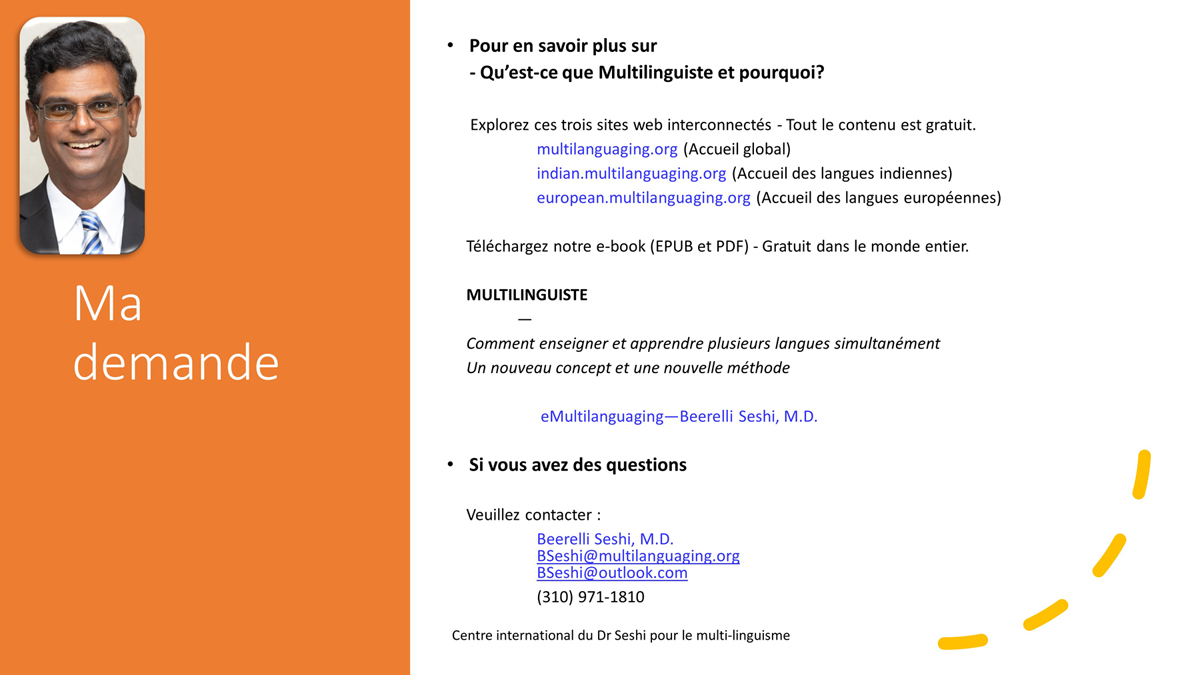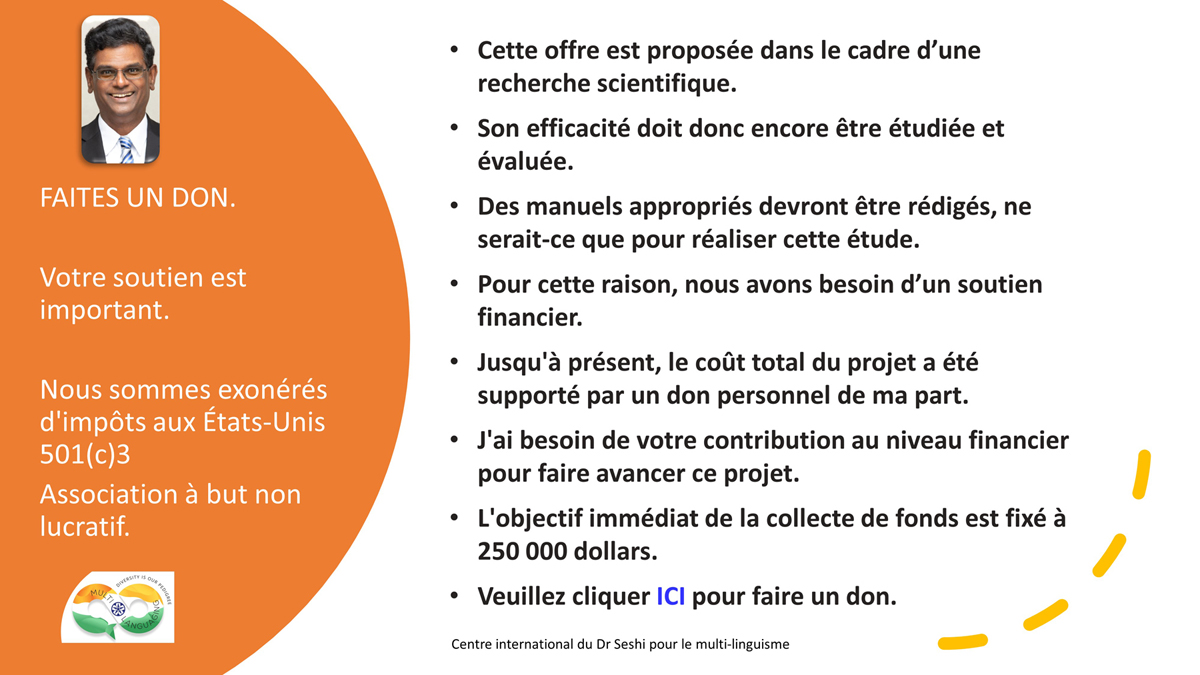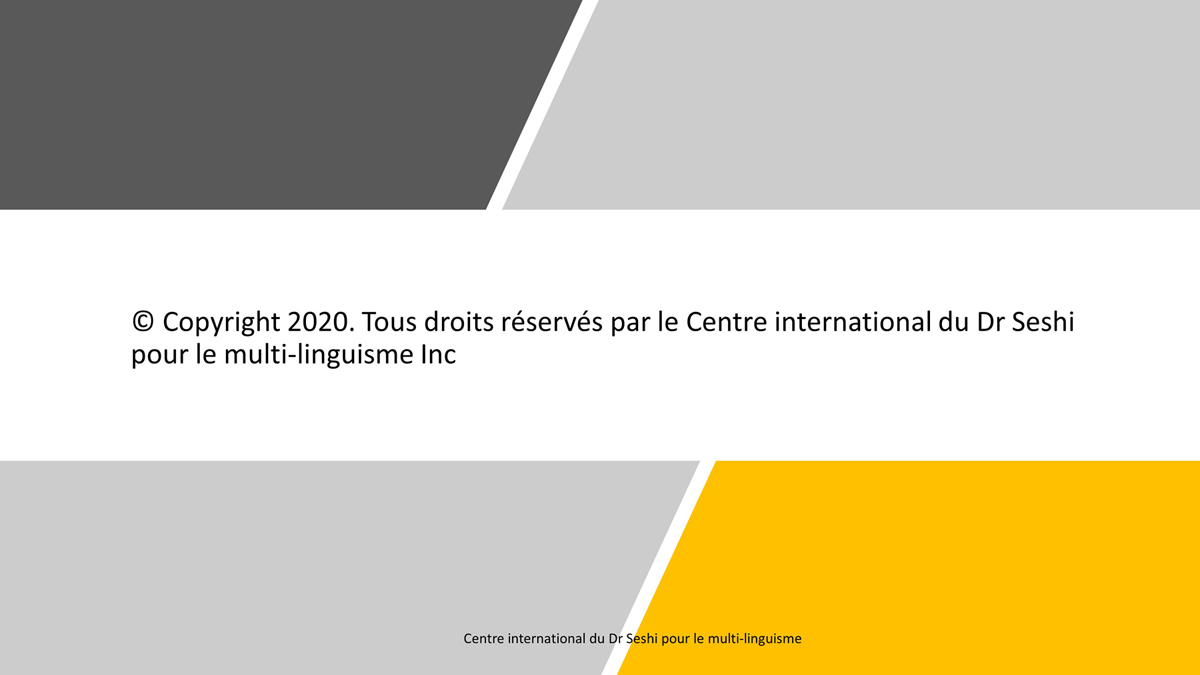
“Change your language and you change your thoughts.”
Karl Albrecht

Beerelli Seshi, M.D.
| English | Note to the Reader |
| German | Anmerkung für den Leser |
| French | Note au lecteur |
| Spanish | Nota al lector |
| Italian | Nota per il lettore |
| Latin | Nota ad Lectorem |
| Greek | Σημείωση προς τον Αναγνώστη |
| Transliteration | Simeíosi pros ton Anagnósti |
| English | Dear Reader: |
| German | Liebe Leserinnen und Leser1, |
| French | Cher lecteur : |
| Spanish | Querido lector: |
| Italian | Gentile lettore: |
| Latin | Dilecte Lector: |
| Greek | Αγαπητέ αναγνώστη, |
| Transliteration | Agapité anagnósti, |
| English | Thank you for visiting this website. |
| German | Vielen Dank2 für Ihren Besuch auf dieser Website. |
| French | Merci5 de votre visite sur ce site. |
| Spanish | Gracias7 por visitar este sitio web. |
| Italian | Grazie9 per aver visitato questo sito Web. |
| Latin | Gratias tibi pro visendo hac pagina retiali. |
| Greek | Σε ευχαριστώ11 που επισκέφθηκες αυτόν τον ιστότοπο. |
| Transliteration | Se efcharistó pou episkéfthikes aftón ton istótopo. |
| English | Translations of original documents from English to German, French, Spanish, Italian, Latin and Greek were performed by native professionals/experts, as arranged by a professional translation company on a fee-for-service basis. |
| German | Übersetzungen von Originaldokumenten aus dem Englischen ins Deutsche, Französische, Spanische, Italienische, Lateinische und Griechische wurden von muttersprachlichen Fachleuten/Experten ausgeführt, die von einem professionellen Übersetzungsbüro auf Honorarbasis vermittelt wurden. |
| French | Les traductions des documents originaux de l’anglais vers l’allemand, le français, l’espagnol, l’italien, le latin et le grec ont été réalisées par des professionnels/experts natifs recrutés par une agence de traduction professionnelle dans le cadre d’une rémunération à l’acte. |
| Spanish | Las traducciones de los documentos originales del inglés al alemán, francés, español, italiano, latín y griego han sido realizadas por profesionales/expertos nativos, contratados a través de una empresa profesional de traducciones en un régimen de tarifa por servicio. |
| Italian | Le traduzioni dei documenti originali dall’inglese al tedesco, francese, spagnolo, italiano, latino e greco sono state eseguite da professionisti/esperti madrelingua, come concordato da una società di traduzione professionale a pagamento. |
| Latin | Translationes principalium documentorum ex Anglica in Germanam, Gallicam, Hispanicam, Italicam, Latinam, et Graecam factae sunt ab nativis professionem pertinentibus/peritis, ut constitutae ab professionali translaticia sodalitate secundum mercedum datarum pro servitio. |
| Greek | Οι μεταφράσεις των αρχικών κειμένων από τα Αγγλικά στα Γερμανικά, Γαλλικά, Ισπανικά, Λατινικά και Ελληνικά εκτελέστηκαν από γηγενείς επαγγελματίες/ειδικούς, όπως κανονίστηκε από μια επαγγελματική μεταφραστική εταιρεία με βάση την άμεση πληρωμή της παρεχόμενης υπηρεσίας. |
| Transliteration | Oi metafráseis ton archikón keiménon apó ta Angliká sta Germaniká, Galliká, Ispaniká, Latiniká kai Elliniká ekteléstikan apó gigeneís epangelmatíes/eidikoús, ópos kanonístike apó mia epangelmatikí metafrastikí etaireía me vási tin ámesi pliromí tis parechómenis ypiresías. |
| English | The translators are anonymous to me. |
| German | Die Übersetzer sind für mich anonym. |
| French | Je n’ai aucun contact avec les traducteurs6. |
| Spanish | Los traductores son anónimos para mí. |
| Italian | I traduttori per me sono anonimi. |
| Latin | Translatores sunt sine nominibus mihi. |
| Greek | Οι μεταφραστές είναι άγνωστοι σε εμένα. |
| Transliteration | Oi metafrastés eínai ágnostoi se eména. |
| English | If you spot any errors, I request that you communicate them to me so they can be corrected. |
| German | Wenn Sie Fehler entdecken, bitte ich Sie, mir diese mitzuteilen, damit sie korrigiert werden können. |
| French | Si vous constatez des erreurs, merci de me les communiquer afin qu’elles puissent être corrigées. |
| Spanish | Si detecta algún error, le pido que me lo comunique para que lo pueda corregir. |
| Italian | Se riscontri degli errori, ti chiedo di comunicarmeli in modo che possano essere corretti. |
| Latin | Si animadvertis ullos errores, rogo ut communices eos mecum ut possint corrigi. |
| Greek | Αν ανακαλύψετε12 οποιοδήποτε τυχόν λάθος, σας ζητώ να μου το μεταφέρετε έτσι ώστε να μπορέσει να διορθωθεί. |
| Transliteration | An anakalýpsete opoiodípote tychón láthos, sas zitó na mou to metaférete étsi óste na borései na diorthotheí. |
| English | To learn more about multi-languaging, visit the main website, multilanguaging.org. |
| German | Um mehr über Mehrsprachigkeit zu erfahren, besuchen Sie die Haupt-Website multilanguaging.org. |
| French | Pour en savoir plus sur le multilinguisme, rendez-vous sur le site Web principal, multilanguaging.org. |
| Spanish | Para obtener más información8 sobre multilingüismo, visite la página inicial del sitio web multilanguaging.org. |
| Italian | Per saperne di più sul plurilinguismo, visita la Home del sito Web, multilanguaging.org. |
| Latin | Ut discas plus de multilinguatione, vise principalem paginam retialem, multilanguaging.org. |
| Greek | Για να μάθετε περισσότερα για τον πολύ-γλωσσισμό, επισκεφθείτε τον κυρίως ιστότοπο, multilanguaging.org. |
| Transliteration | Gia na máthete perissótera gia ton polý-glossismó, episkeftheíte ton kyríos istótopo, multilanguaging.org. |
| English | Thank you in advance for your help and interest. |
| German | Ich danke Ihnen3 im Voraus für Ihre Hilfe und Ihr Interesse. |
| French | Merci par avance de votre aide et de votre intérêt. |
| Spanish | Gracias de antemano por su ayuda e interés. |
| Italian | Grazie in anticipo per l’aiuto e l’interesse. |
| Latin | Gratias tibi antea pro tuo auxilio et studio. |
| Greek | Σας ευχαριστώ εκ των προτέρων για την βοήθεια και το ενδιαφέρον σας. |
| Transliteration | Sas efcharistó ek ton protéron gia tin voítheia kai to endiaféron sas. |
| English | Sincerely, |
| German | Mit freundlichen Grüßen4, |
| French | Cordialement, |
| Spanish | Atentamente, |
| Italian | Cordiali Saluti10, |
| Latin | Vale, |
| Greek | Μετά τιμής, |
| Transliteration | Metá timís, |
| English | Beerelli Seshi, M.D. |
| German | Dr. Beerelli Seshi |
| French | Beerelli Seshi, M.D. |
| Spanish | Beerelli Seshi, M.D. |
| Italian | Dr. Beerelli Seshi |
| Latin | Berelli Seshi, M.D. |
| Greek | Μπιρέλι Σάσι, Μ.Δ. |
| Transliteration | Biréli Sási, M.D. |
| English | feedback@multilanguaging.org |
| German | feedback@multilanguaging.org |
| French | feedback@multilanguaging.org |
| Spanish | feedback@multilanguaging.org |
| Italian | feedback@multilanguaging.org |
| Latin | feedback@multilanguaging.org |
| Greek | feedback@multilanguaging.org |
| Transliteration | feedback@multilanguaging.org |
German
1“Dear Reader“, to write in a polite way, we do not write any more only „Lieber Leser“, (for dear reader) It has to be “Liebe Leserin und Leser” or “Geehrte Leserin und Leser”, otherwise the people here feel offended
2 “Thank you” translated as “Vielen Dank” based on the context
3 “Thank you” translated as “Ich danke Ihnen” based on the context
4 “Sincerely”, to write in a polite way, I have to use: Mit freundlichen Grüßen (3 words). Not only „Grüße“ or so … that would be impolite
French
5 “Thank you” is “Merci”, without “you” translation
6 It is normal to say so in French. It literally means: I have no contact with the translators
Spanish
7 “Thank you” translated as “Gracias”, without “you” translation
8 “Para obtener más información” means “to obtain more information” equivalent to the source “to learn more”
Italian
9 “Thank you” translated as “Grazie”, without “you” translation
10 “Cordiali saluti” is commonly used. “Sincerely” is “cordialmente” but not so used
Greek
11 “Thank you” translated as “Σε ευχαριστώ”, without “you” translation
12 “you”: In Greek some endings/suffixes indicate much more than you can imagine.
Take for example, our case. The verb “spot” is conjugated as follows:
I spot/ανακαλύψω-here the ending/suffix “”ω”” indicates the first person singular without mentioning the subject “I”
You spot-singular-/ανακαλύψεις- same as above, suffix.ending “εις”
He, she, it spots/ανακαλύψει-same as above, suffix/ending “ει”
We spot/ανακαλύψουμε-same as above, suffix, ending “”ουμε”
You spot-plural-> plural of politeness(that is, if you are still referring to one person, but you want to be polite, since he/she/it may be anonymous to you and you do not know him/her/it, you use this kind of plural)/ανακαλύψετε-same as above, suffix/ending “ετε”
They spot/ανακαλύψουν-same as above, suffix/ending “”ουν””




